These two weeks of vacation went much too fast and this was already the first segment of our way back home.
CDG - HEL: AY1574 (A320)
HEL - KIX: AY077 (A330-300)
KIX - HEL: AY078 (A330-300) you are here
HEL - CDG : AY1577 (A319)
I expected it, especially since it was a Sunday : our Japanese friends drove us to the airport, saving us the hassle of a long train ride. Urban expressways are not only very expensive tollways, but the landscape is usually very disappointing, with sound breaking walls on most of the distance inside the city.
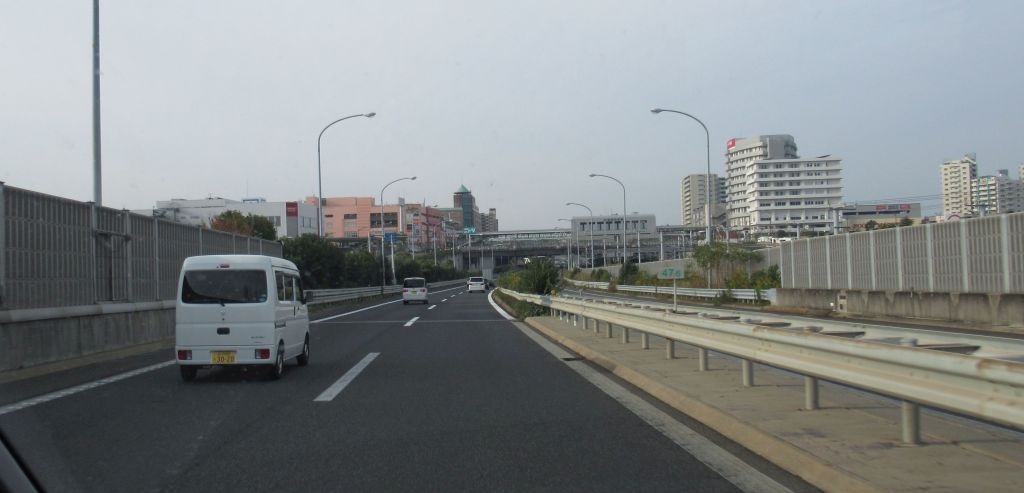
It was nicer once out of Ōsaka’s urban area.
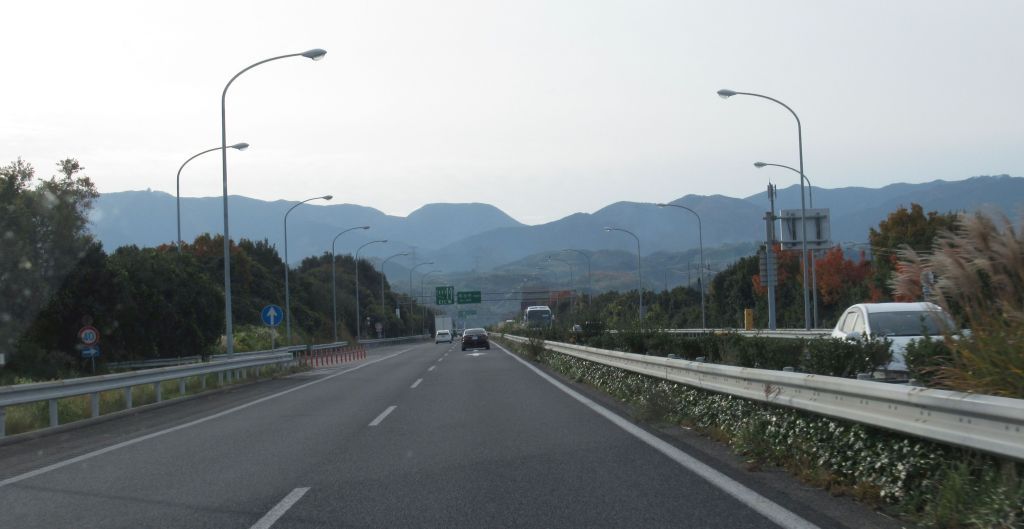
People who never set foot in Japan often do not realize that this country is 85% unbuildable and impenetrable forests. Unbuildable because like in Taiwan, it’s all volcanic sree slopes which are inherently very unstable. Impenetrable because they all have the maximum slope of scree, which sis quite steep.
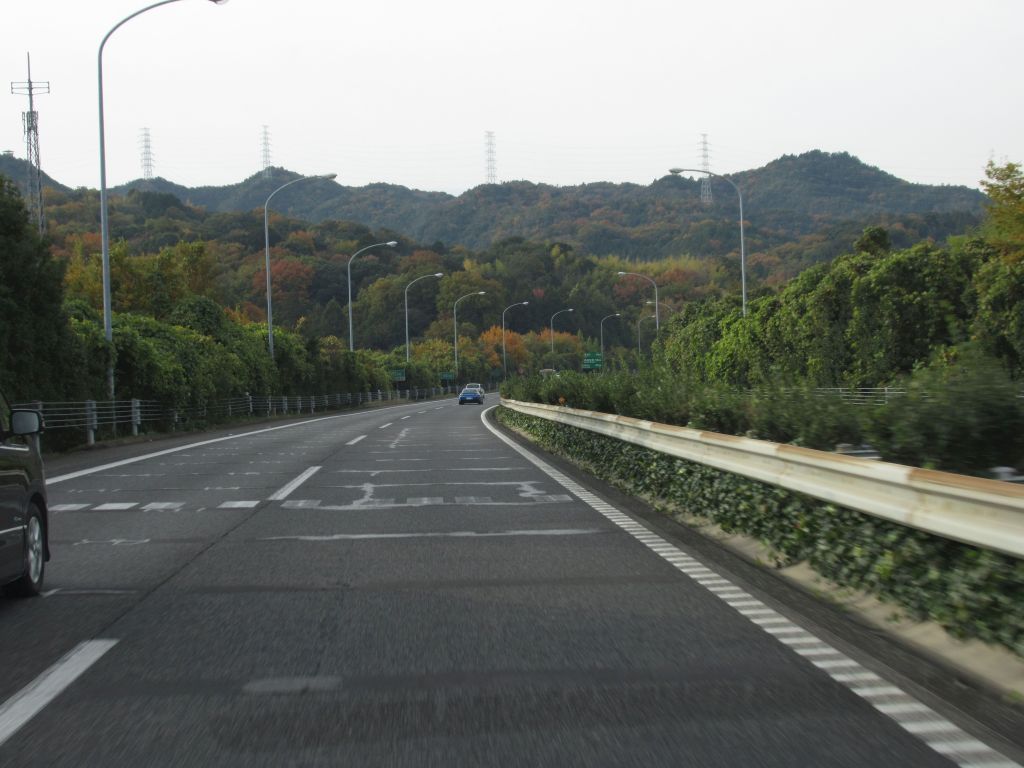
This sign seemed to imply that we were in the correct direction.
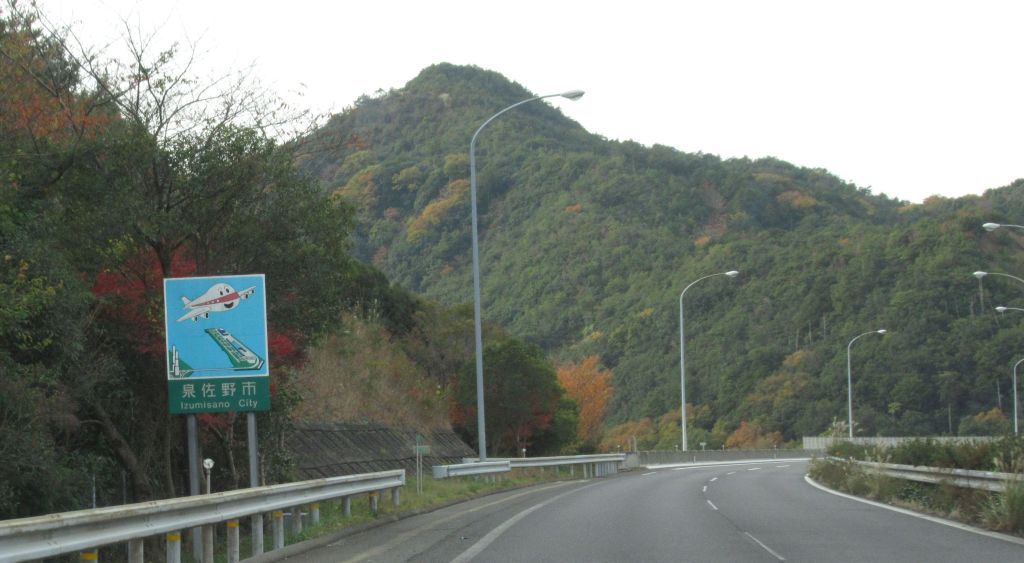
This was indeed, shortly thereafter, the branch towards KIX.
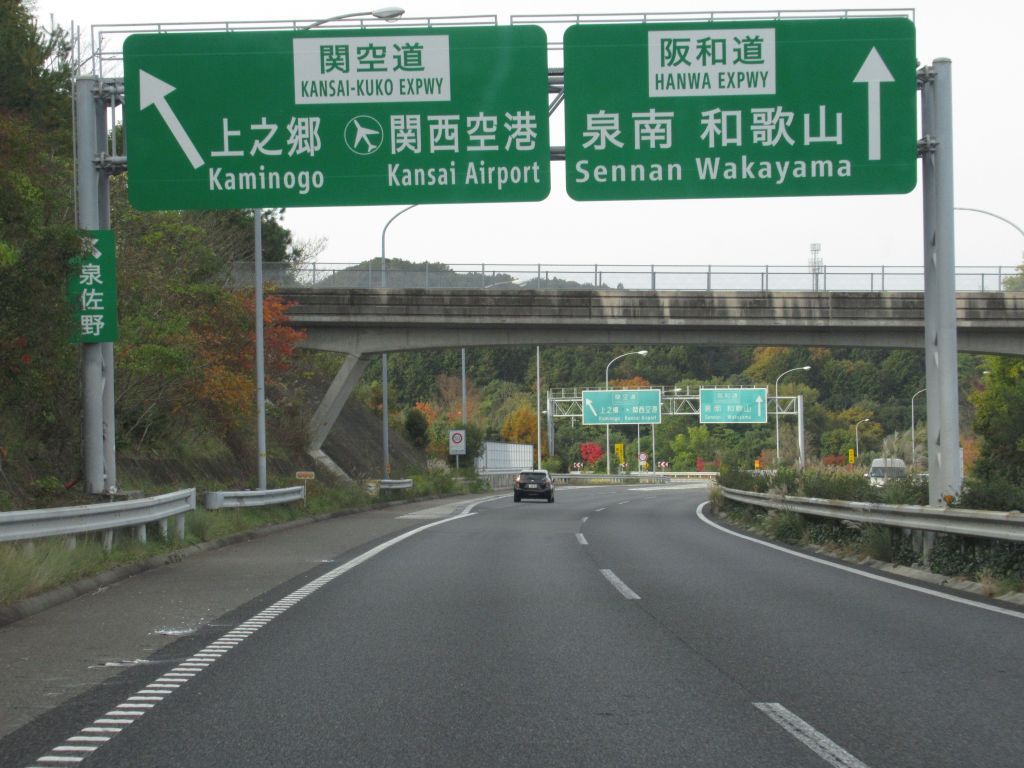
It was entirely protected by nettings from the fall of balls coming from the neighboring golf course. (Golf courses are often of the terraced culture kind in Japan, with each hole at a different level on a hill side).
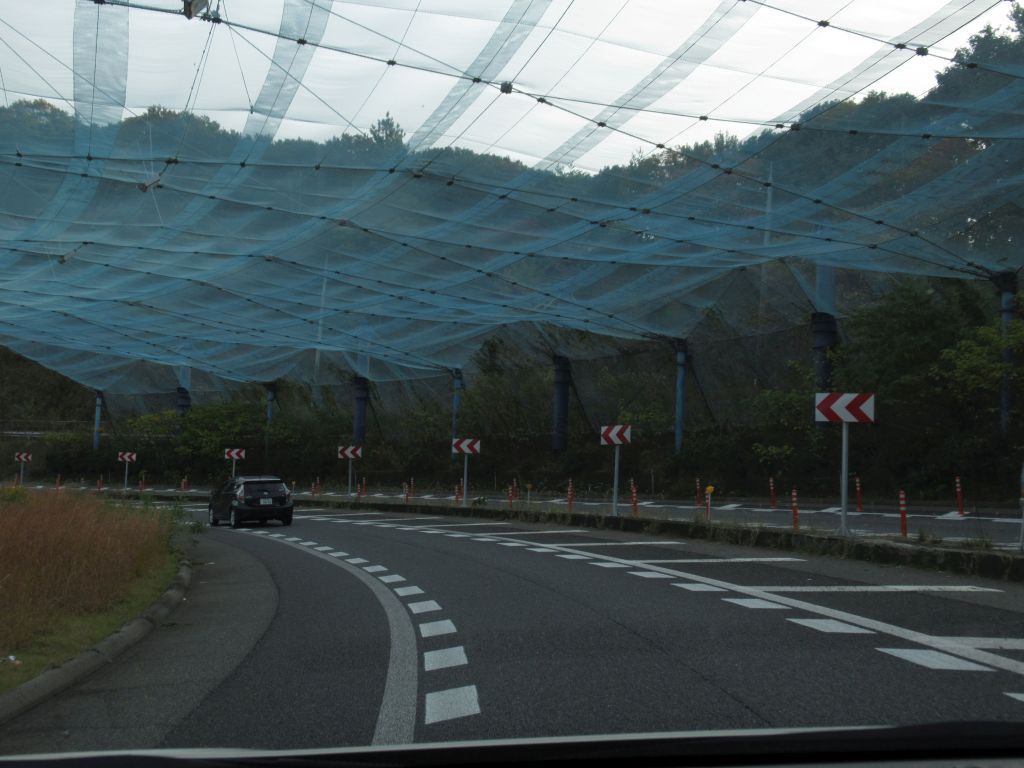
Talking about tolls, here is one : our friends take one of the right lanes because like nearly all car owners in Japan, they have a contactless toll payment pass and drive through at 20 km/h.
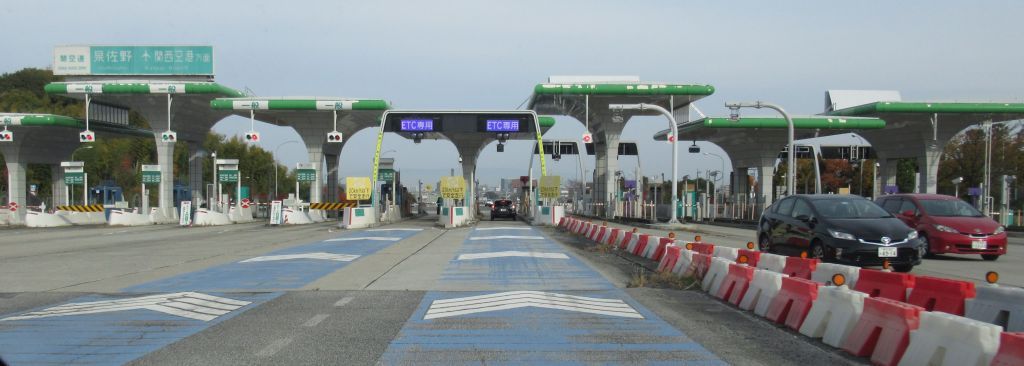
This tower is the Star Gate Hotel Kansai Airport, located next to the end of the bridge connecting KIX to the mainland.
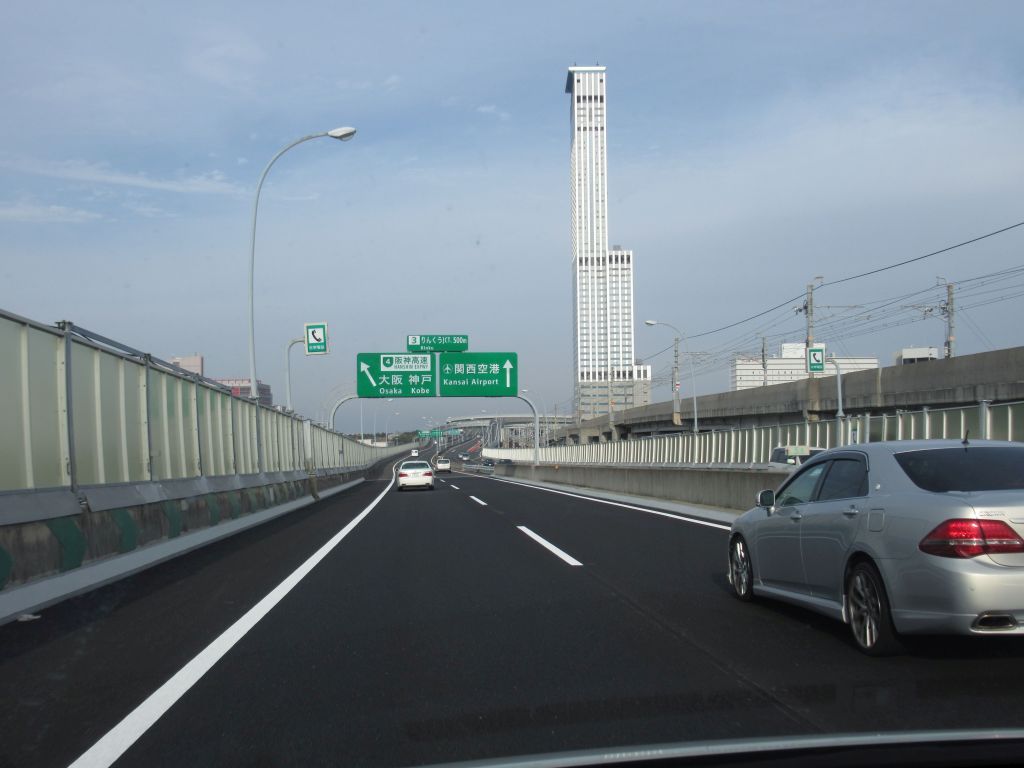
The terminals are in (poor) sight on the left
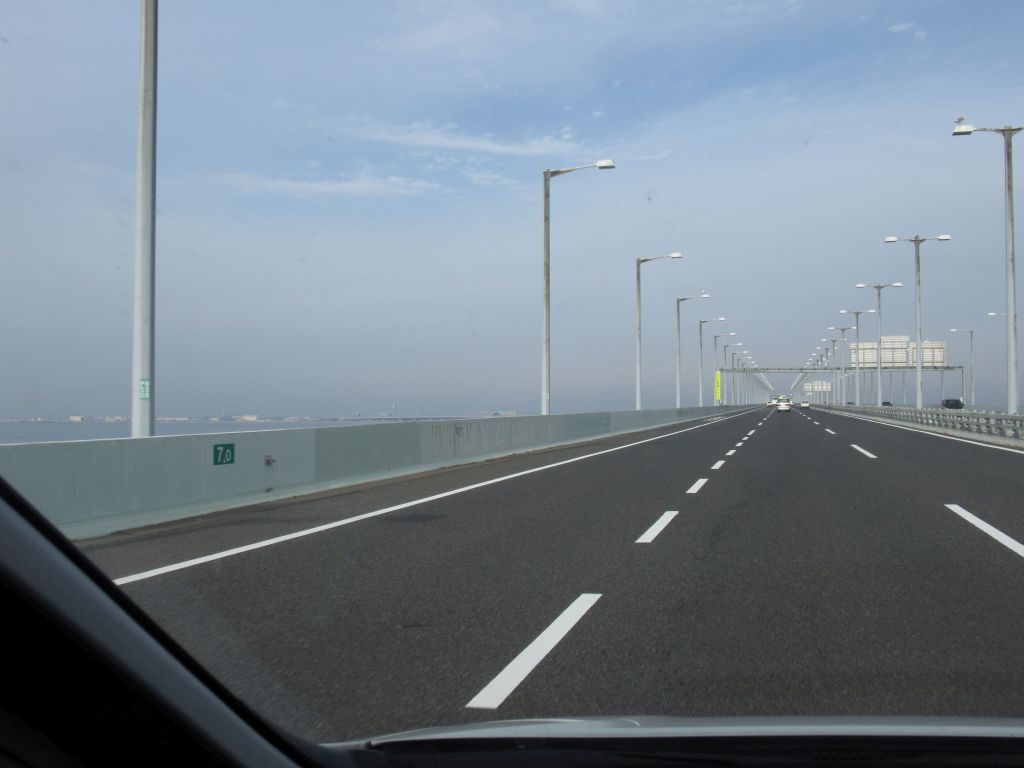
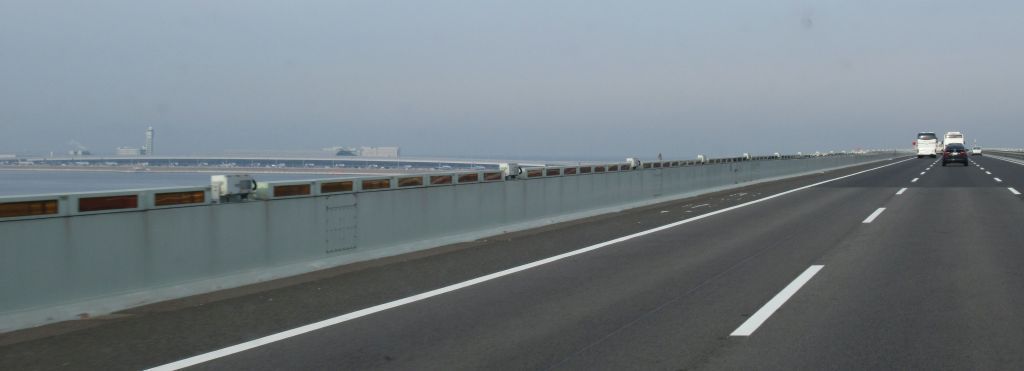
With some parked planes even less easy to see
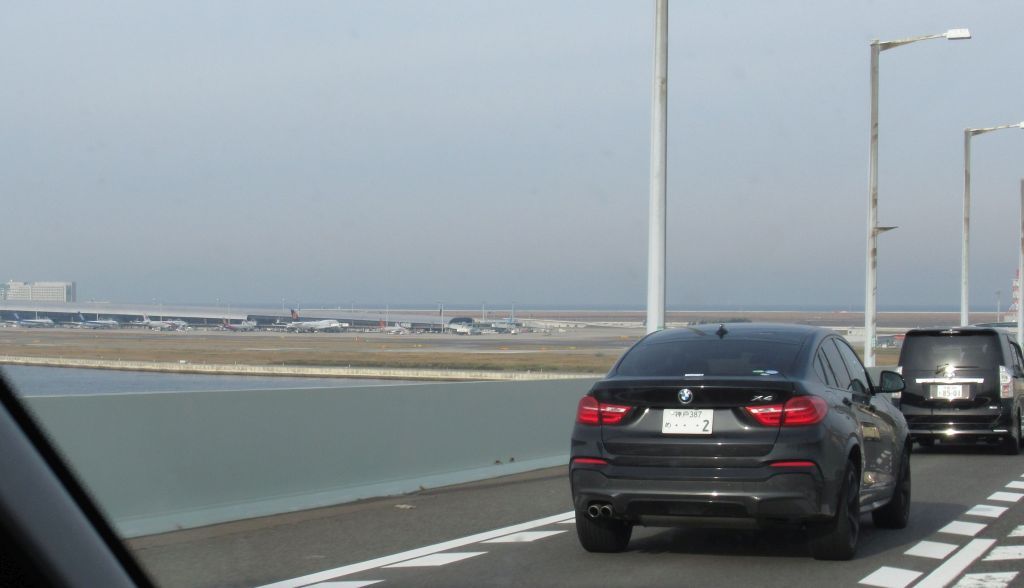
One more toll gate : from Ōsaka, the total one way was around 15 EUR. Users of LYS of NCE have a cheap ride, in comparison.
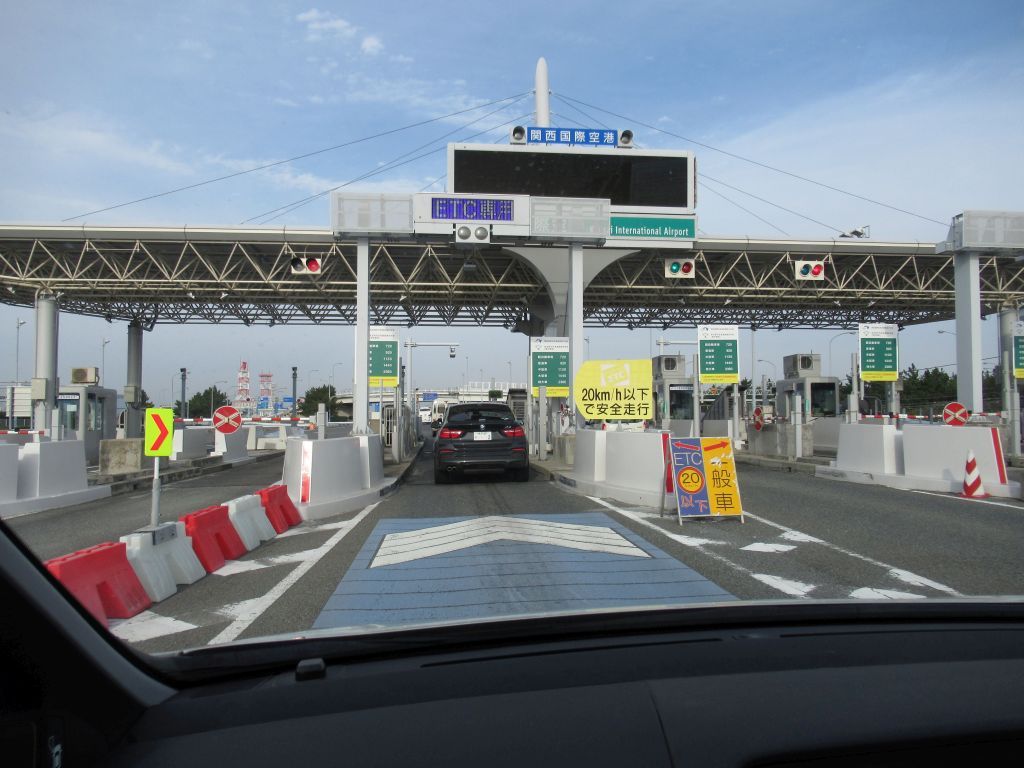
I could not consider asking to leave our friends’ home earlier to have time for this observation platform served by a free shuttle bus, but if you have a chance, it is well worth going there.
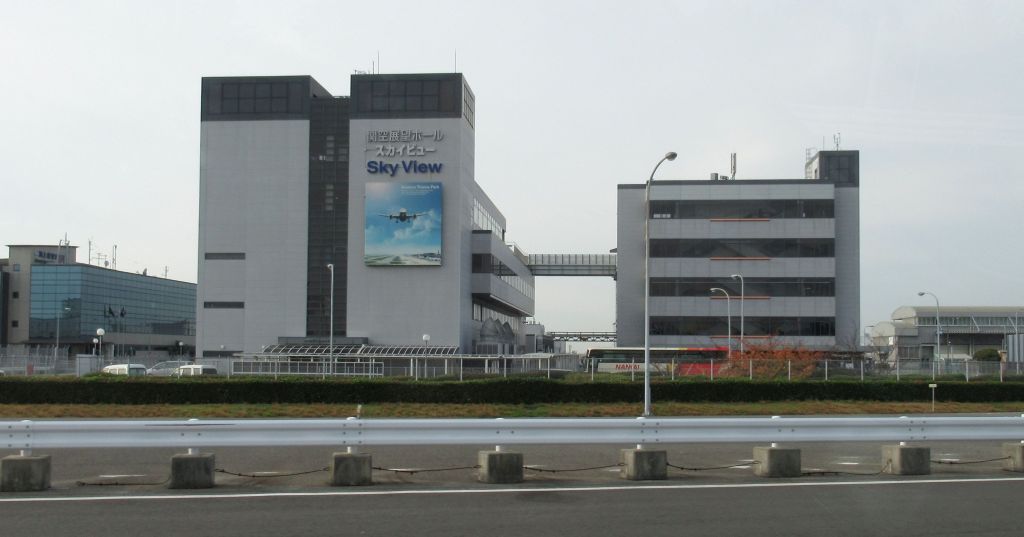
Welcome to KIX
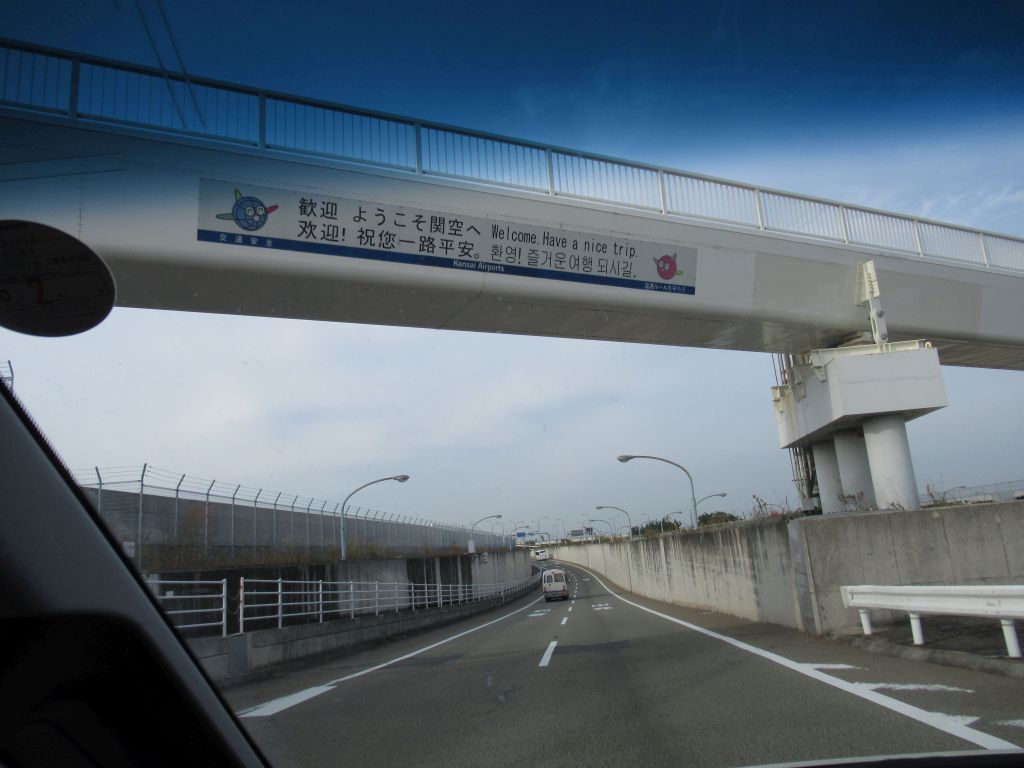
The kiss and drive in KIX is something else from that of CDG in terms of fluidity, but then, most passengers reach KIX by trains which are something else from those serving CDG.
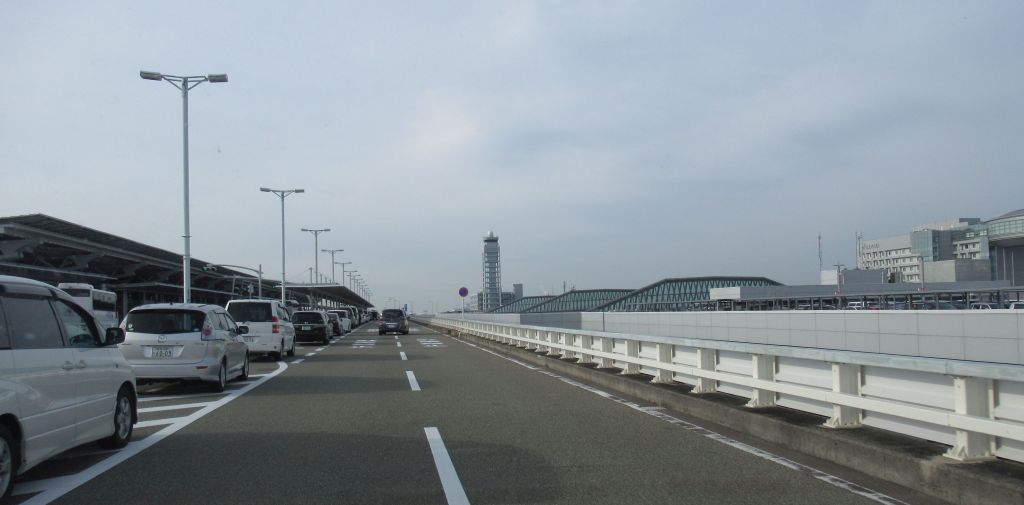
Entering Terminal 1, the only one that many travelers patronize because the smaller Terminal 2 is dedicated to LCCs
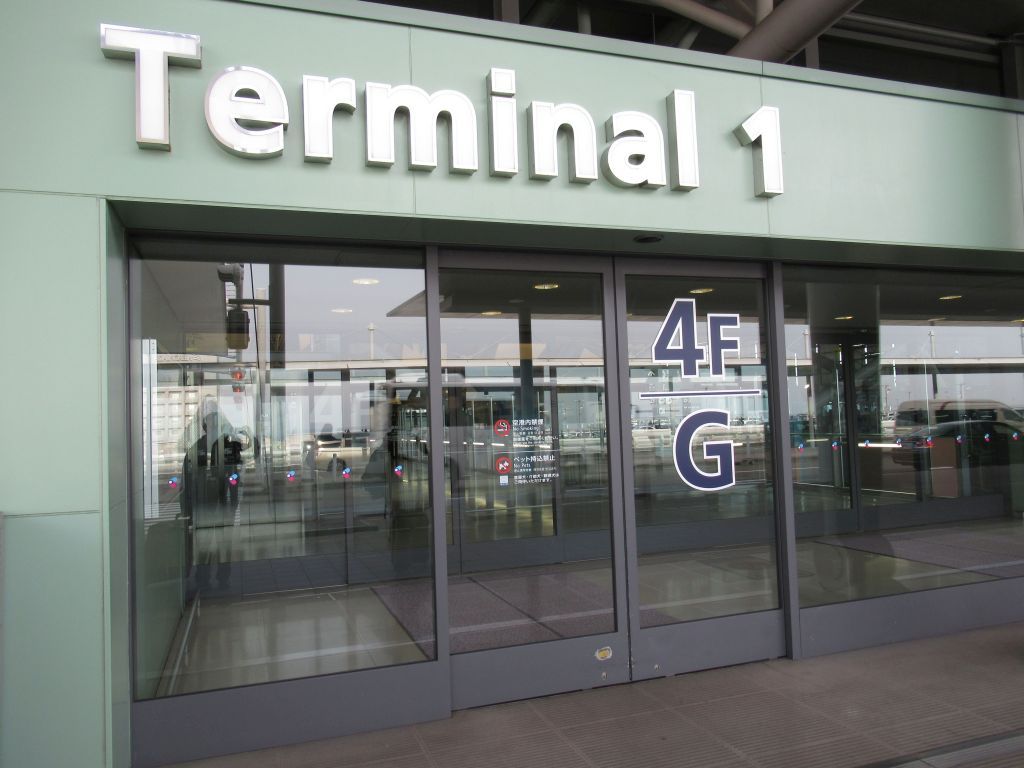
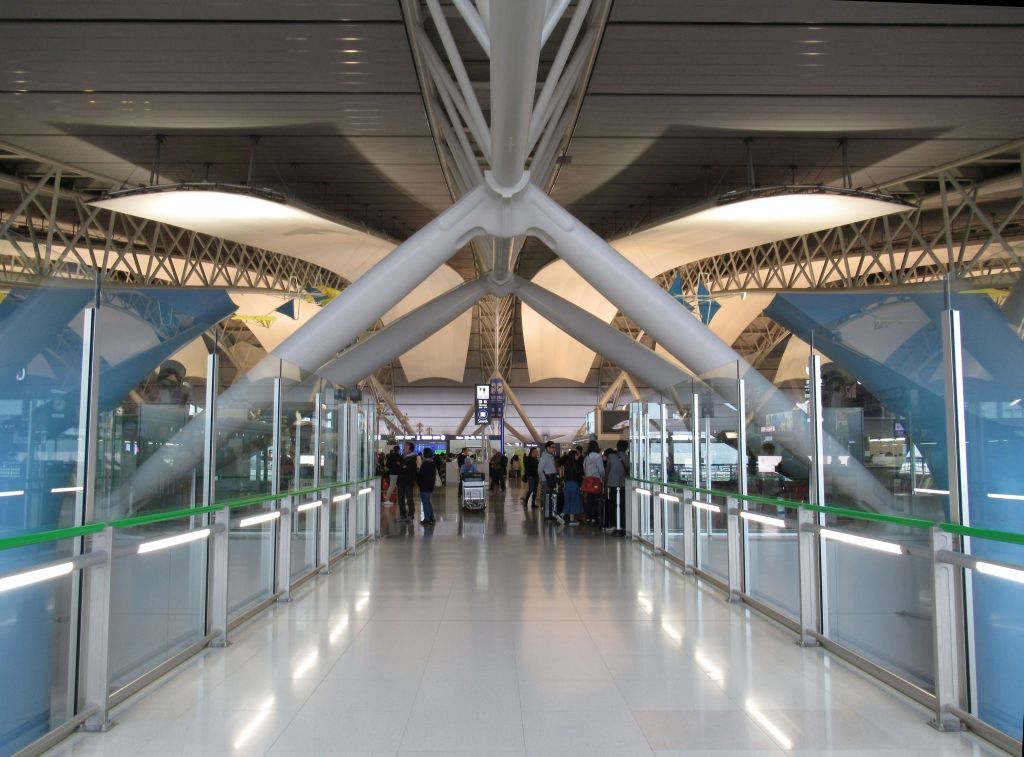
There was a small crowd at check-in, but nothing to worry about.
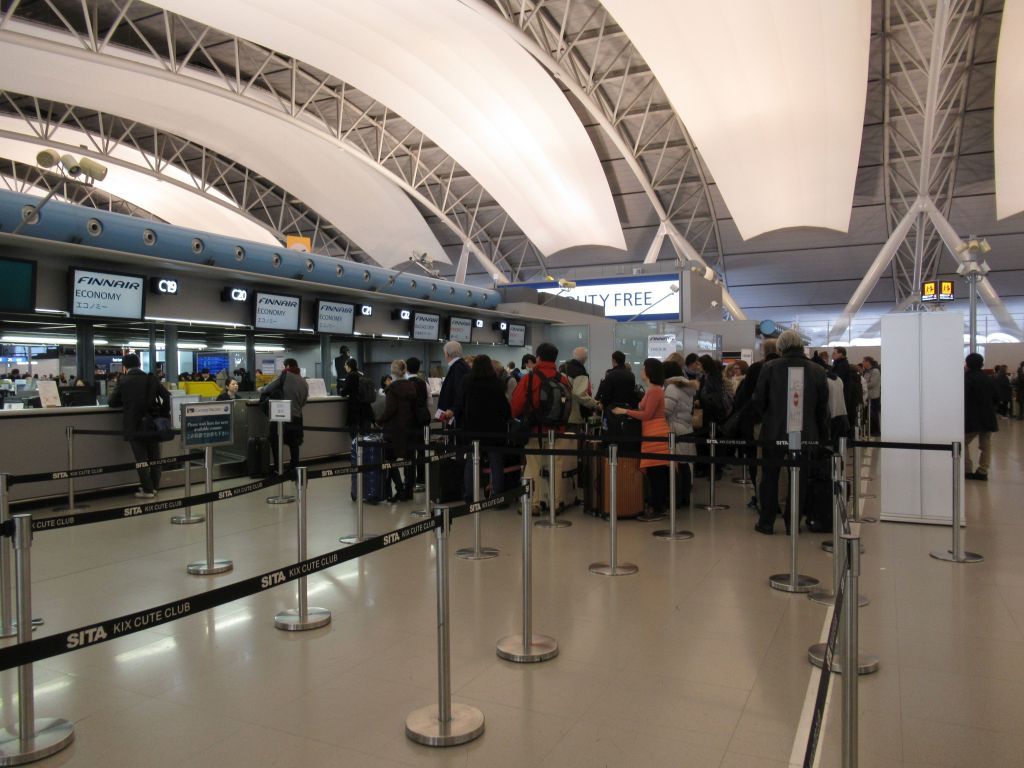
This airport staff distributed "small carry-on luggage" tags.
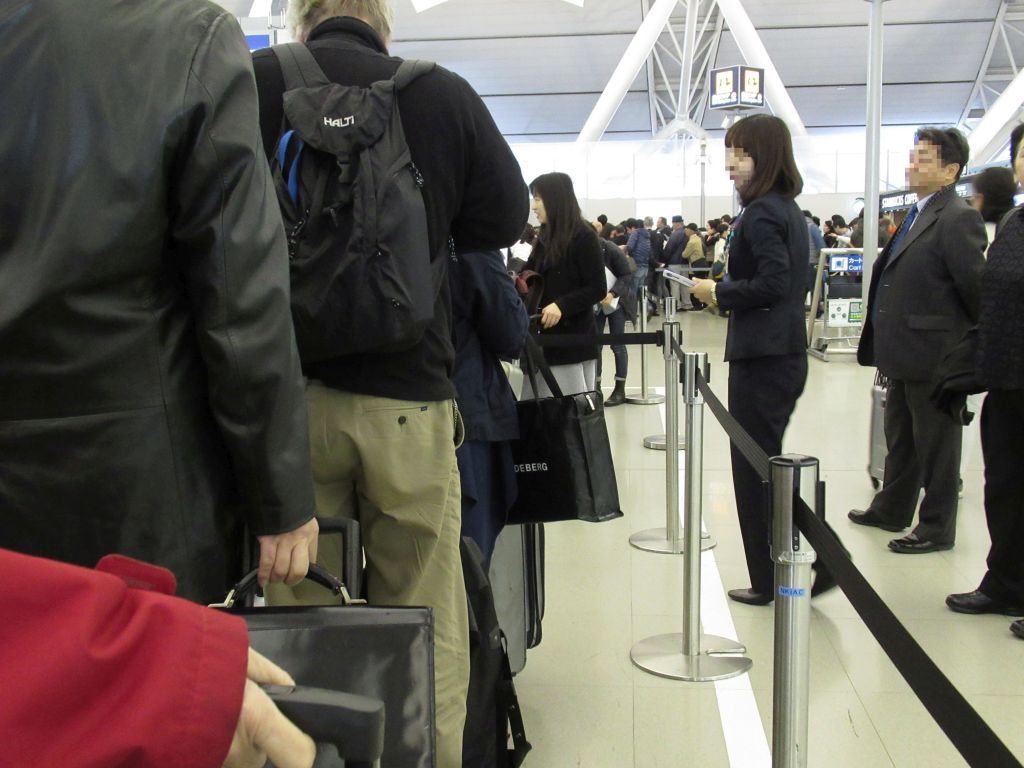
She gave them to us as well as to this traveler who had only this small hand luggage. Unlike in CDG, I did not see any self-serve BP providing machine: I did not look much for one, but the presence of this passenger who did not need to check any luggage let me suspect that there was indeed none.
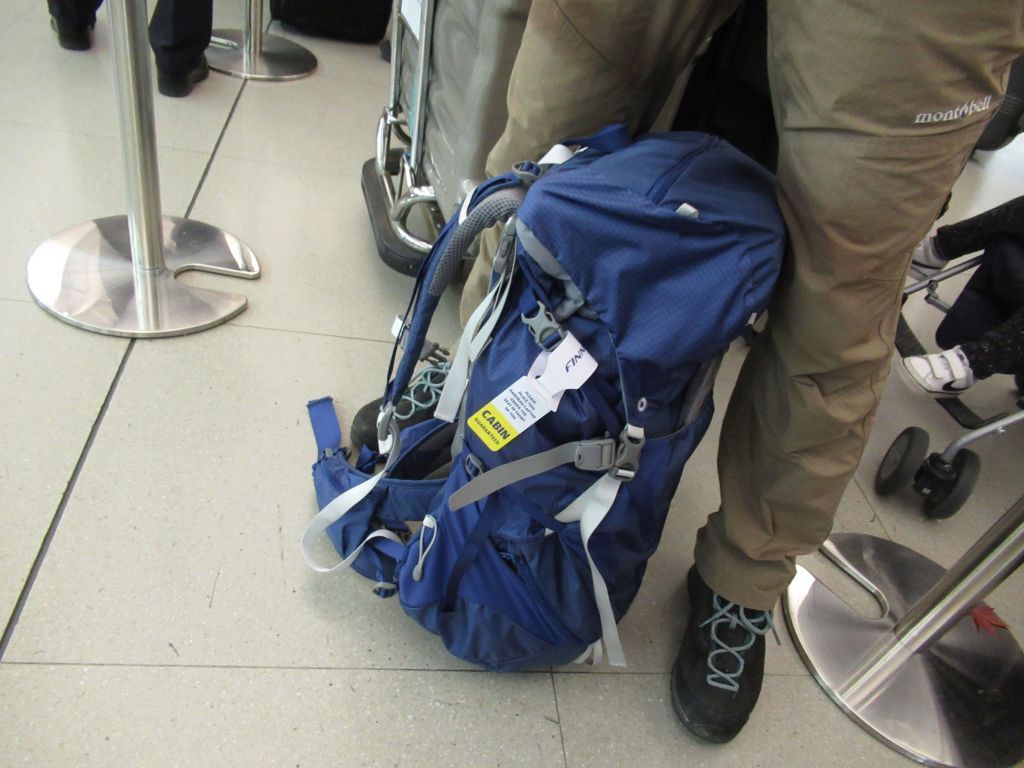
Our suitcase did not contain the presents for our friends any more, but they were nevertheless a total of eight kilos heavier after these two weeks. Japanese food is very healthy for humans, but a disaster for suitcases.
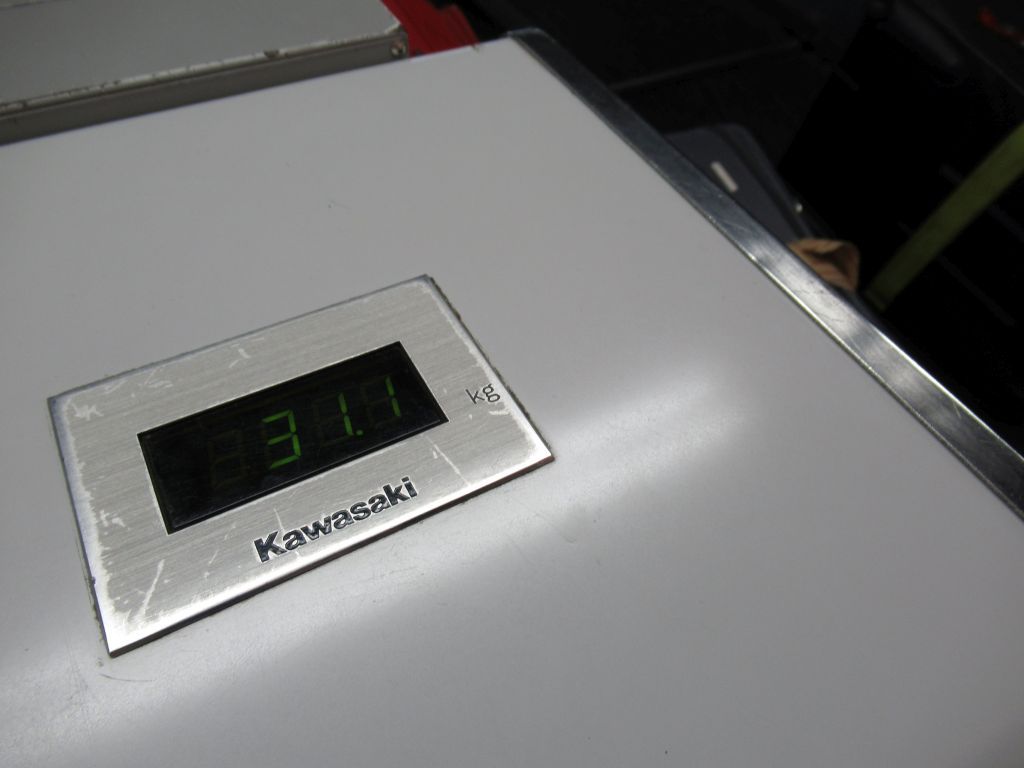
Look at the belly of the red suitcase !
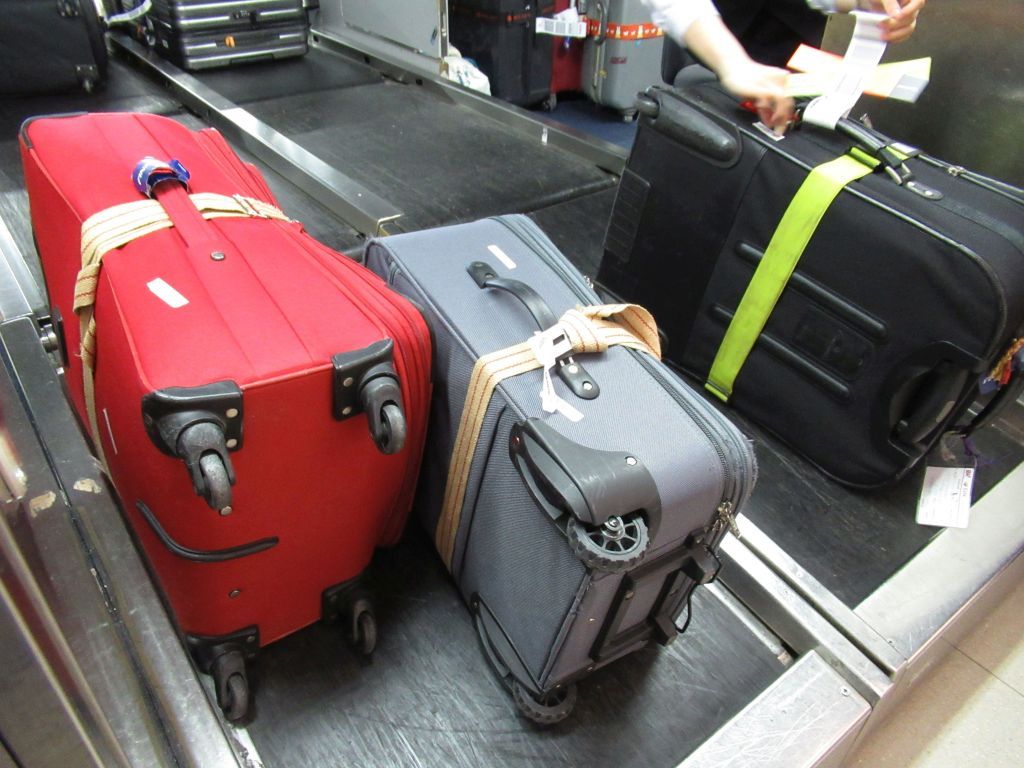
We were still far from the 2x23 kg of our checked luggage allowance ; the staff only asked if they met these constraints. Spare batteries are useless in the hold when you need to document two successive flights !
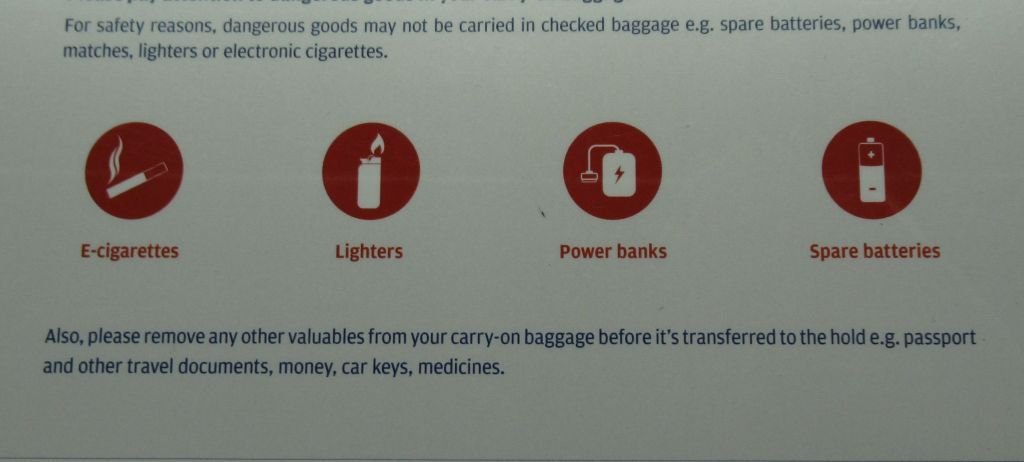
Our suitcases would have little time to transit from one plane to the next one, much like their owners.
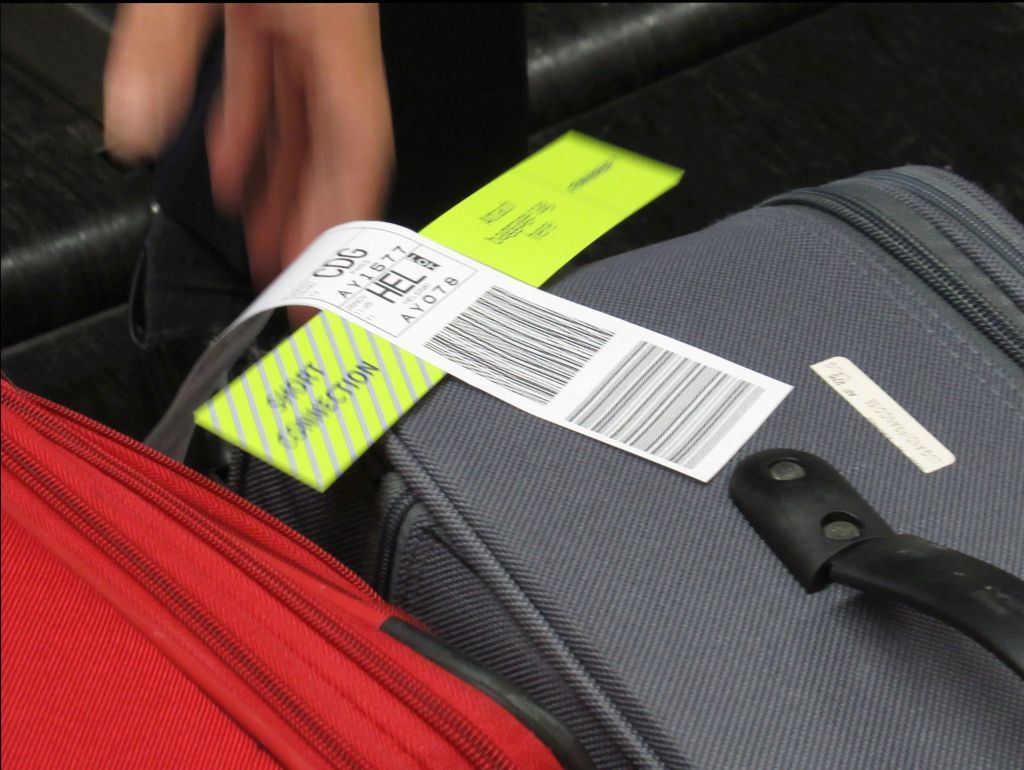
Then came the disaster (an excessive word, of course). The waiting line to reach the security check was so long that here, airport staff were managing like traffic lights lines of passengers starting in the line on the right, going back after having already waited for a while
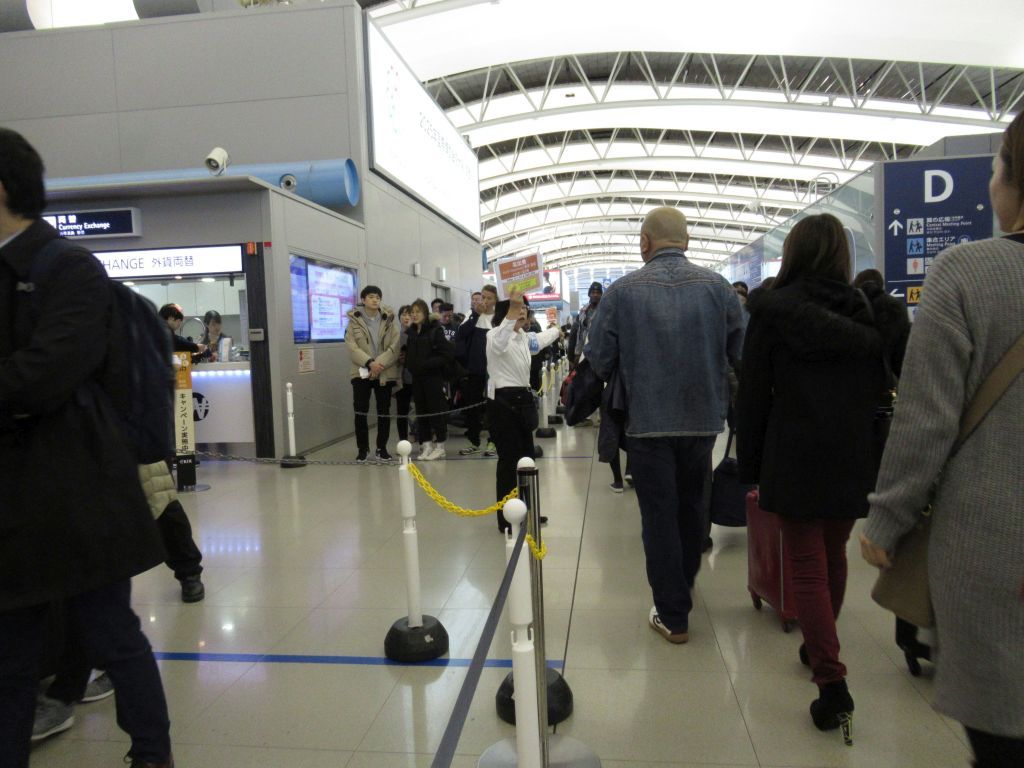
…crossing intermittent customers of this café and this foreign exchange booth.
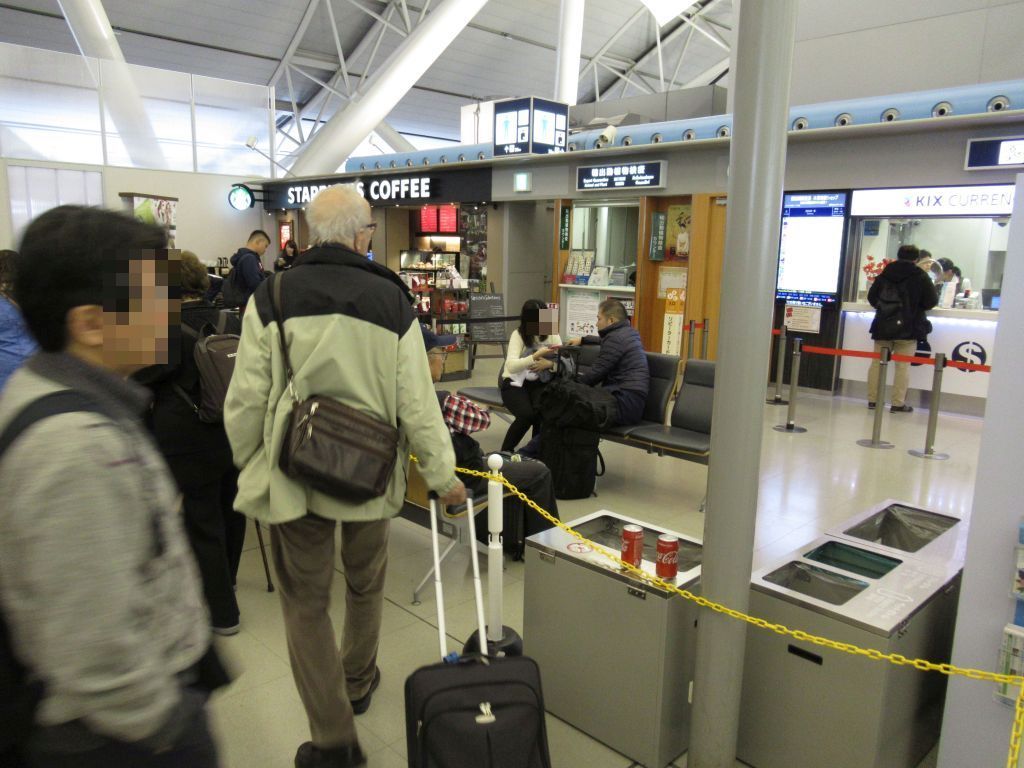
The line continued there
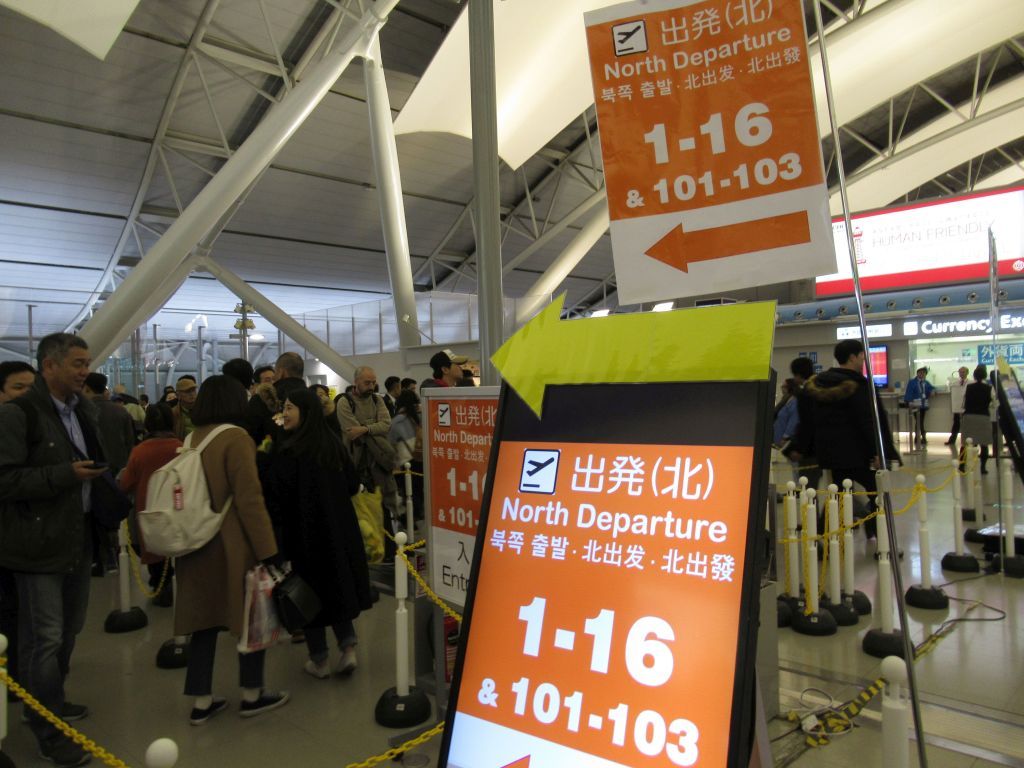
It zigzagged here
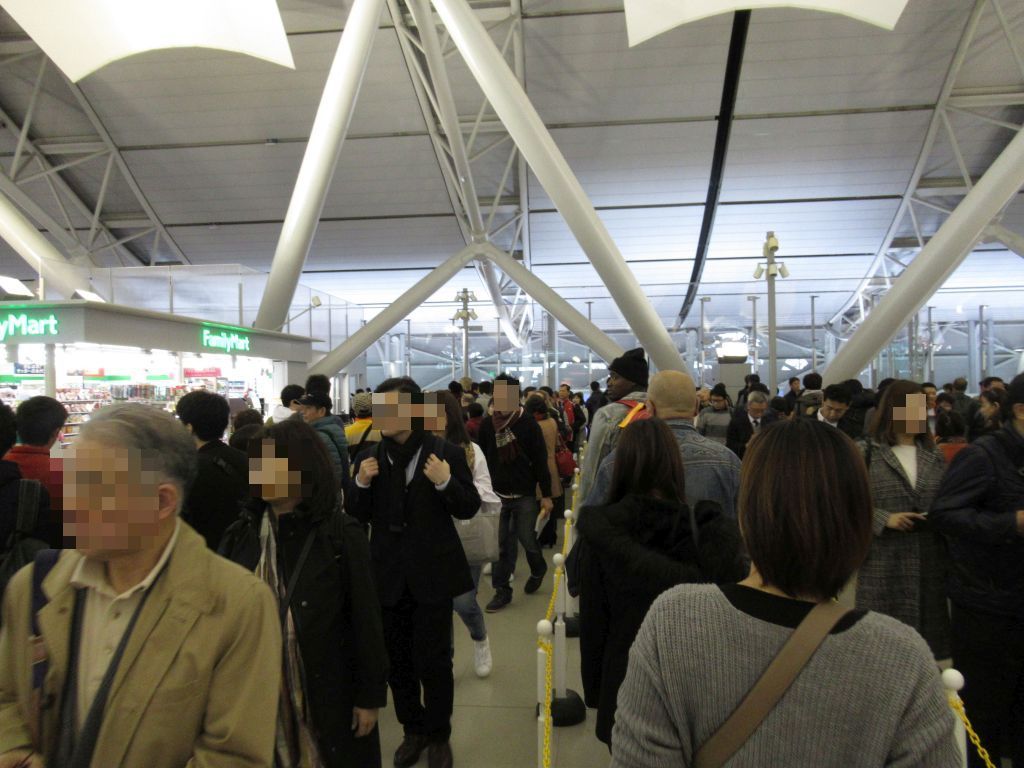
The security check was not alone being congested

The internet access was even more saturated.

Was it the security check, beyond this door ?
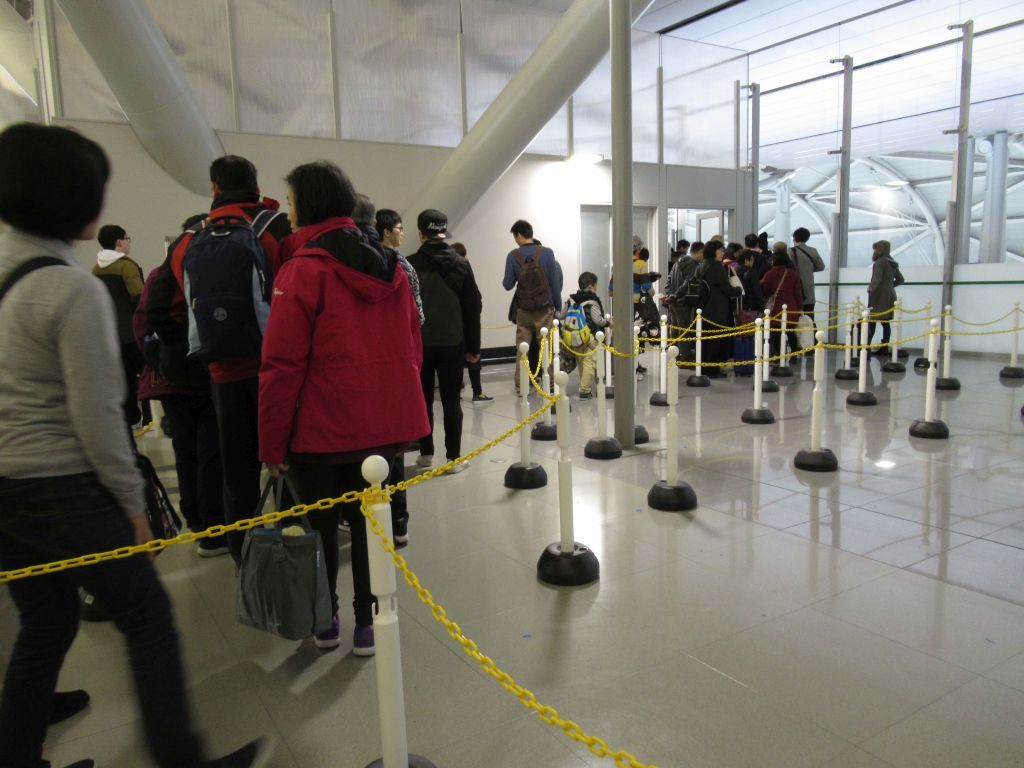
No, the line continued, like in these amusement parks where entering the building does not mean that you will enjoy the actual attraction any time soon.
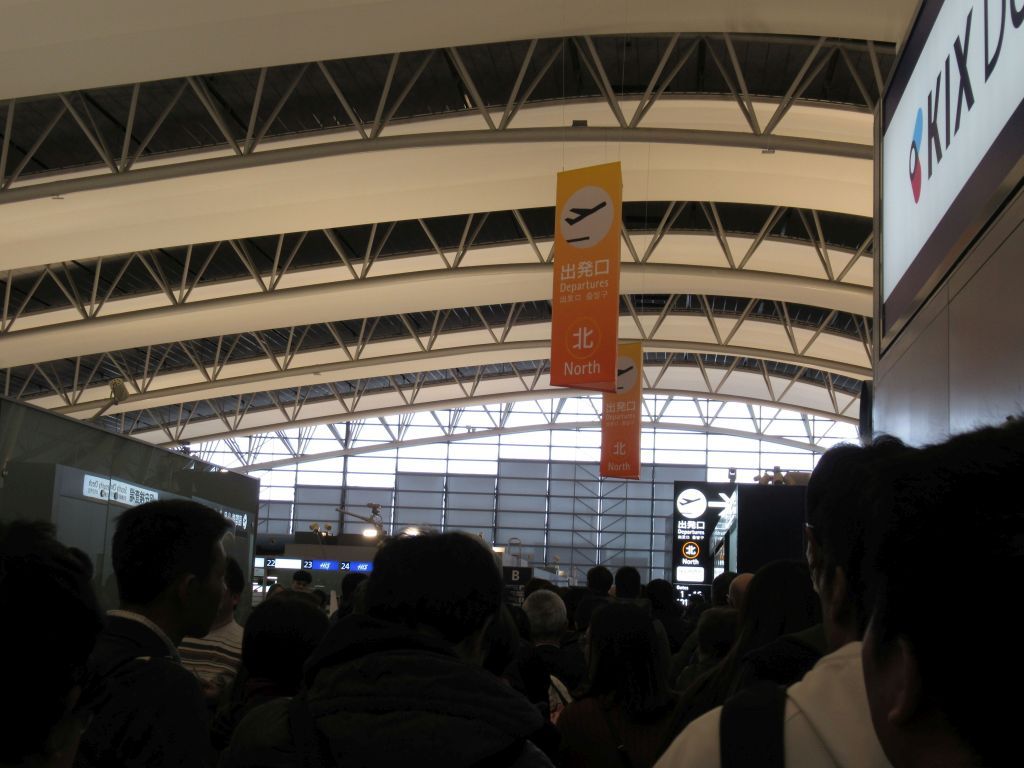
We reached the preliminary BP check 28 minutes later, but it was not the security check yet. There was another 6 minutes of waiting to put the first item of hand luggage in a tray, and then another 6 minutes to go through the security check itself.
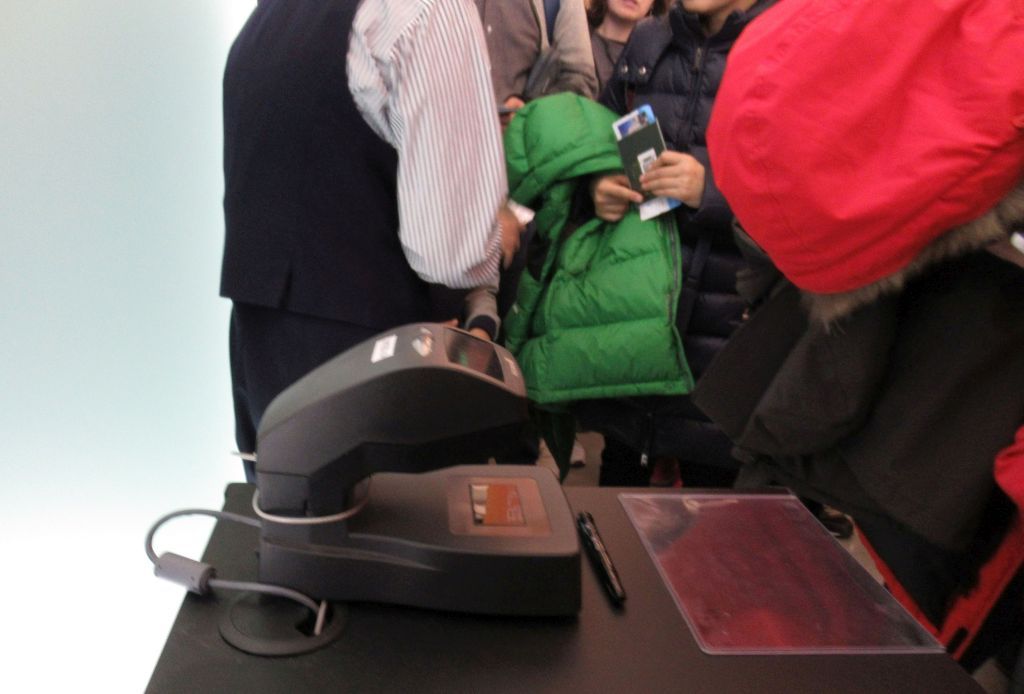
With such a stranglehold upstream, going through passport control was comparably fast, all the more that it was only a matter of checking that we had stayed fewer than 90 days, with a maximum limit legibly stated on the entry stamp and probably also recorded in the immigration’s data bases.
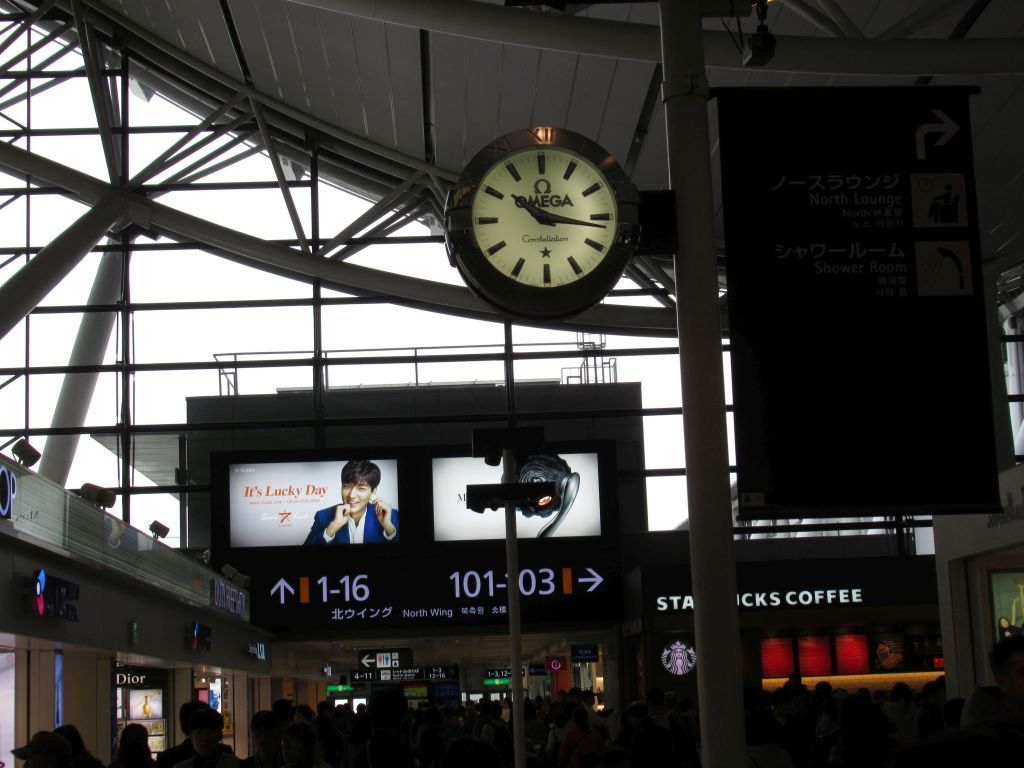
When I was a young and penniless (or yenless) bachelor, you had to pay cash, and cash only, a departure tax from Japan, and it could be very complicated if you had neglected to keep the required amount. This departure tax has been included in the price of the plane tickets a long time ago, but it has been replaced by a much more onerous tax, called “Duty free shopping by my wife because it’s cheaper than in Paris”. It can be paid by credit card, a good thing because I never have that much in cash with me, even in Japan.
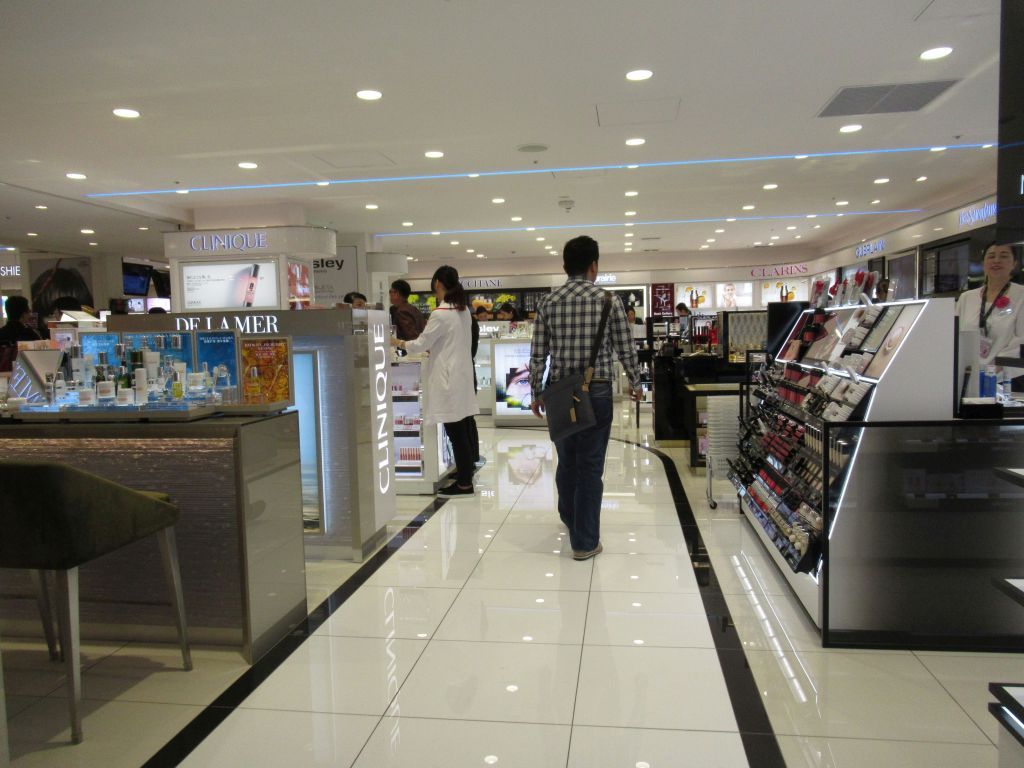
My wife did not wear perfume immediately since the items she had bought had to be sealed to make it through the security check in HEL, unlike the FAs of our flight who too were using their credit cards in the same shop.
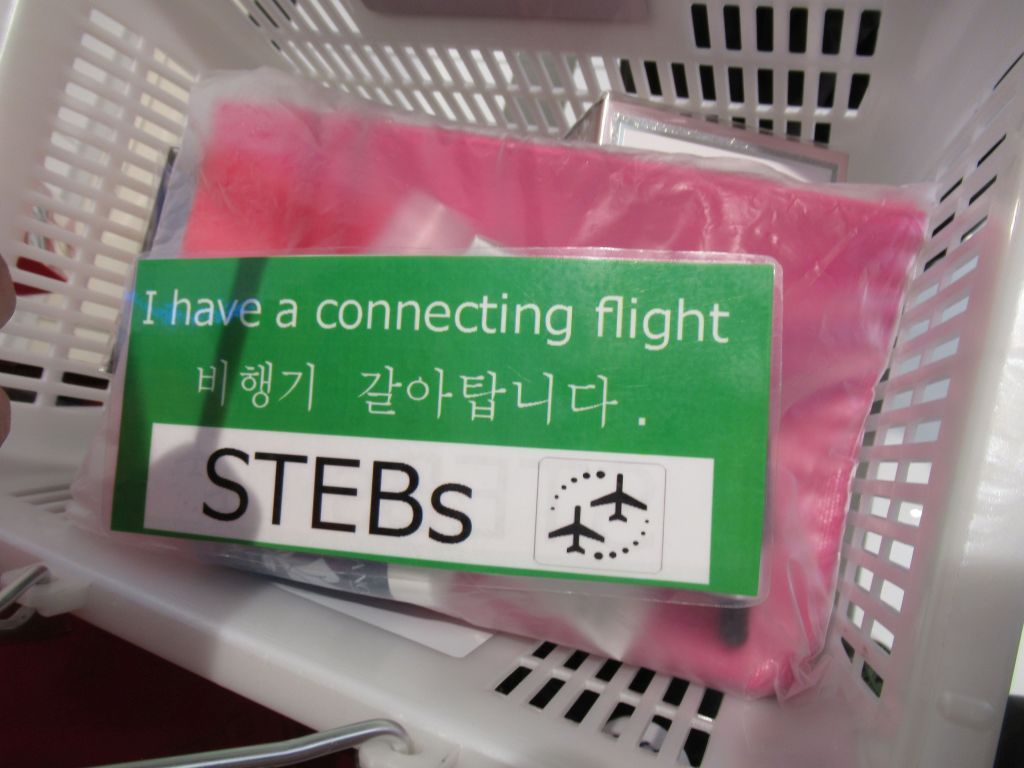
No plane spotting session can be as expensive as in KIX. I should recognize that my wife spent zero HKD at the duty free in HKG two months before, but had warned me that she was “saving me money because it would be much cheaper in KIX than in HKG”.
So after I had installed my wife and her shopping bag "much cheaper” than in Paris on a seat close to the boarding gate…
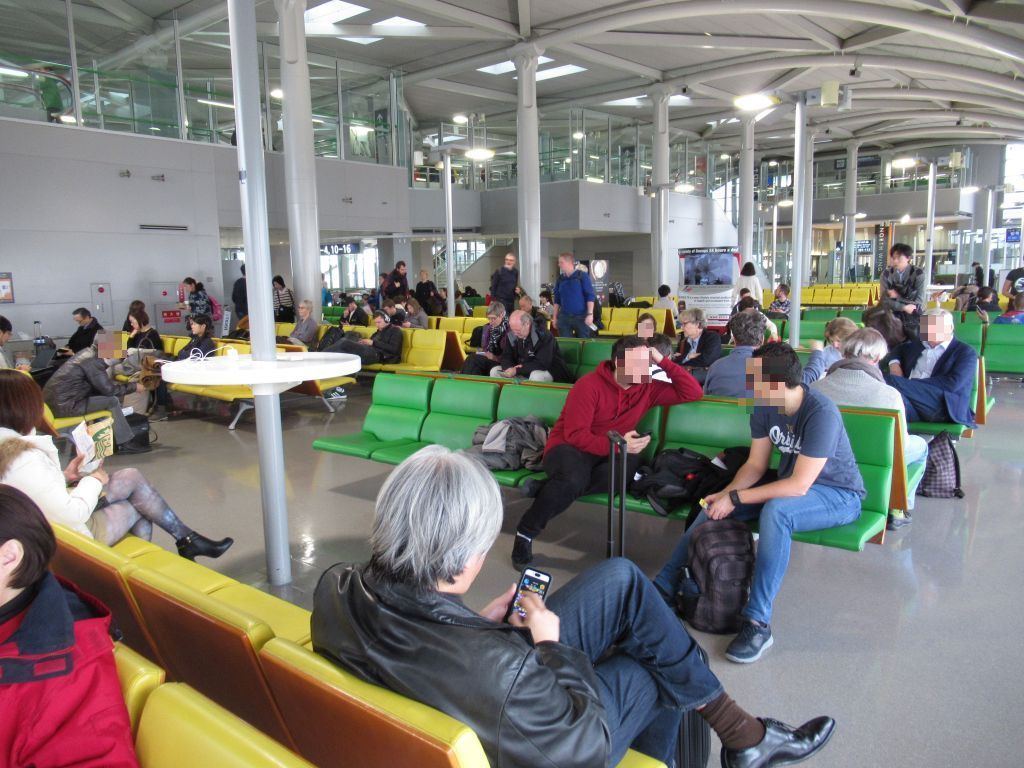
… also close to Finnair’s FAs with their shopping bags, presumably "much cheaper than in Helsinki", I left for some plane spotting which was going to cost me as much as in CDG, i.e. zero euro.
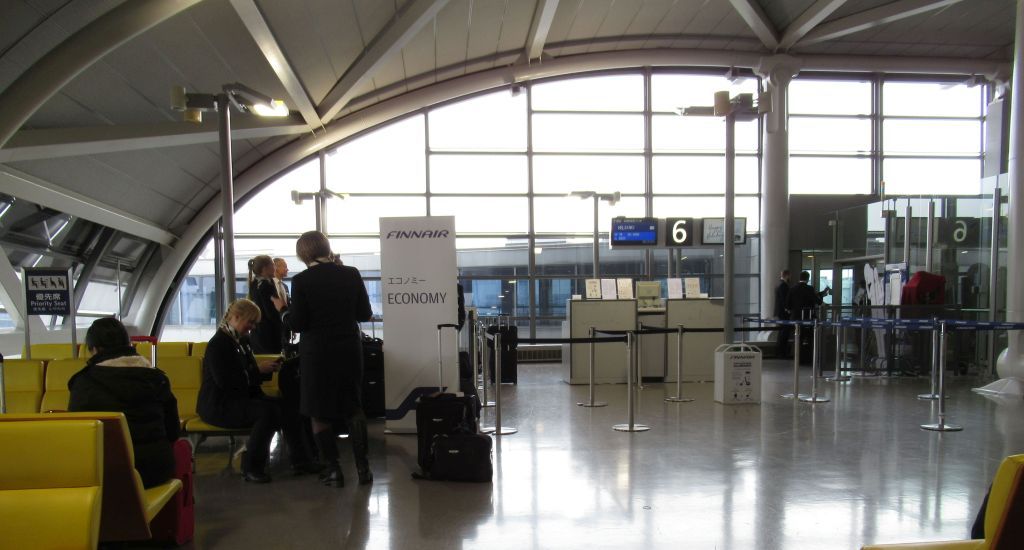
Not only I did not have access to this lounge, but I had not time to enjoy, because it had taken us exactly 1h30’ to reach this point (including only 5’ at the duty free shop, because my wife knew exactly what she wanted to buy). An insider later told me that there was little to regret about this lounge, as often in Japanese airports.
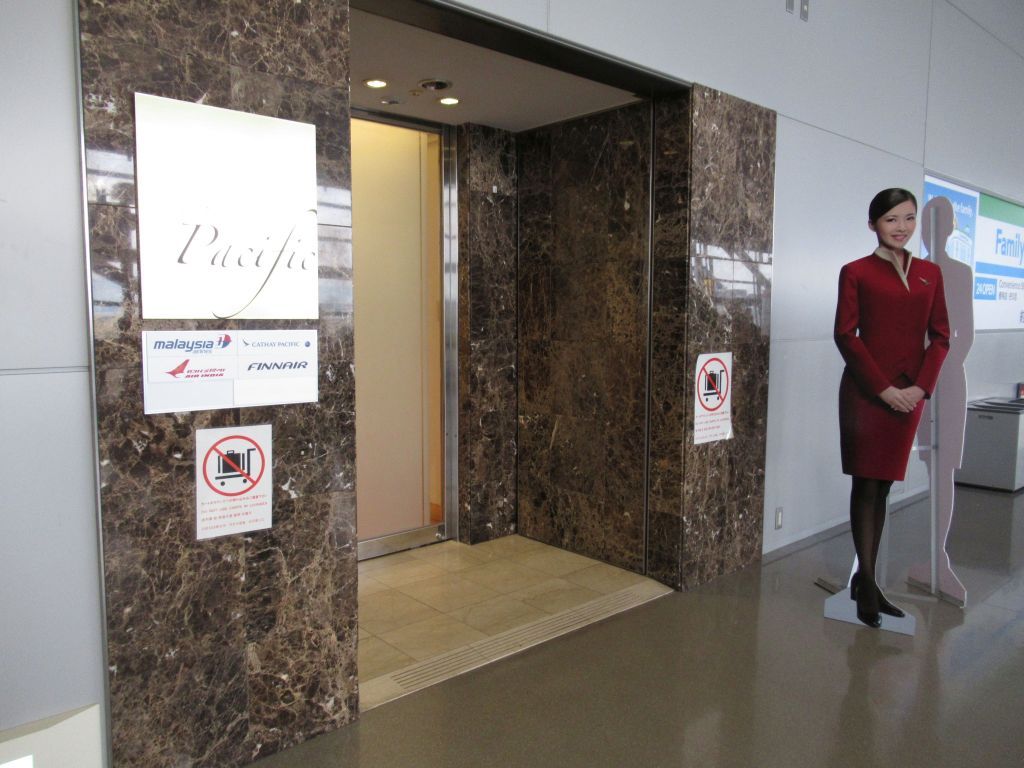
Good news, the catering was being loaded in the Finnair A330-300.

Let’s start with an Eva Air A321
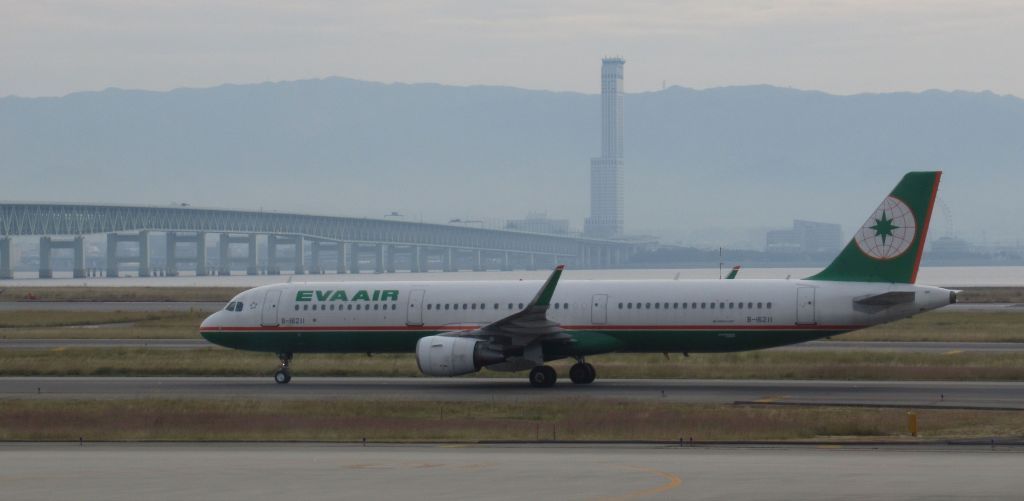
Lufthansa 747-400
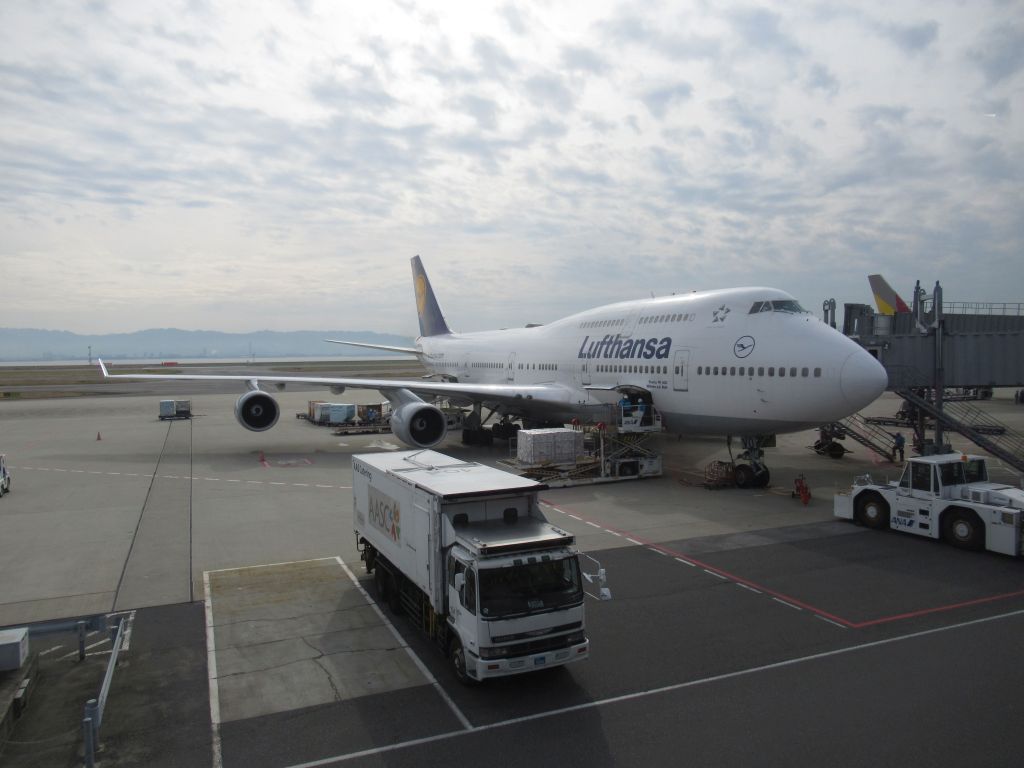
738 United, with a “scimitar” winglet, bound for GUM
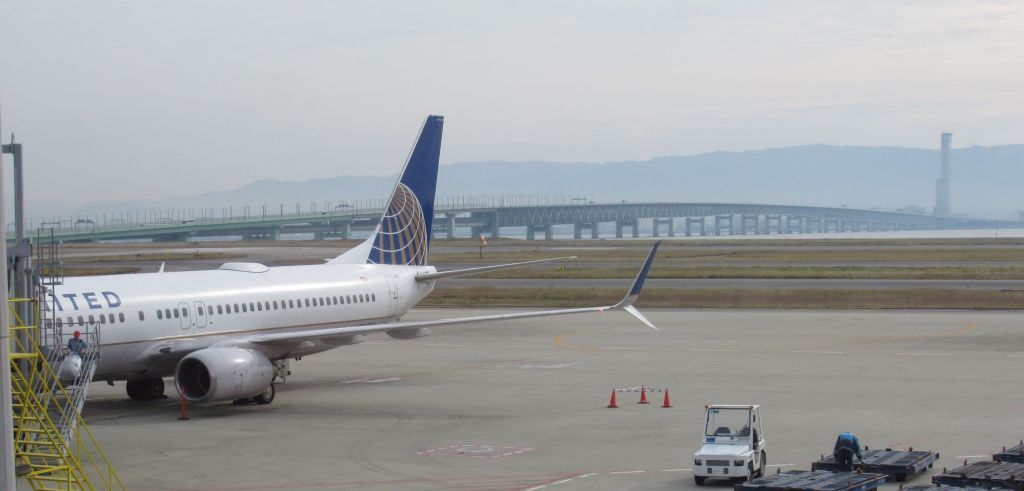
… that these impeccably ordered high school students are going to board.
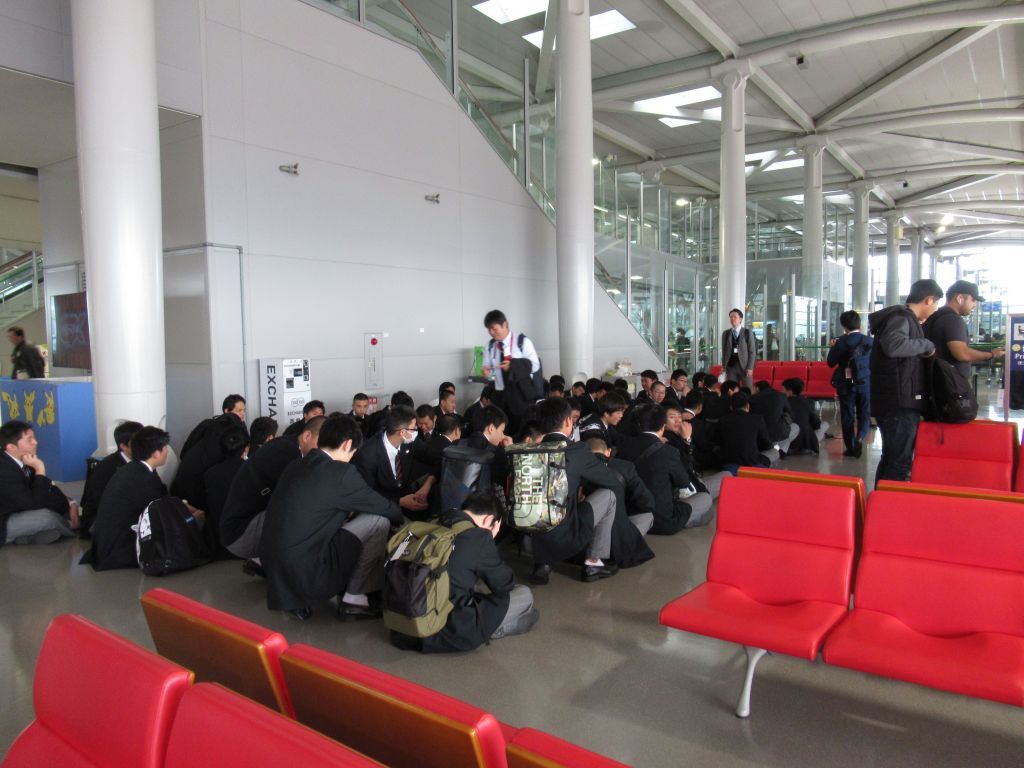
777-300, which spent her 20 year career with Cathay Pacific only
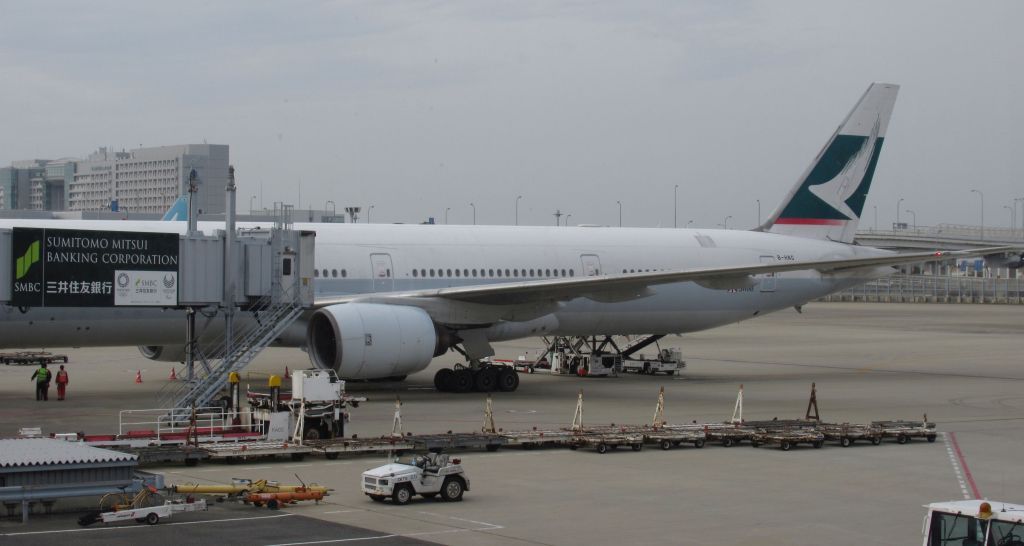
There she leaves with the LH 747’s wing in the foreground
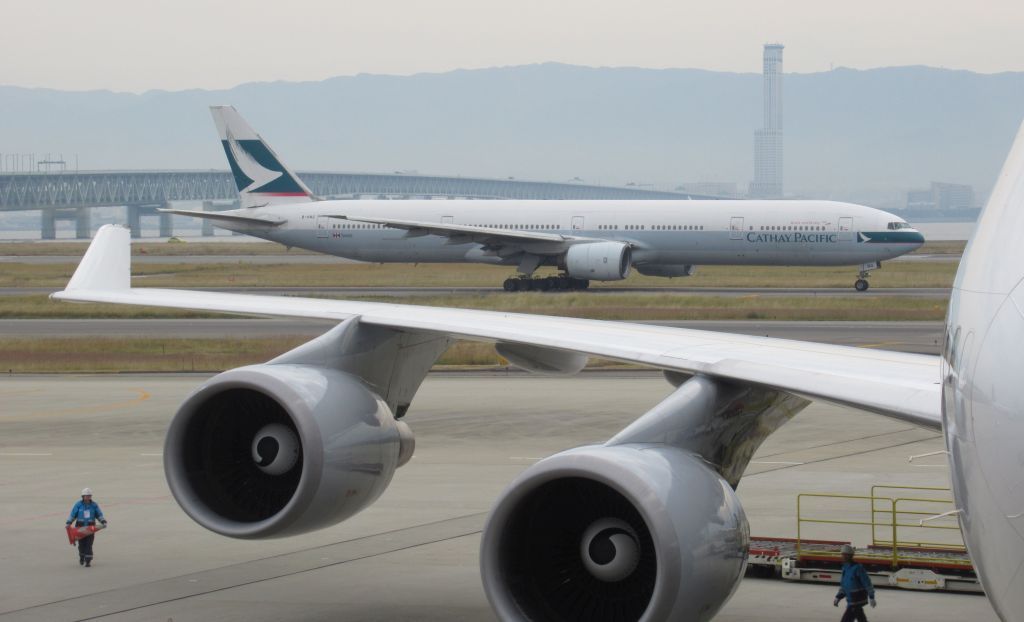
Asiana Airlines 772
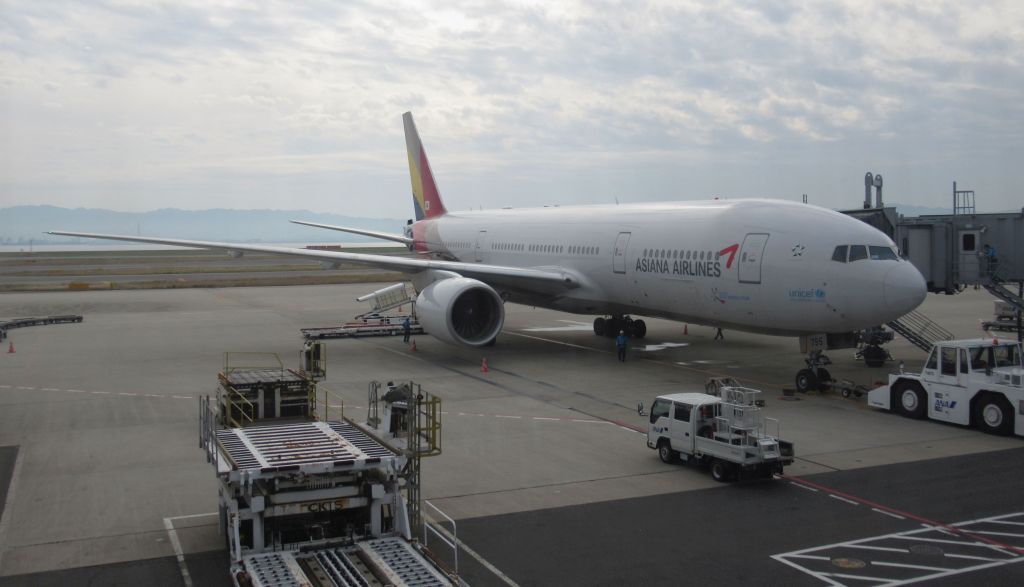
ANA 737-500
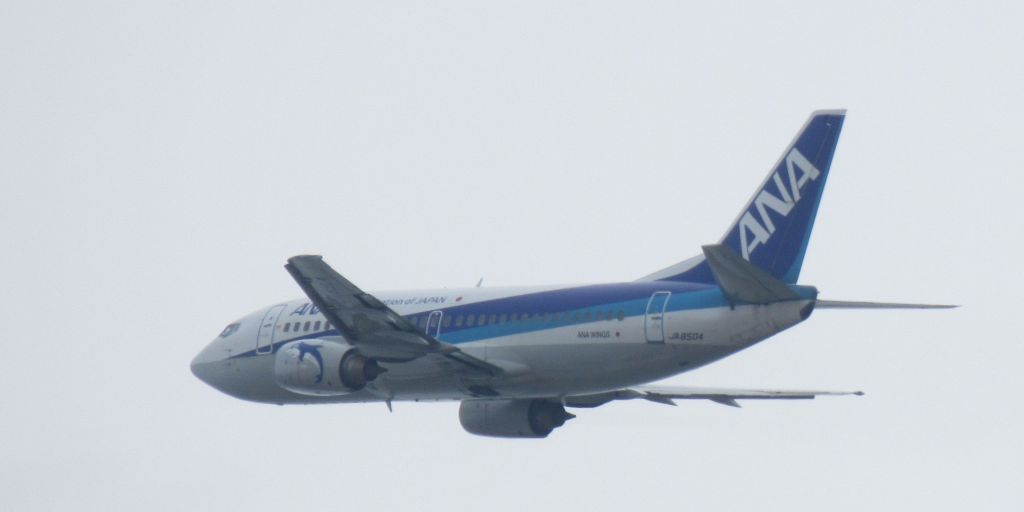
ANA A320neo
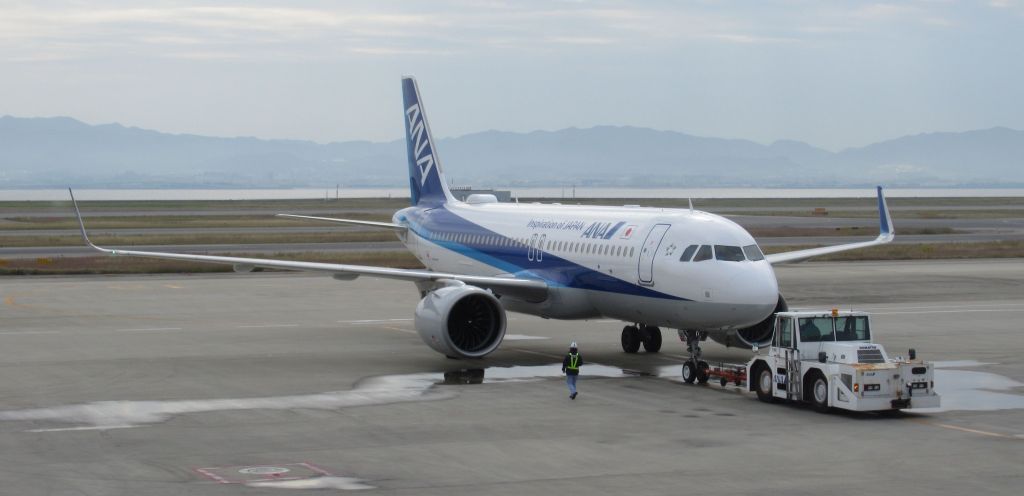
ANA cargo 767-300
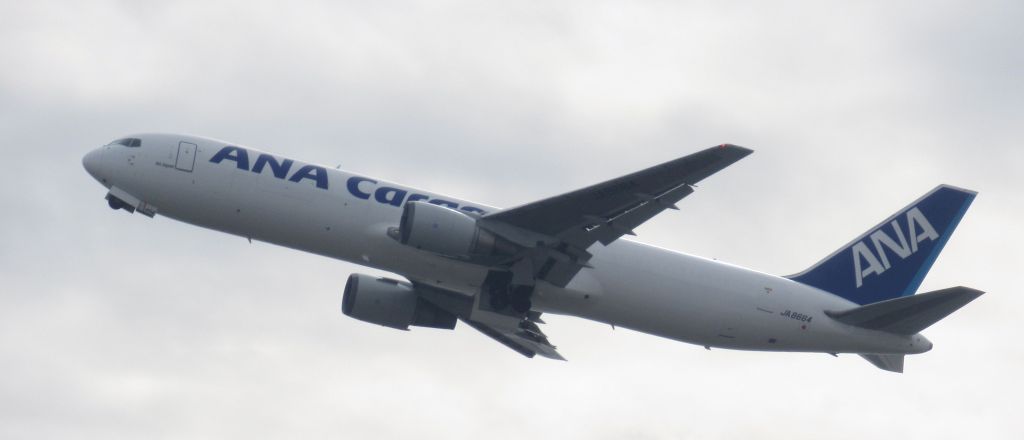
Eva Air A330-200
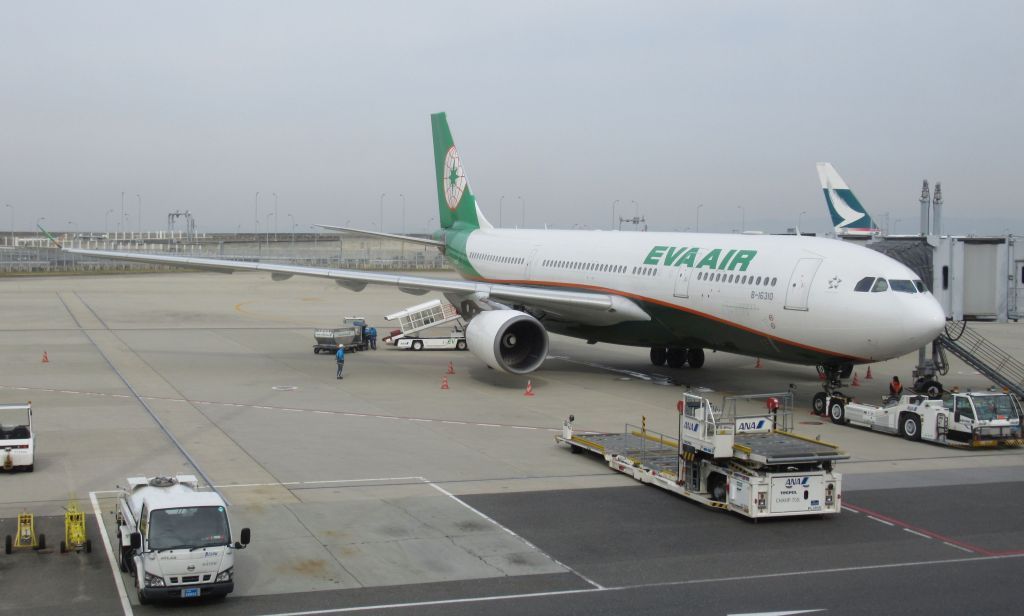
Jeju Air 737-800
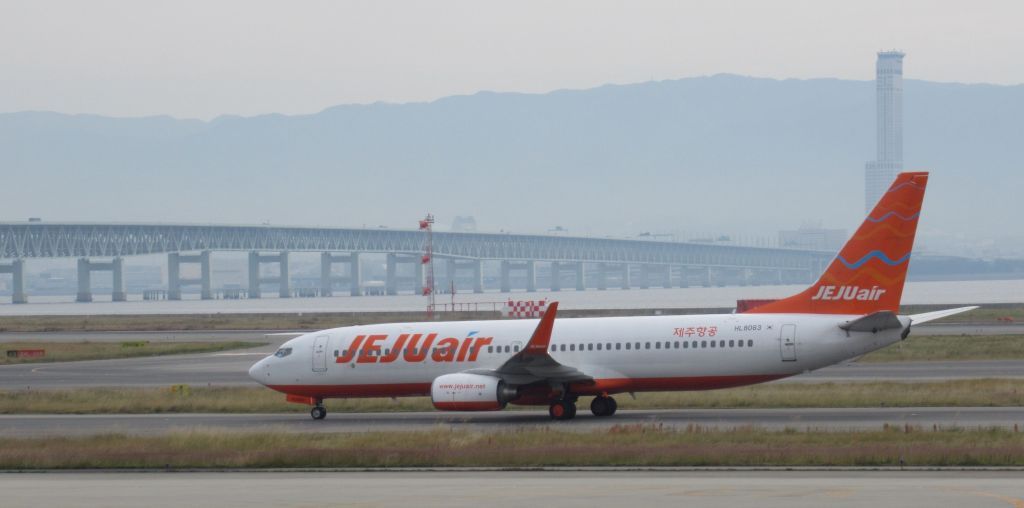
Korean Air 737-900
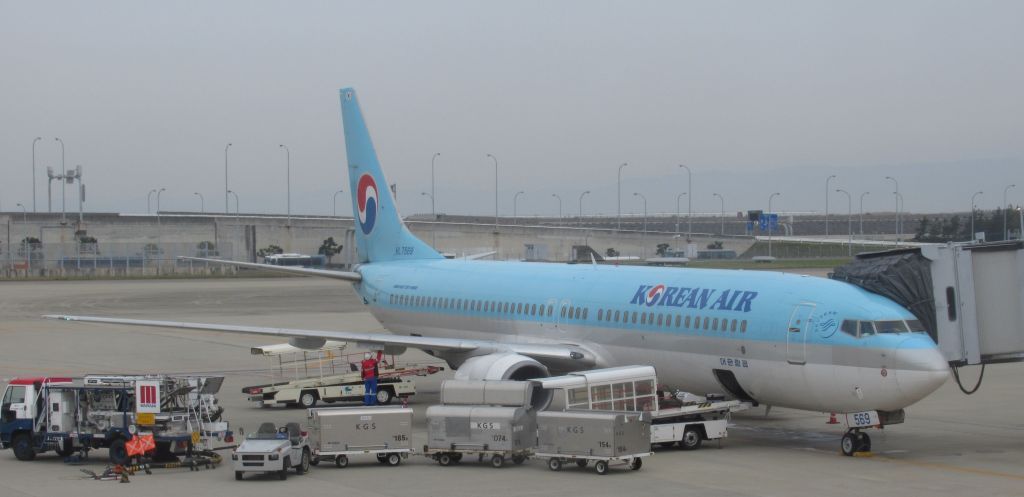
Thai Airways 777-300ER
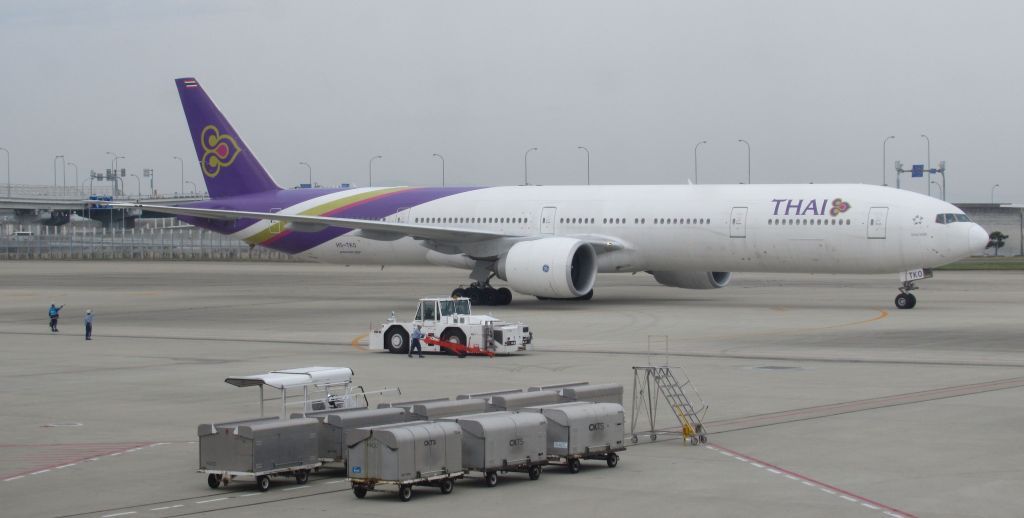
Back to the gate where the Finnair 333 seemed ready to leave (and so was my wife)
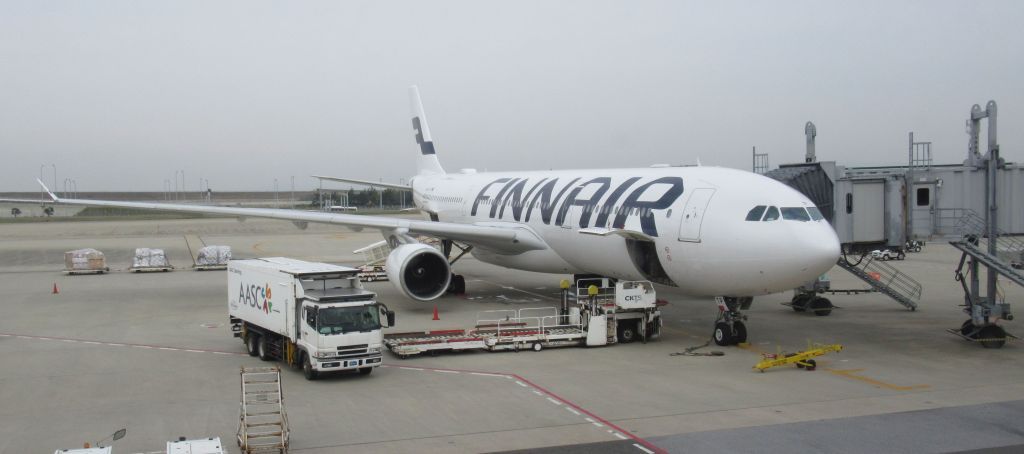
She had not tried to get rid of her small change because this was not going to be our last trip to Japan. (“World cash to e-money" : this is a rather limited vision of the world, because this machine only accepts USD, EUR, CNY, KRW and JPY. The idea of transforming your spare coins which are useless abroad into dematerialized coupons is interesting.
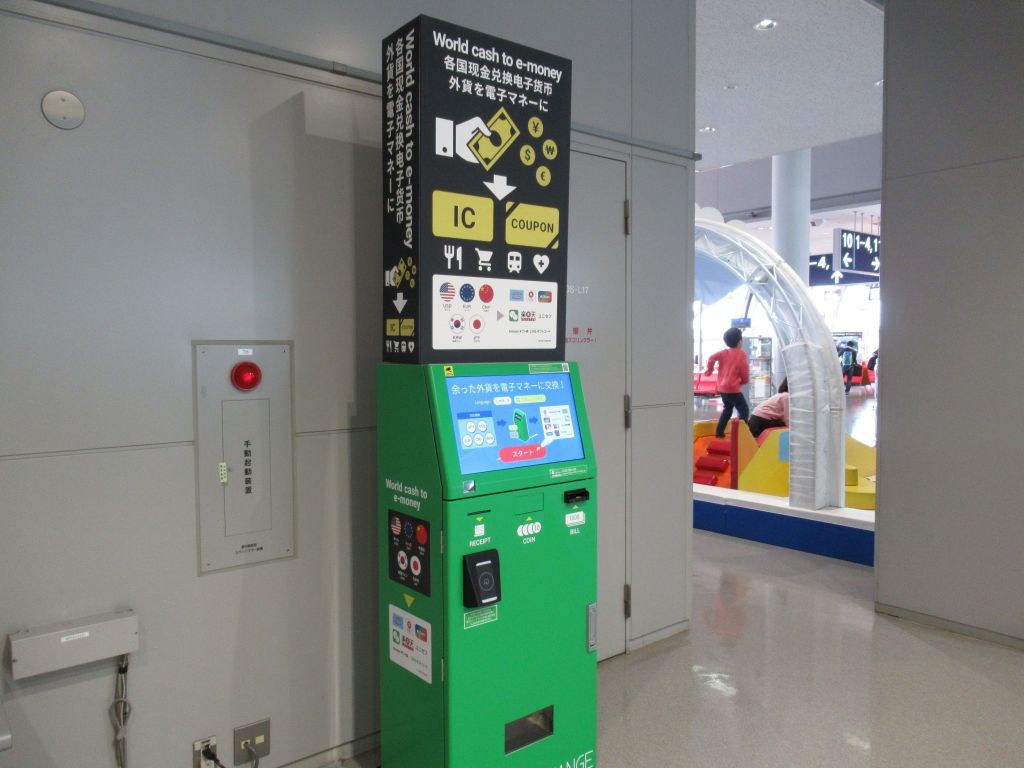
She could have recharged an electronic equipment on the condition of having a type A or B adapter.
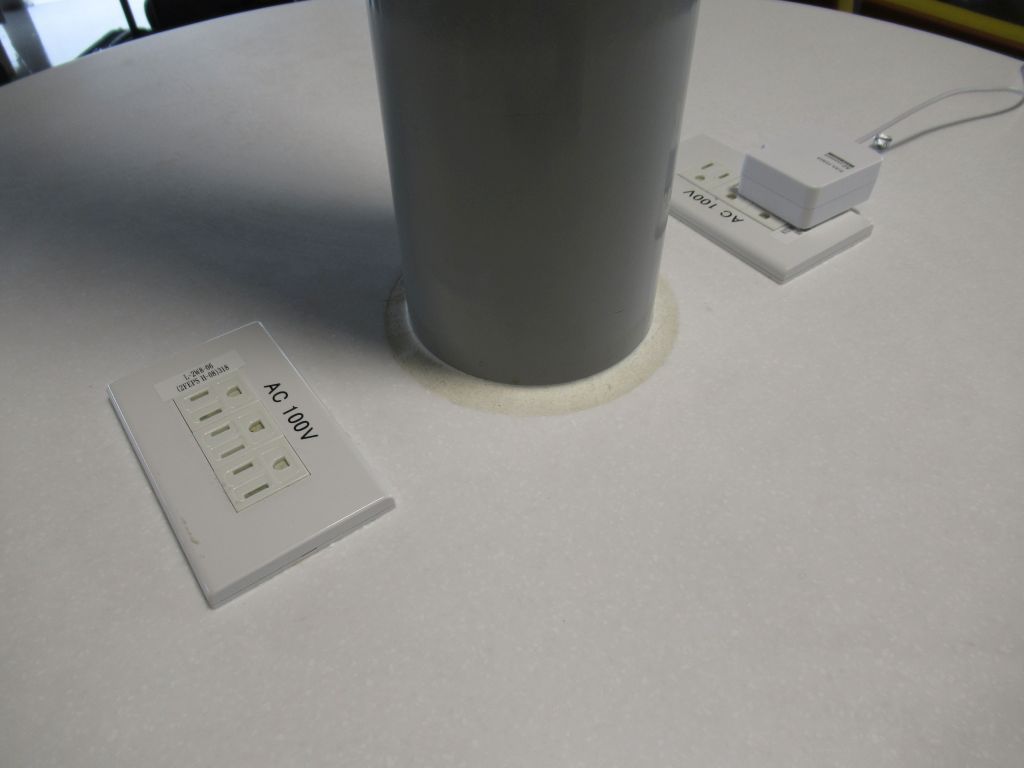
She stopped using these facilities decades ago.
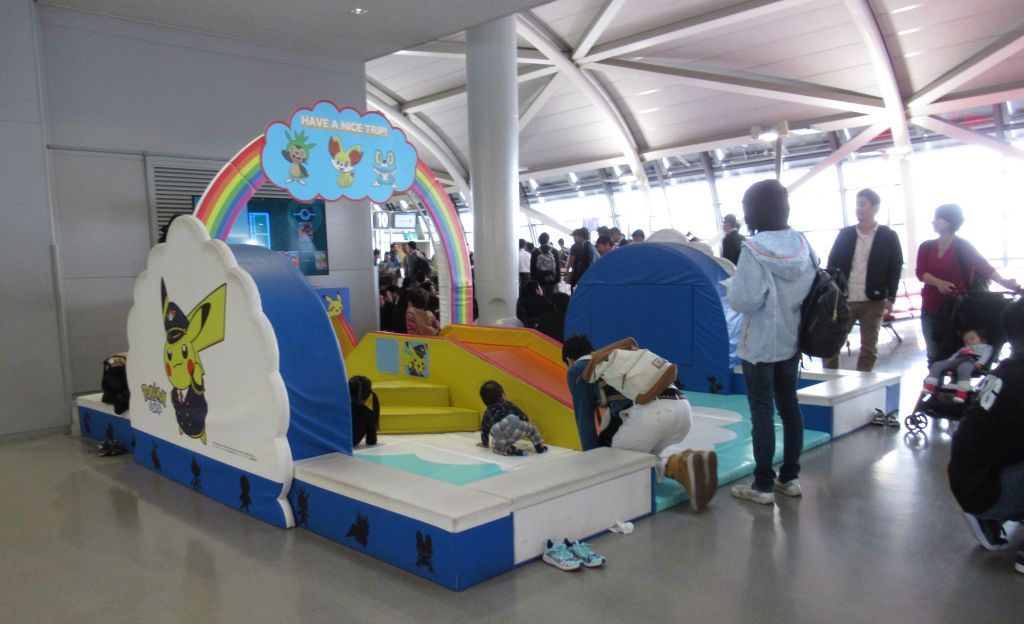
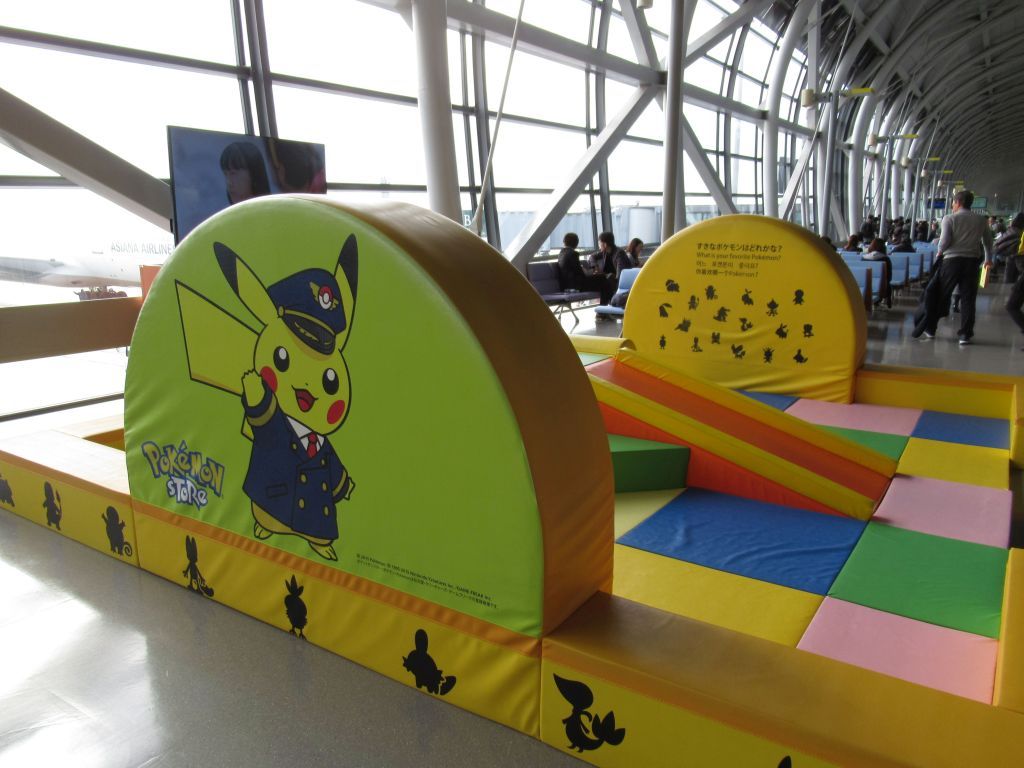
And there has been no earthquake of magnitude 5 or above.
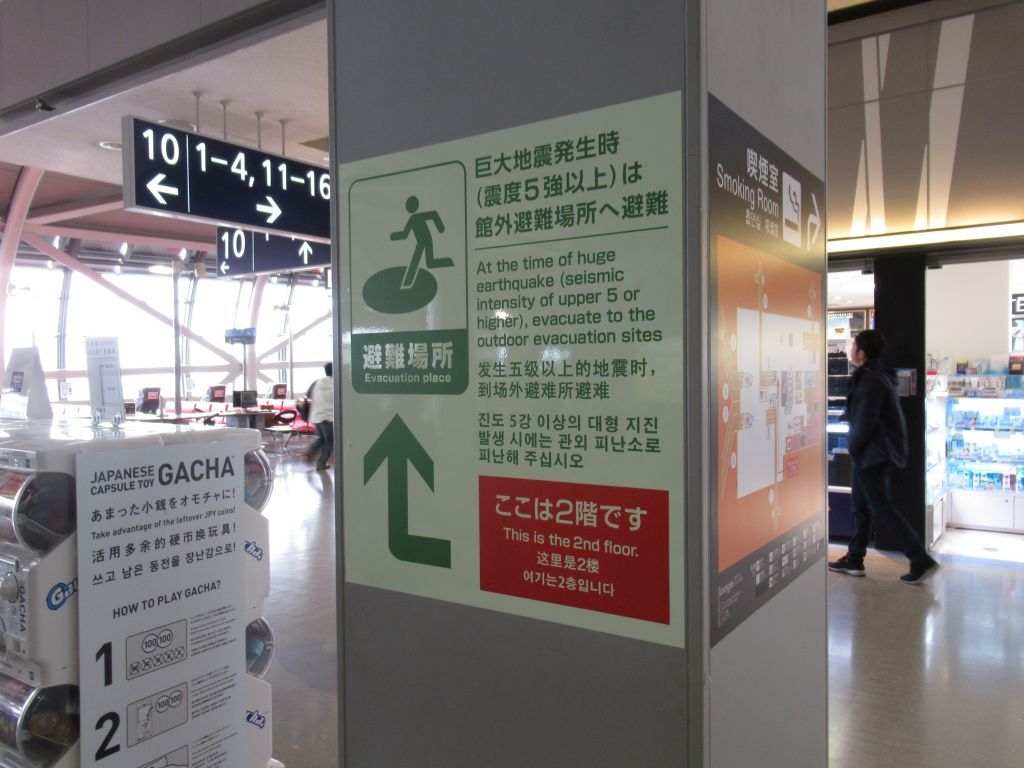
Door shot
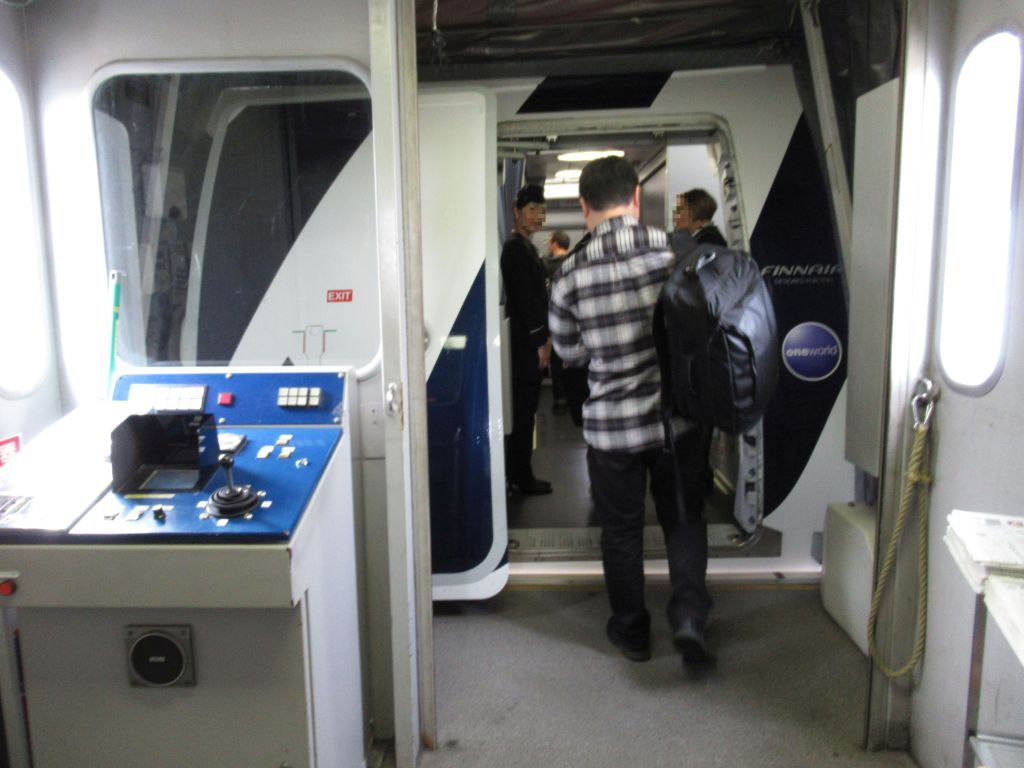
Fuselage shot
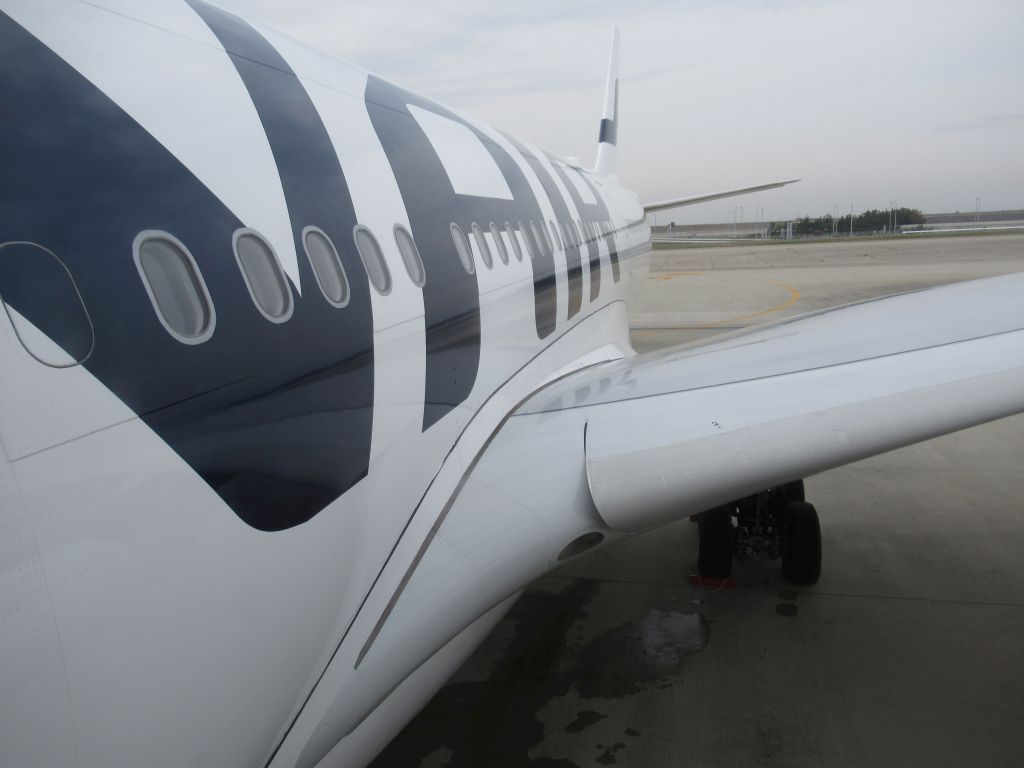
The newspapers offered at the end of the jetbridge. The Asahi Shimbun headlined of course on the 40th national tournament victory in Fukuoka of Hakuhō 白鵬, the leading yokozuna 横綱 (grand champion) of this decade who crushed his opponents with a 14 wins vs. 1 loss record that time. Sumō has lost part of its aura though, because this sport managed in a less than transparent manner has been rocked by scandals and attracts fewer participants as before. Hakuhō was born Мөнхбатын Даваажаргал : who could have imagines at the time of the legendary Chiyonofuji 千代の富士who dominated the sport in the 80s that his equivalent in the years 2010 would be a Mongolian ?
(Three of the four yokuzuna at the time of the 2017 Fukuoka tournament were Mongolians, but one of them, Harumafuji 日馬富士, had been forced to retire after a bad case of drunken aggression with beer bottles. A very messy business indeed.)
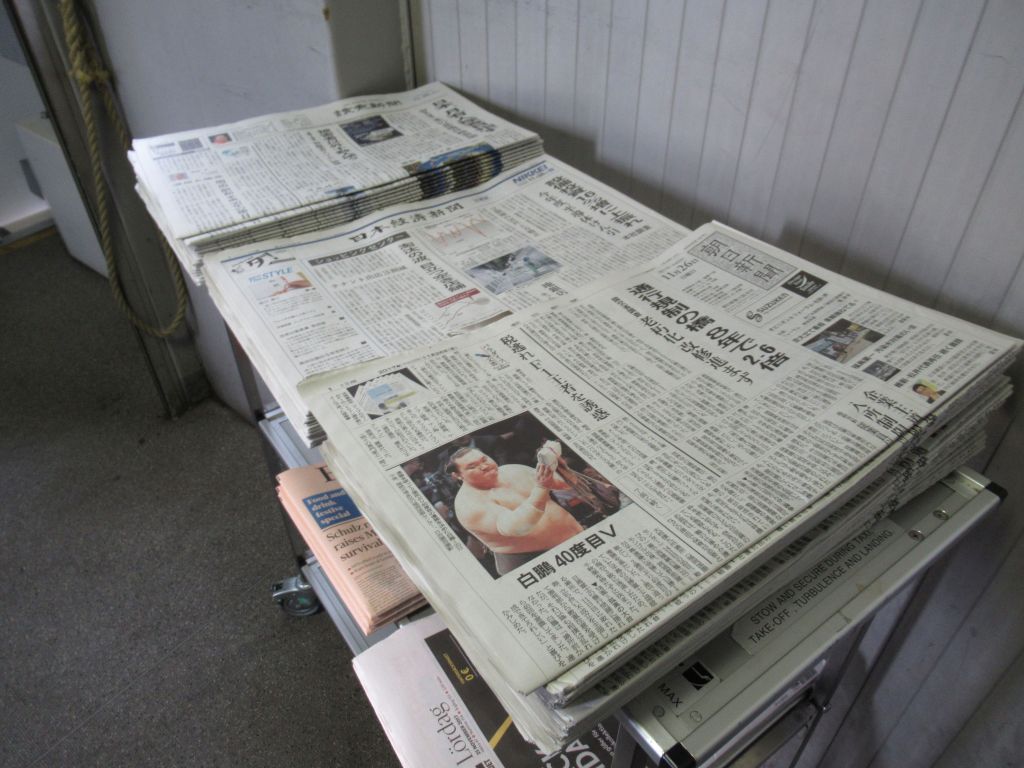
My favorite sport takes much more time, but it is much easier for me to fit in a plane’s seat than a sumō wrestler, even in business class.
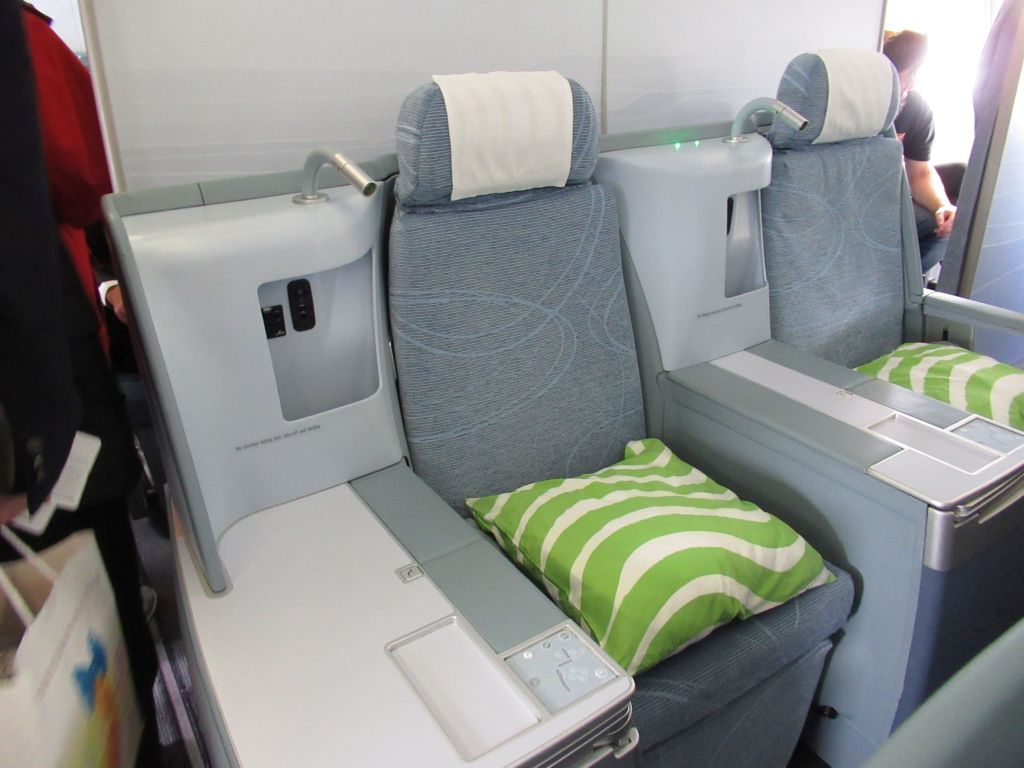
Two nearly panoramic views of the rear Y cabin.
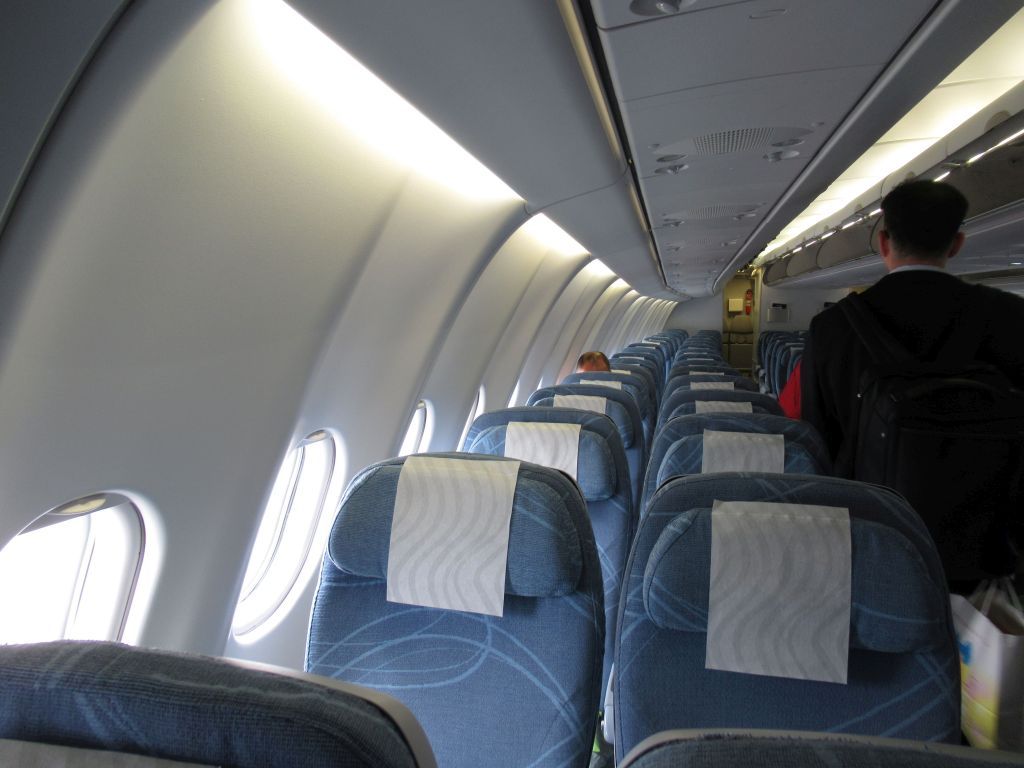
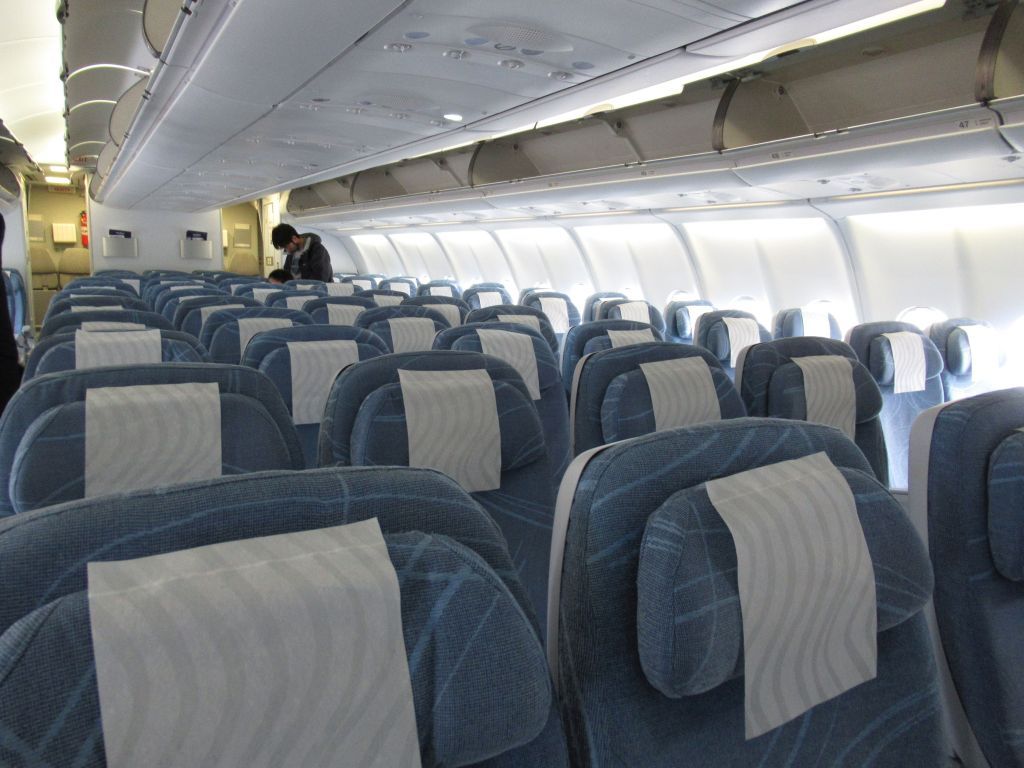
The seat duo behind ours
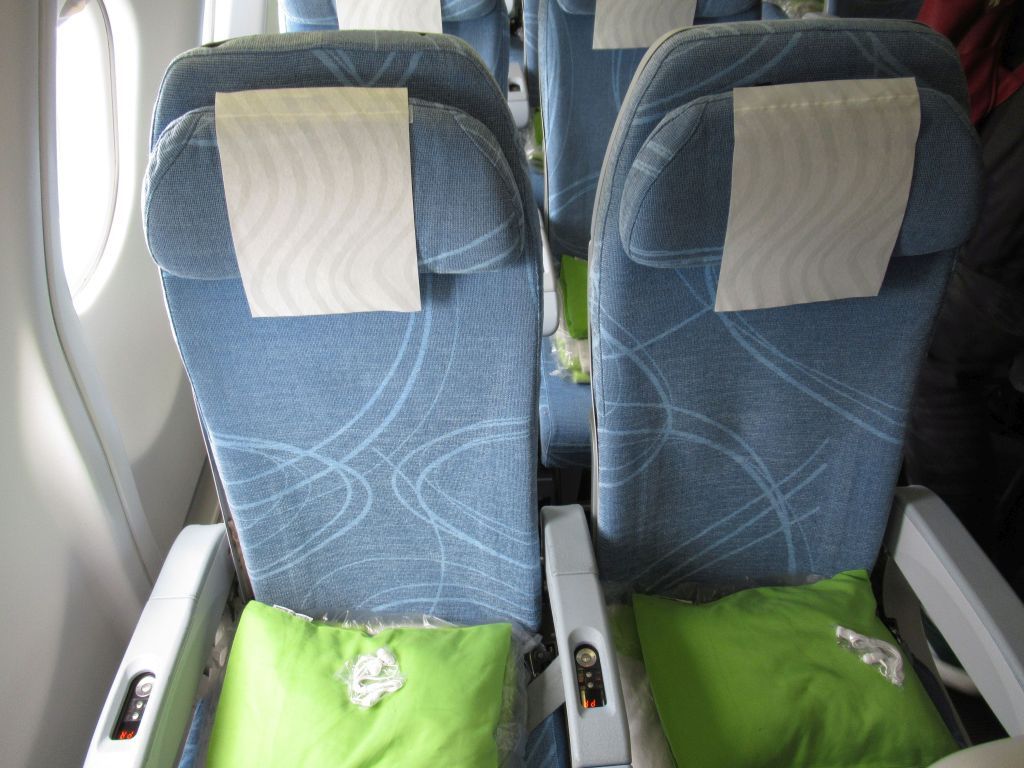
Even if you never tried your chance at sumō, the width of the seat could be a bit tight for some.
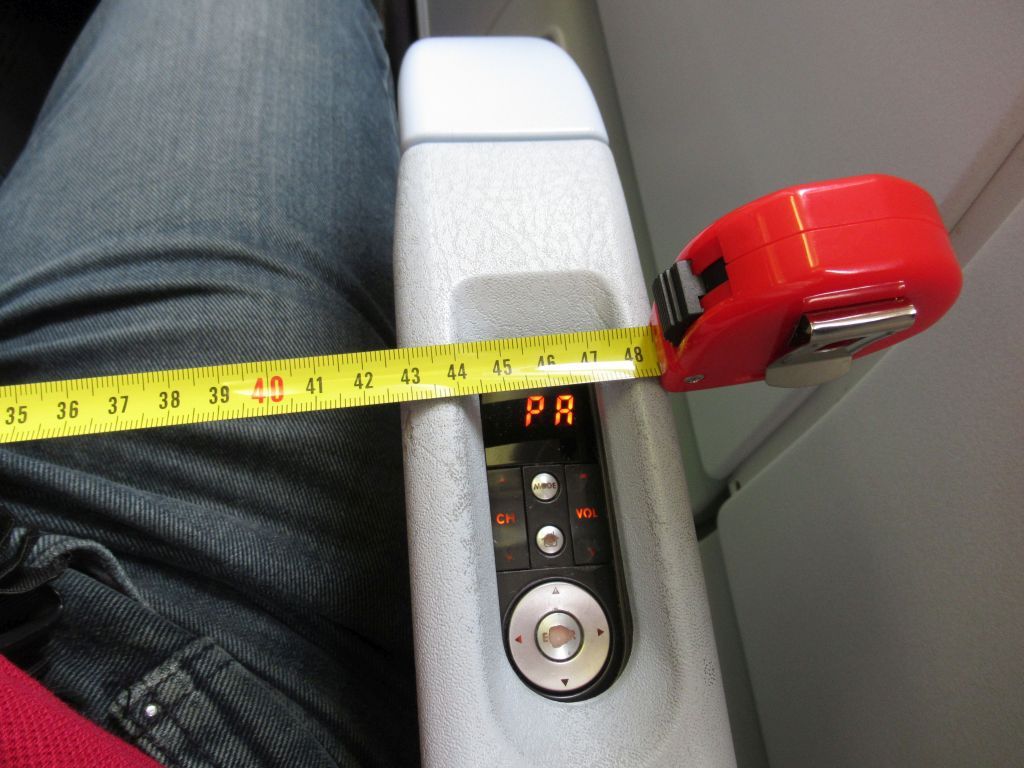
The seat pocket was packed tighter this time
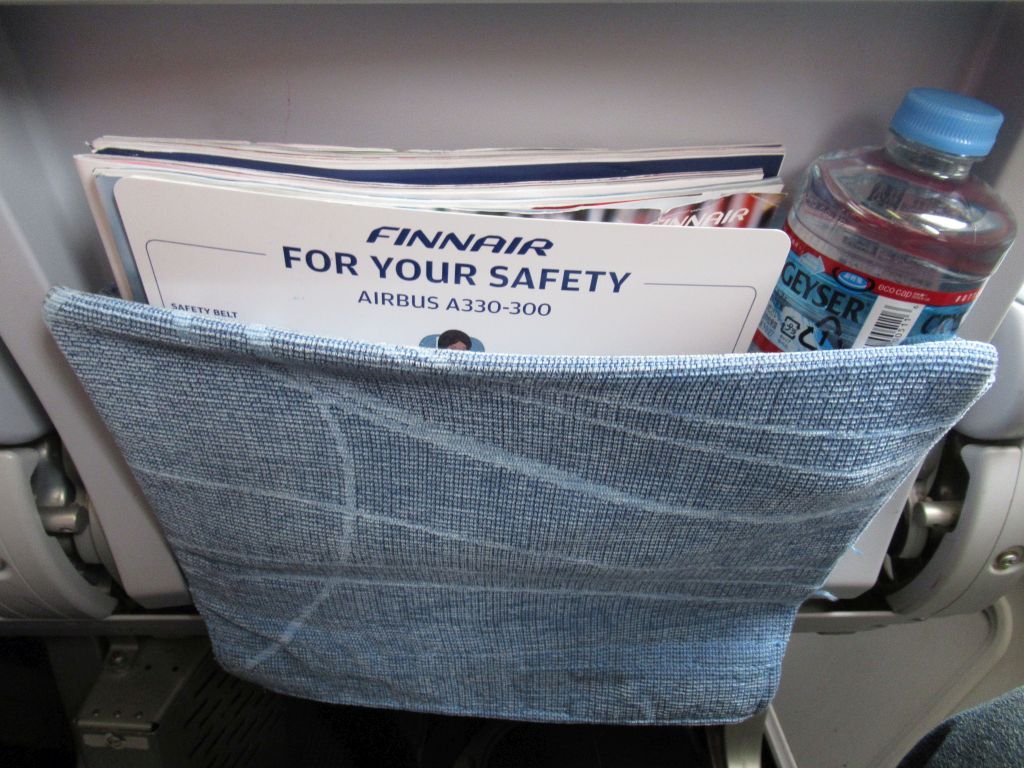
… which improved the leg space a little, but a little only : there is paradoxically less leg space than in the A32x operating between CDG and HEL.
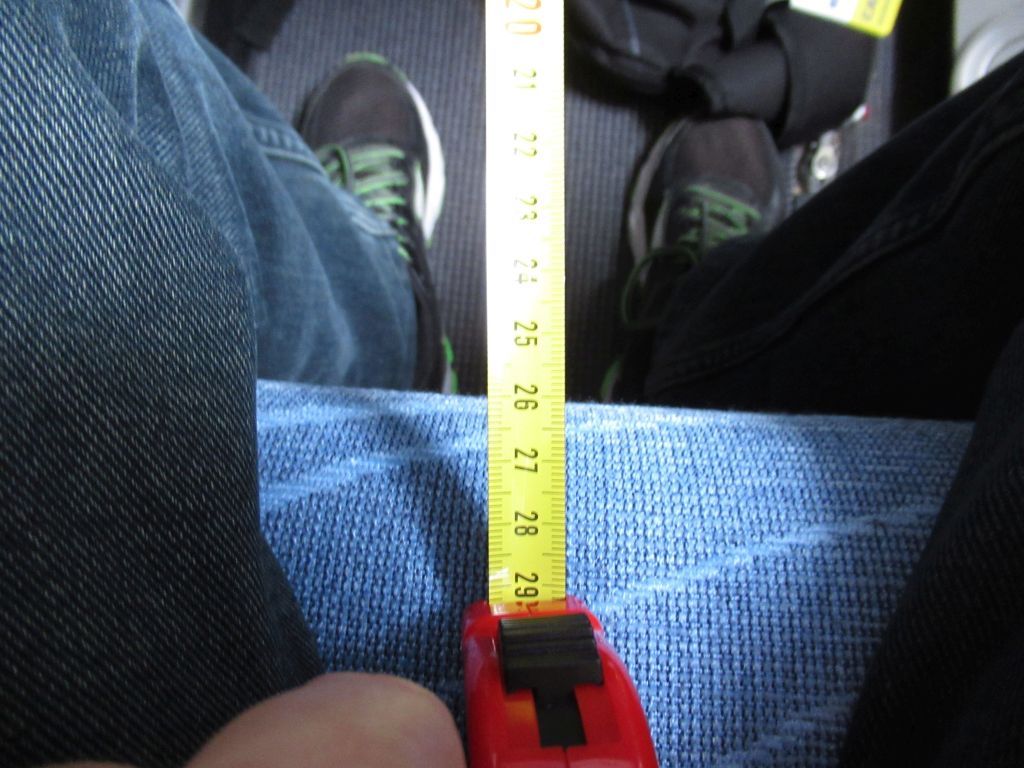
The problem with the IFE box was not its size, but the little amount of data and power in it.
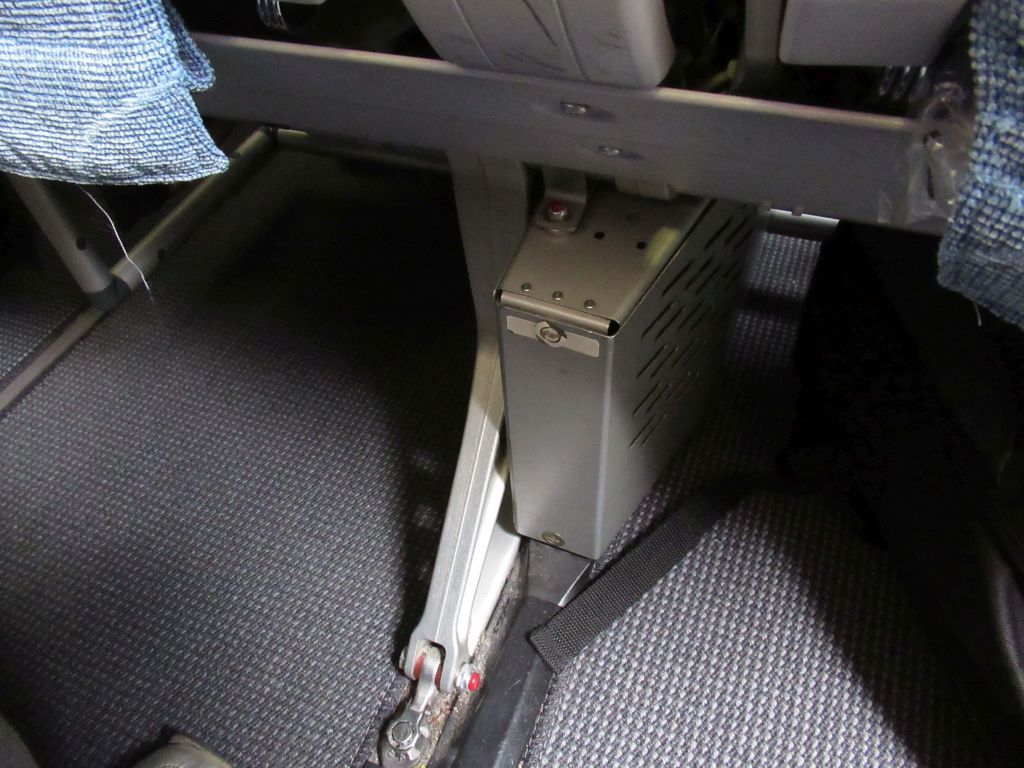
It’s a touch screen, reluctantly reacting to touching it, with also a good old remote control protected from involuntary commands by a lid.
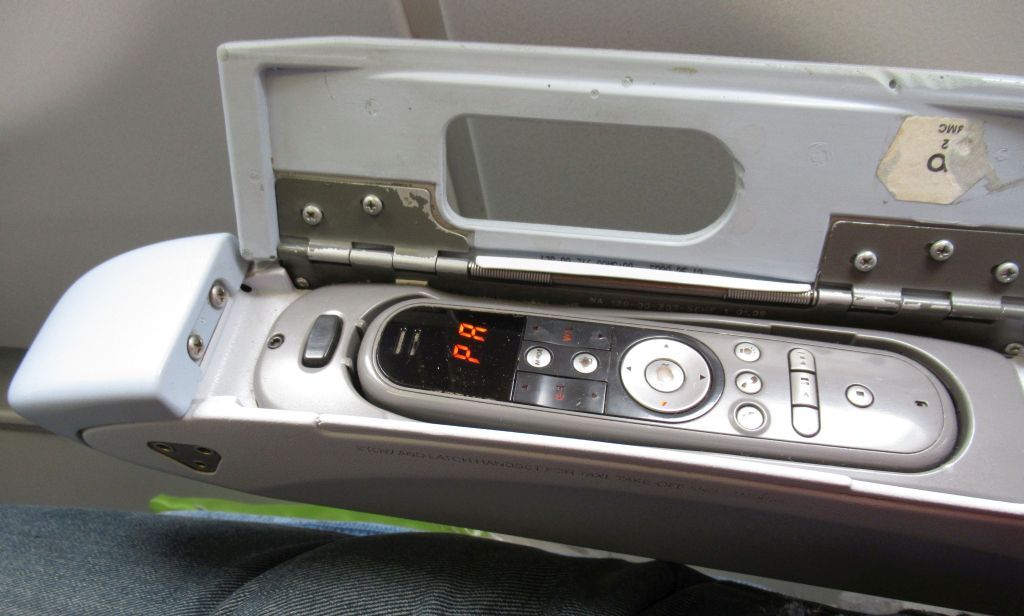
The passengers must suffer a terrible music over the PA, running on a very tight loop. It really beats me why so many airlines choose to inflict this sound pollution on their customers.
The safety card both sides.
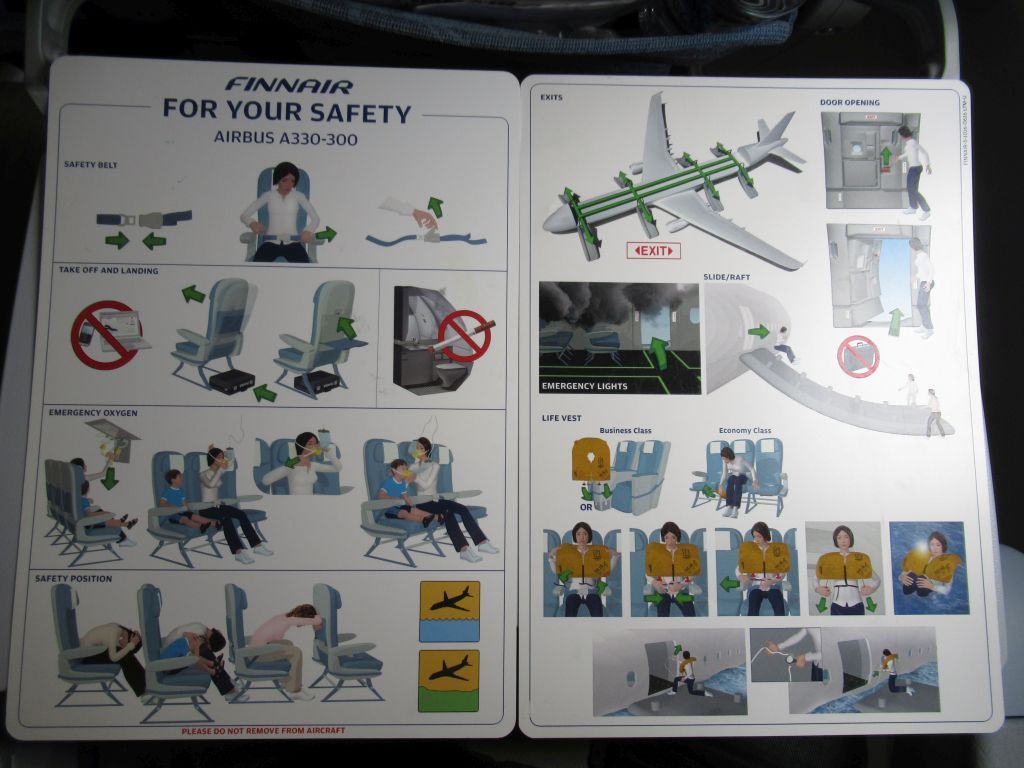
Using a people mover is mandatory for reaching this end of the terminal.
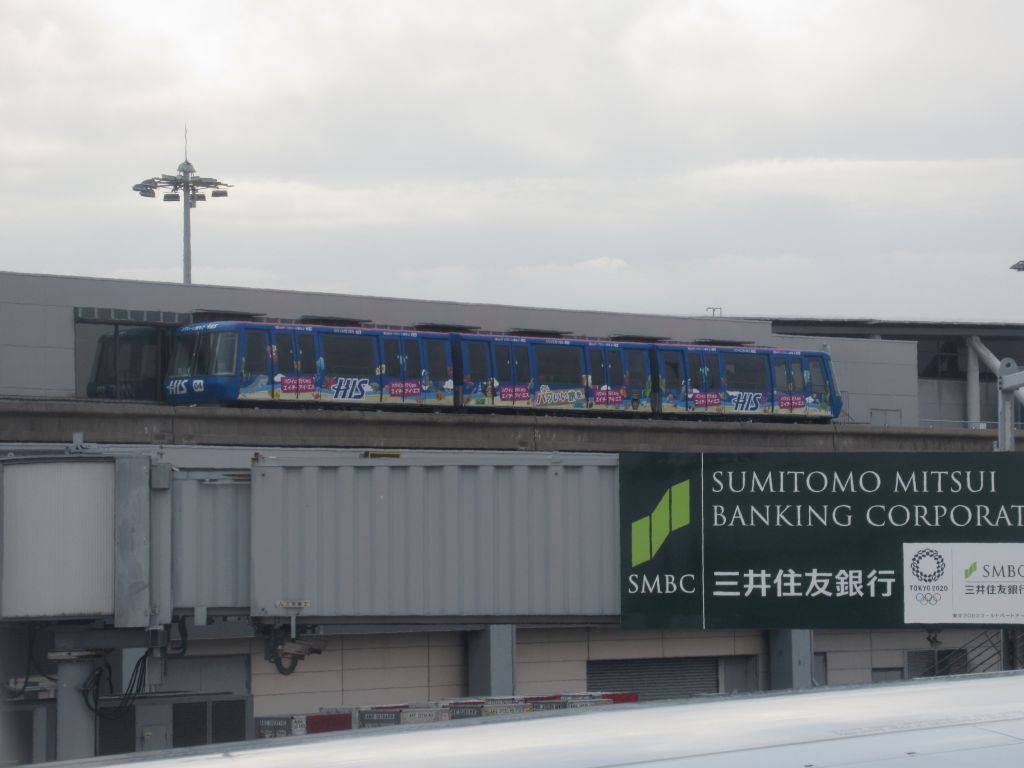
In Japan, not only does the ground staff wave to a departing plane, but they bow too, like the personnel in any store, like the TV animators, like anybody in the streets, like my friends at the end of a phone call, like me in Japan. Saluting or thanking by bowing more or less deeply is an acquired reflex in Japan.
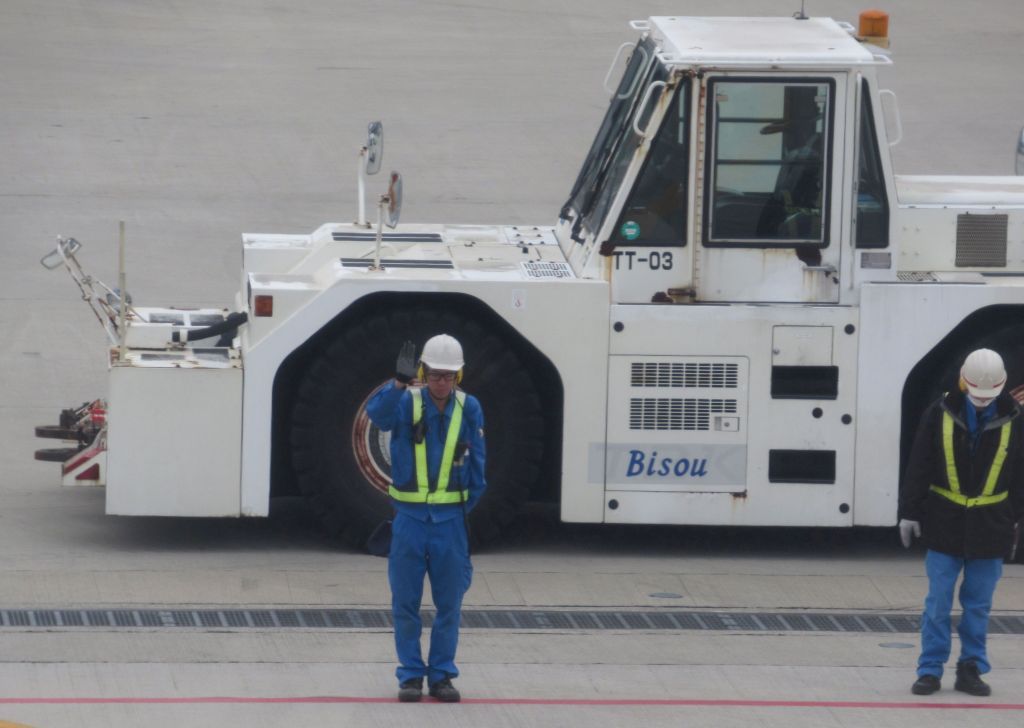
Taxiing began alongside some more planes, like this 777-300ER which had not needed much of her Extended Range to come here.
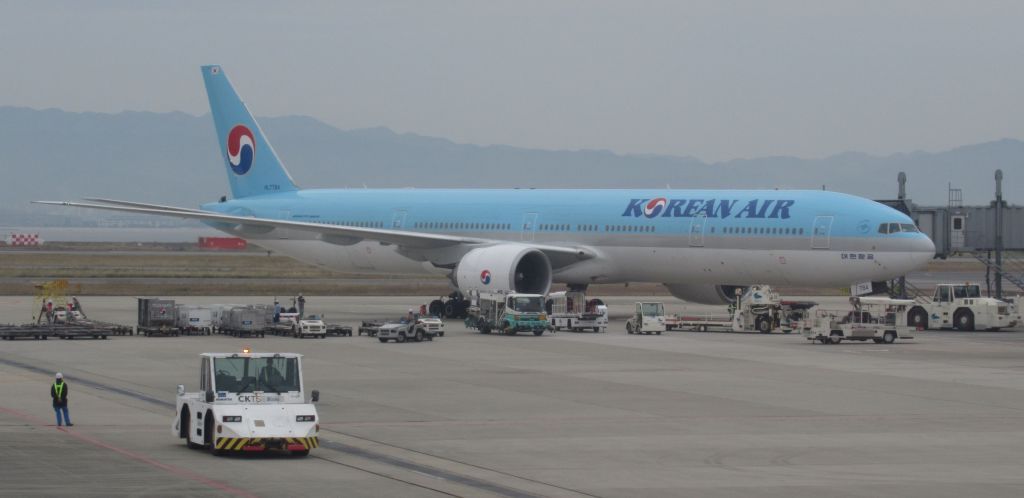
Air Busan A321
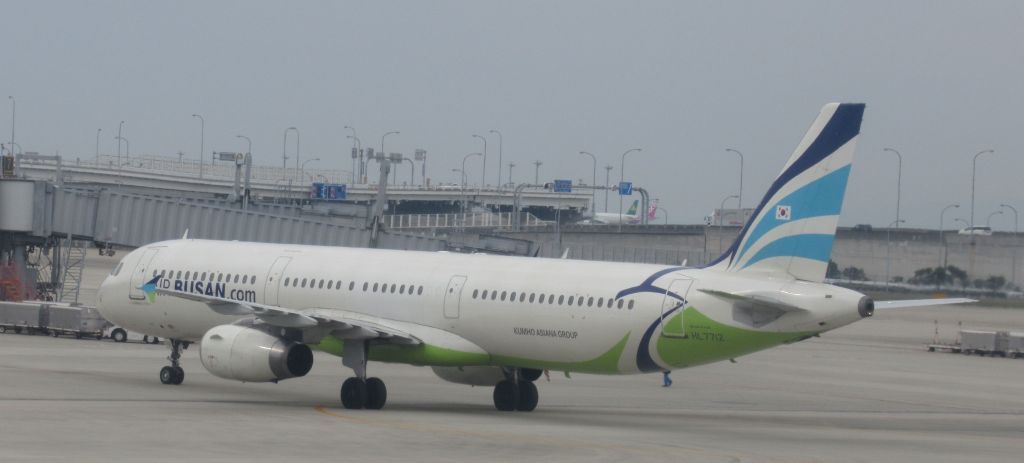
Tianjin Airlines A320
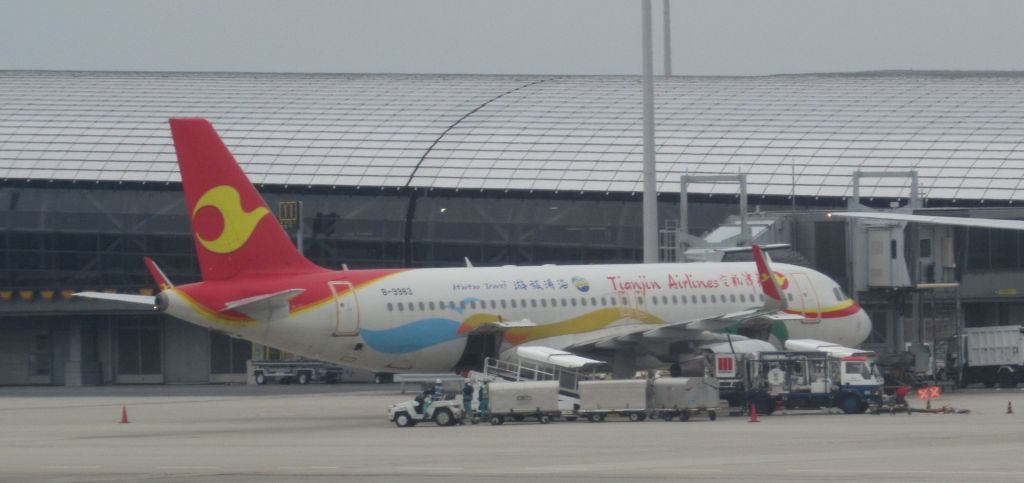
Arrival of an Eva Air A330-300 Eva Air equipped with a satellite antenna for internet access on board – the protrusion towards the rear of the fuselage.
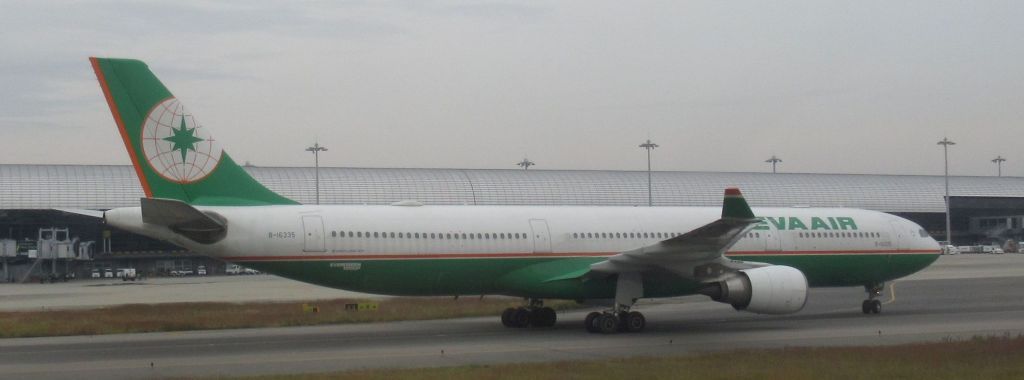
Jetstar Japan A320
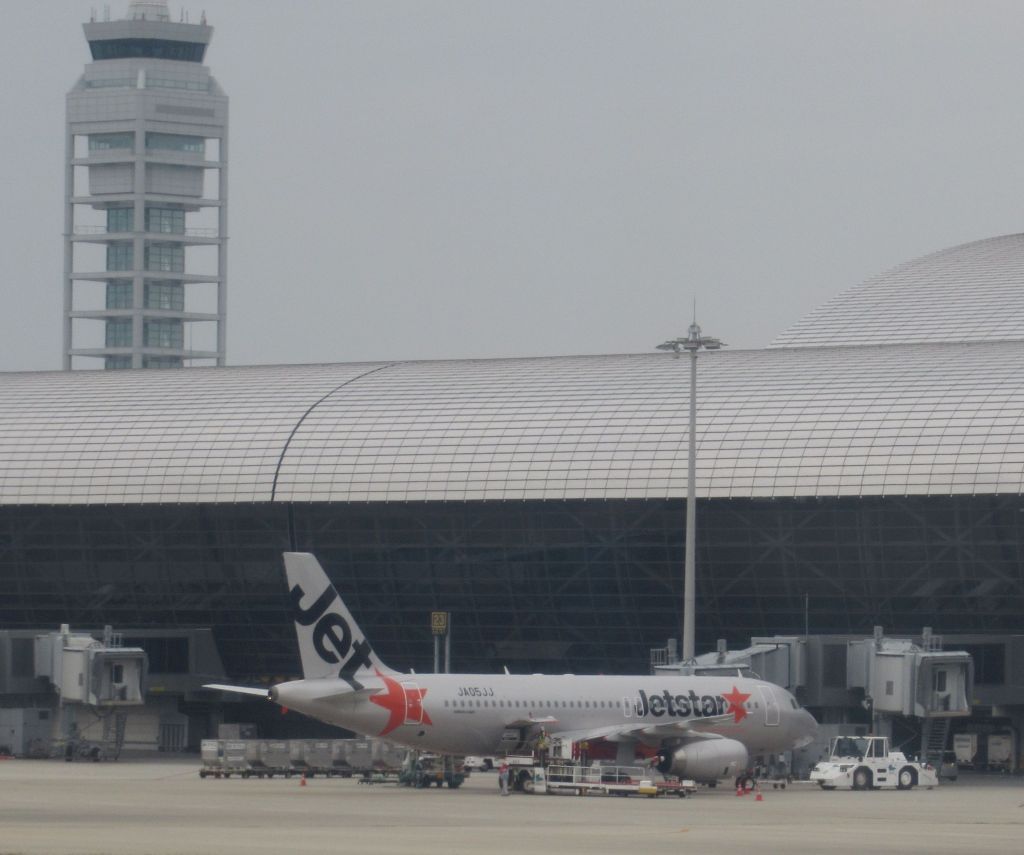
Garuda Indonesia A330
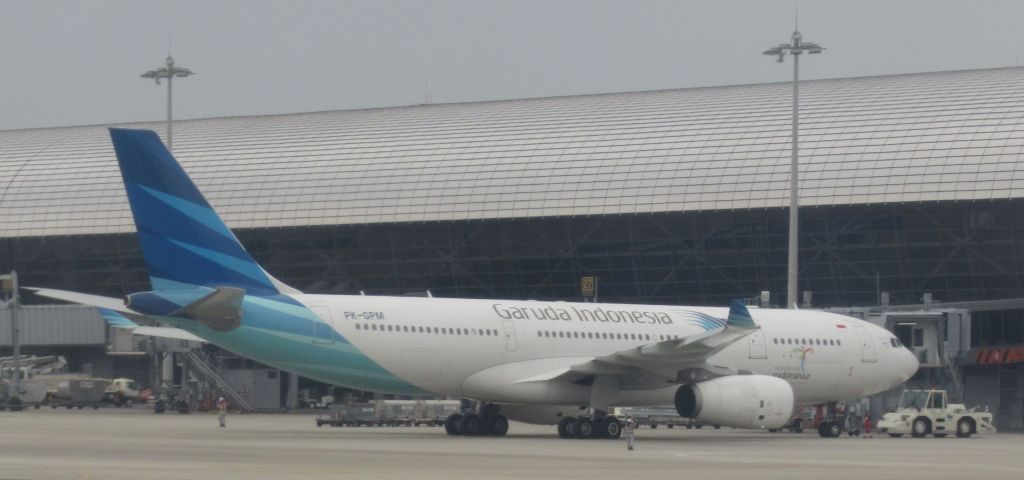
Arrival of an Eastar Jet738
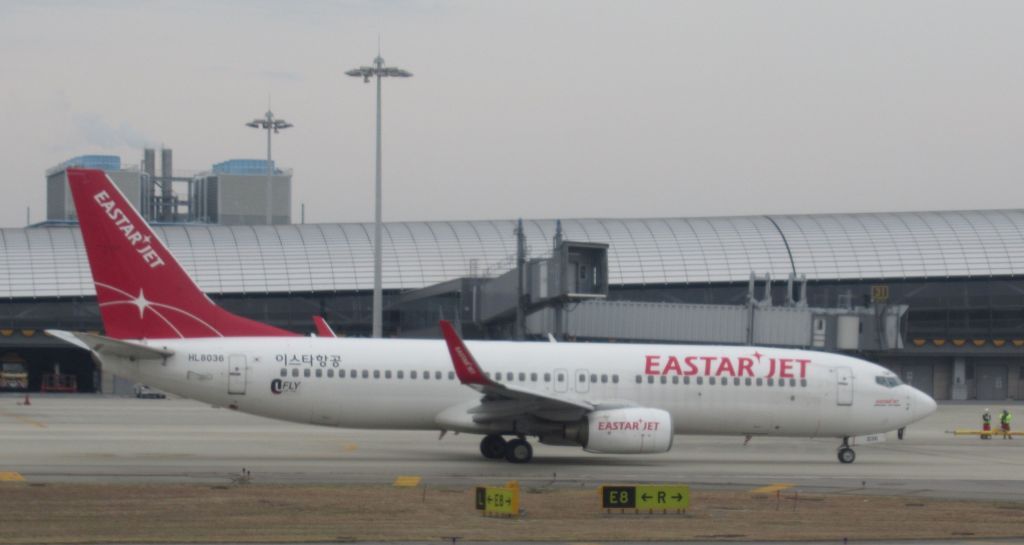
This DHL A300-600 in the freight area was going to celebrate the 25 year of a career which began in passenger version with Japan Air System – the sealed windows are still visible.
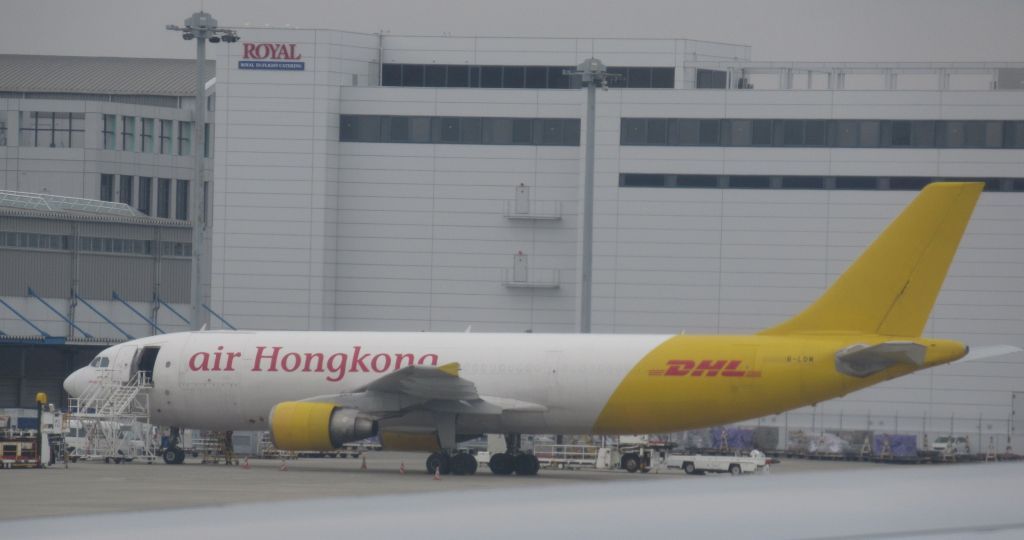
A China Airlines747
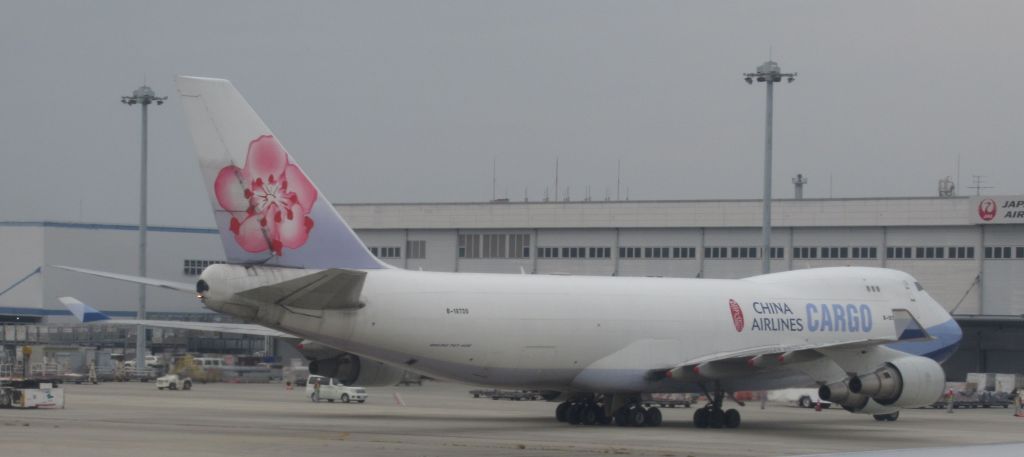
And an ANA767
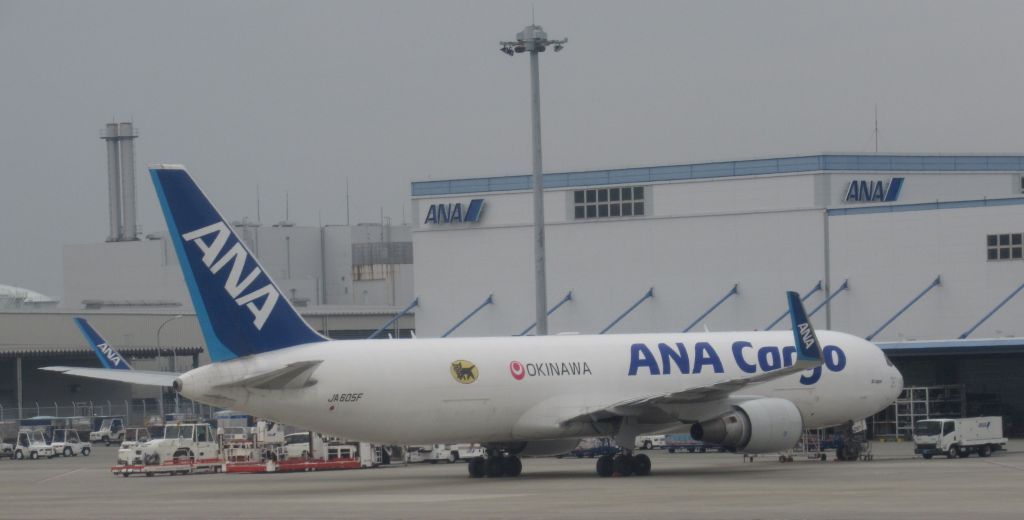
A front camera told us that we were closely following another aircraft
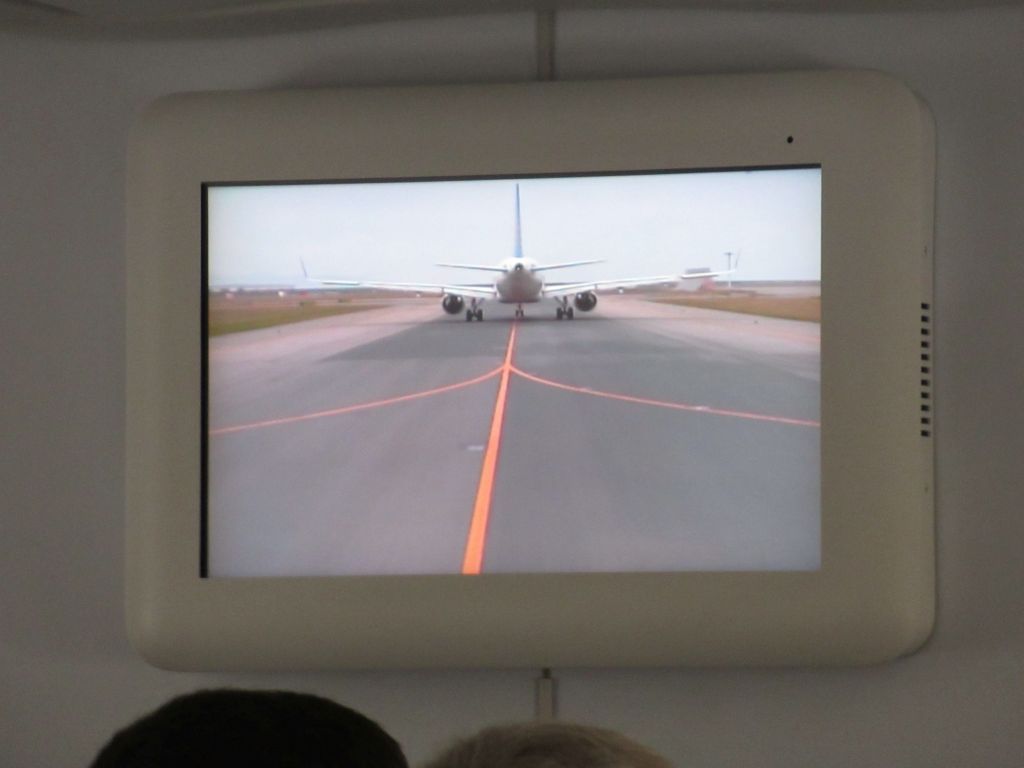
In the distance, the two far ends of air transport: private jets (Gulfstream 450)
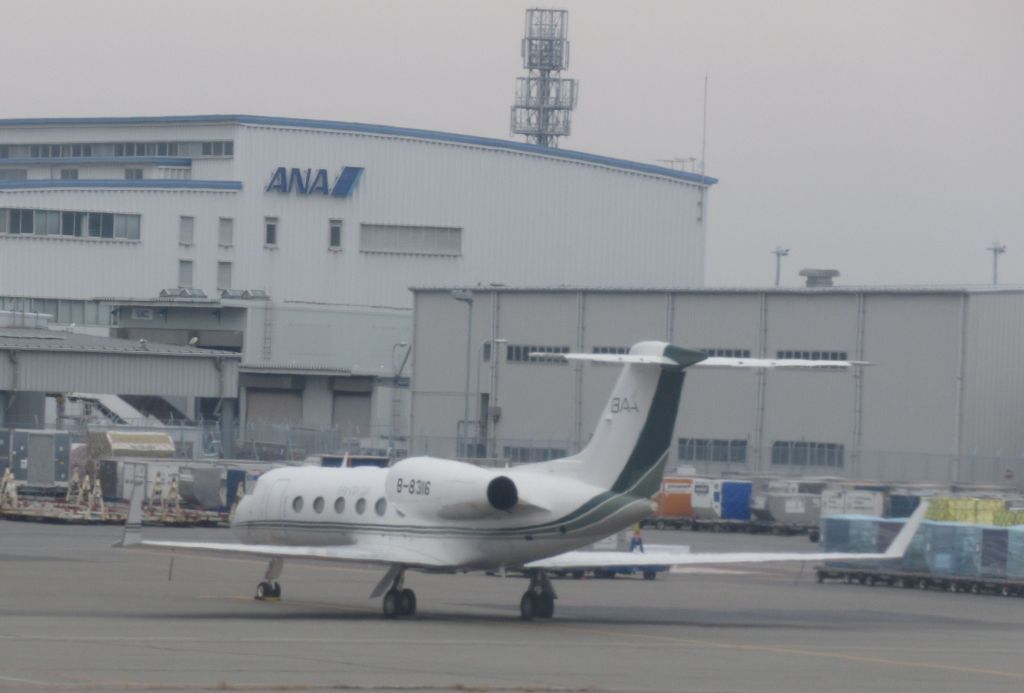
Another Gulfstream 450 on the left ; the registration of the Gulfstream 280 on the right must have cost a significant percentage of the price of the aircraft.

The number 6 is one of the luckiest in Chinese numerology : Panco, a major Taiwanese cosmetics company, splurged for number B-66666 to transport its members of the board.
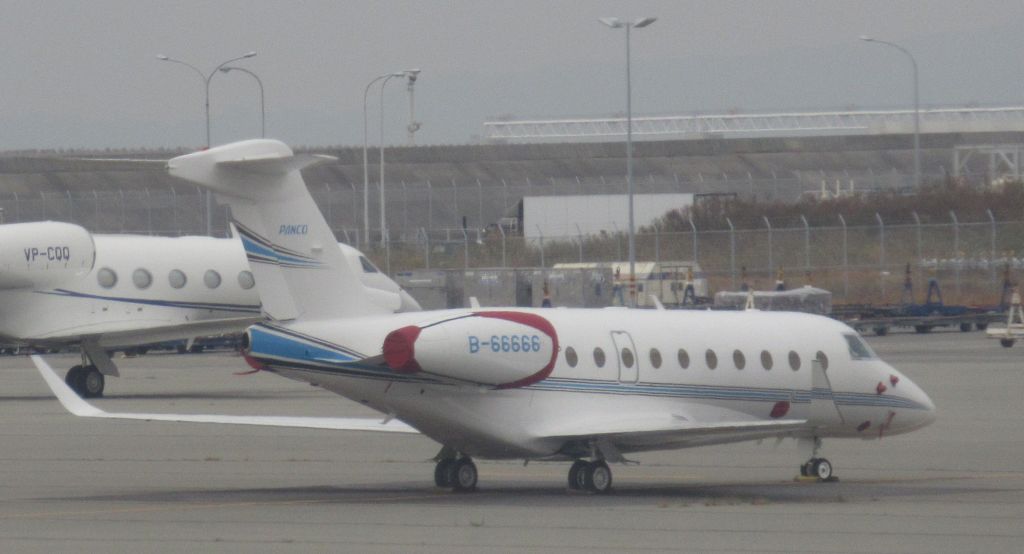
Not only the Japanese do not share these superstitions, but Peach, a Japanese LCC whose aircraft are parked way beyond the freight area certainly did not spend a yen extra to register this A320.
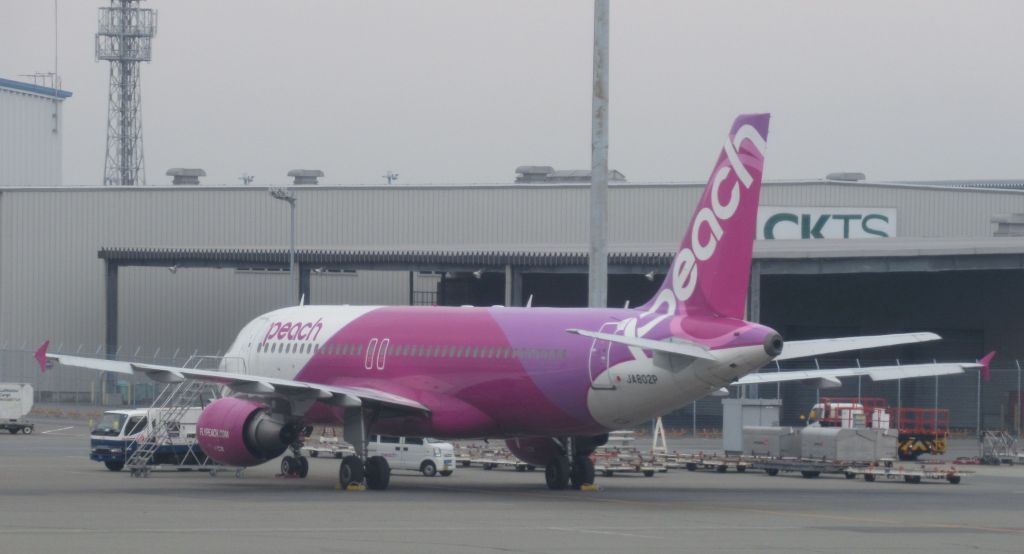
Take-off Runway 06R, which provided me an excellent view of the bridge connecting KIX to the mainland.
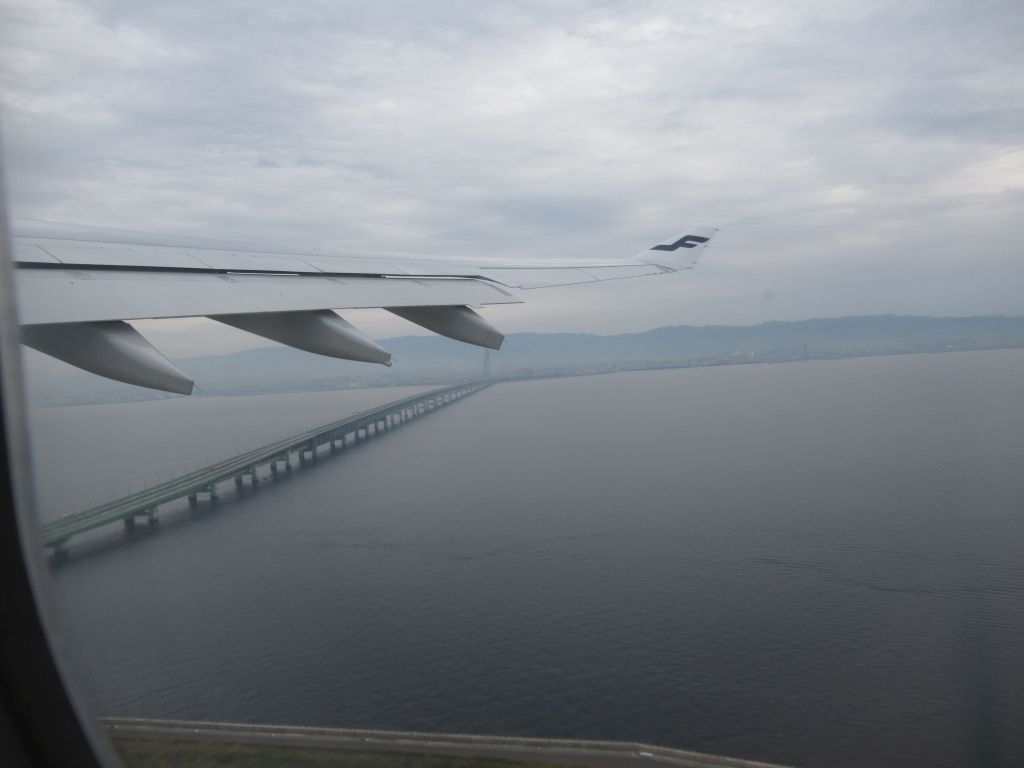
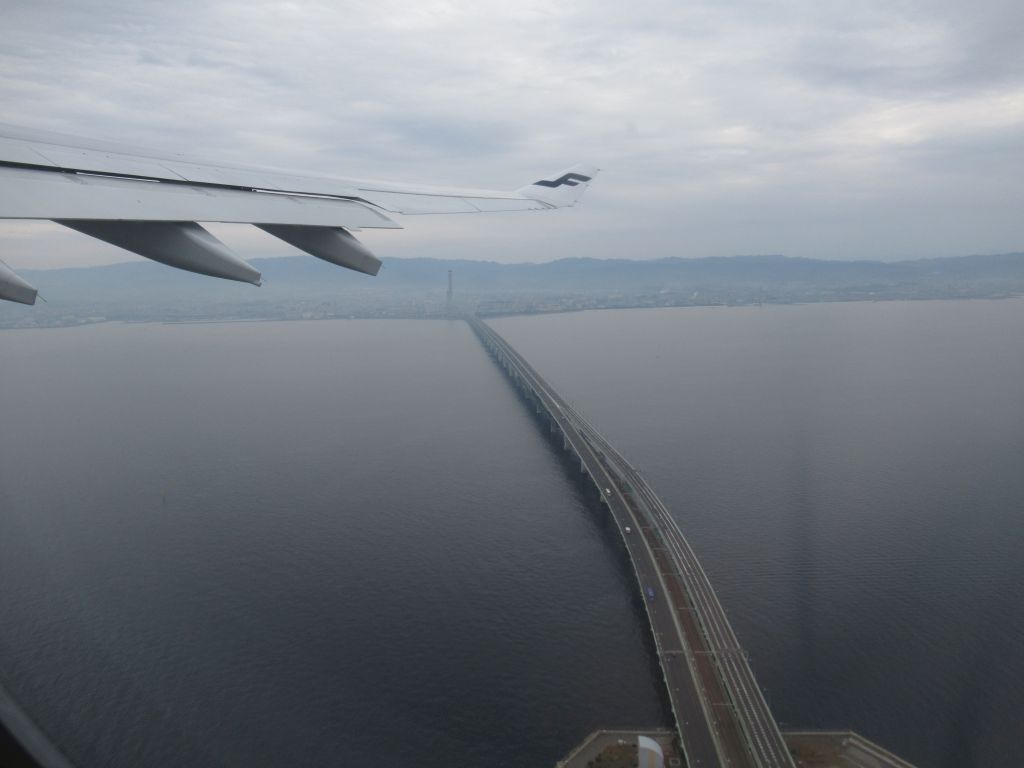
Kōbe 神戸 and its airport (UKB), built like KIX on an artificial island, but with one runway only.
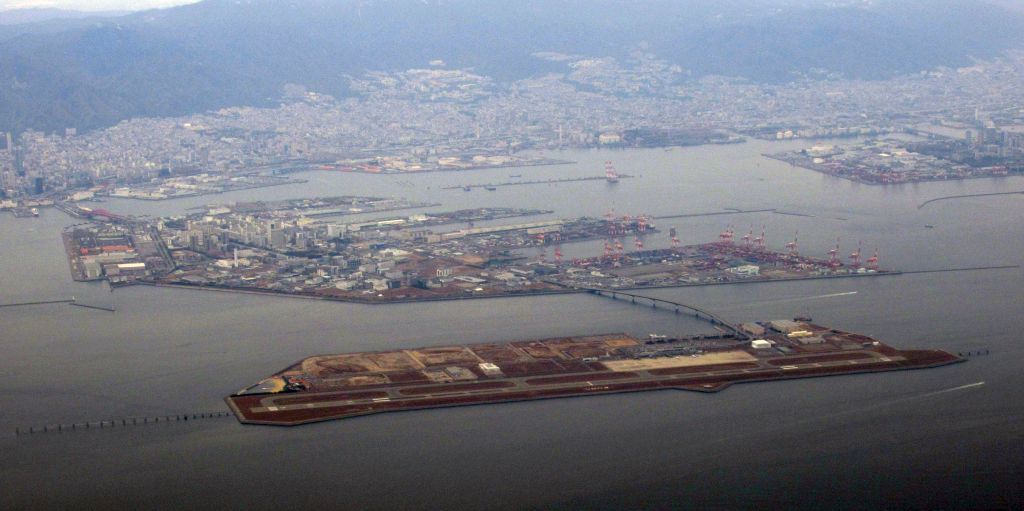
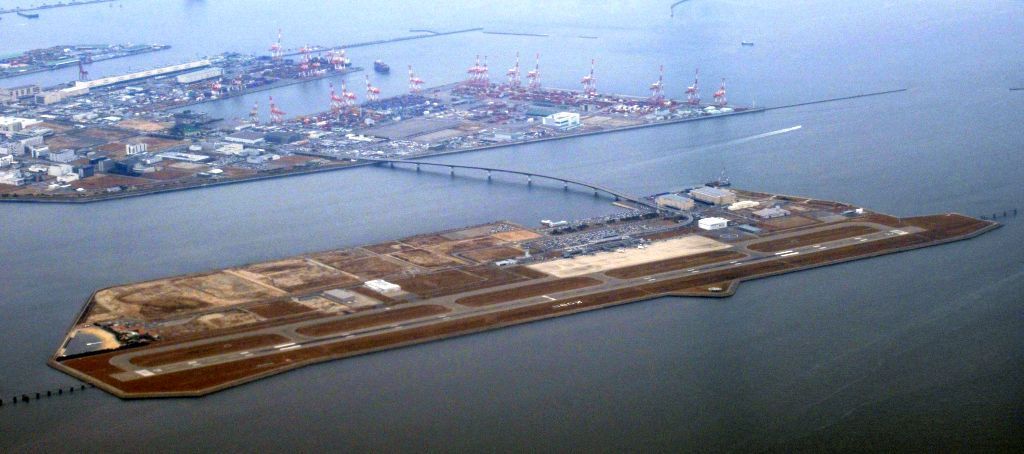
The western half of Kōbe
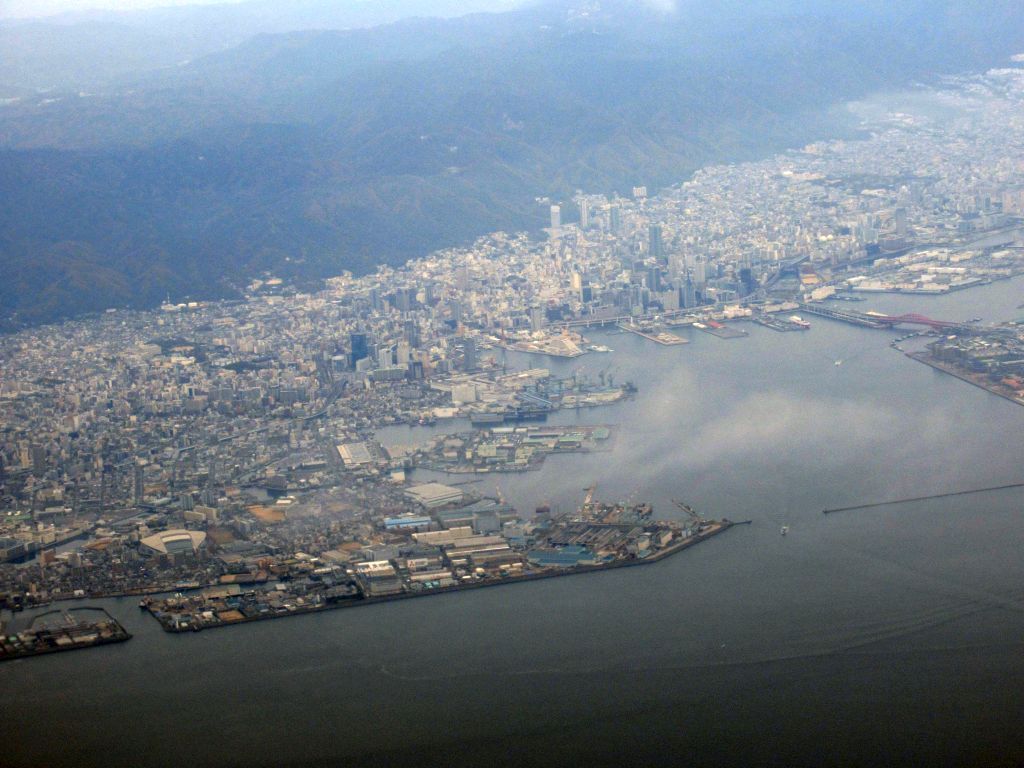
The plane looped above the bay to gain altitude before flying above Ōsaka

A miraculous break in the clouds provided me a view on Tsurumi Ryokuchi Park which is the theme of the tourist bonus of this report. Left, this is the Kinki Expressway which bypasses Ōsaka.
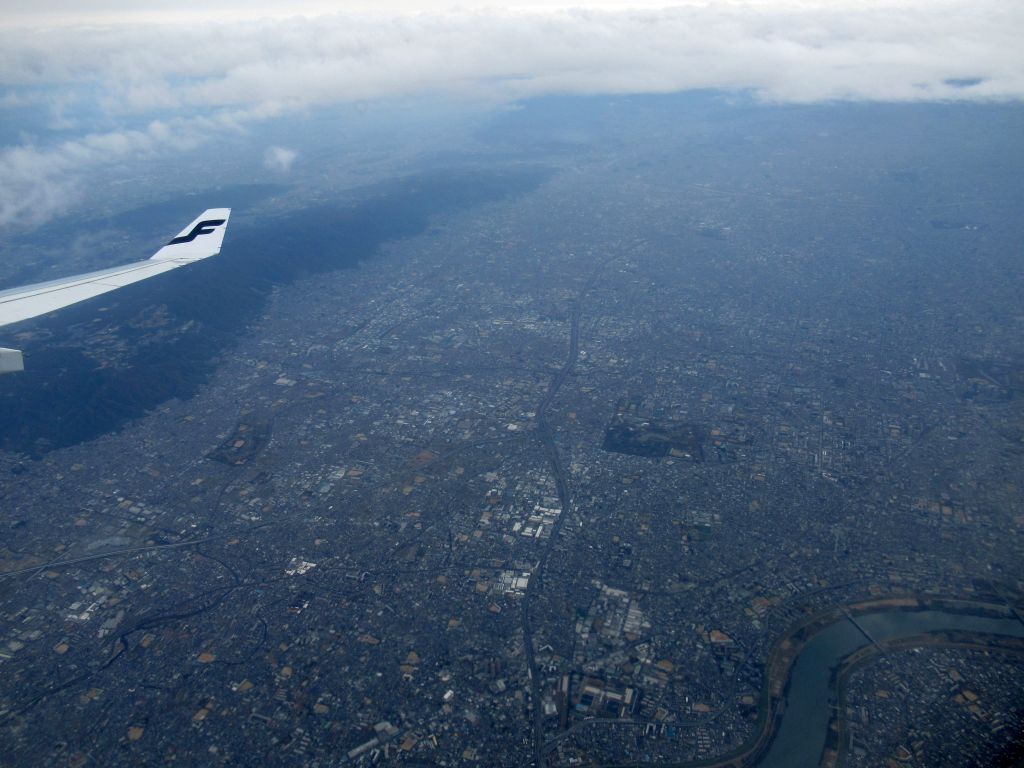
A Japanese FA said to each Asian passenger お絞りを申し上げます , a sentence which is so impossible to translate in a satisfactory manner that the Finnish FAs said nothing : it means something like "I offer you an oshibori", which was boiling hot when received but cooled very quickly. It was made of an unwoven fabric which kept its shape better than cotton “mops”.
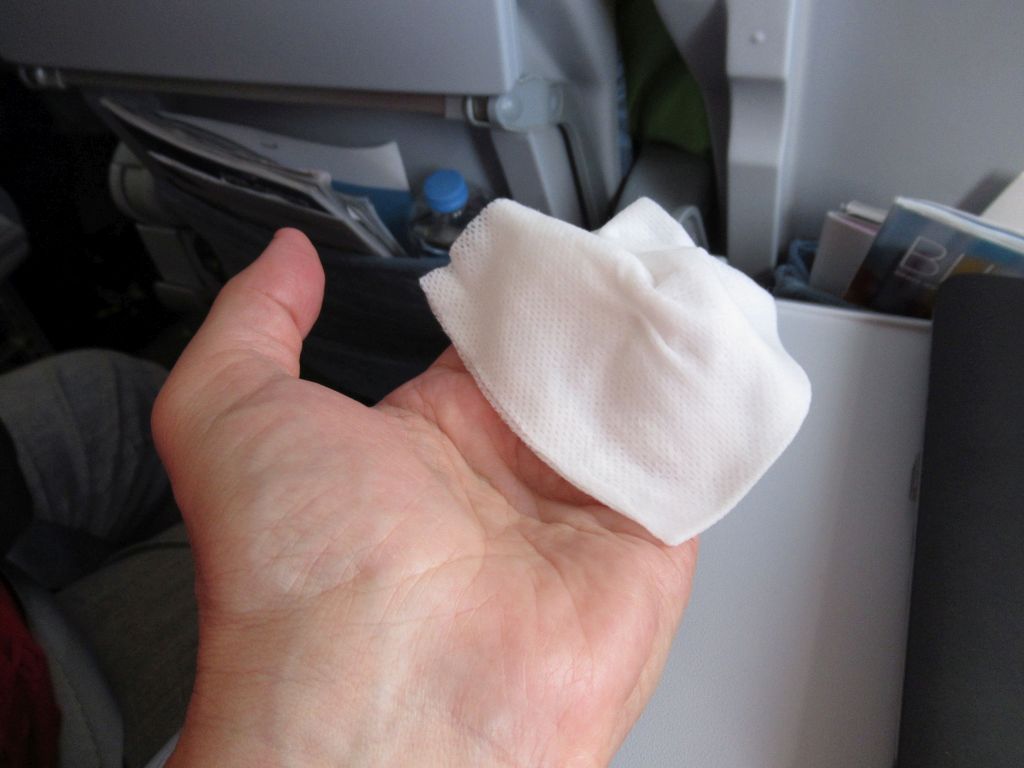
Too bad to have had no view on Sado 佐渡 Island which was the focus of the bonus of this report .
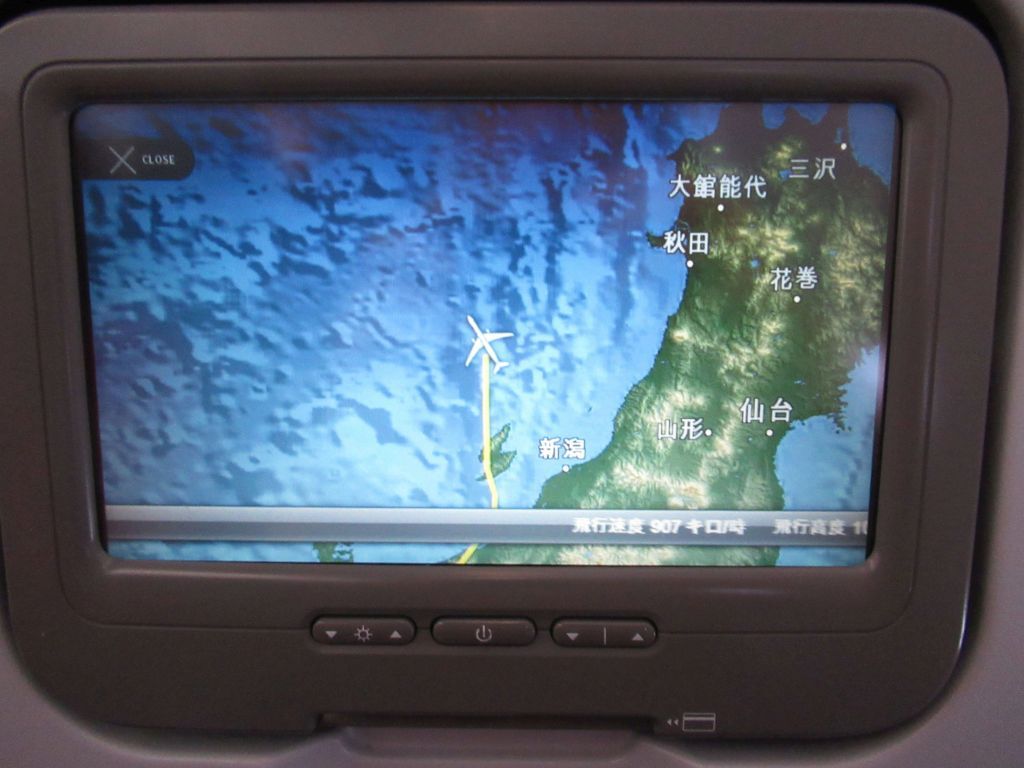
Forget about the landscape in the beginning of the flight
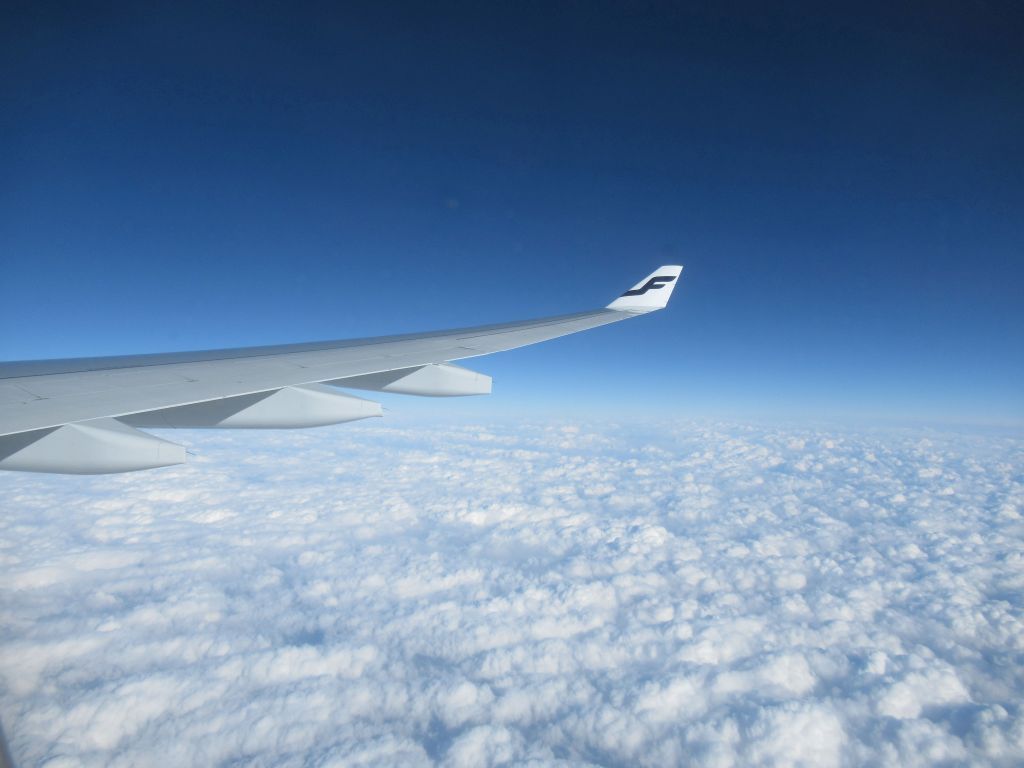
The plane took the Siberian route anyway, much further north than on the way in, which flew mostly above sea and then tundra. Another nine hours to HEL, where we would slightly too late for lunch, but it was now time for lunch in the departing time zone.
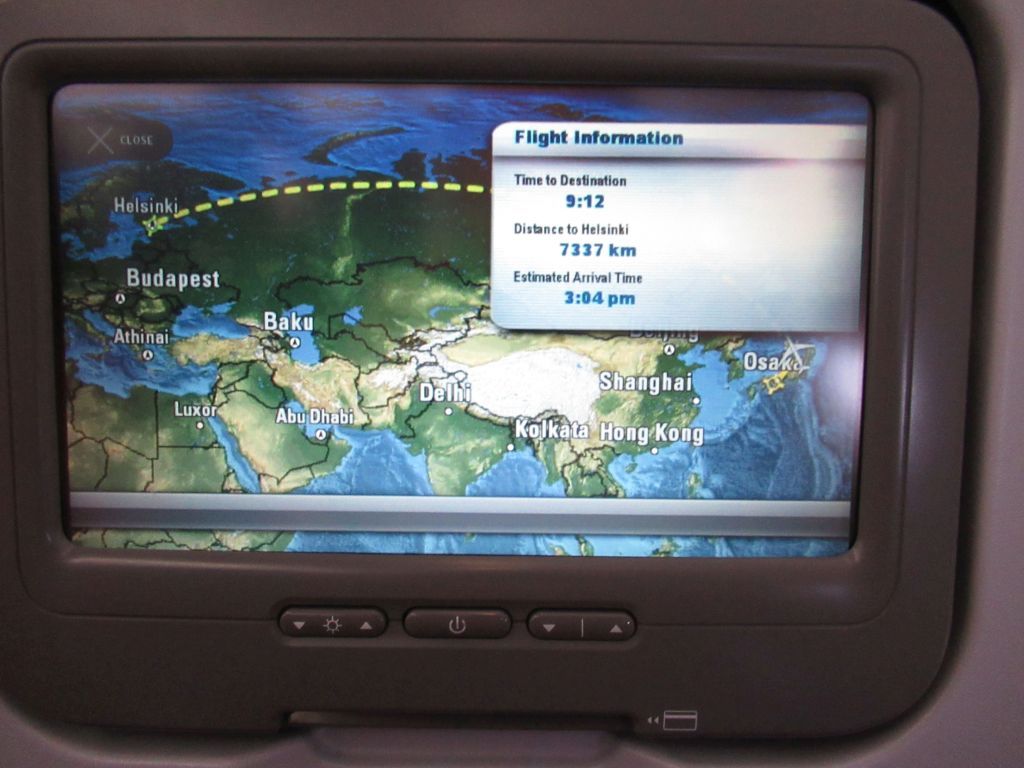
There came the lunch as served to my wife, who asked for and received apple juice and Coca-Cola (and a board smile too).
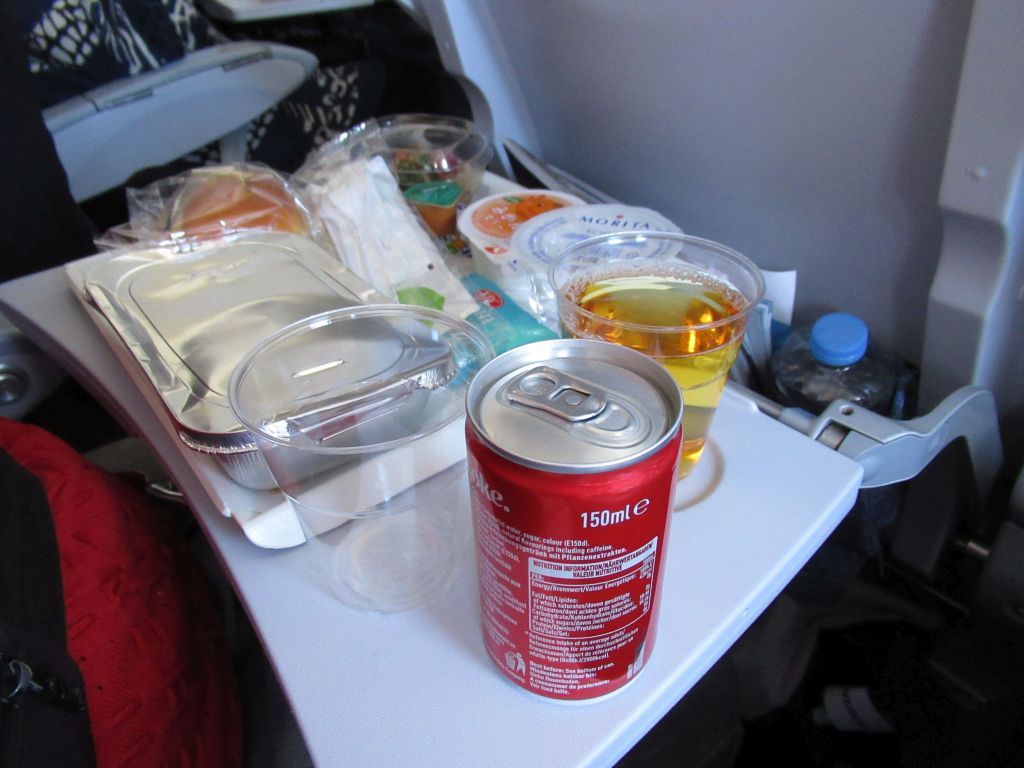
It was apple juice and cranberry juice for me; the latter was very watery on the CDG-HEL flight, but I nevertheless tried it again and found it better this time.
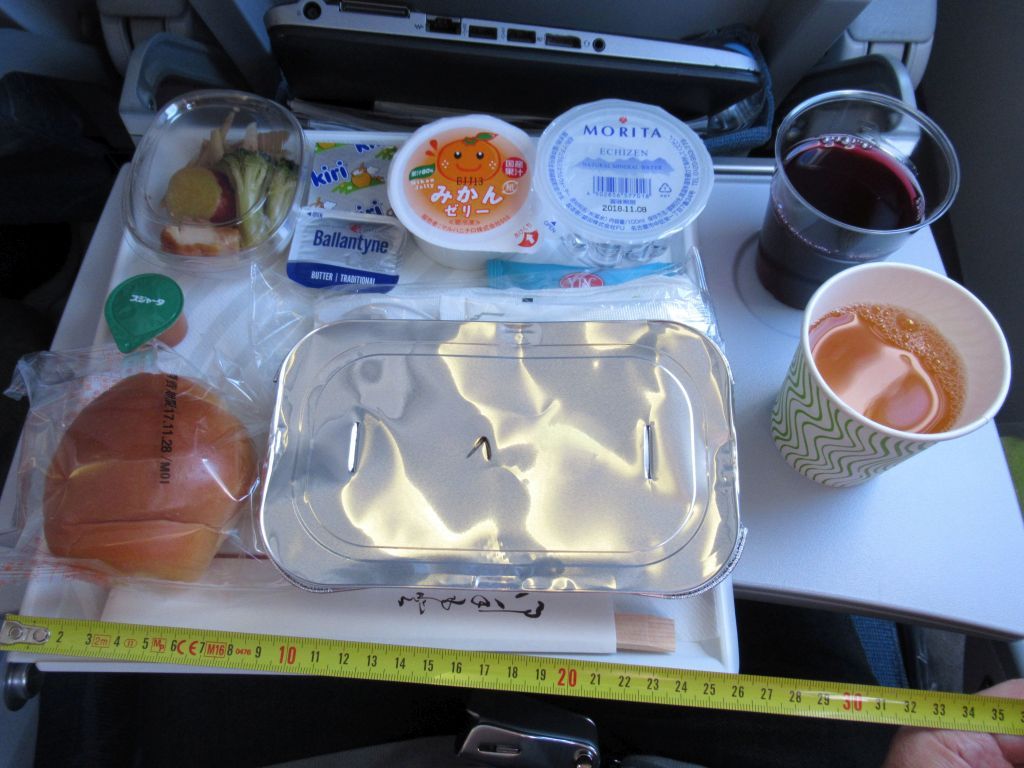
This was my tray after unwrapping.
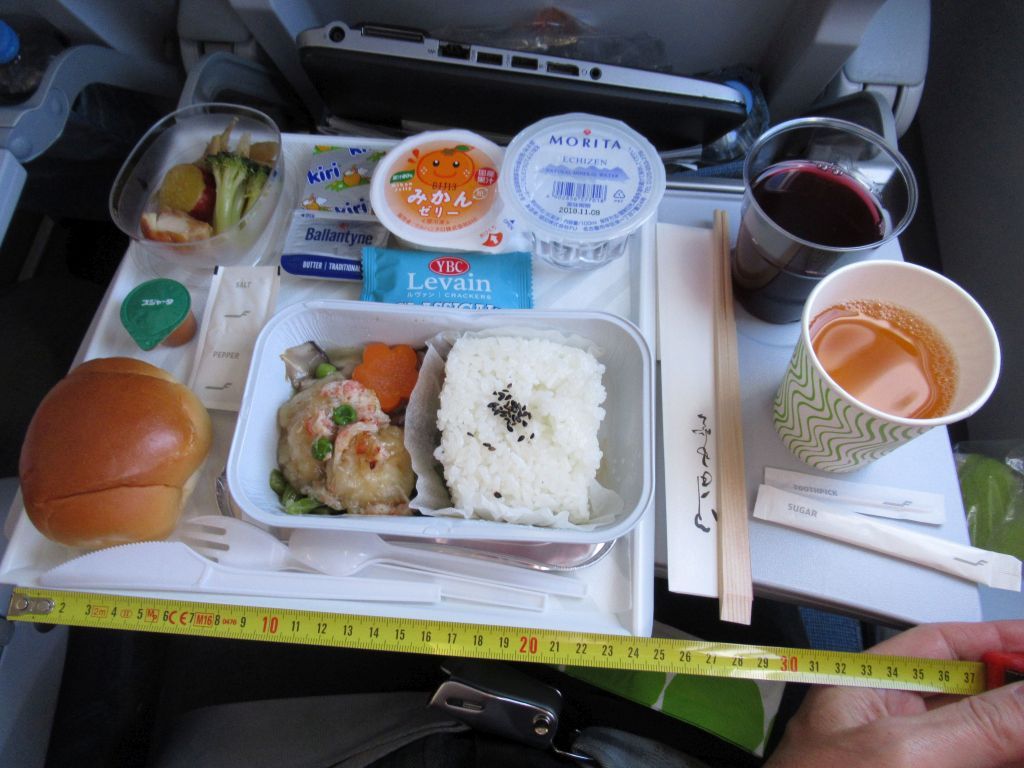
I chose fish which became shrimps (I had doubts about the level in marine biology of the FA who gave us the choice orally)
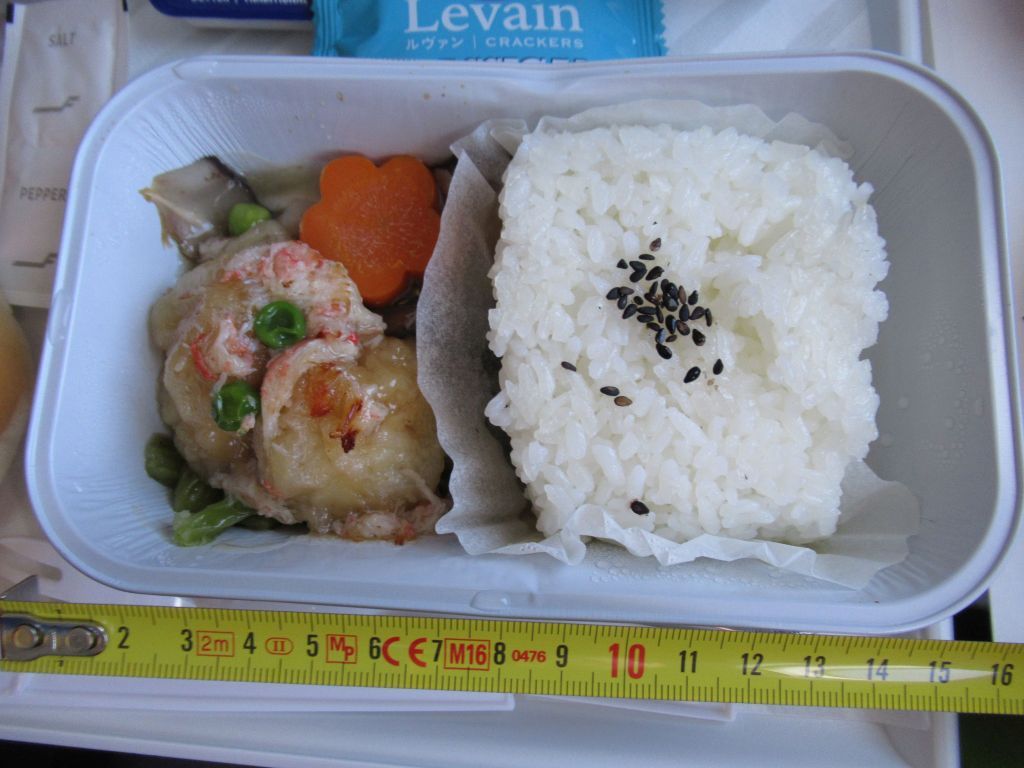
The Marathons pushed again flight reporting to selecting different hot meals (it had more to do with risk spreading, actually). Chen flying out of KIX, it was no surprise to have the choice between rice and rice… the difference was that my wife had a small piece of broccoli and four carrot balls, whereas I had four peas and a carrot slice cut in a flower shape.
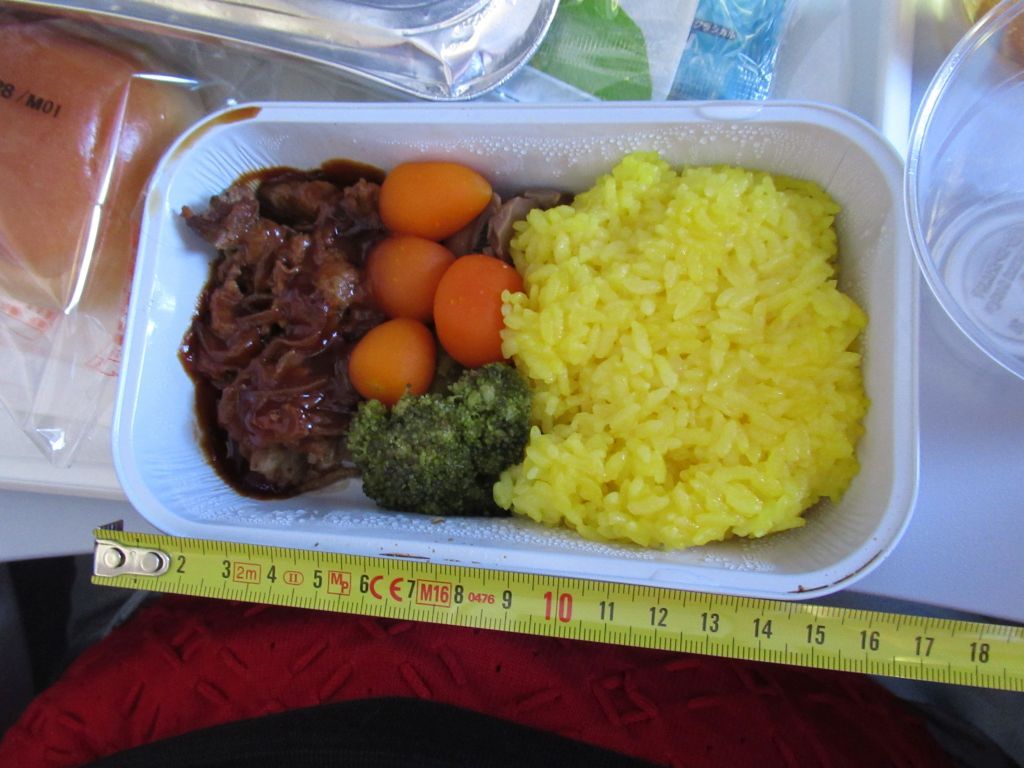
Miscellaneous disposable items were Marimekko design, with the Finnair logo, except the chopsticks which I think were marked わりばし (waribashi = split chopsticks), but I have a lingering doubt.
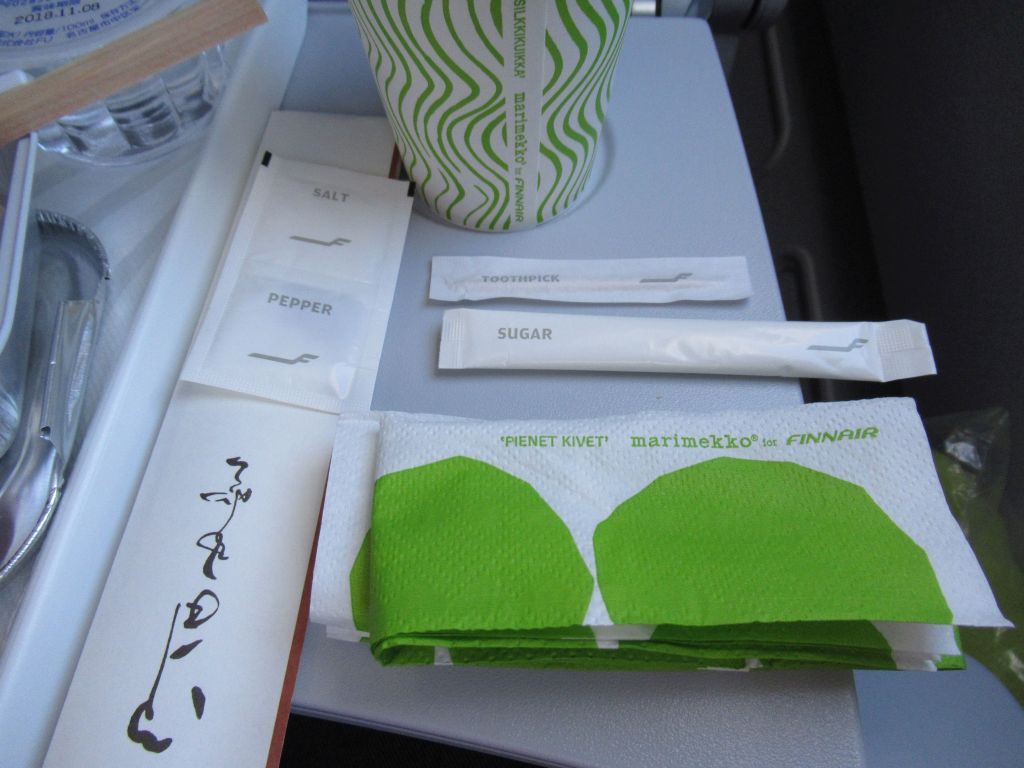
These chopsticks were well adapted to the appetizer, anyway.
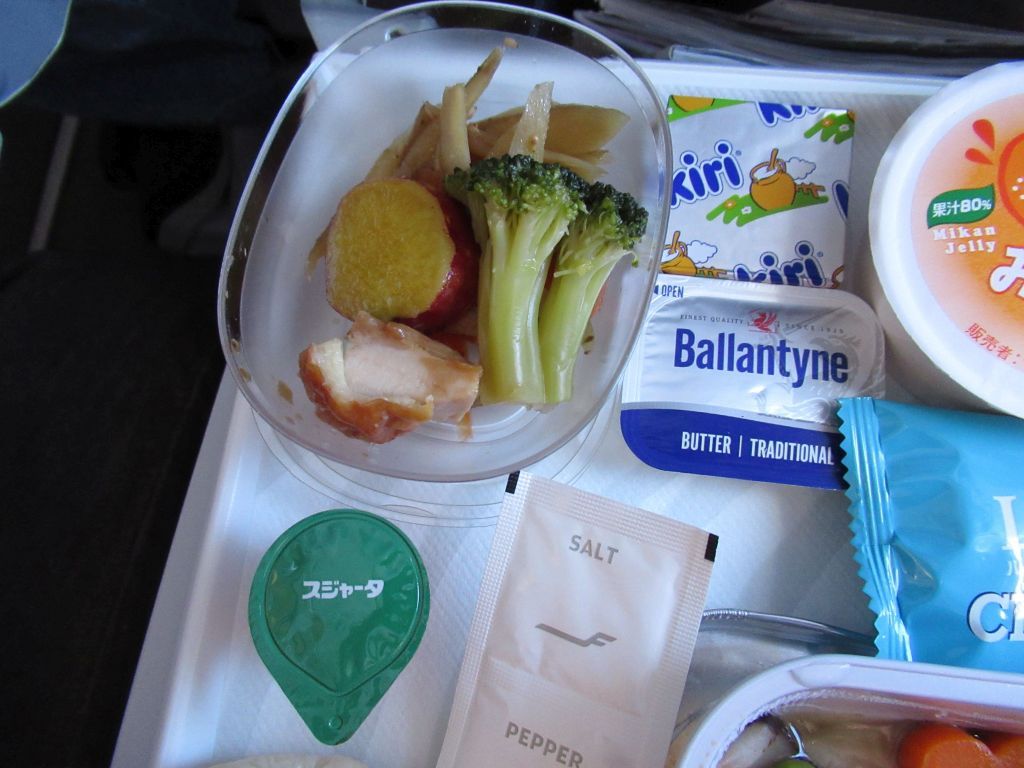
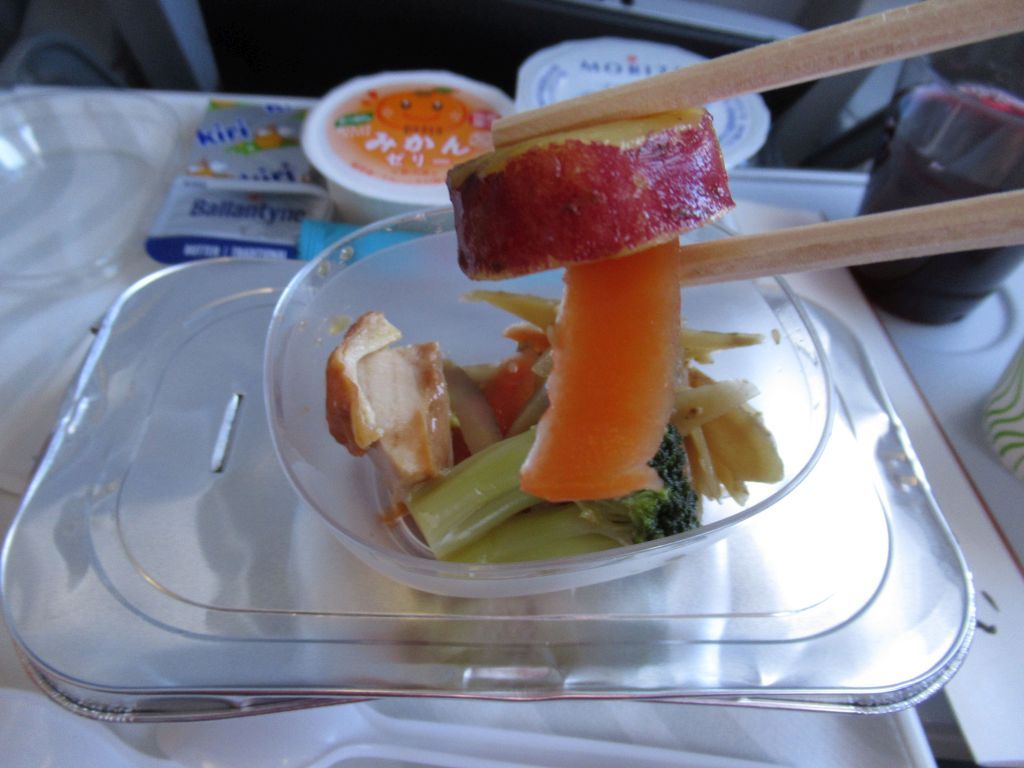
I could take one year to drink the contents of this water capsule
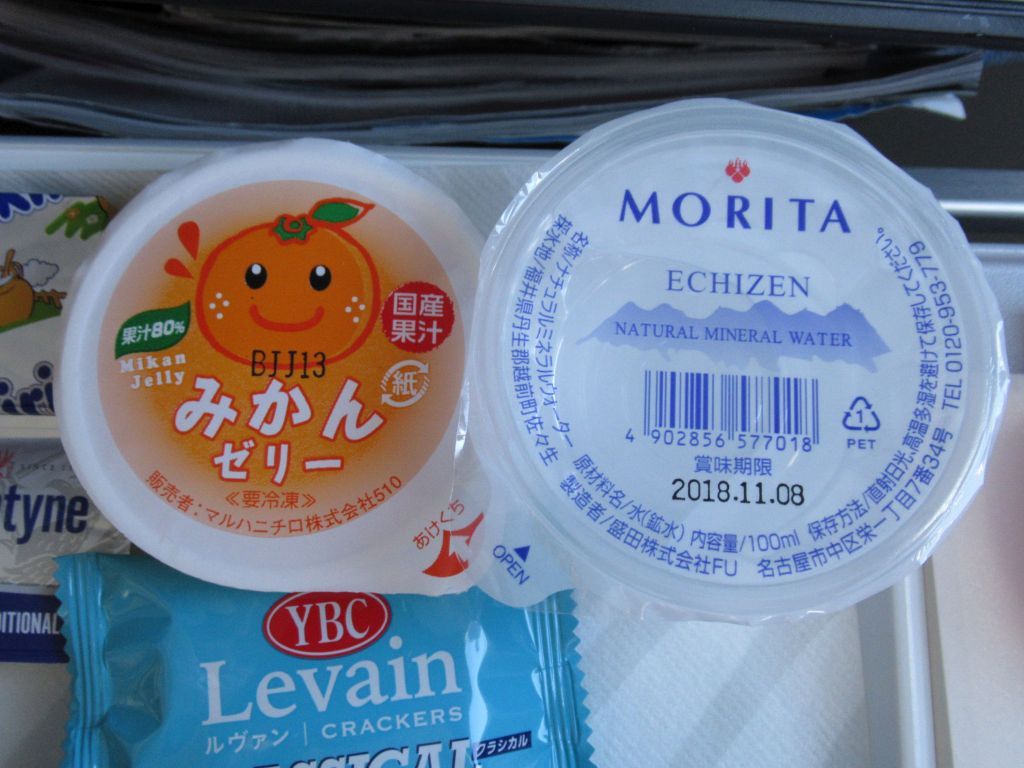
The advantage of catering from KIX is that Japanese is much easier to understand than Finnish, IMO. みかん (mikan), is a kind of mandarine which is very common, especially on Kyūshū Island.
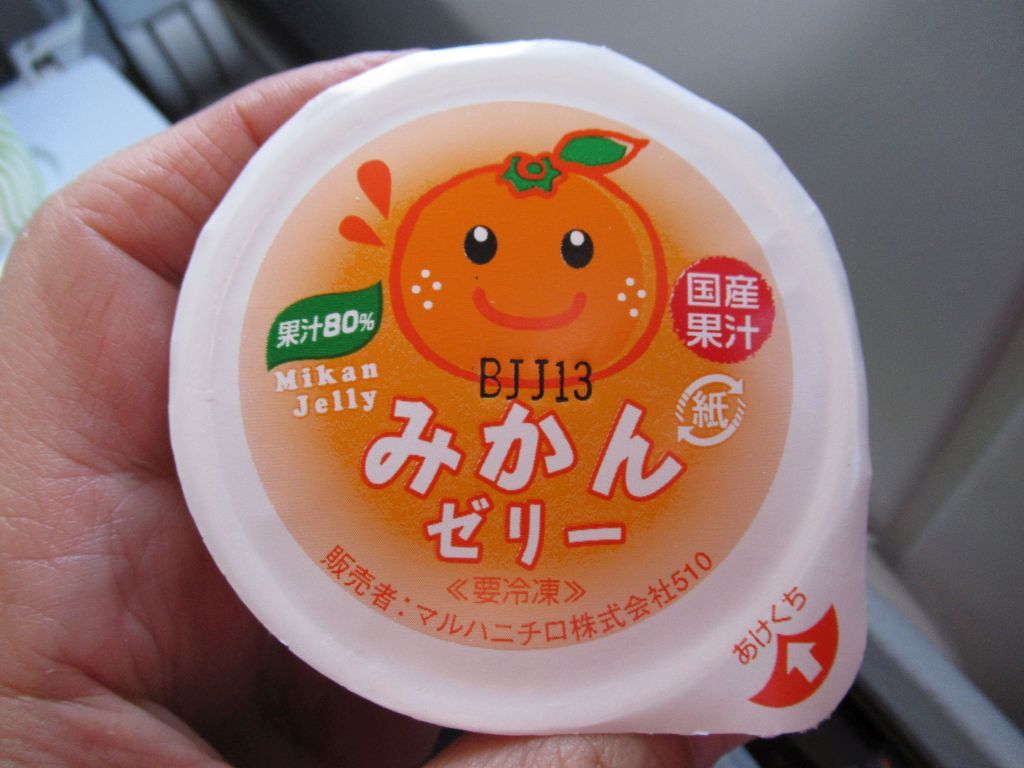
Note the phonetic transcription in Japanese of "jelly”: ゼリー (« zerī »). That’s what it was, and it was good.
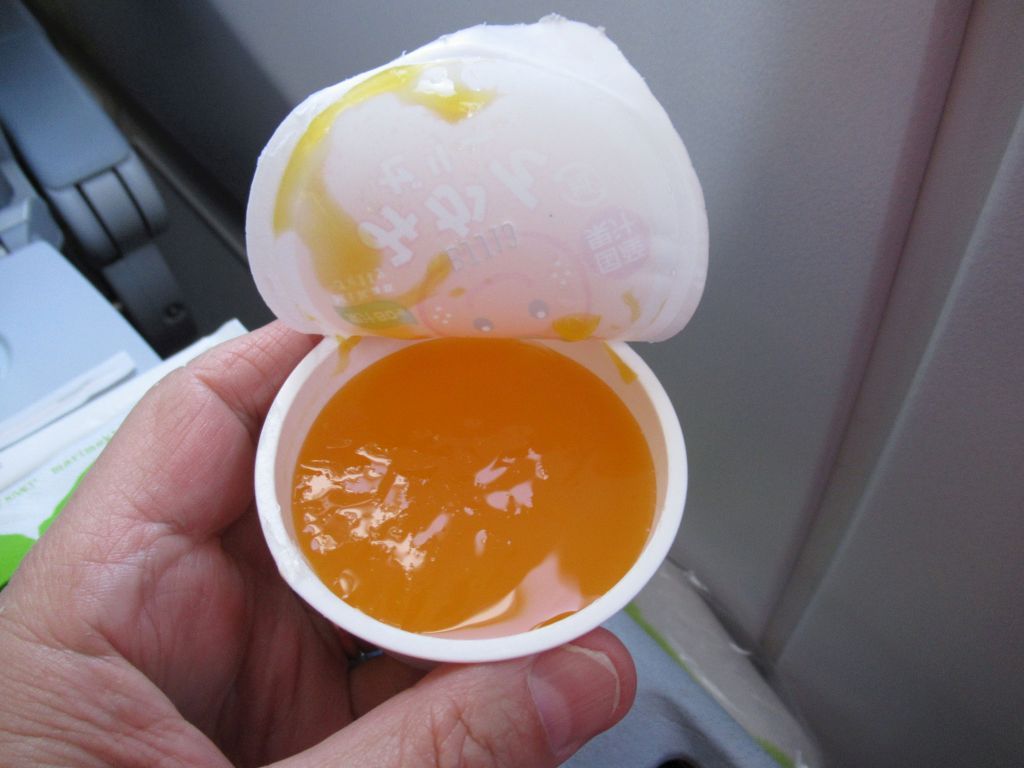
To the health of my readers !
Note that a previous passenger had disposed on the coat hook of the seal of his headphones’ plastic bag.
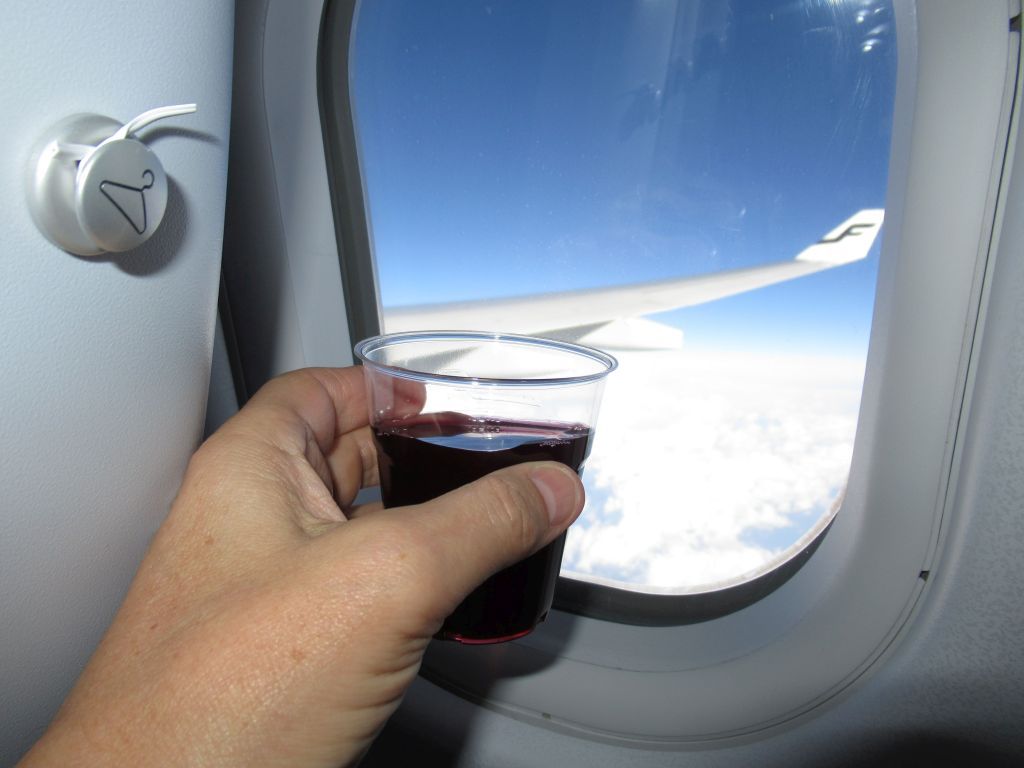
Won’t you have some Ballantyne on the rocks ?
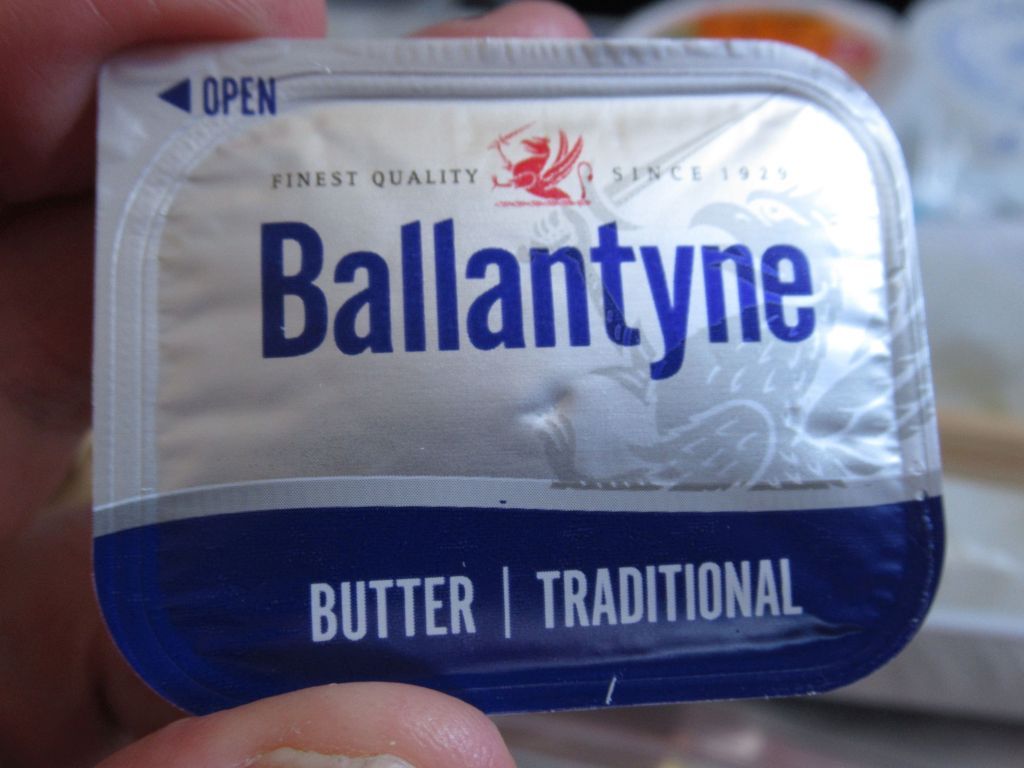
On the rocks, because the refrigeration chain is a serious matter in Japan.
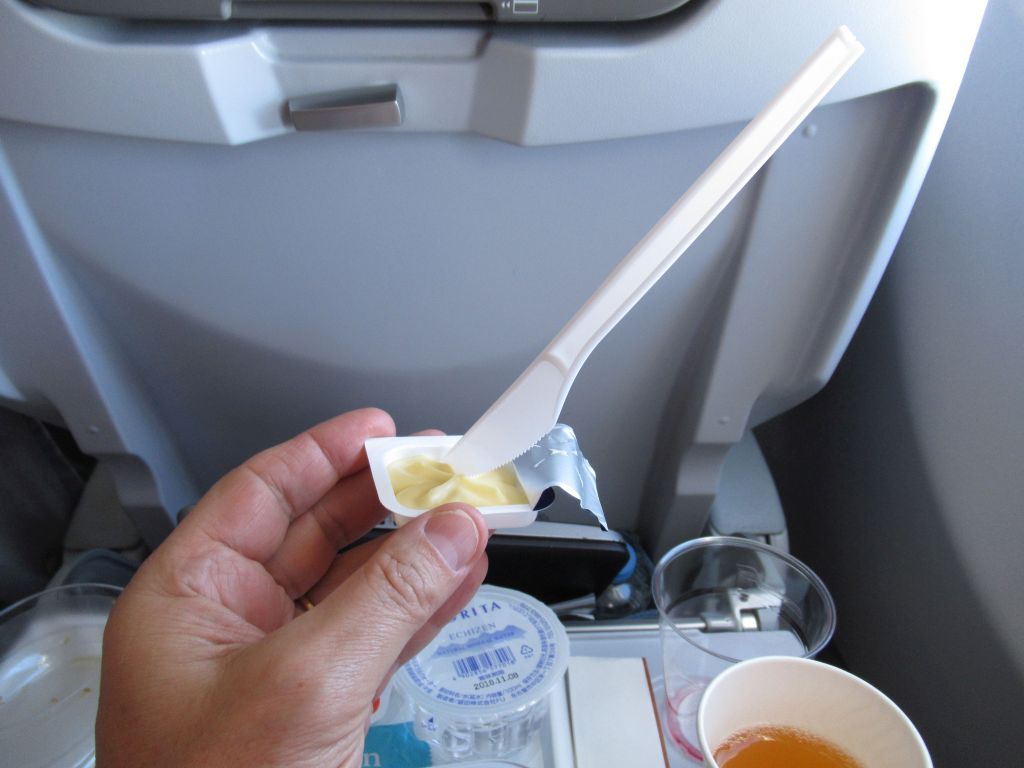
There was a pack of biscuits which contained this :

I doubt they were manufactured at this address (Shinjuku 新宿, in the heart of Tōkyō)
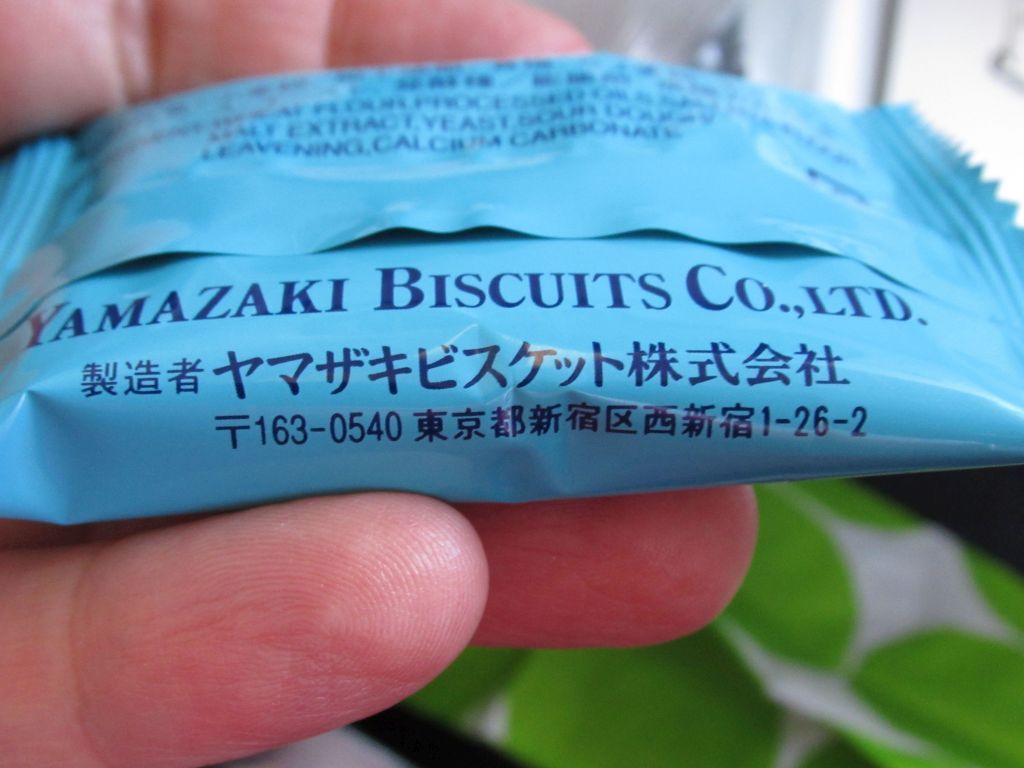
Gathering all this was easy
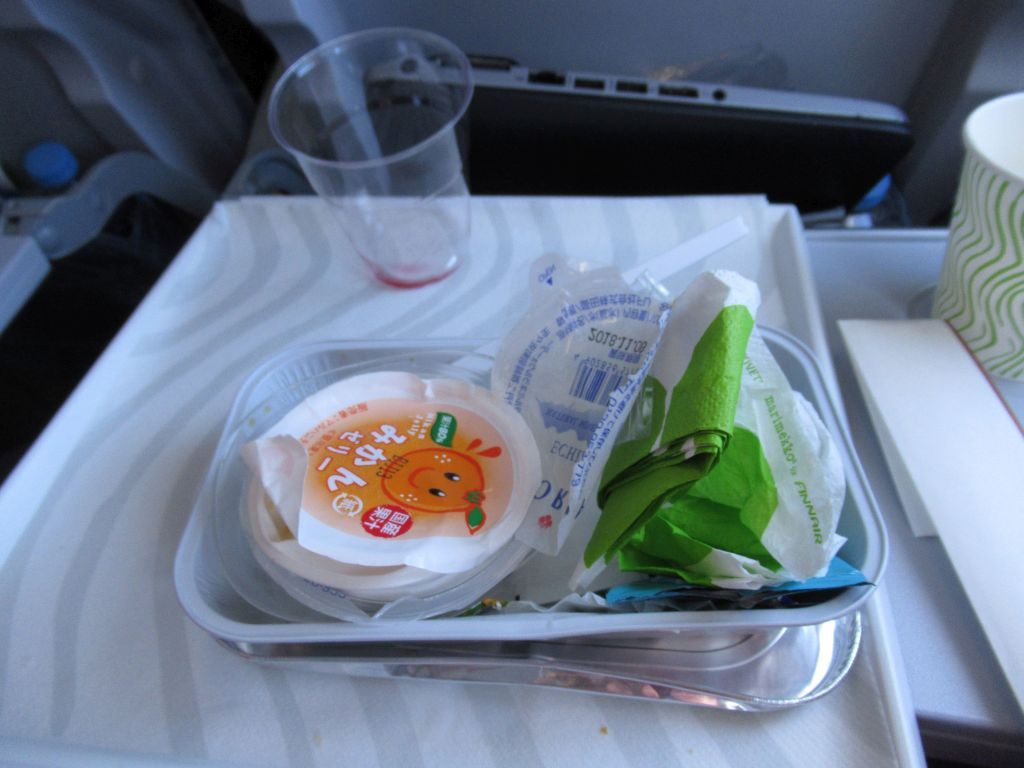
Now I only needed to put the cover on the container – a coffee had been served in the meantime -…
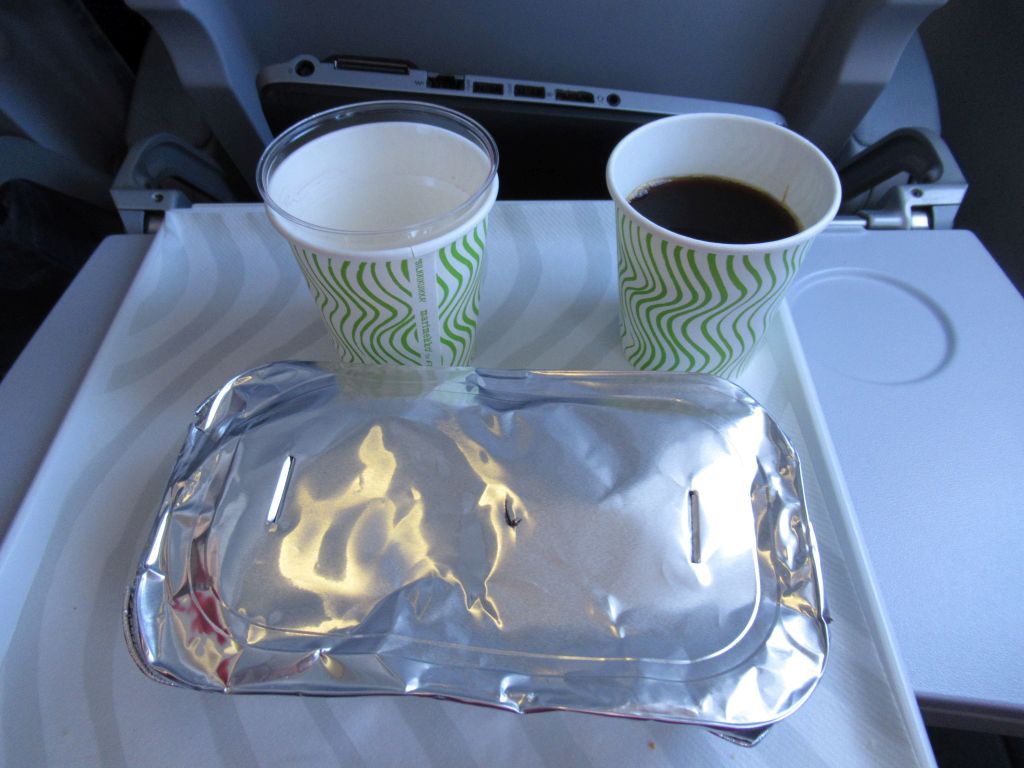
… and place all this cleanly in the seat pocket.
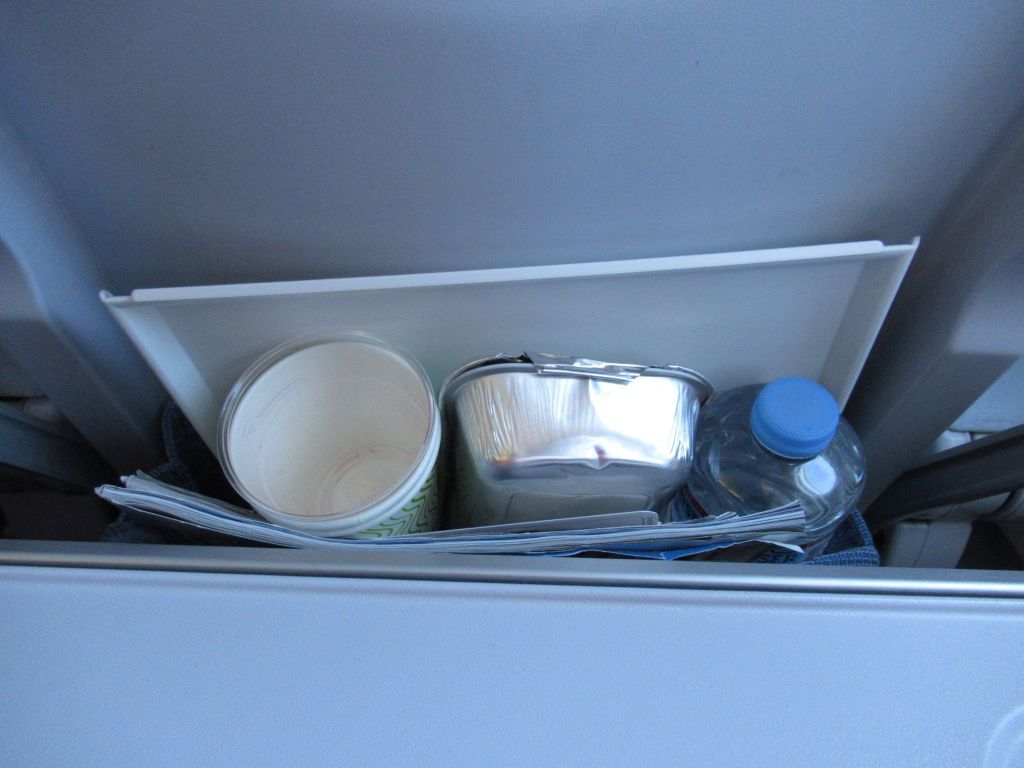
We were heading 330, but that did not tell me where we were (this page of the moving map program is quite useless, but you can’t skip it).
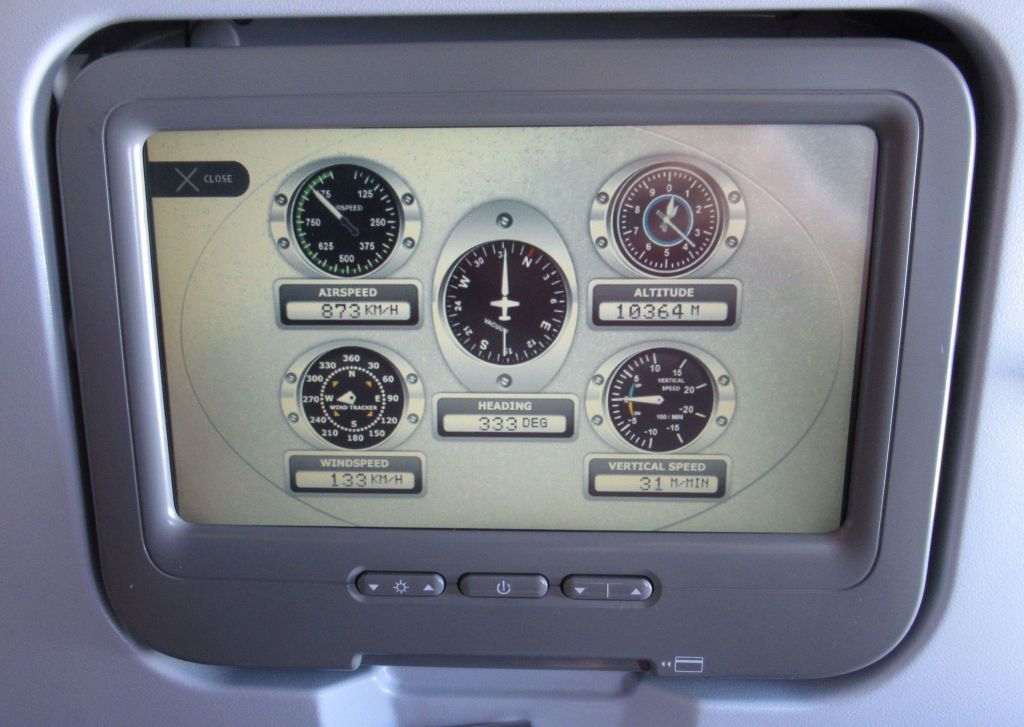
Quite frankly, even if I had had our location on the moving map, I would have had trouble highlighting specific features.
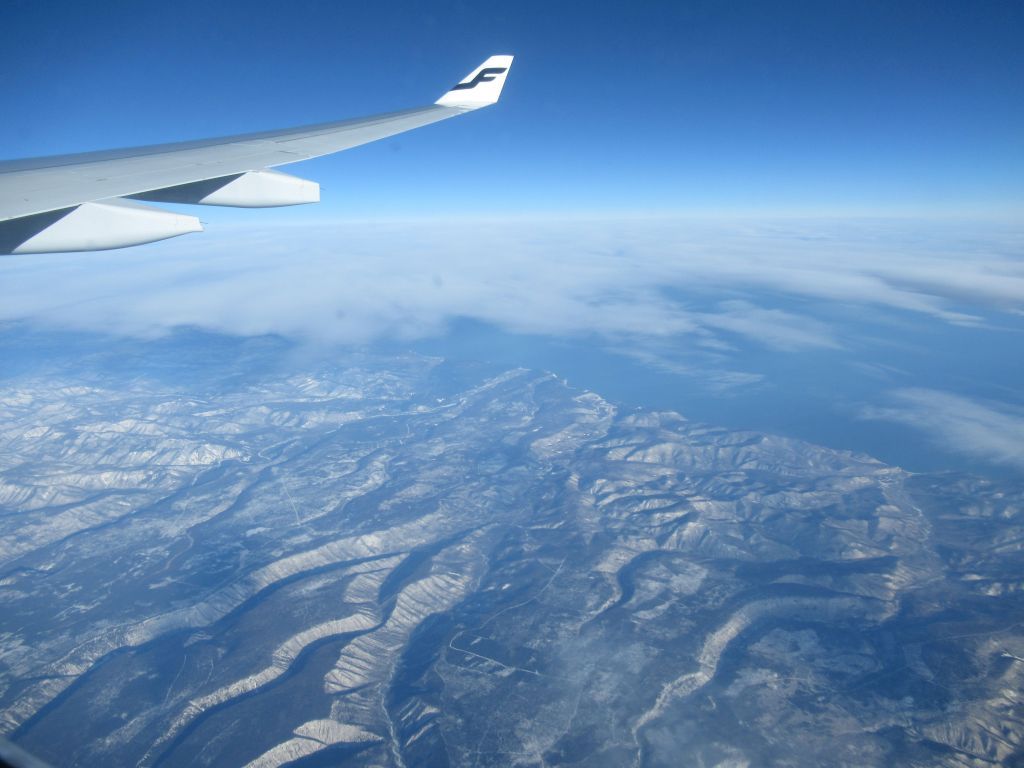
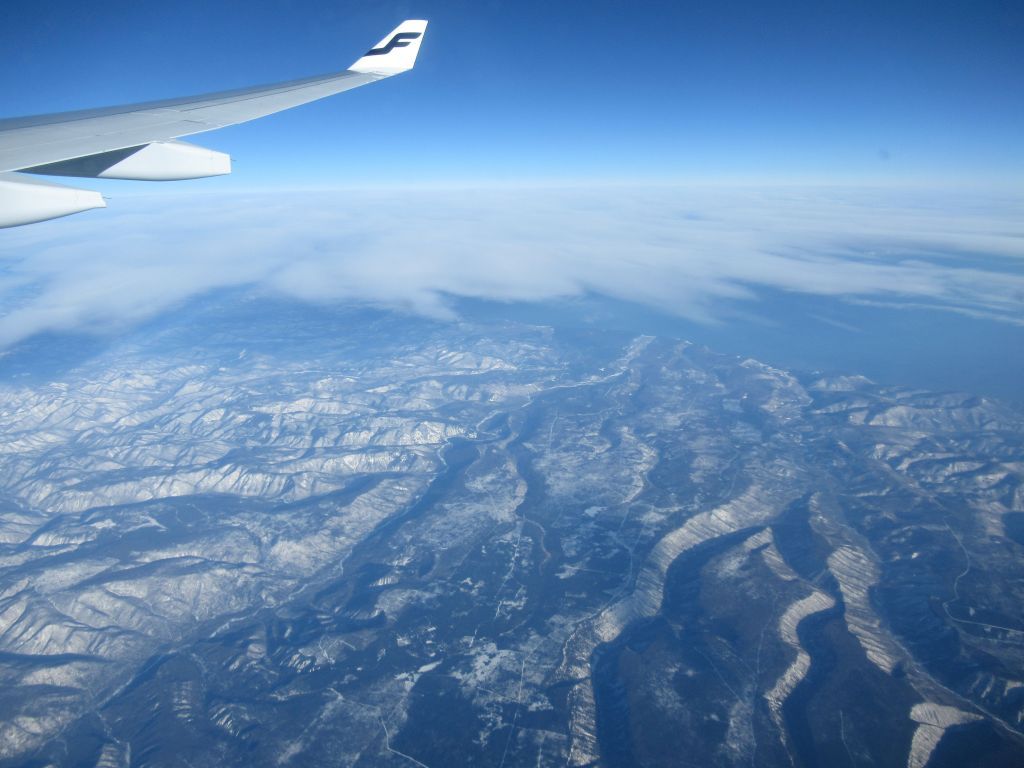
It was not uninhabited, but nearly so
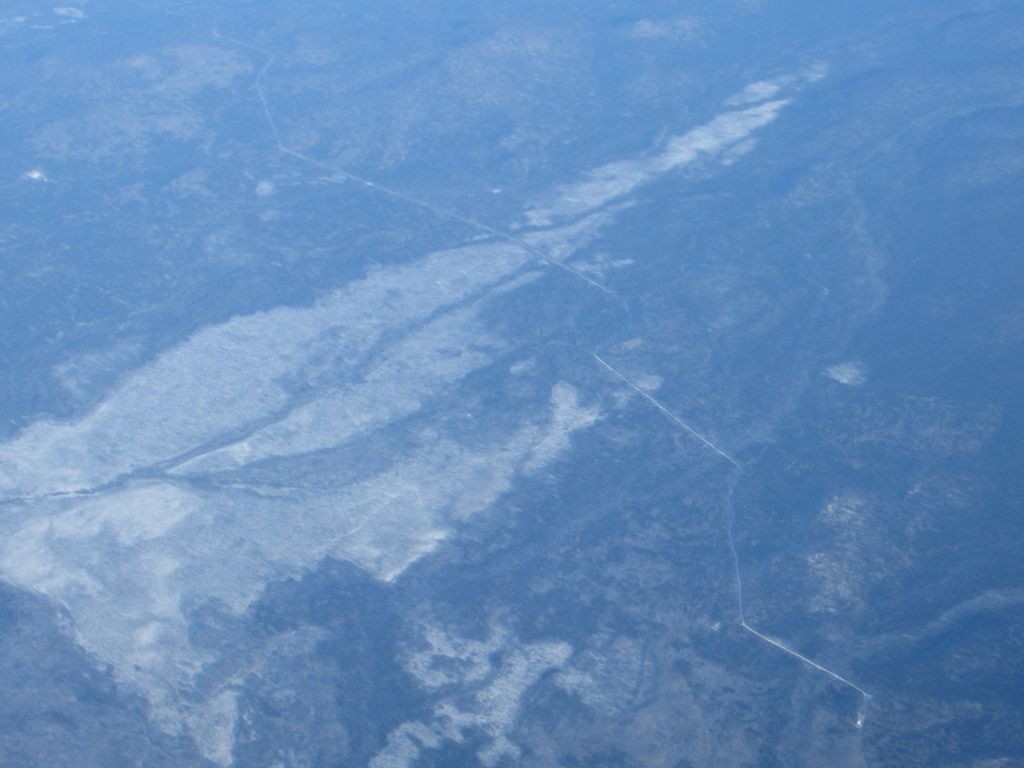
We were still only there
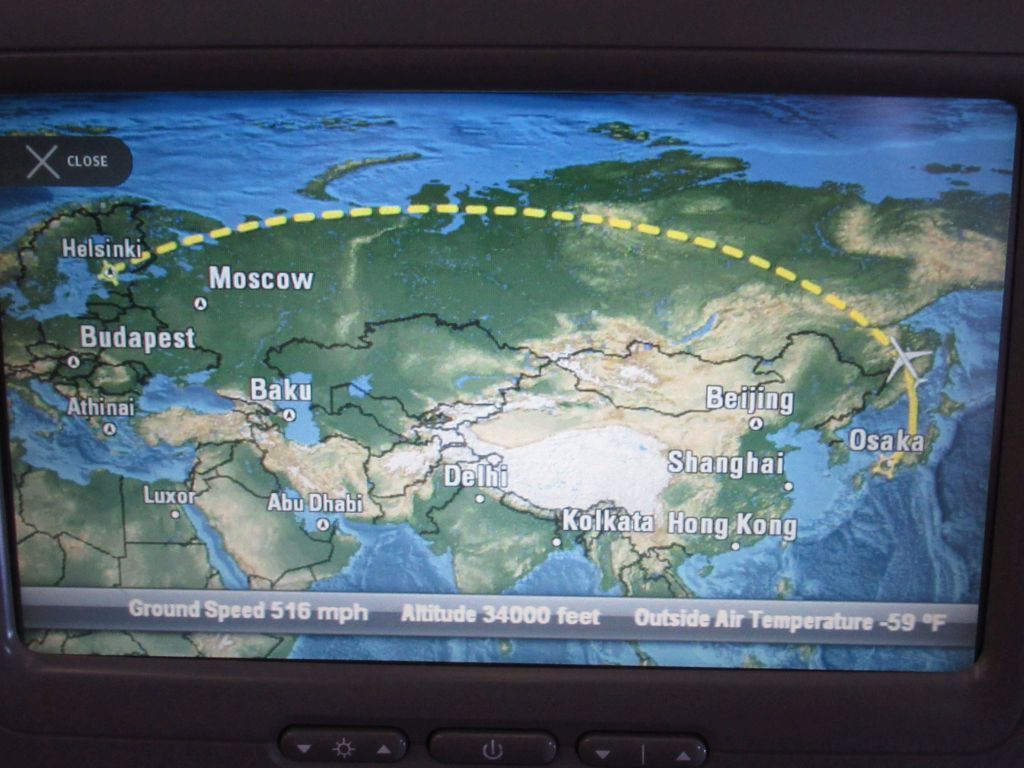
… and note that the route was entirely over Russia until the arrival in Finland, whereas it went much further south above Mongolia, China and South Korea on the way in.
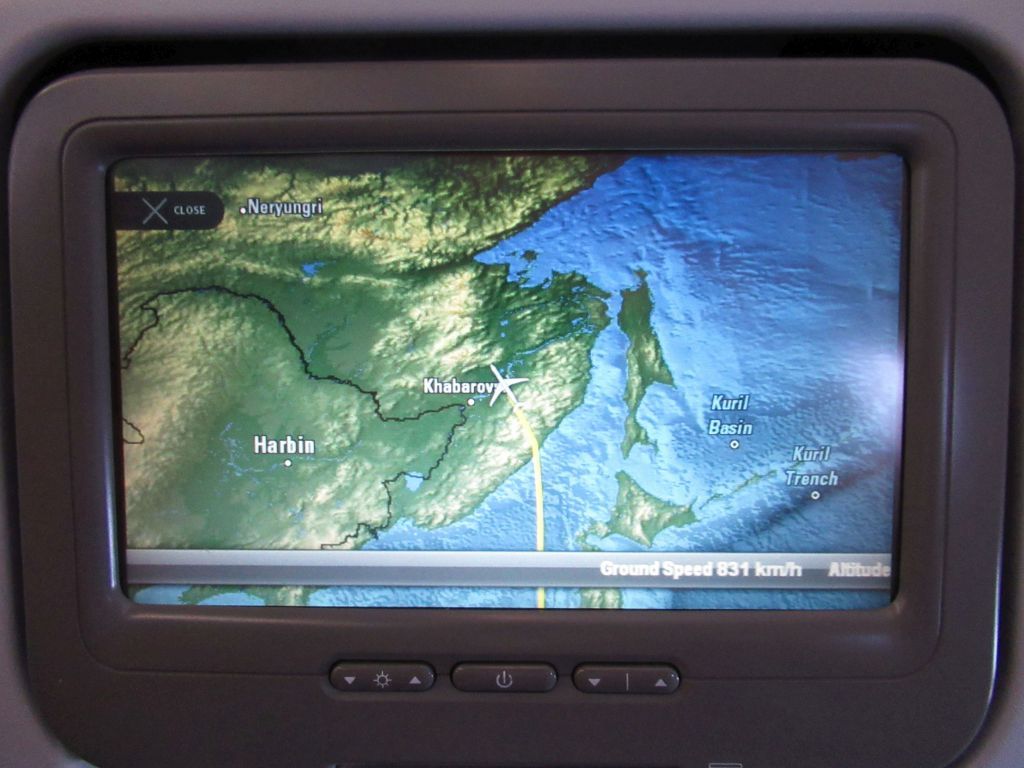
Siberian winter landscapes are non-figurative art.
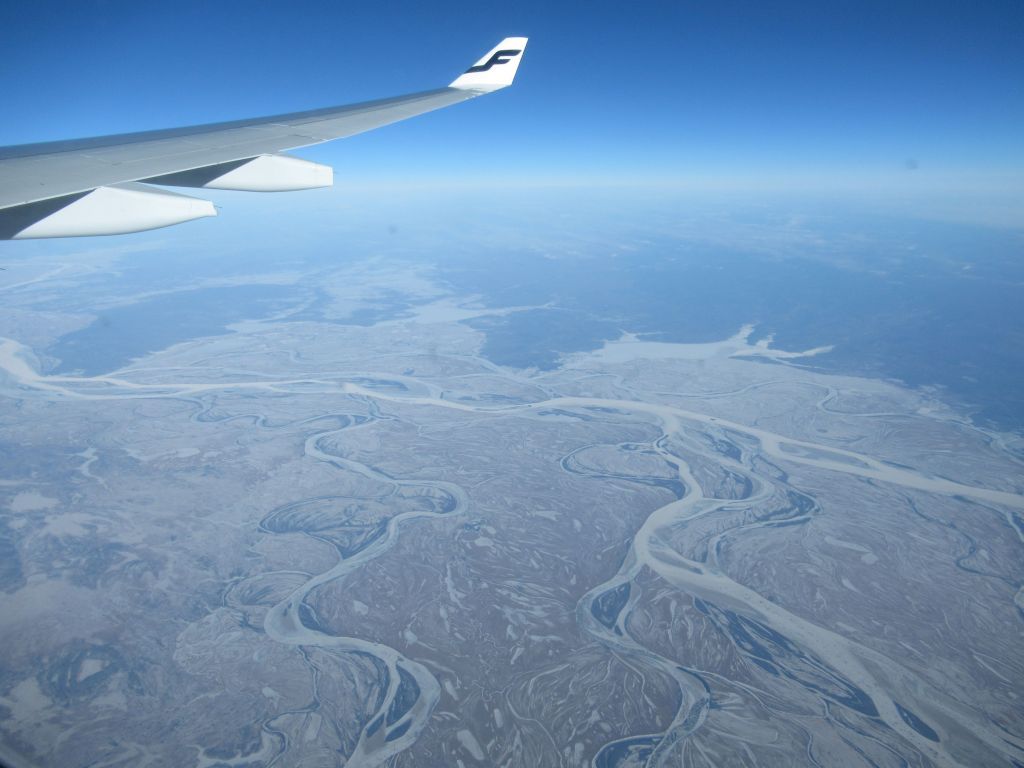
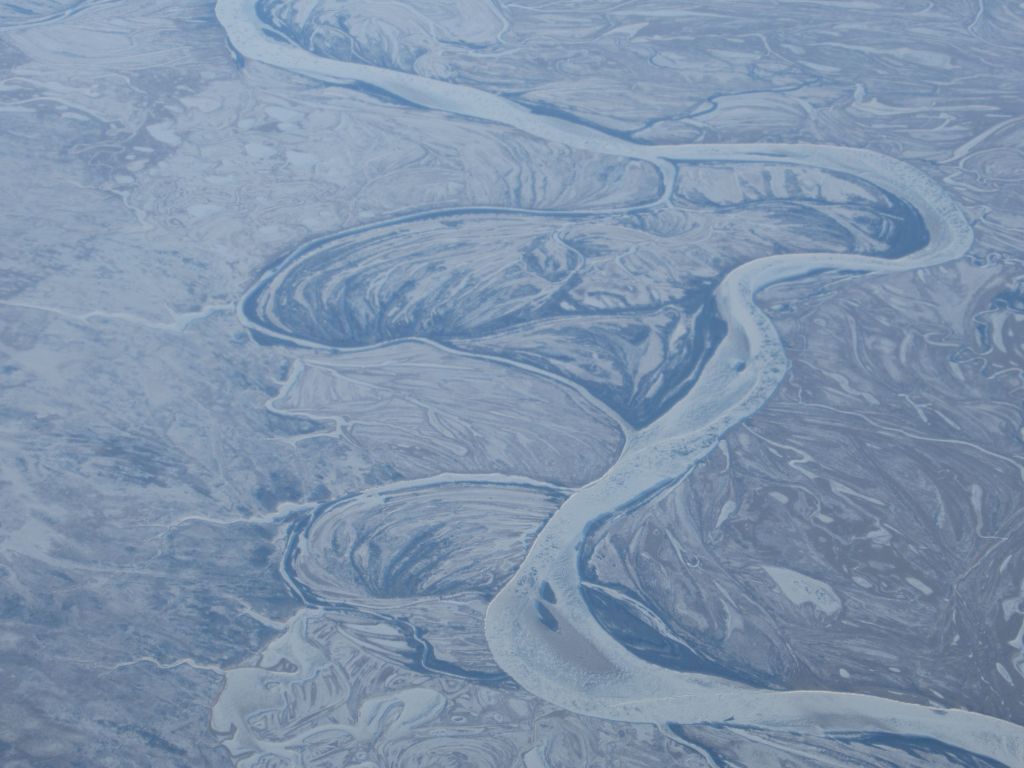
The screen on the partition between the two Y cabins displayed the moving map at all times.
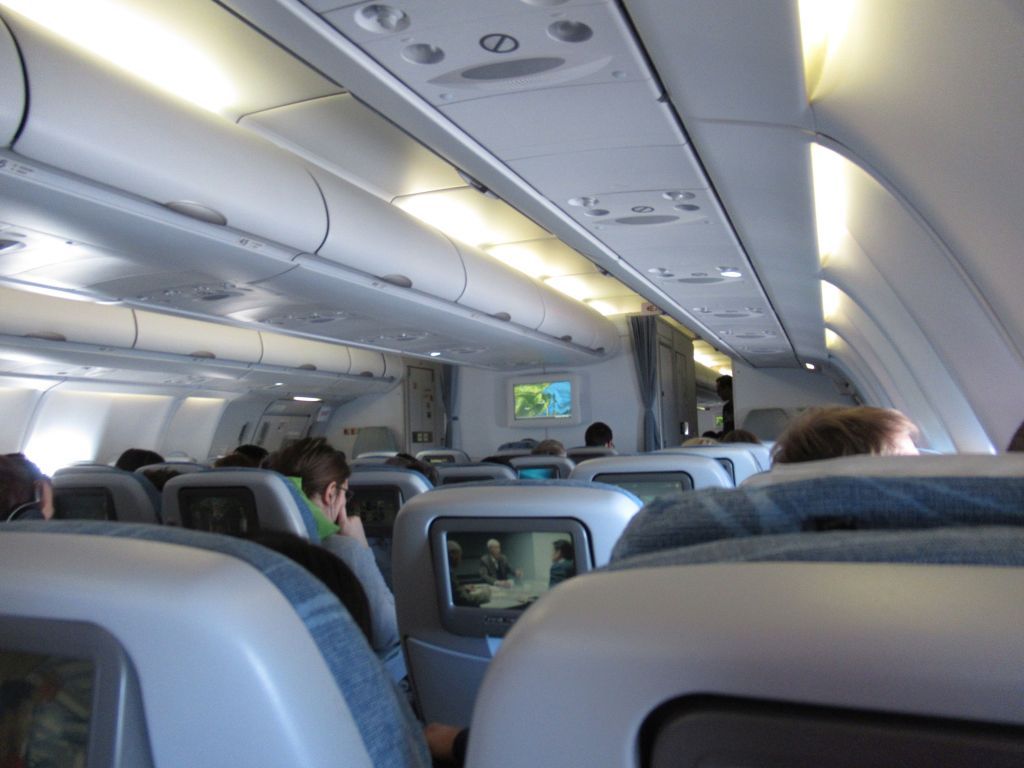
The weather became cloudy, which meant that there was even less landscape to comment.
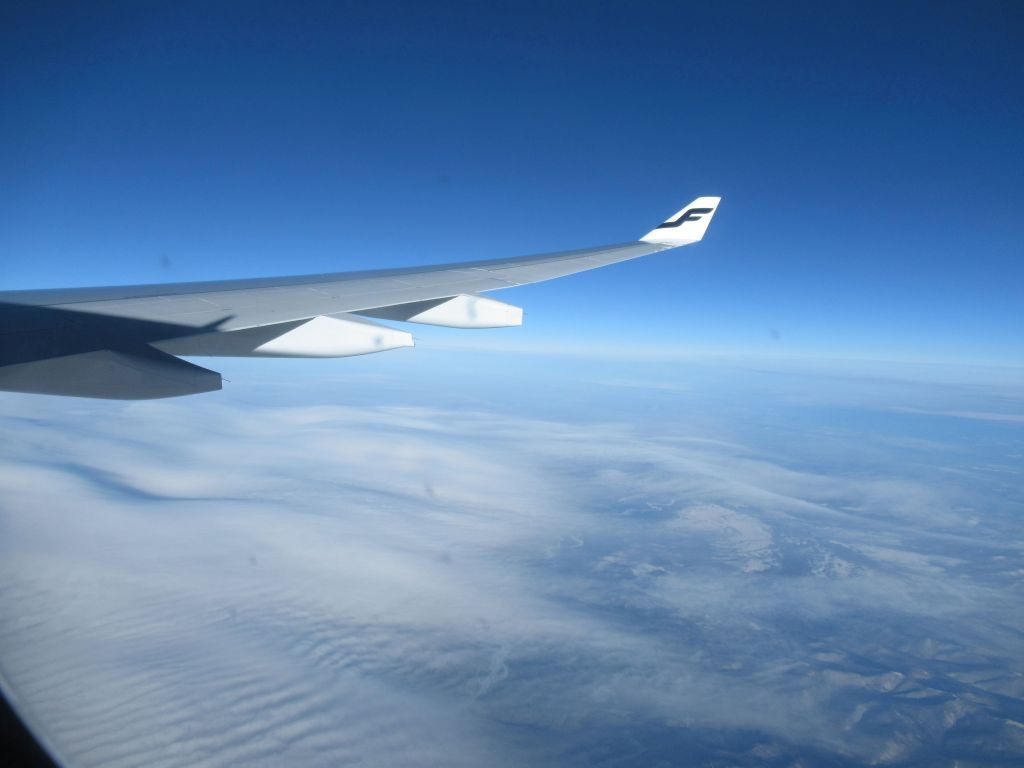
Since the external IFE screen shut down, I could just as well move around when my wife did.
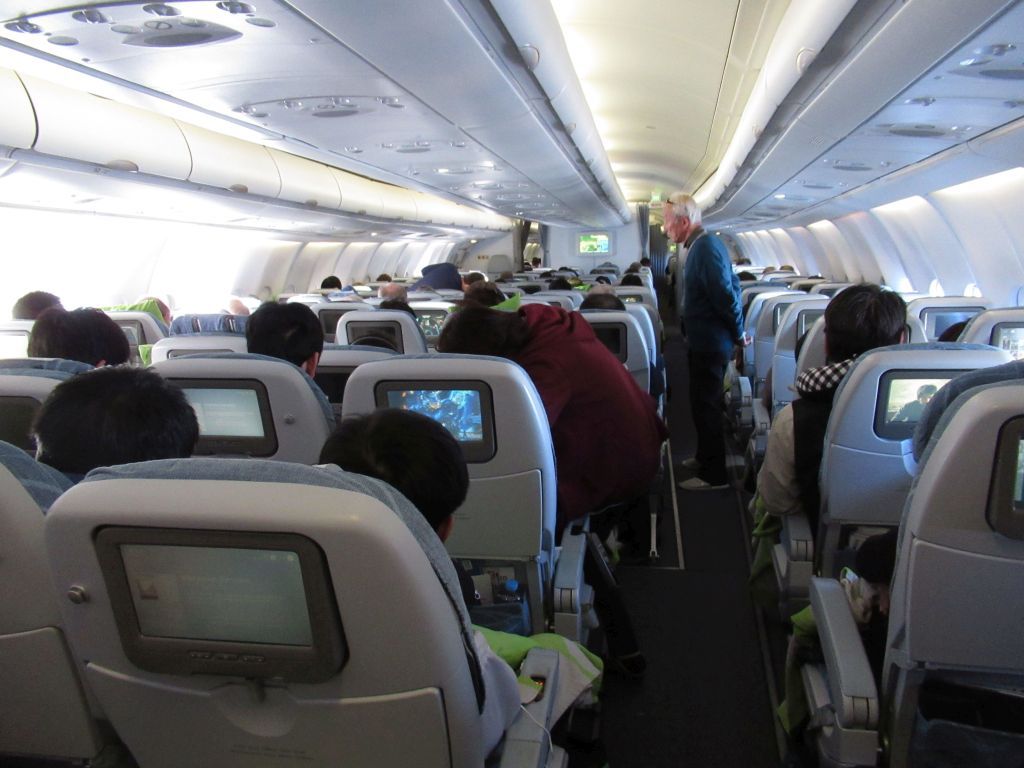
For jump seat addicts
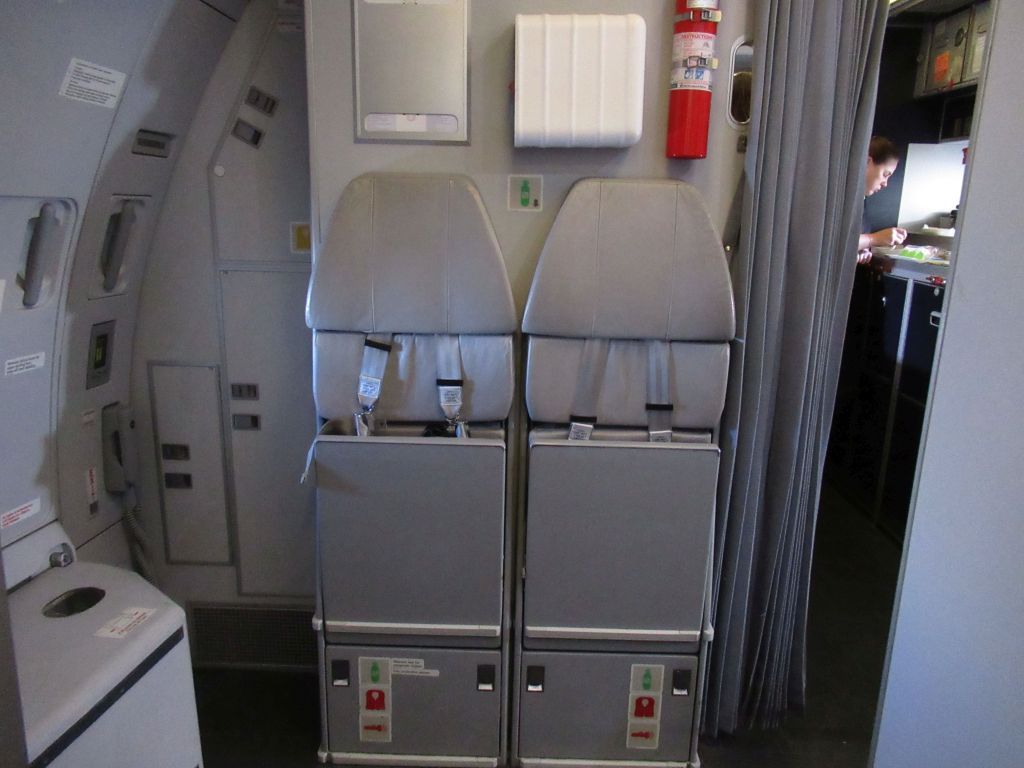
On the other hand, rear galley addicts would be on a diet
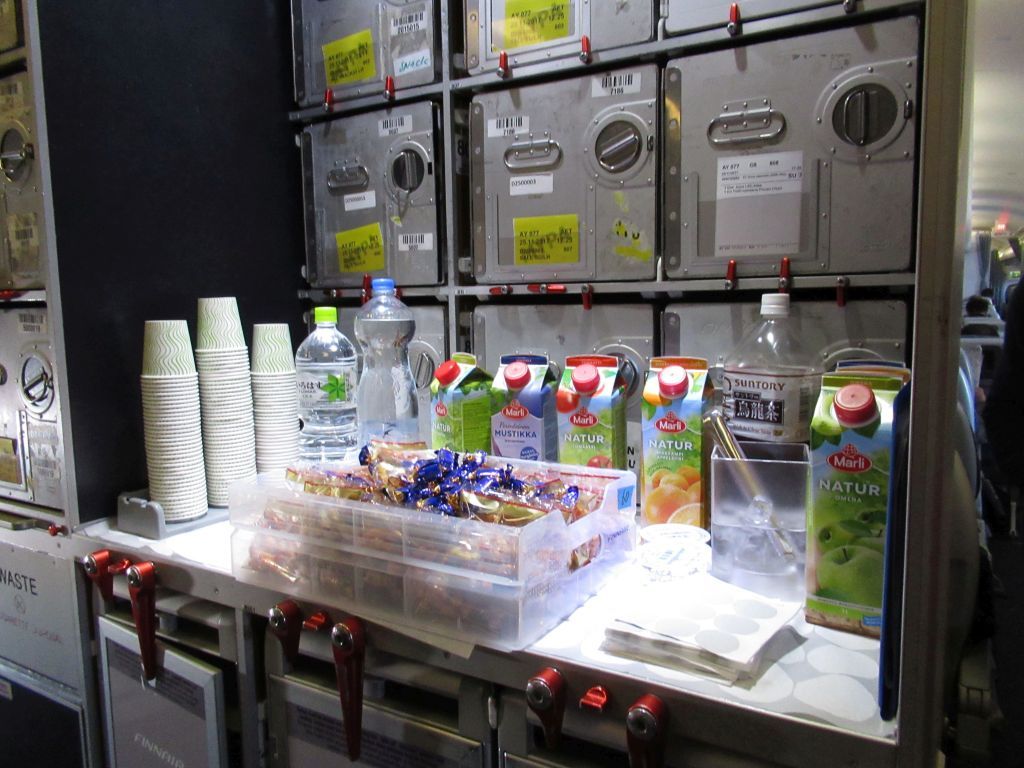
There was fruit juice – the same which had been proposed with the meal.
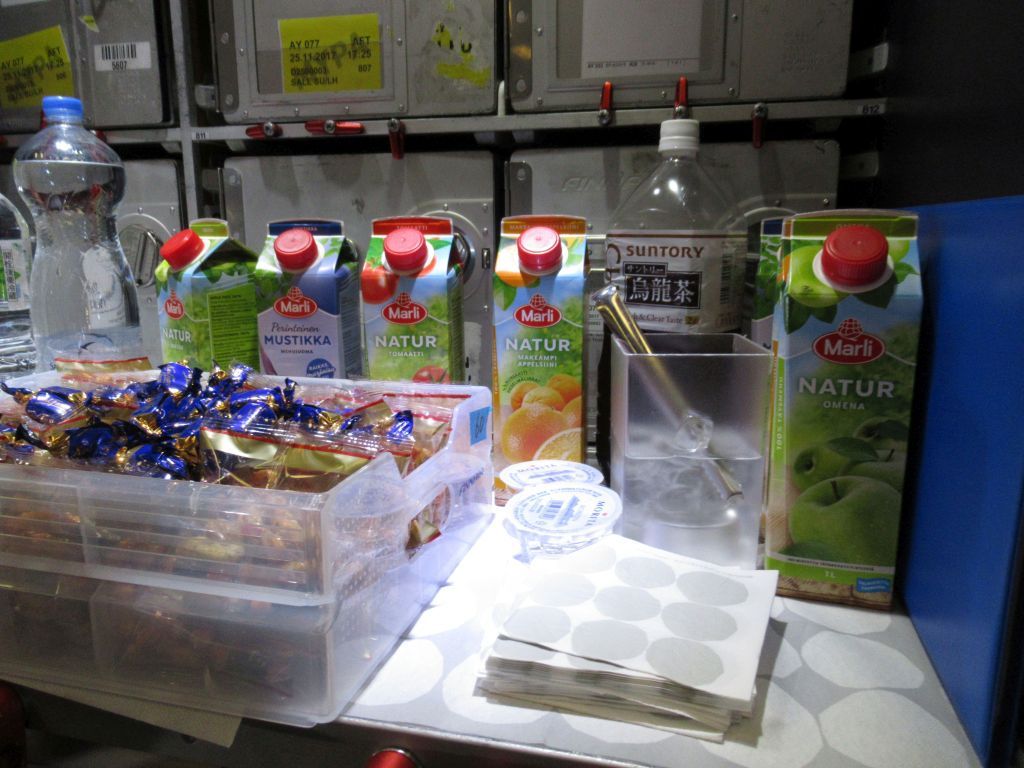
And this pretzels, sweets and typically Japanese salty snacks.
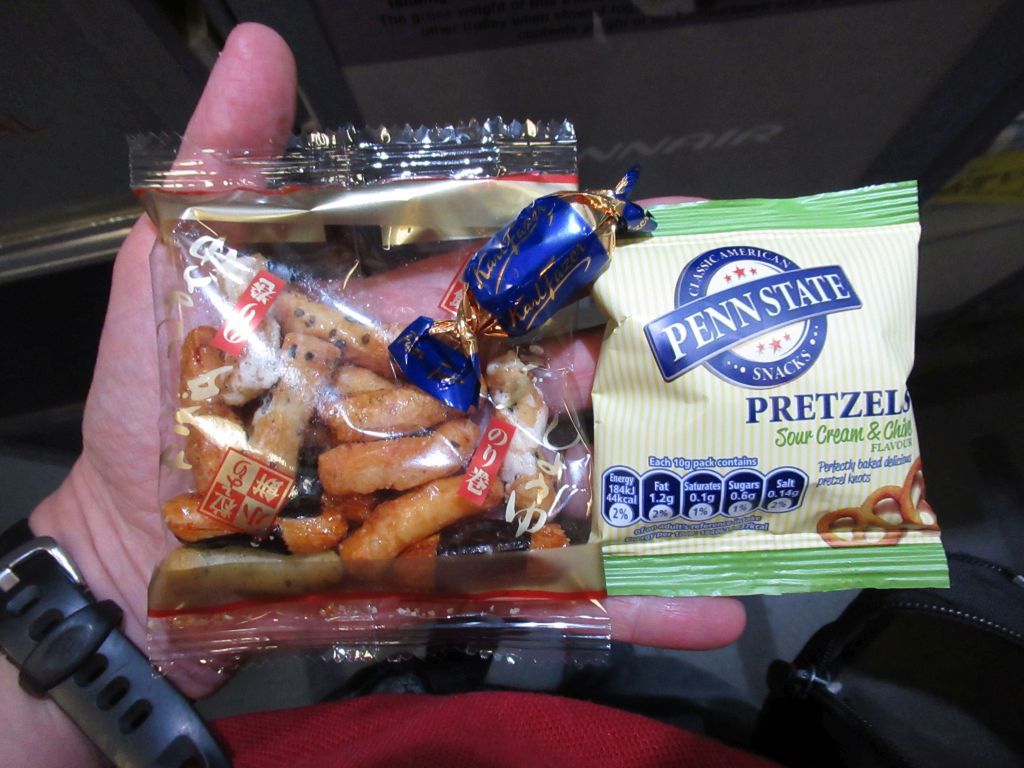
Anything more was for a charge; see the right page of the BOB catalogue which is applicable to long haul flights.
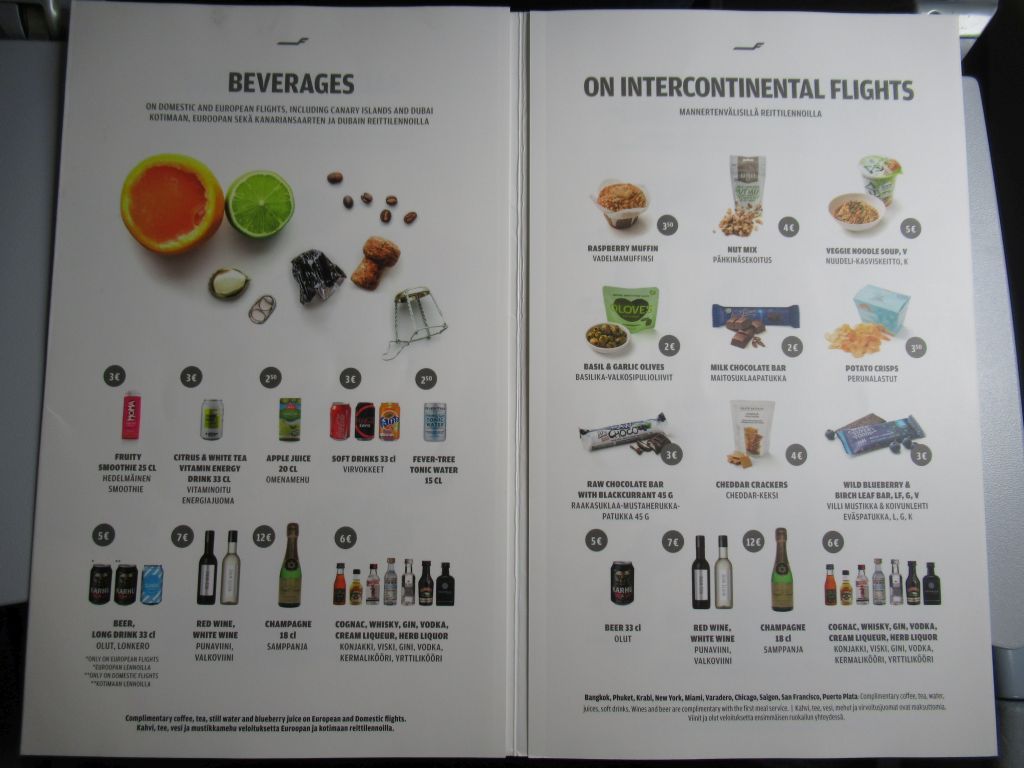
The toilets were clean, with the peculiarity of having a bilingual English-Chinese signage: there was no Finnish.

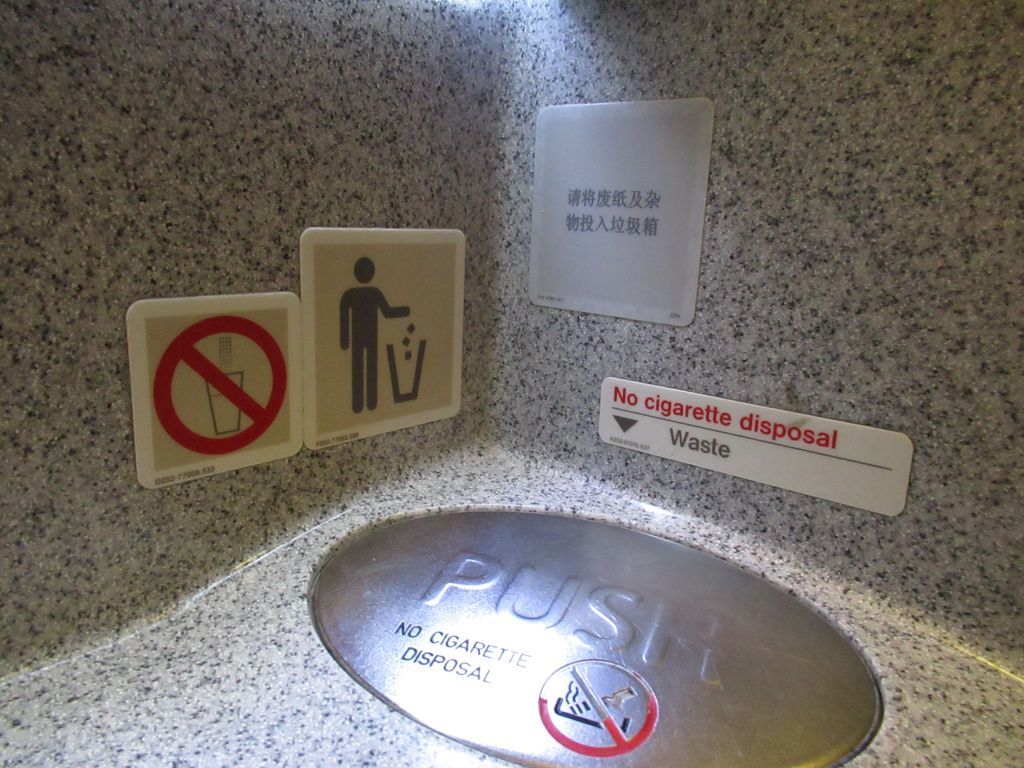
Ladies, if baby care is for you only …
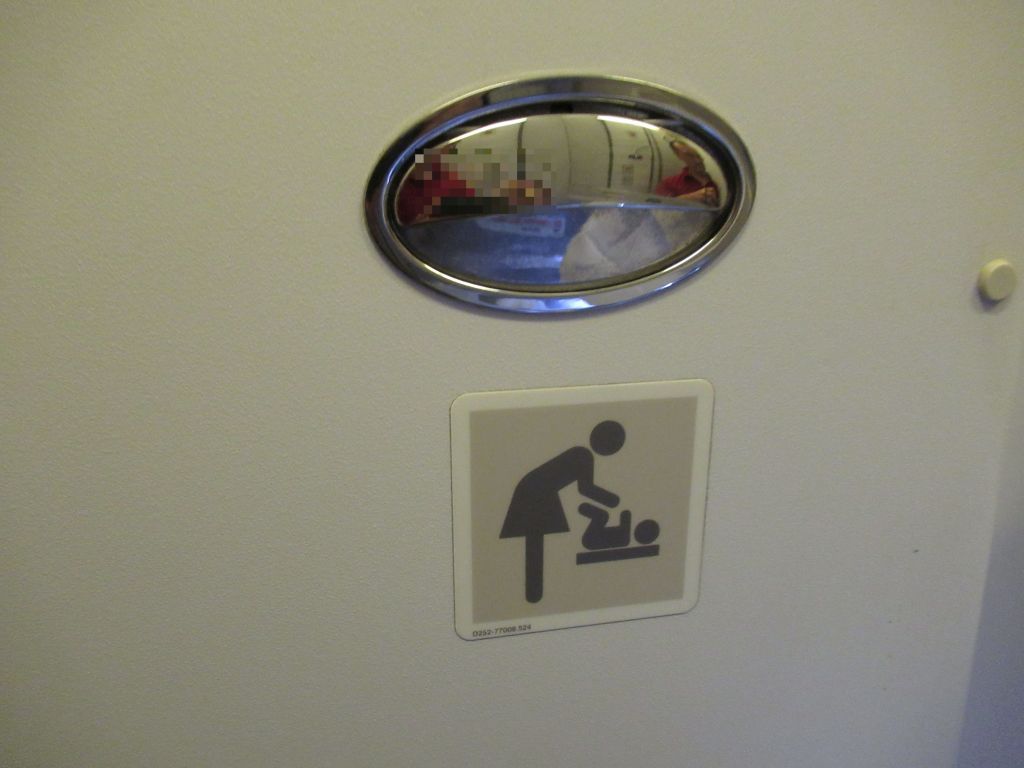
Beware to not forget your baby on the changing table !
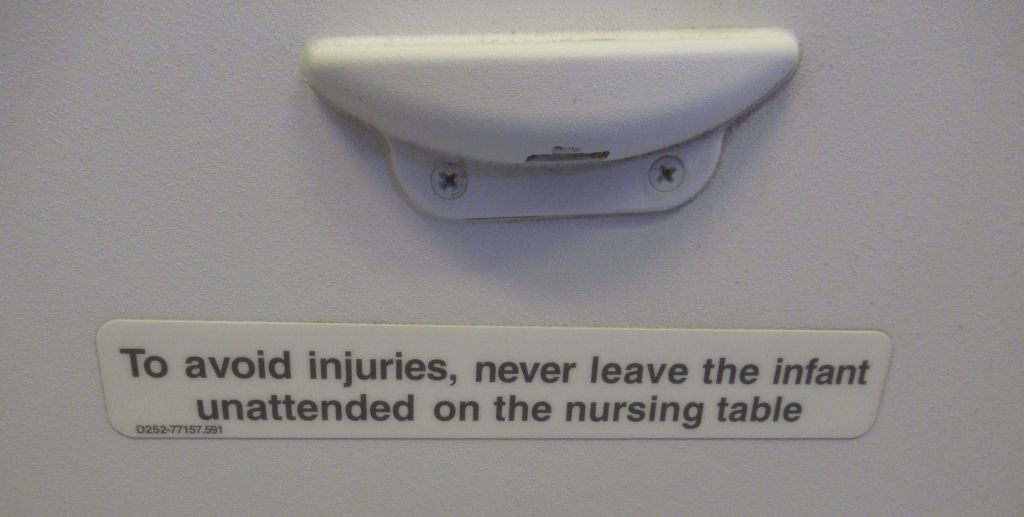
The toilets in an A330 are not vast, but at 85 cm, it was incomparably wider than your seat in Economy.
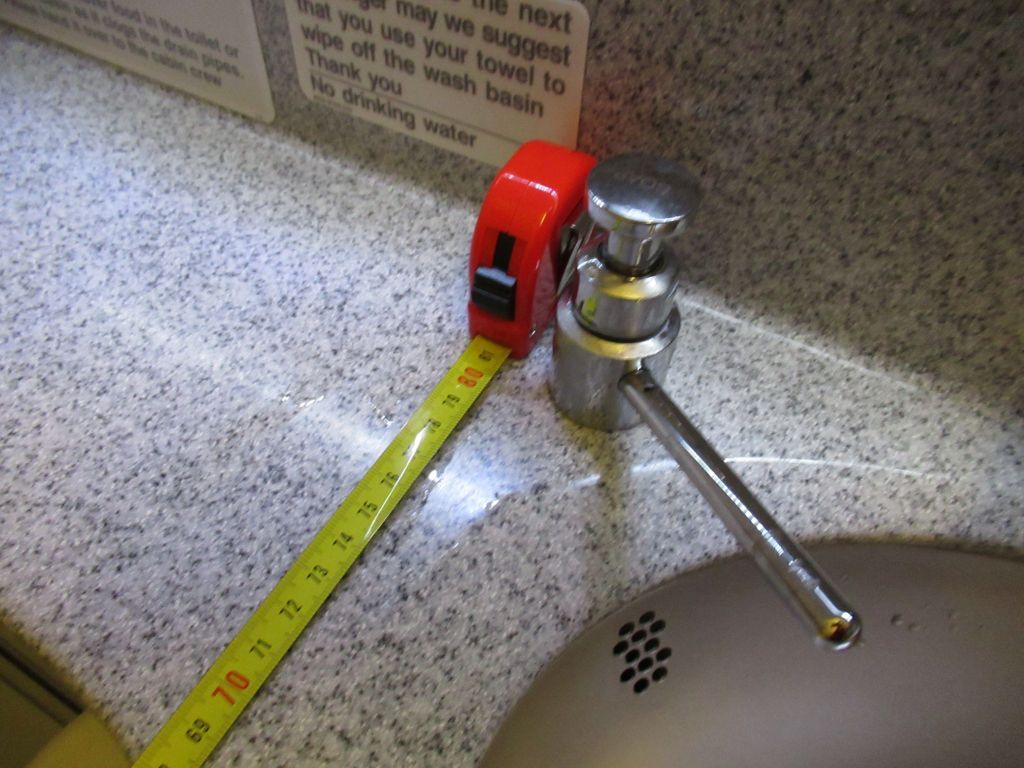
Was it the reason why it was forbidden to settle there and reach Level 17 of your favorite game on your smartphone.
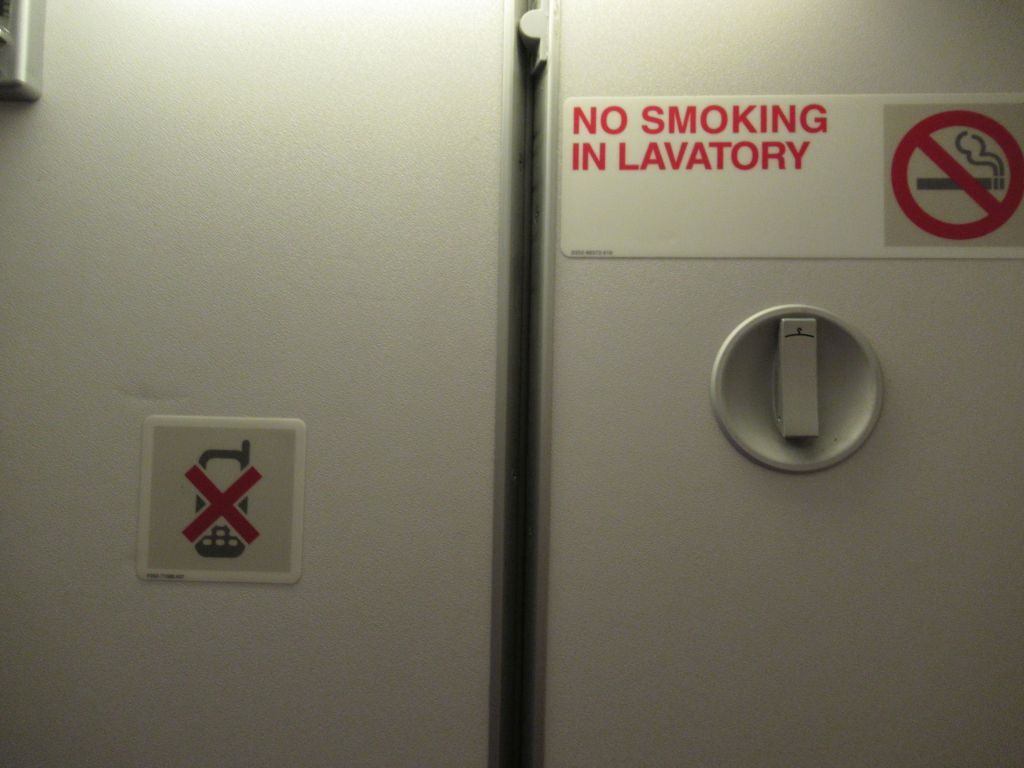
Back to the cabin : the slightly snowy landscape was soon to disappear
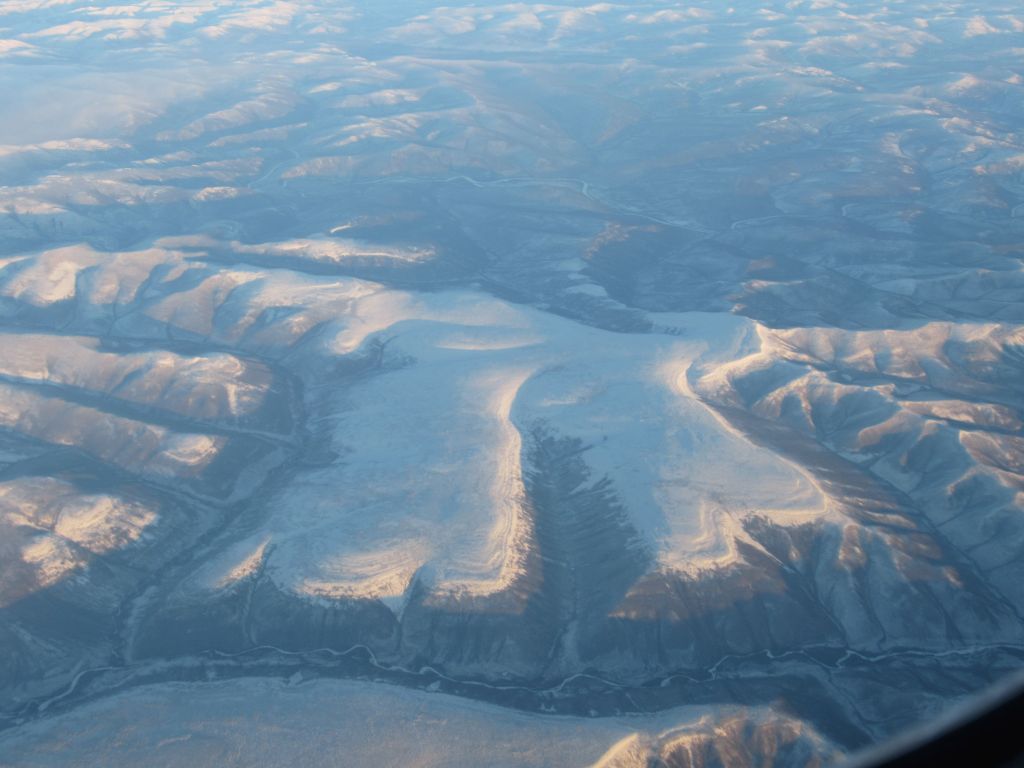
… because we kept heading north-west, at a season when the daytime is especially short at such latitudes.
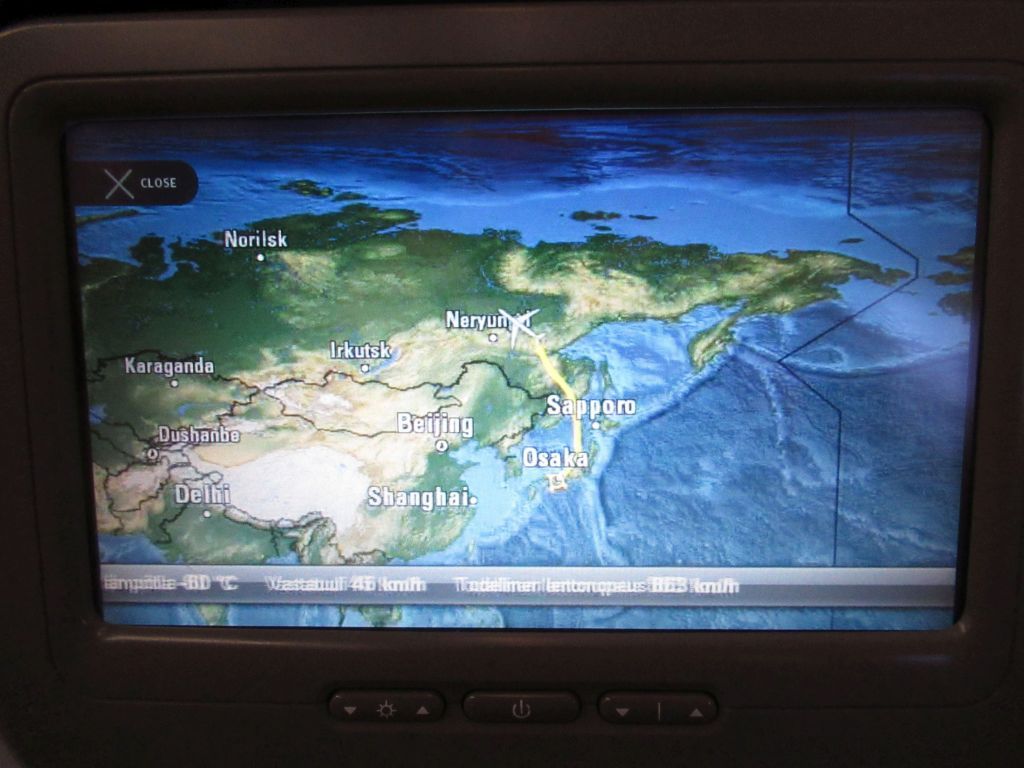
The result was that the sun set, on the other side of the plane.
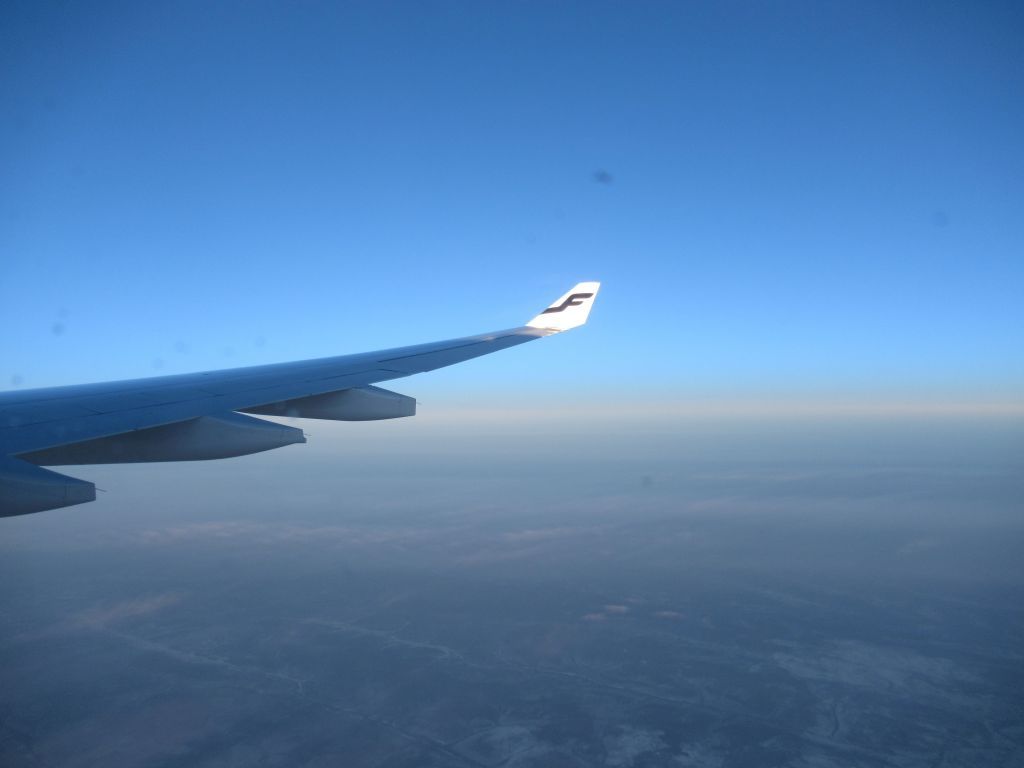
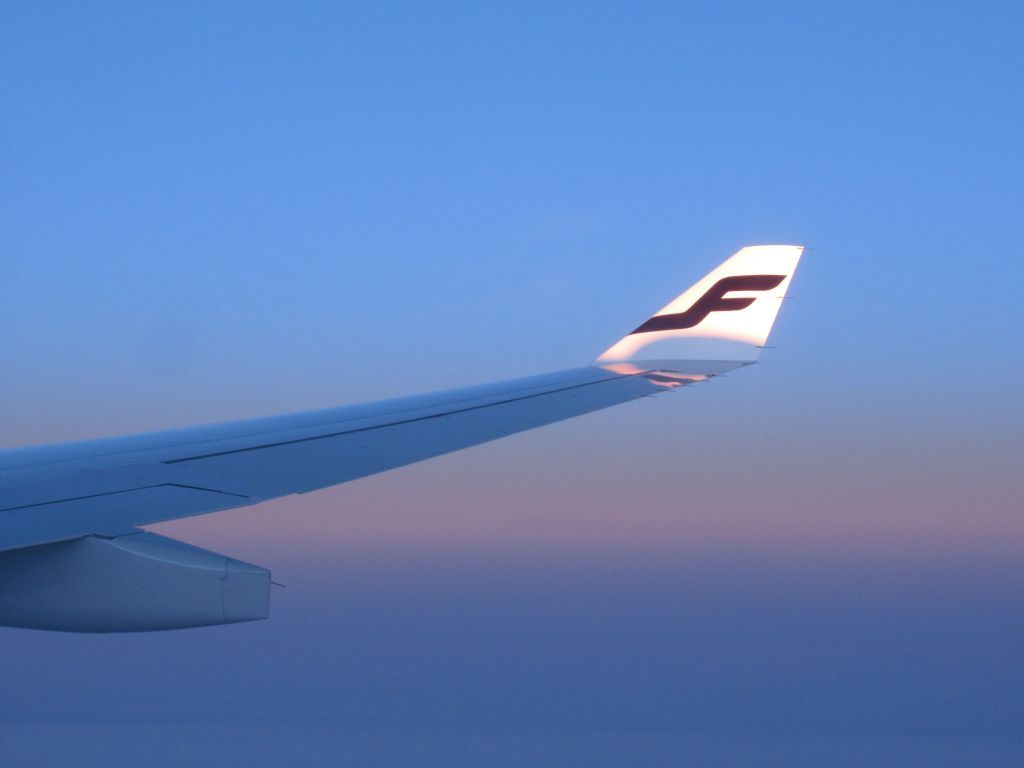
The lighting in the cabin was eventually switched off, but the FAs did not have the passengers lower their window shades
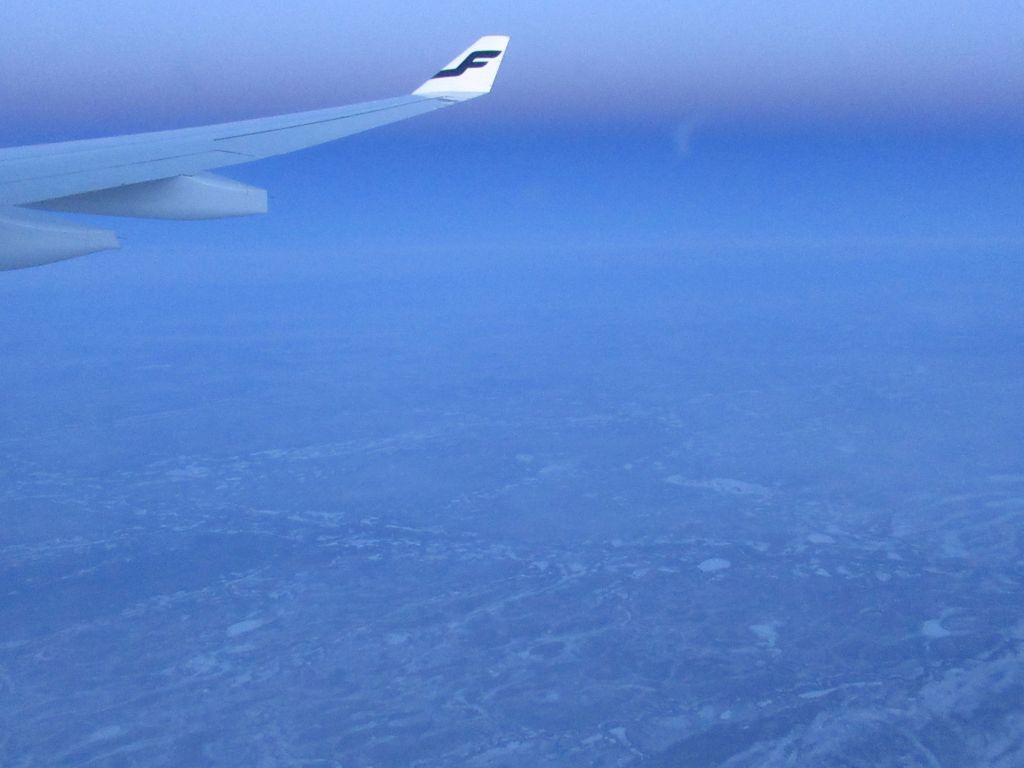
Yes, we had something extra during the night, i.e.; this vanilla ice cream. Small. Tiny. With a 63 mm top diameter, a 38mm depth, a slight truncated conical shape, amounted to a volume of 100 ml, and with a typical overrun of 50%, that translated into 50 grams of ice cream. Claiming that it was packaged in a スーパーカップ (sūpākappu = “super-cup”, as transcribed in Japanese phonetic katakana) did not make it a super-product.
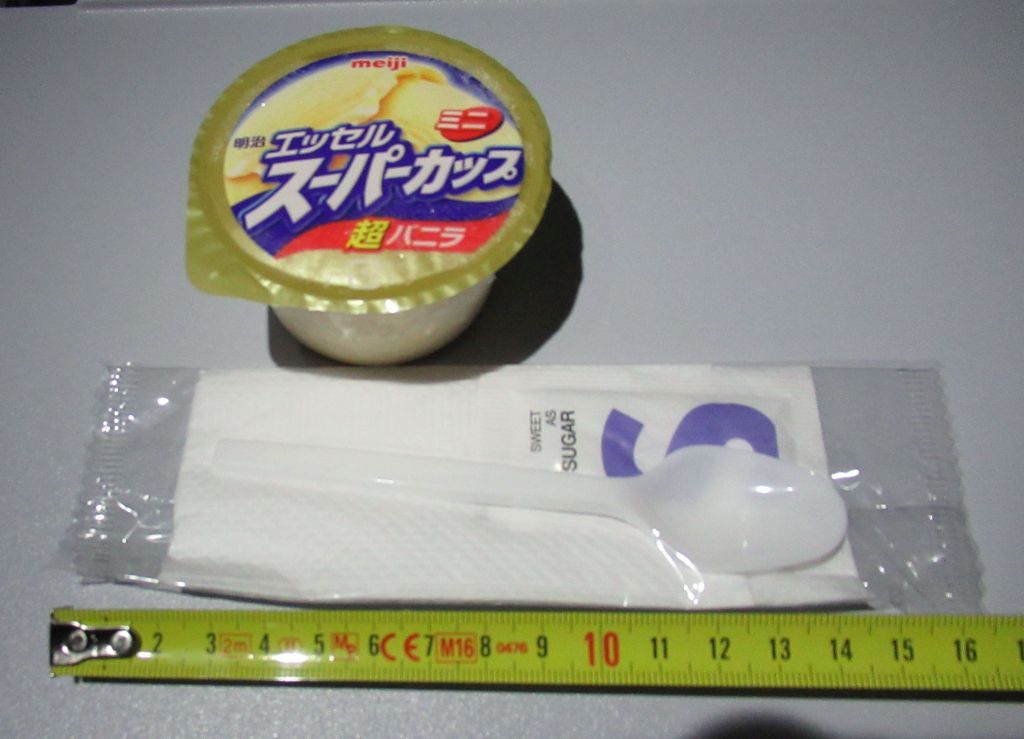
Had you noticed the welcome presence of a 310 ml bottle of water in the seat pocket ? “Alpine spring water" : was it water from the Japan Alps ? No, read the red banner at the bottom of the label: マウントシャスタの湧水, i.e. “Mt Shasta Spring water”. You probably did not know it any more than I did, but 4,381 m high Mt Shasta and the tiny homonymous town at its foot are located close to the northern border of California, some 8,500 km from KIX as a Finnish crow flies. I know that sea freight costs next to nothing in heavy fuel oil and Filipino seamen wages, but maybe there could be better ways to save the planet than transporting water across the Pacific Ocean.
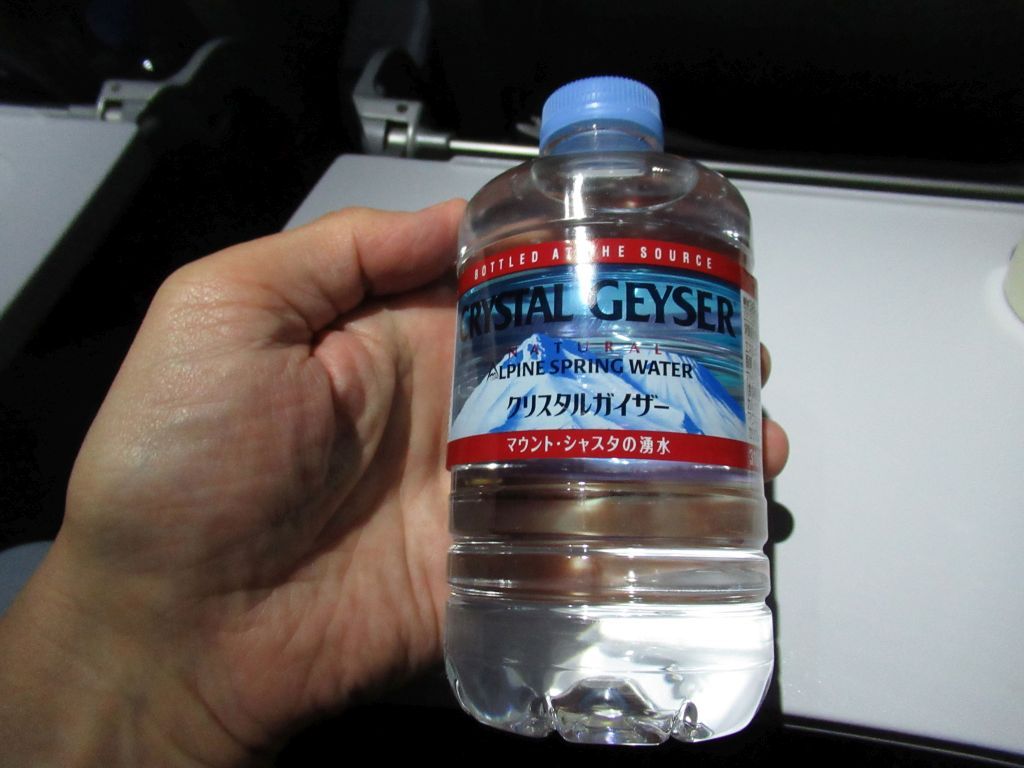
We did not seem to have made all that much progress so far.
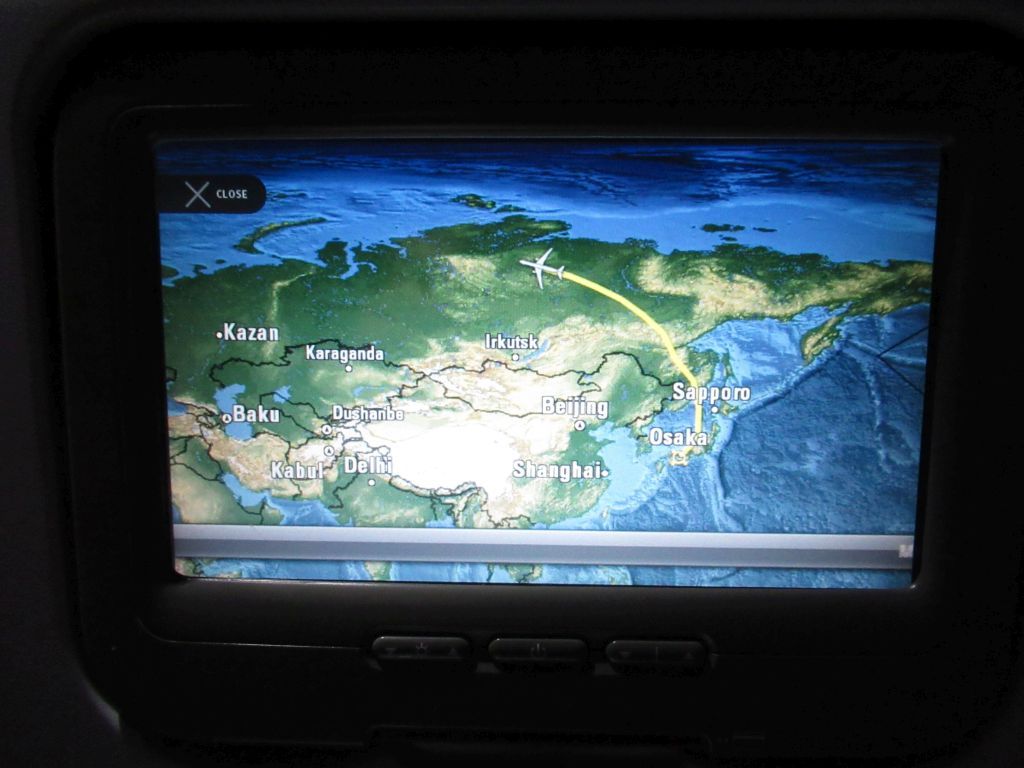
And we only knew it intermittently. I did not know that the Great Wall extended all the way to Siberia ! :)
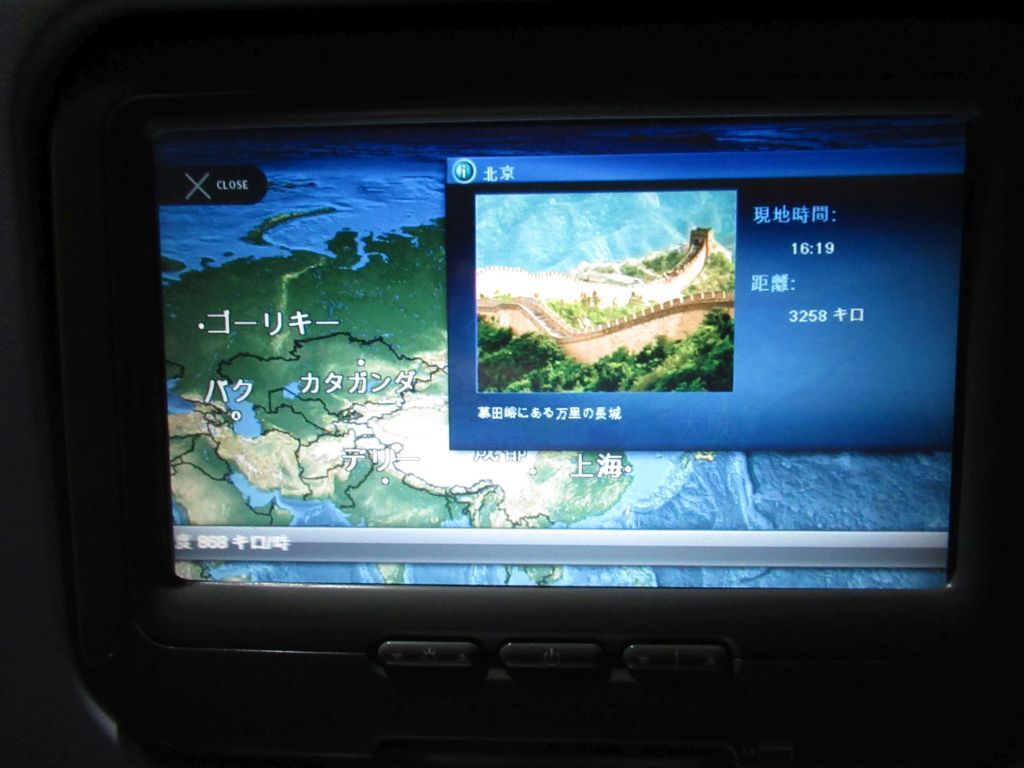
It was also dumb to mask here the location of the plane with a time information display.
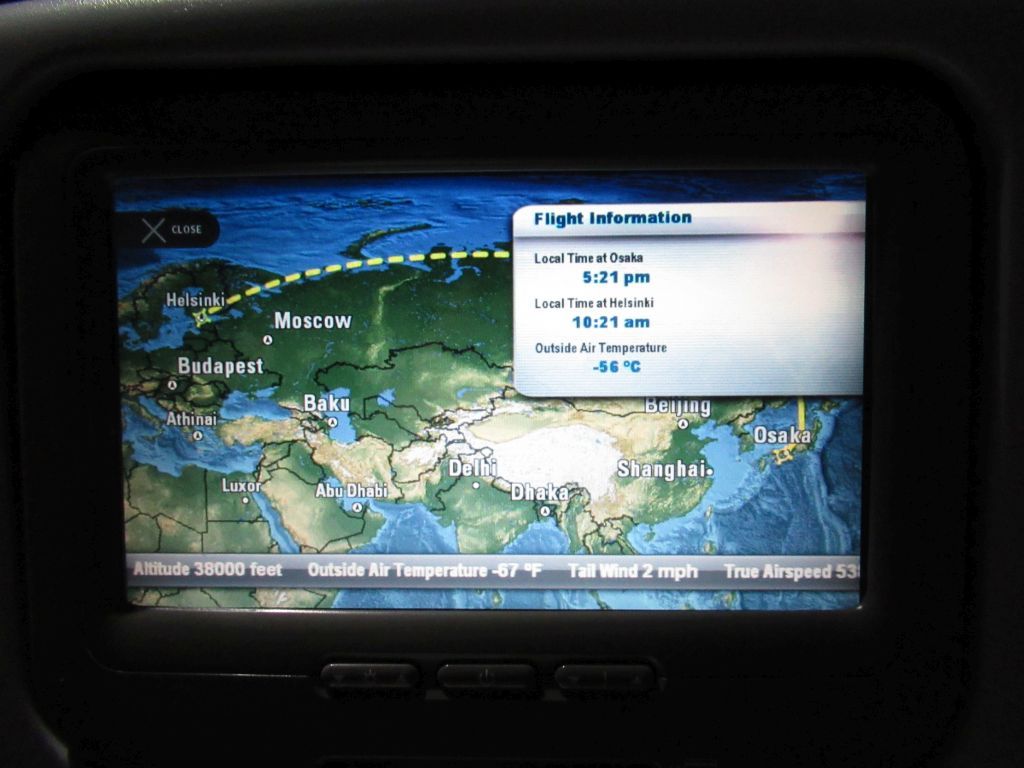
This vintage cockpit display provided no geographic localization information, and as already mentioned in my report of the flight on the way in, these pages cycled without any possible interaction of the passenger : there was one moving map program, period, and seldom showed the location of the aircraft on the map.
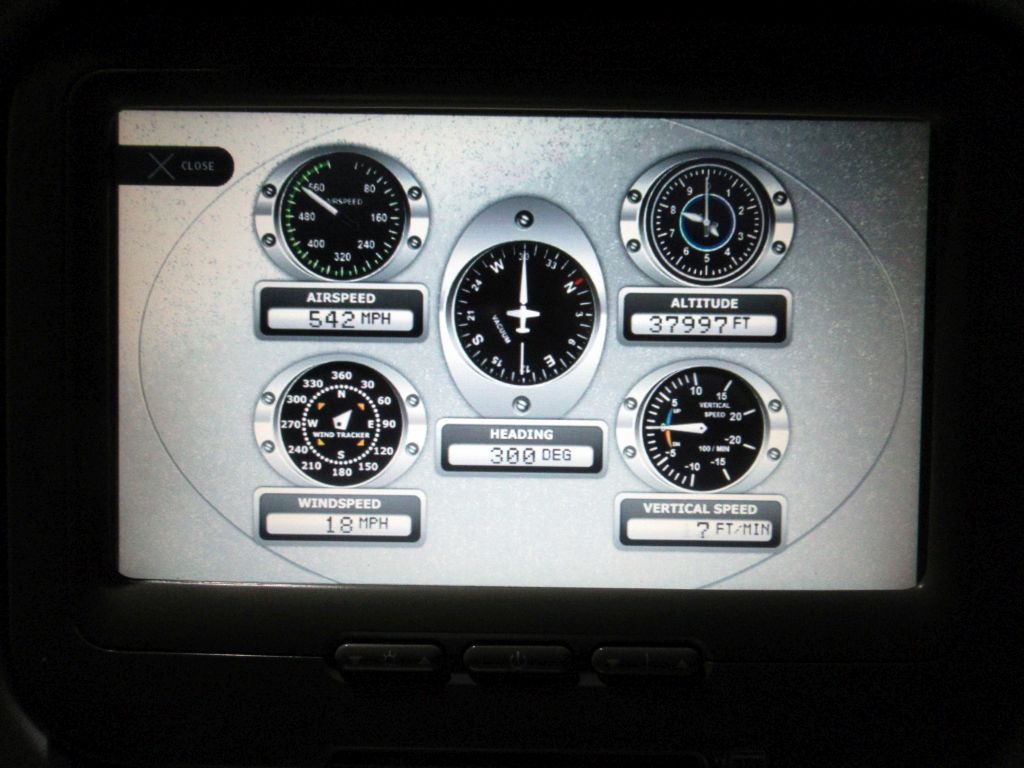
The moving map was disappointing, but I knew that there would not be much to localize during this long flight above Siberia. What about the games? They were up to the moving map and the audio / video channels standards: poor.
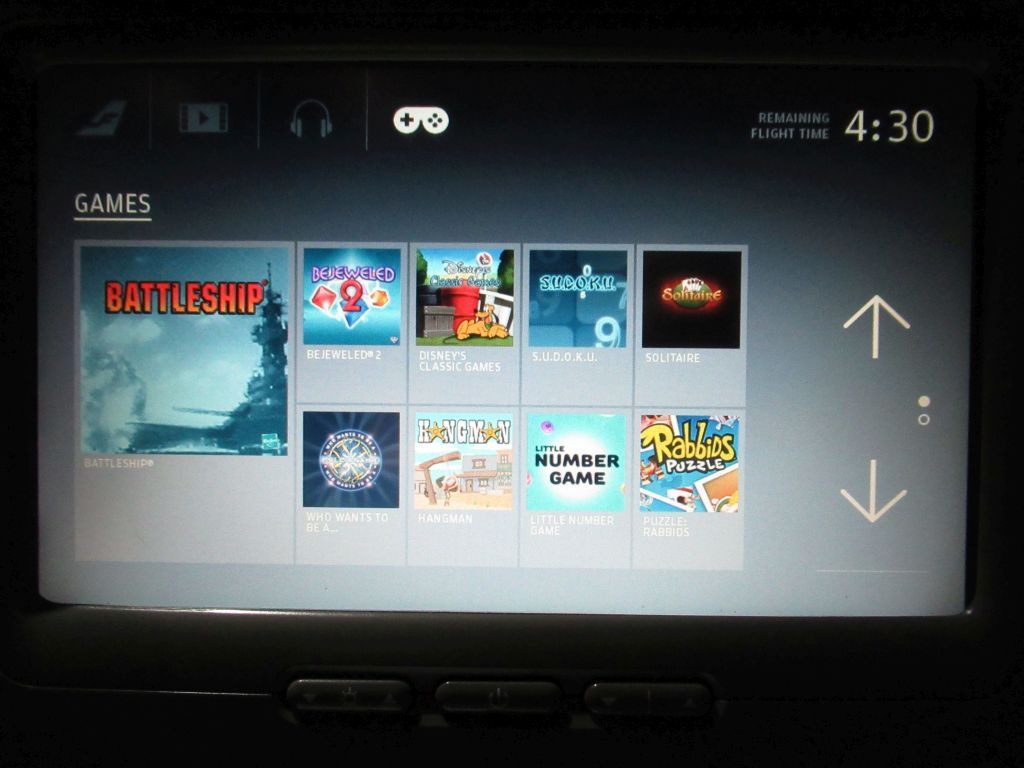
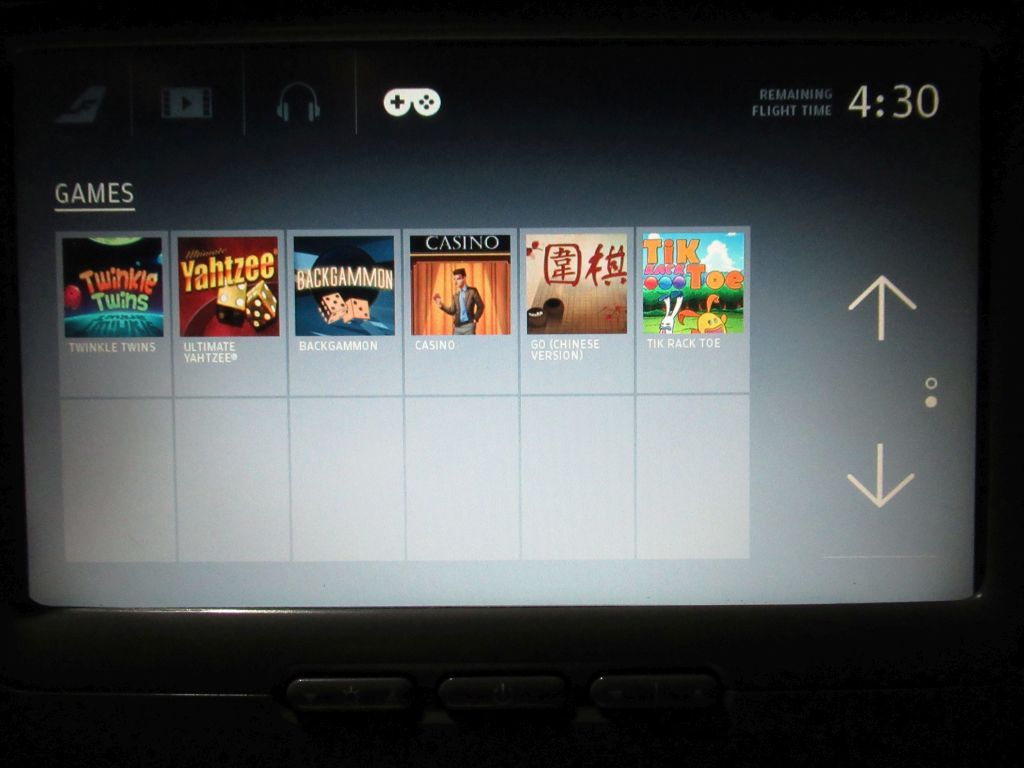
This screen – about 8" diagonal – is admittedly a touch screen.
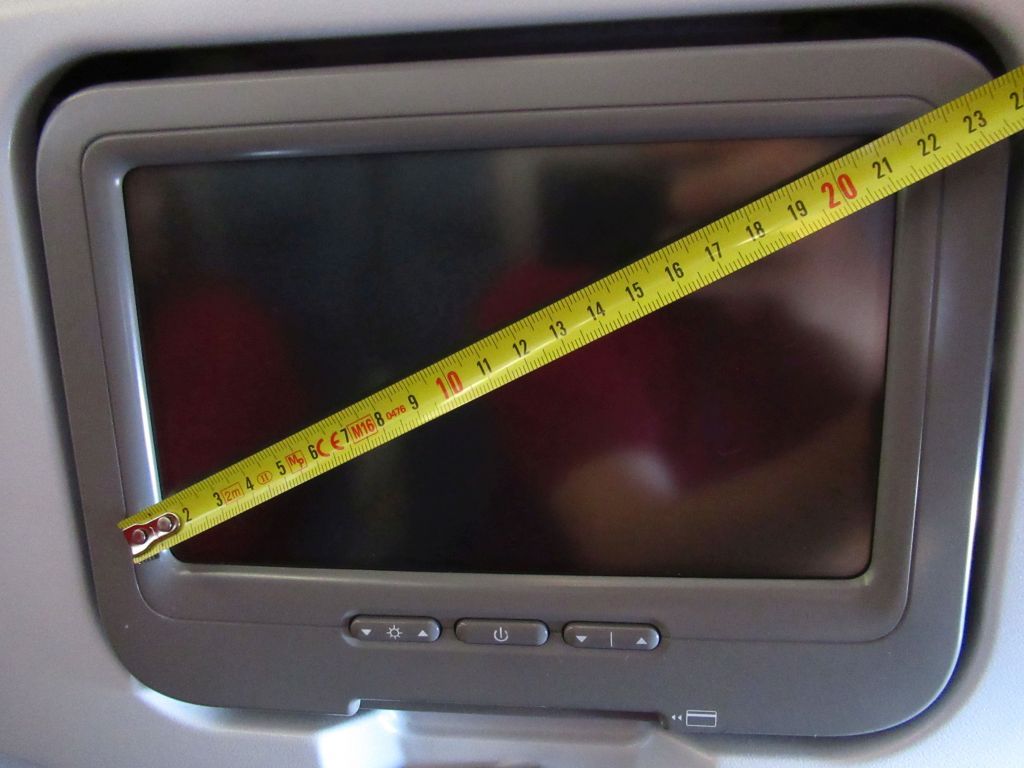
But its sensitivity was very poor. My wife found it exasperating to need three to four tries each time she wanted to move a card on this game. Maybe the passenger sitting on the other side of that screen found it exasperating too, but he did not complain in any way.
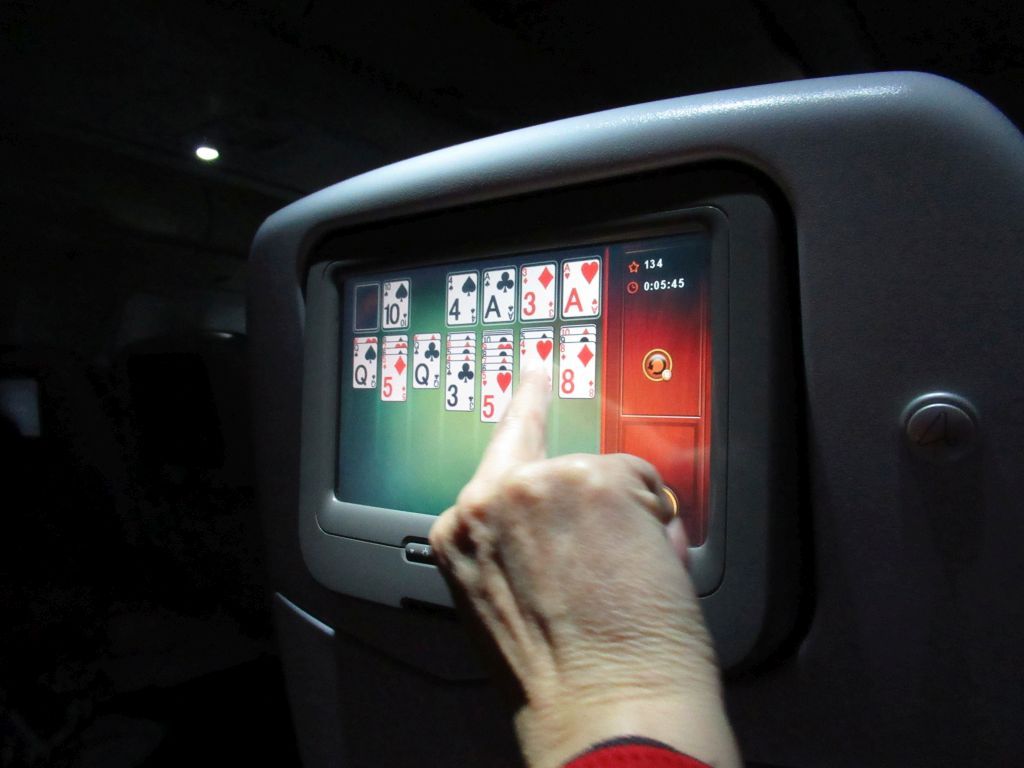
The moving map was not worth relying upon, the games were not worth playing, the movies were not worth watching (my wife tried one and found it too stupid to deserve watching to the end), the landscape was dark (three weeks from the winter solstice, it was polar night on the great circle route): the only remaining entertainment left was going around in the plane.
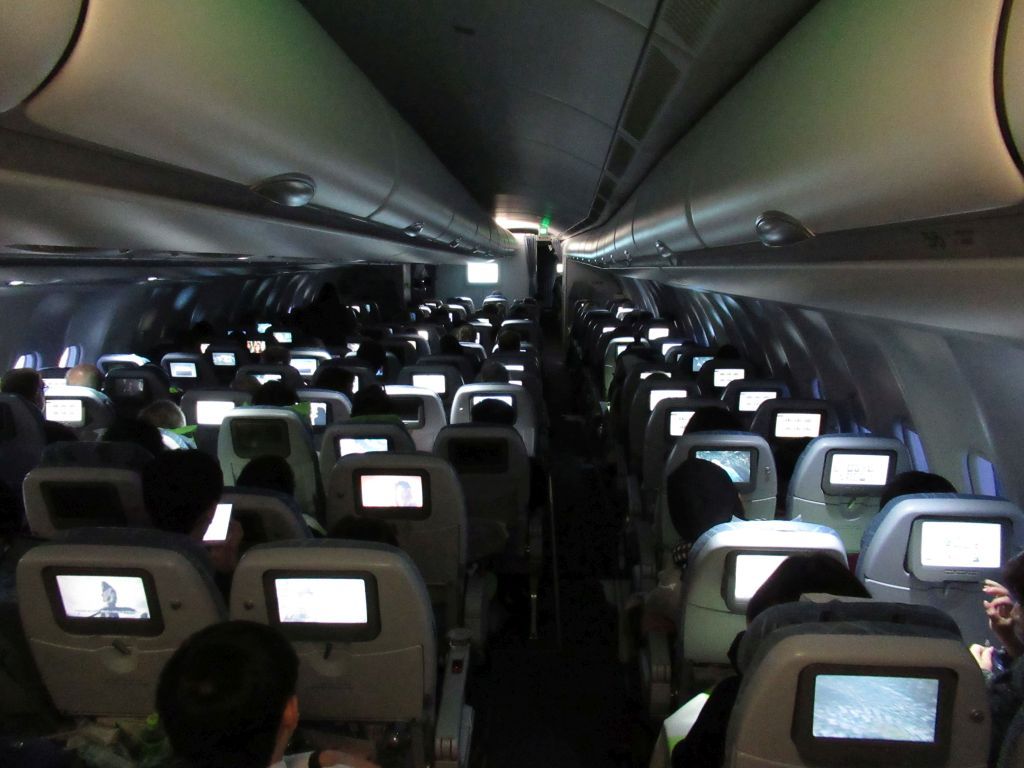
Passengers had taken whatever food was available in the galley : the stock had significantly diminished.
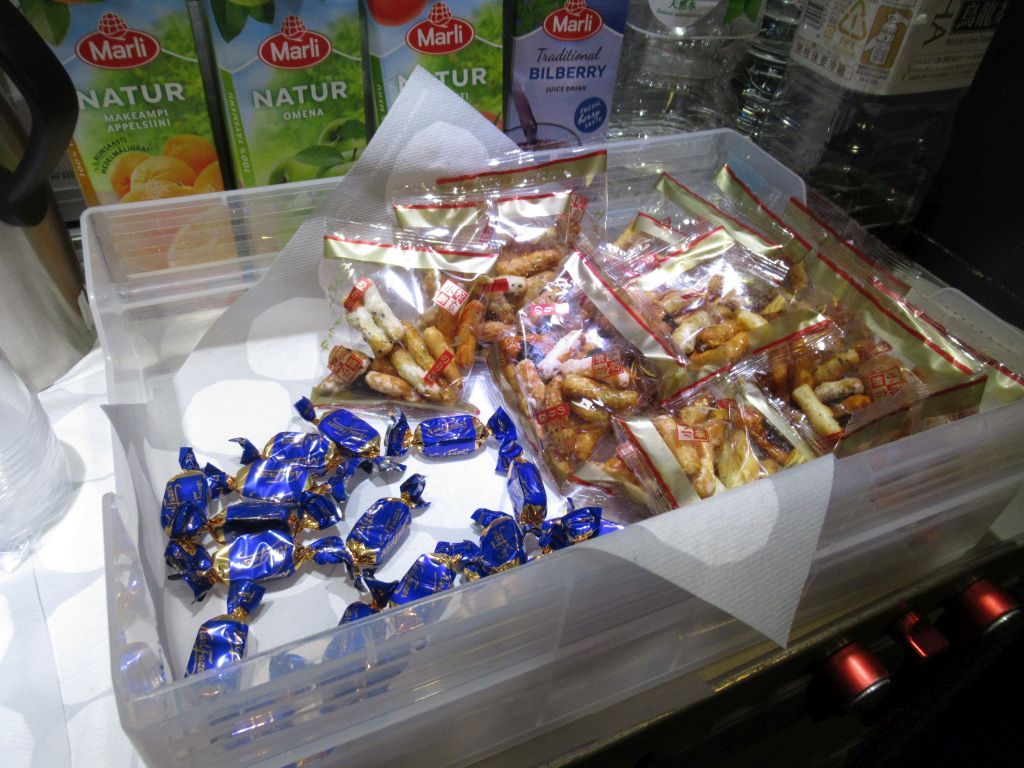
It was kind of dumb to realize (or remember, rather) only then that there was a power port hidden under our seat duo, after hours of using my laptop at minimum screen lighting level to make the battery last as long as possible.
Maybe because of a current surge issue, this power port wouldn’t work if I connected the charger to the laptop first, then to the plane’s socket : it worked when connecting the charger to the plane’s socket first, and my laptop voraciously recharged and managed until we had reached our final destination.
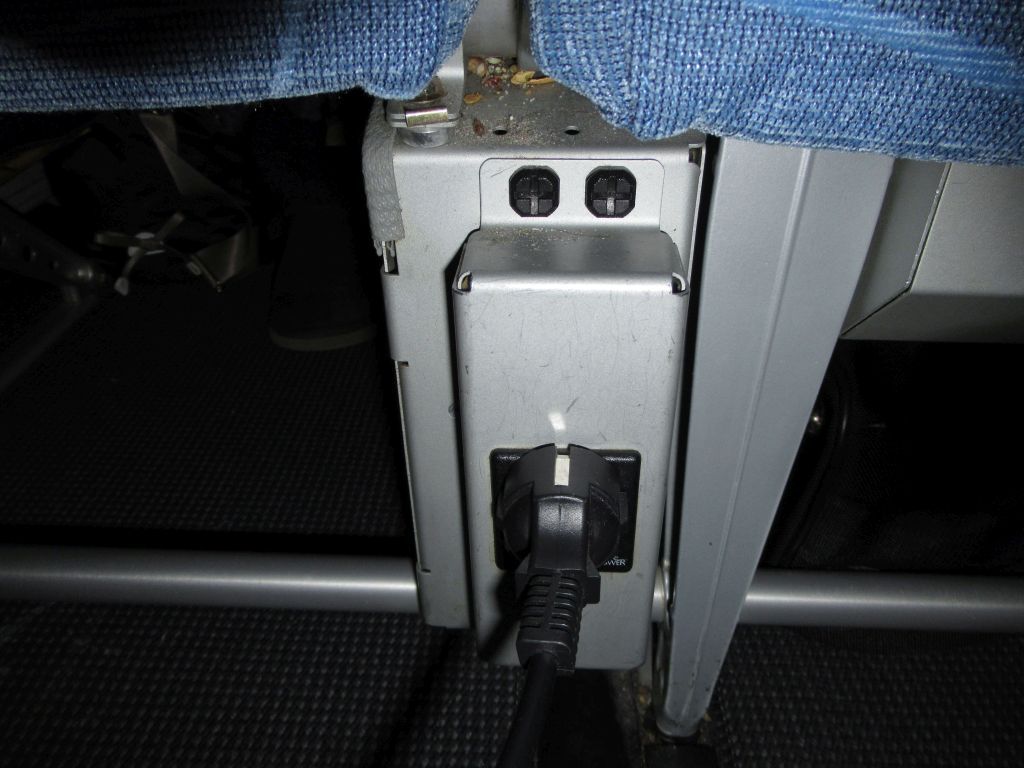
The collation was served 1h40’ before landing
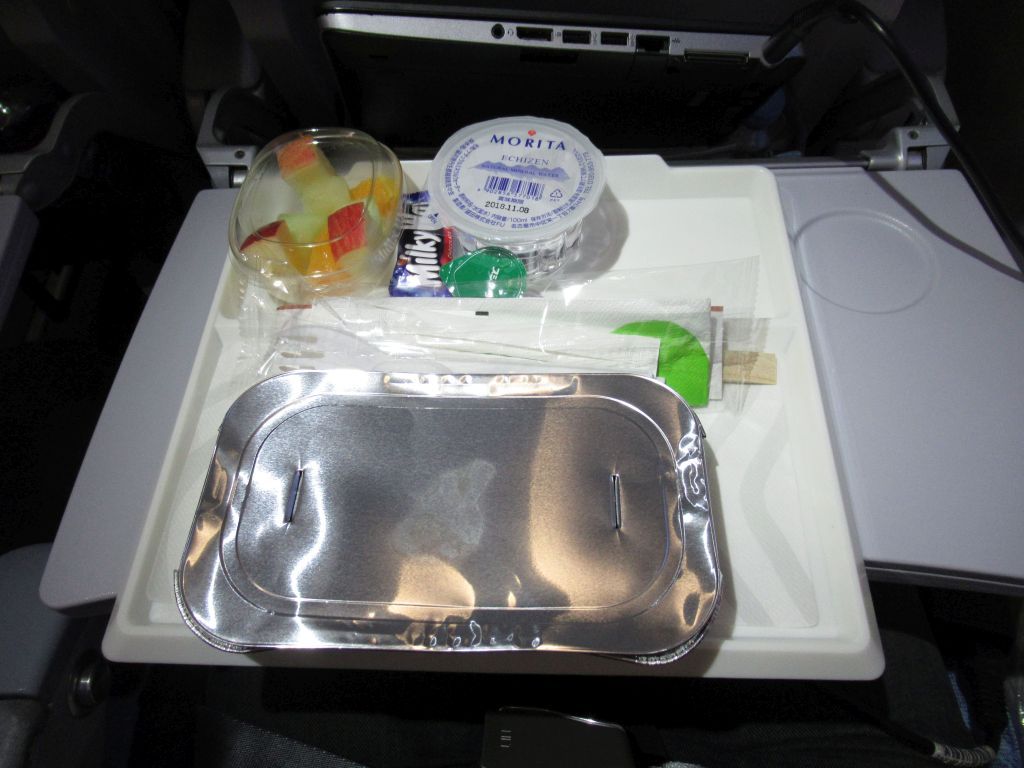
A cup of ribbon noodles, a very small cup of cut fruit and an equally small Milky Way bar, with a water capsule. There was one more set of plasticware and disposable chopsticks.
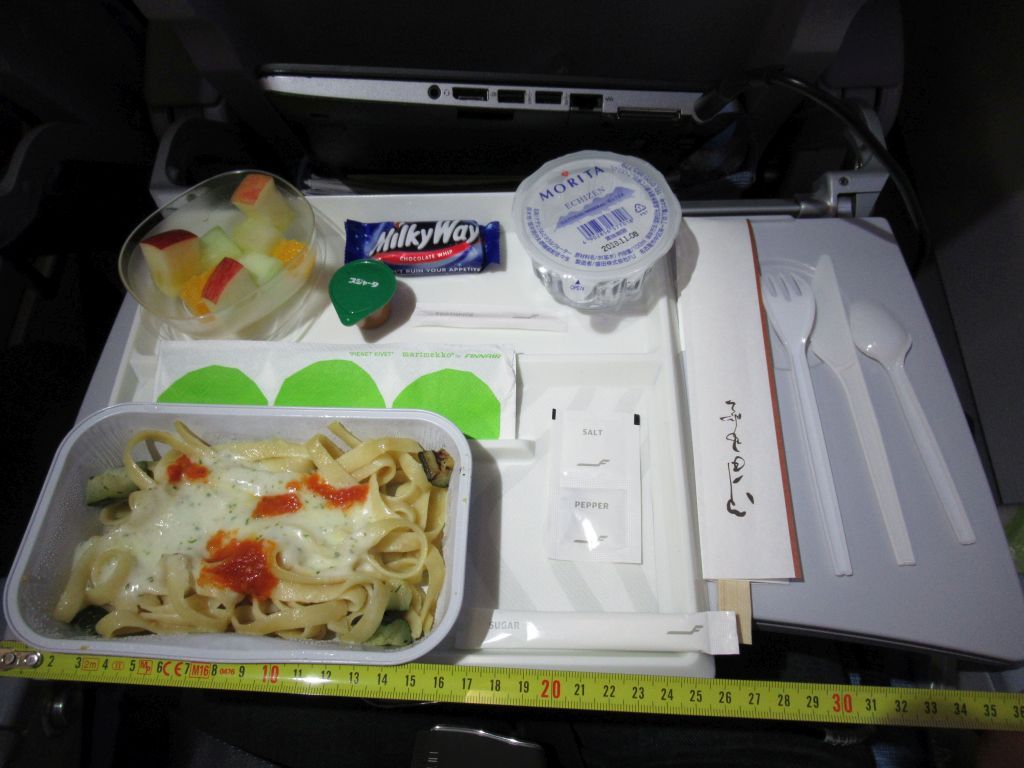
スジャータ was only the name of the provider : nothing other than experience could tell that this was fake milk for use in coffee or tea.
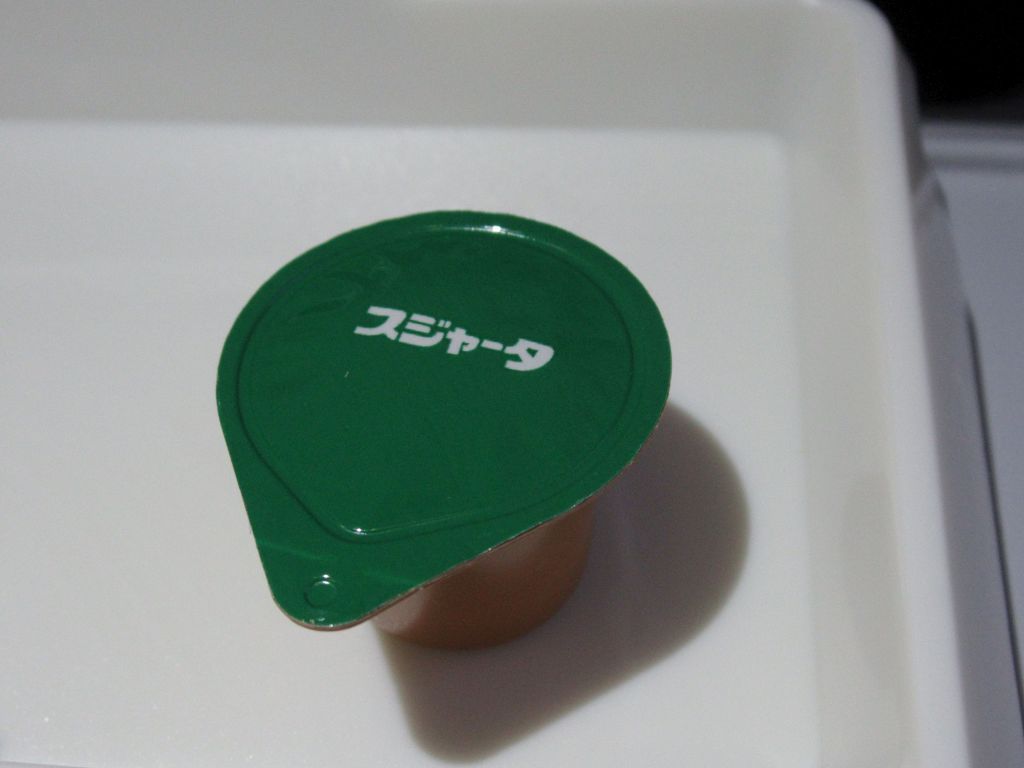
I drank a Coke with this meal
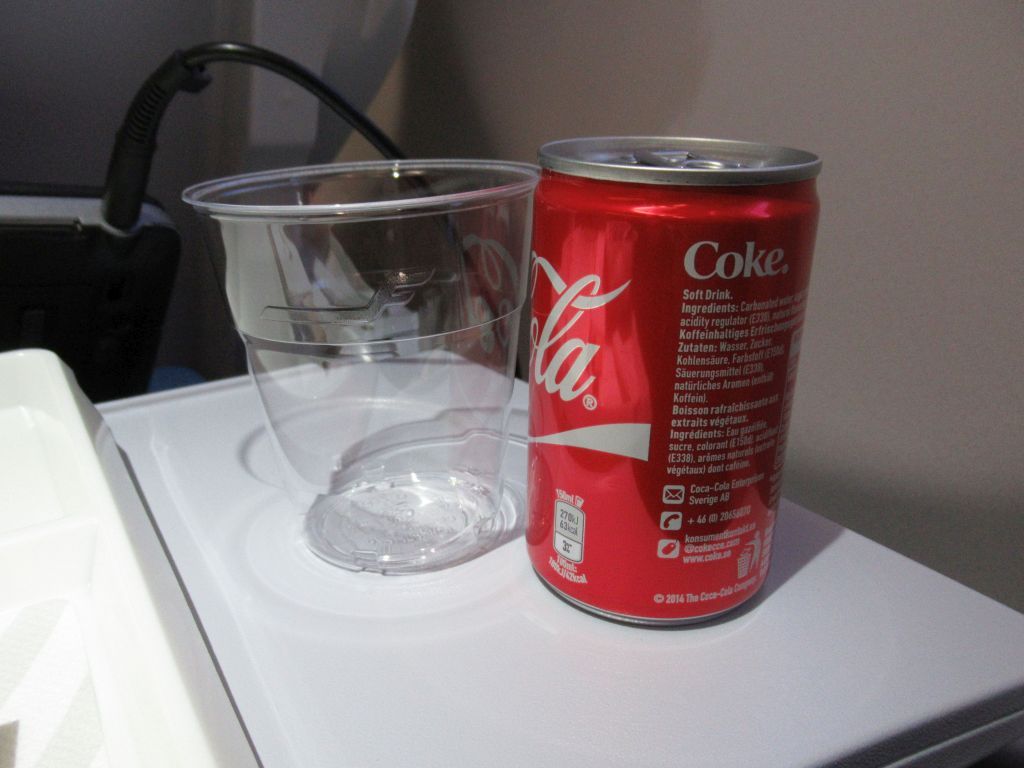
I had at least some caffeine while waiting for coffee
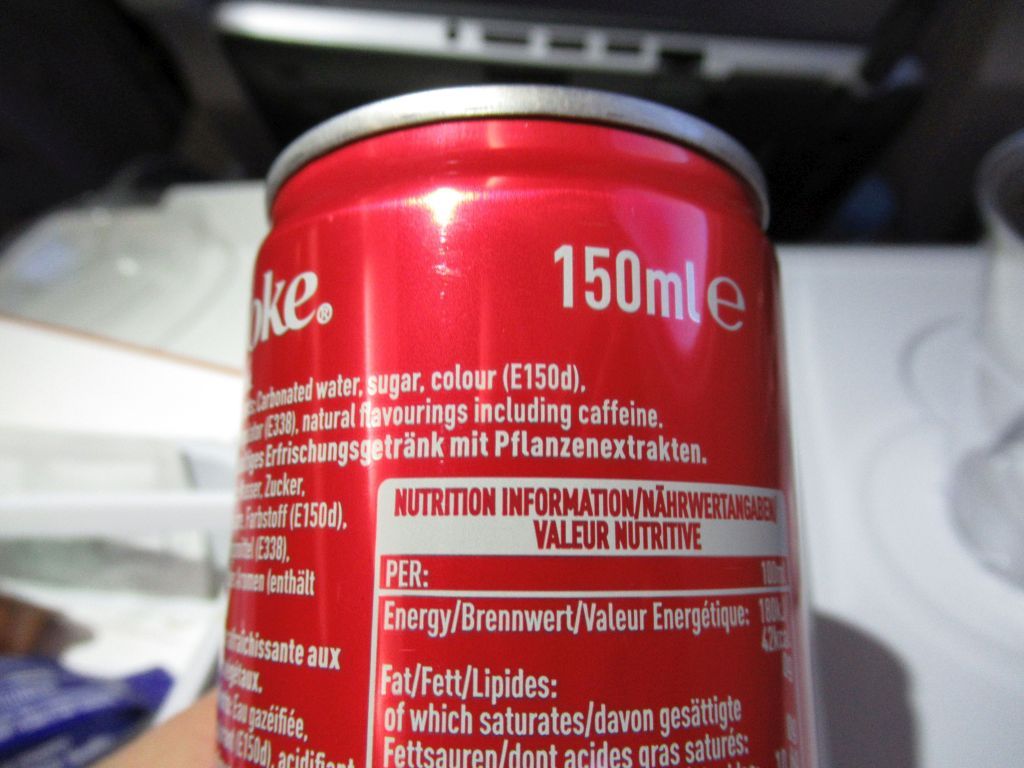
My wife remarked that it was politically incorrect to compact all the rubbish this way because the FAs were apparently doing some selective sorting which was impossible when being handed this.
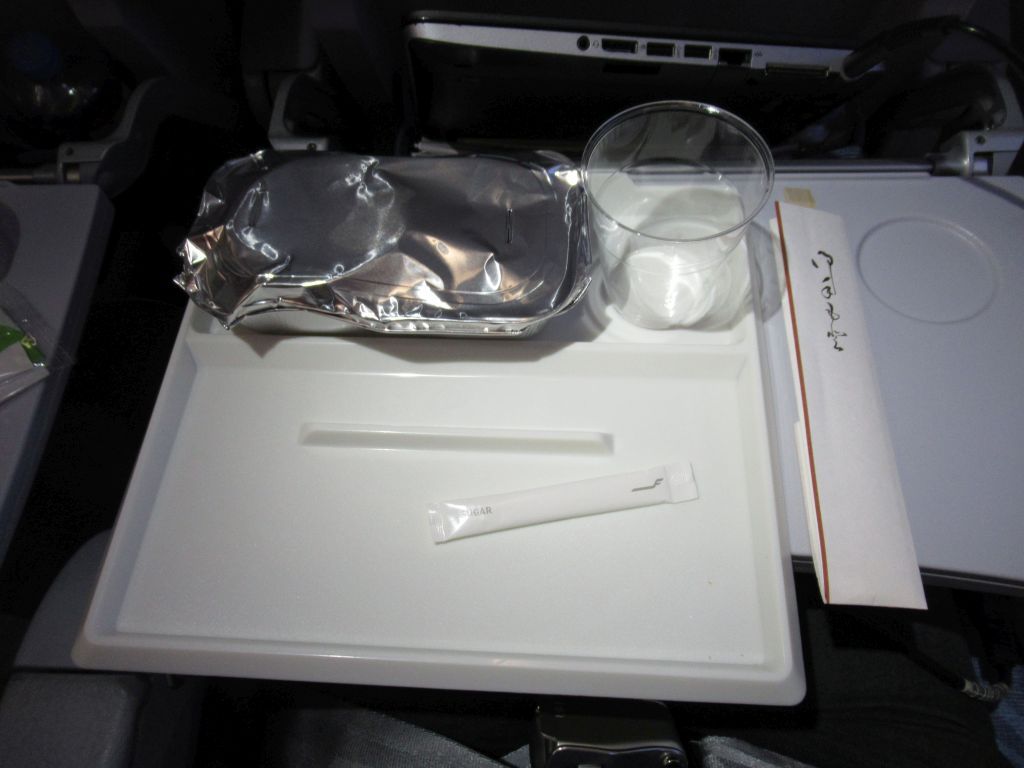
Coffee arrived a full half hour after the tray… and a quarter of an hour after I had packed the latter.
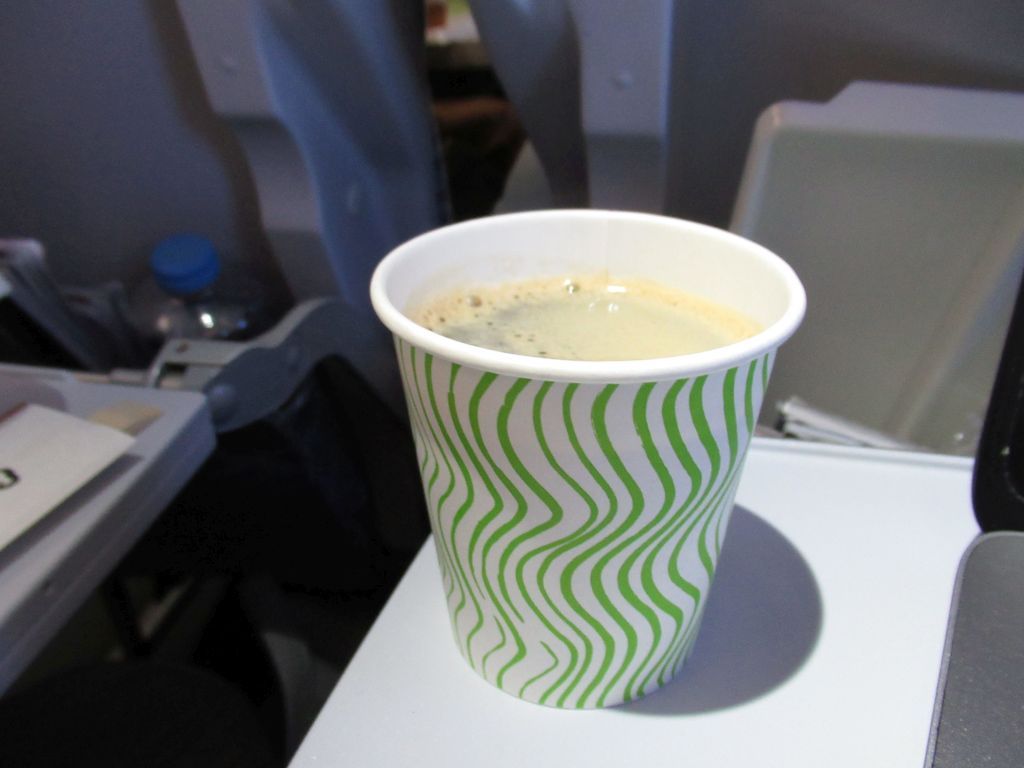
The plane was now heading south-west and daylight reappeared after a Siberian night which had lasted during the greater part of this day flight which was not really one, even if it was entirely inside a calendar day.
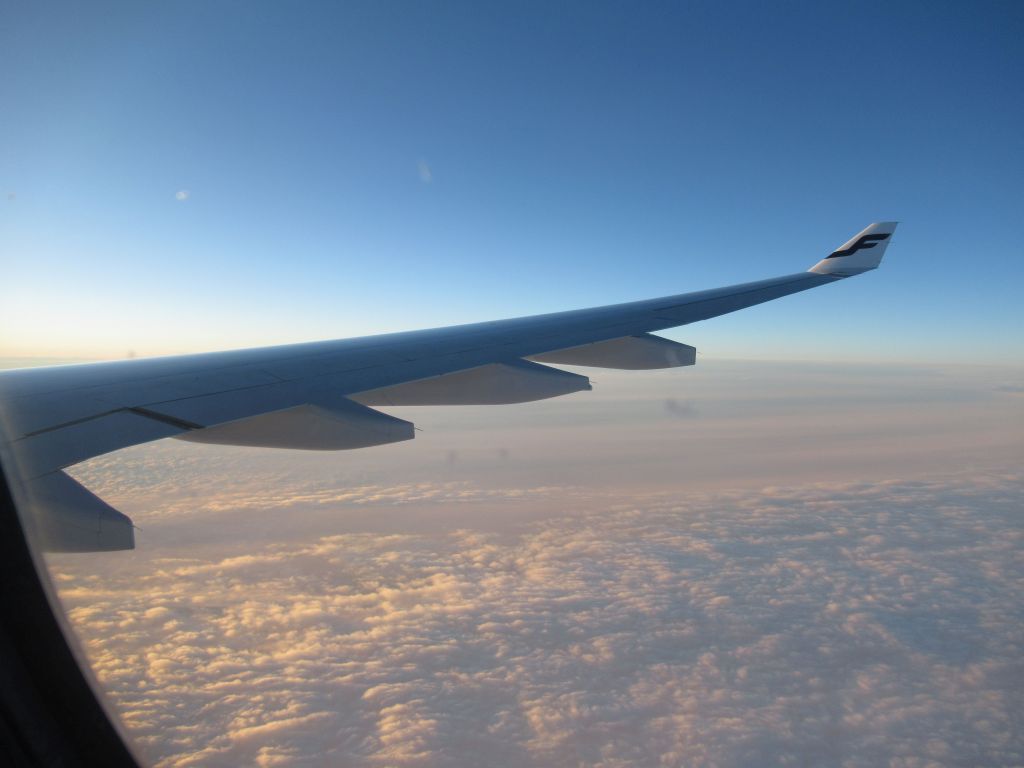
The IFE first displayed a touristic advertising for Finland (which in a way made sense, being directed at passengers whose majority would only connect in HEL, without considering Finland as a destination)
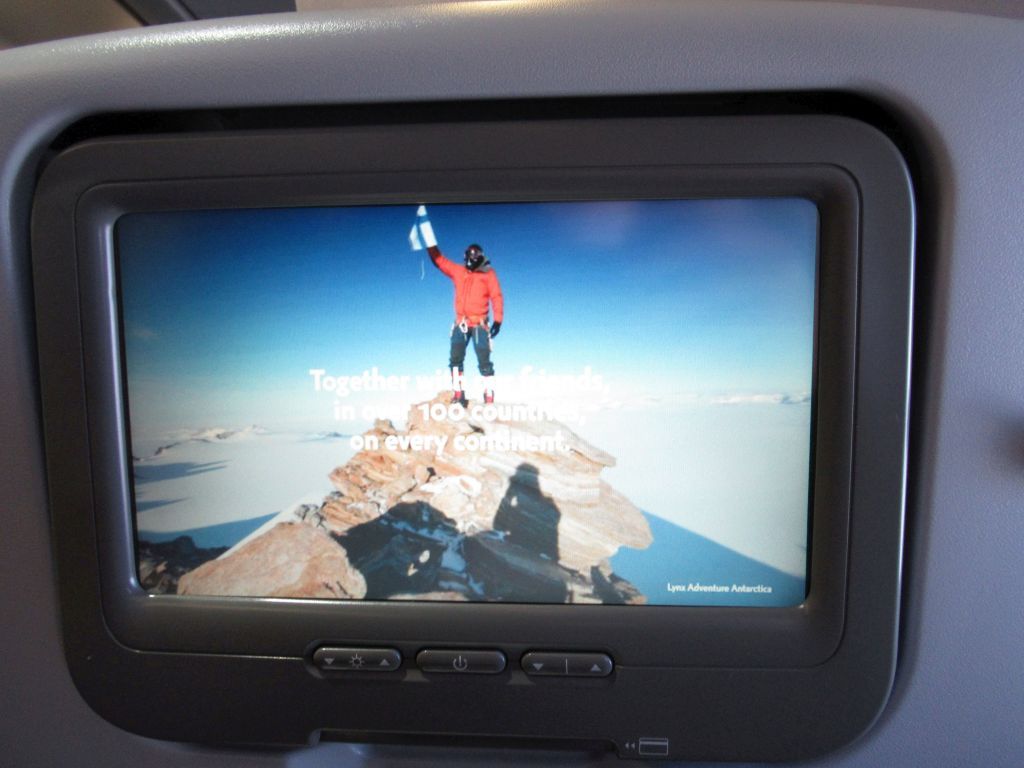
It then displayed the gates for the connecting passengers.
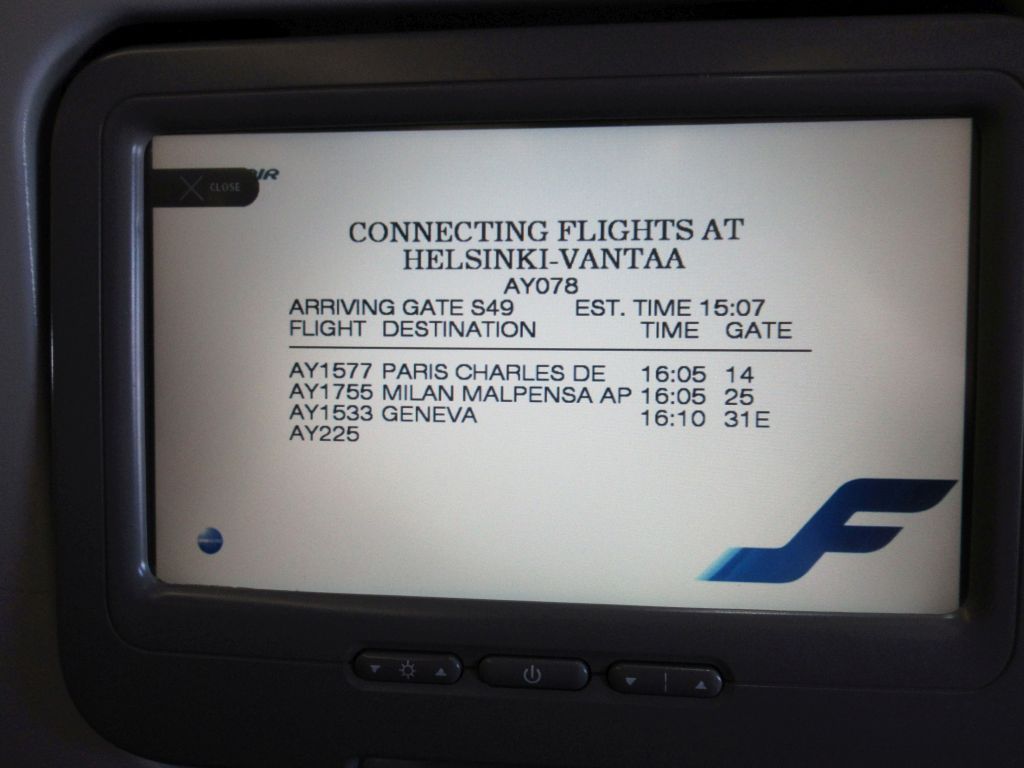
Daylight had reappeared before reaching Finland, but that did not mean that we could see the landscape.

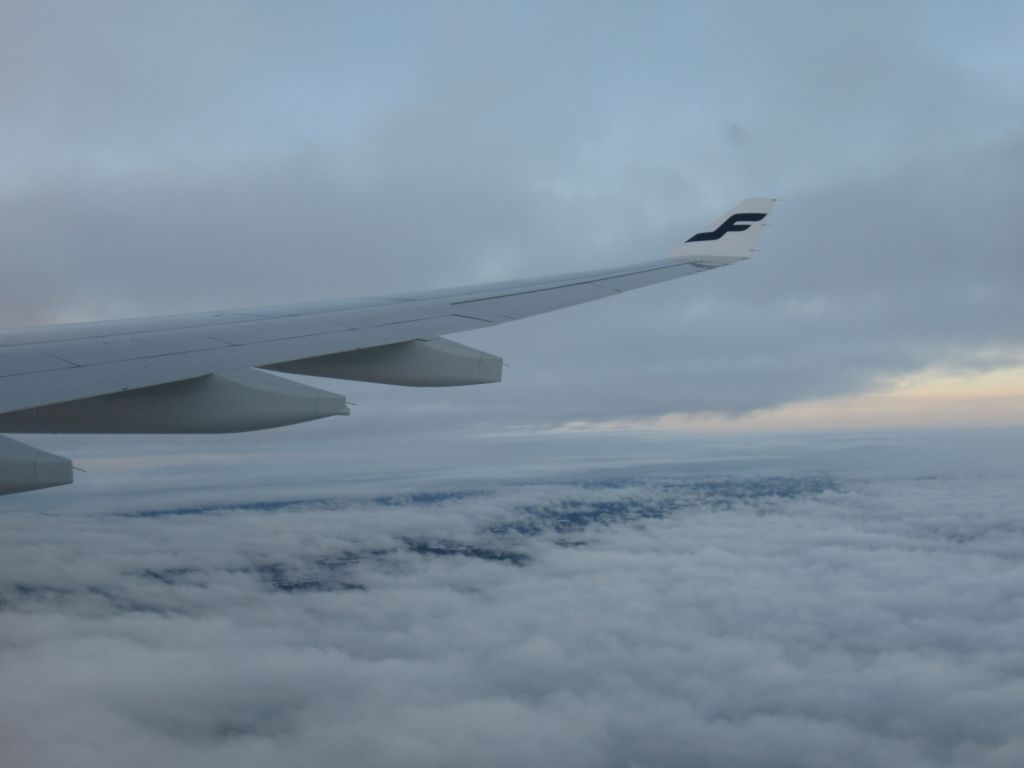
Only when we were very close to the ground did it appear
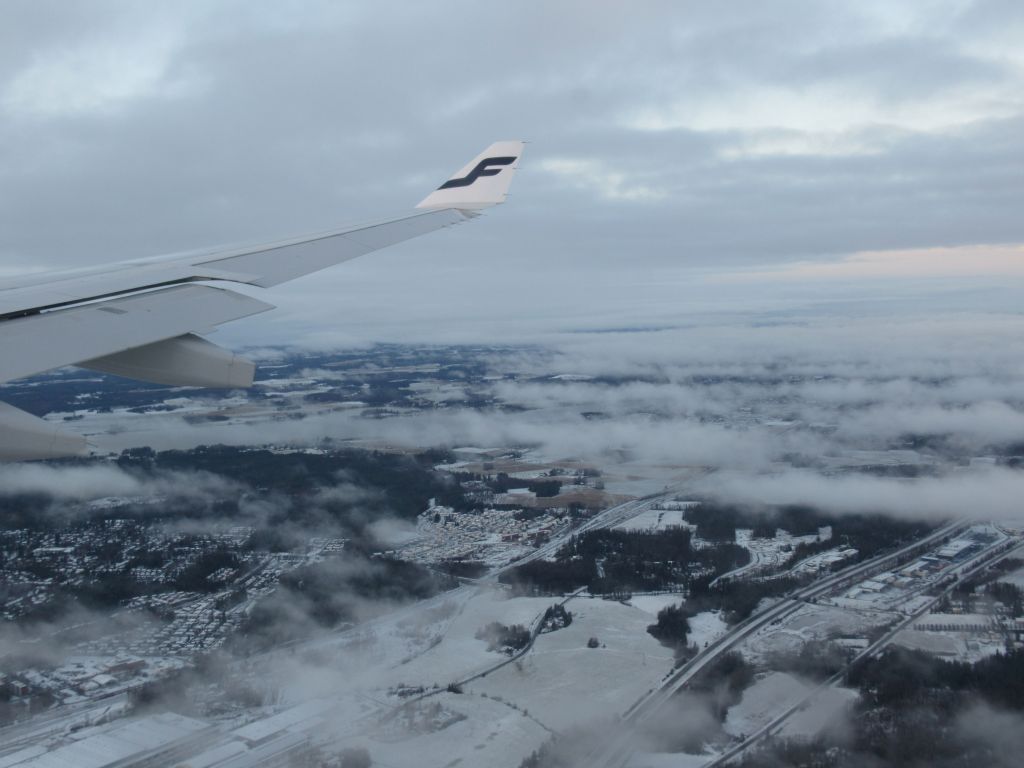
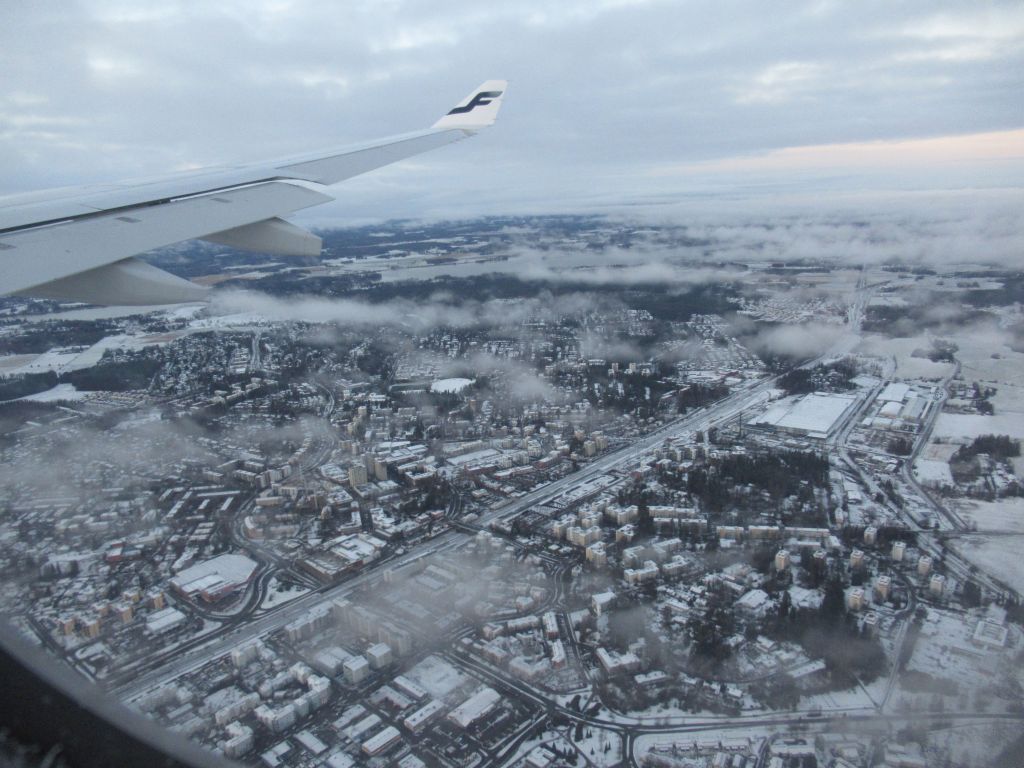
An ATR72 of Nordic Regional Airlines (Finnair’s regional subsidiary).
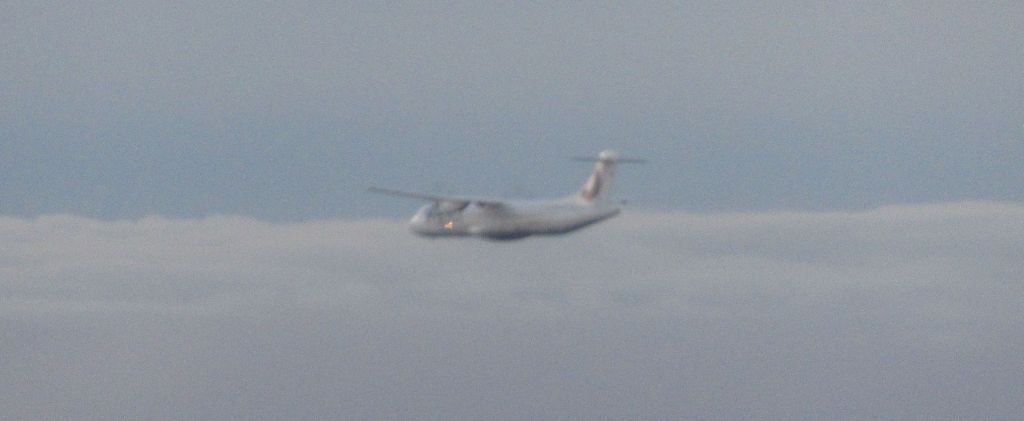
The surroundings of HEL
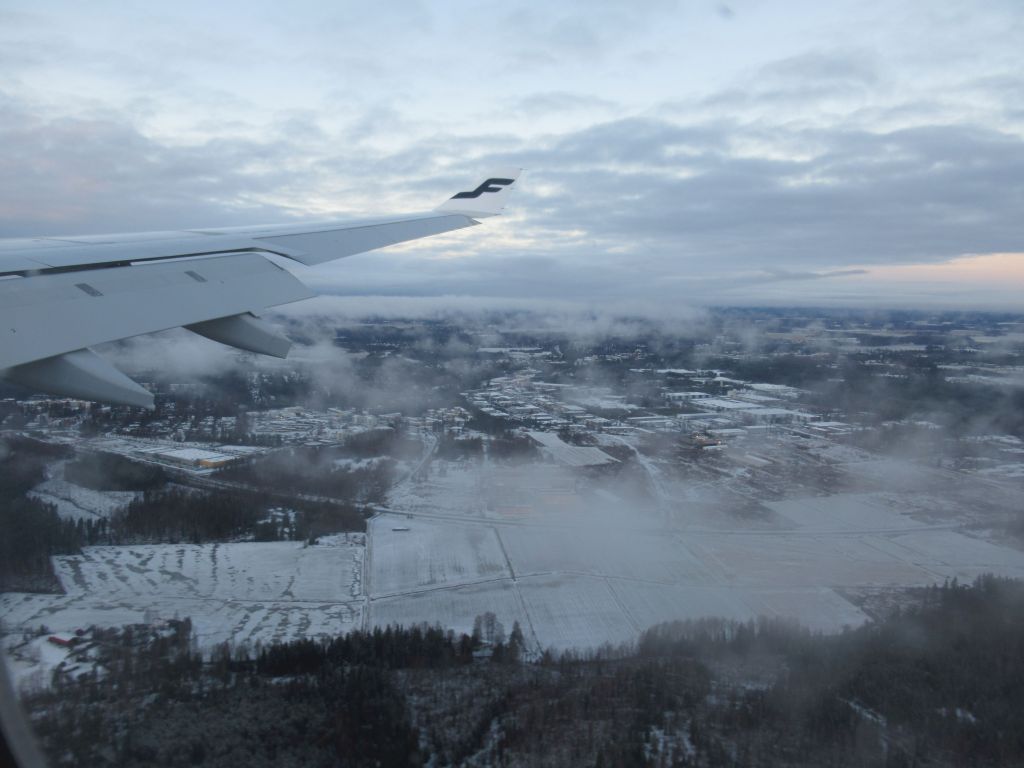
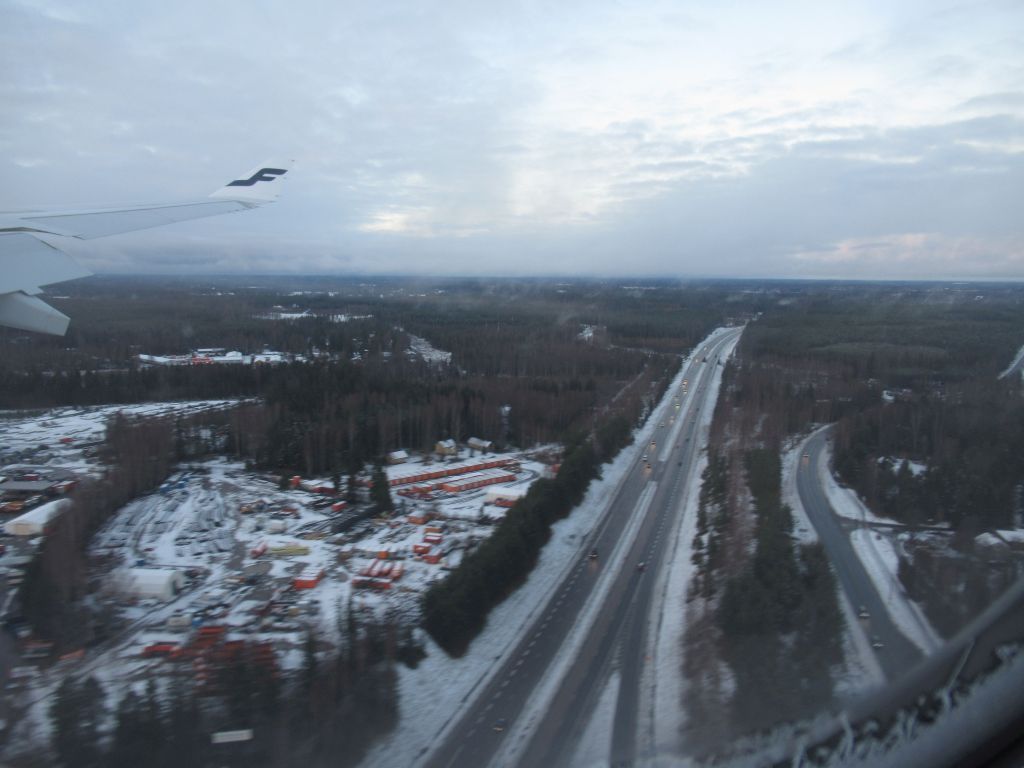
Landing at 15 :09, i.e. STA-1’
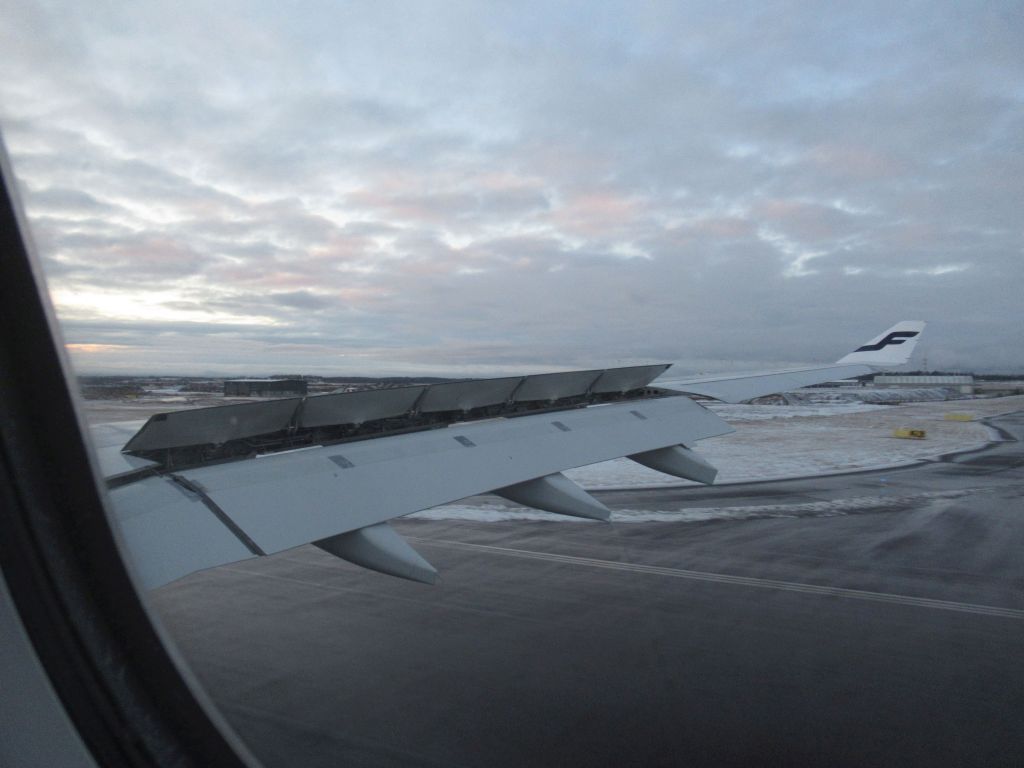
Welcome to HEL, a frozen one.
The windows frosted completely during the last minutes of the descent, which negated any attempt at plane spotting while taxiing. This may have been a Finnair Embraer, but any more identification detail would be pure guesswork.
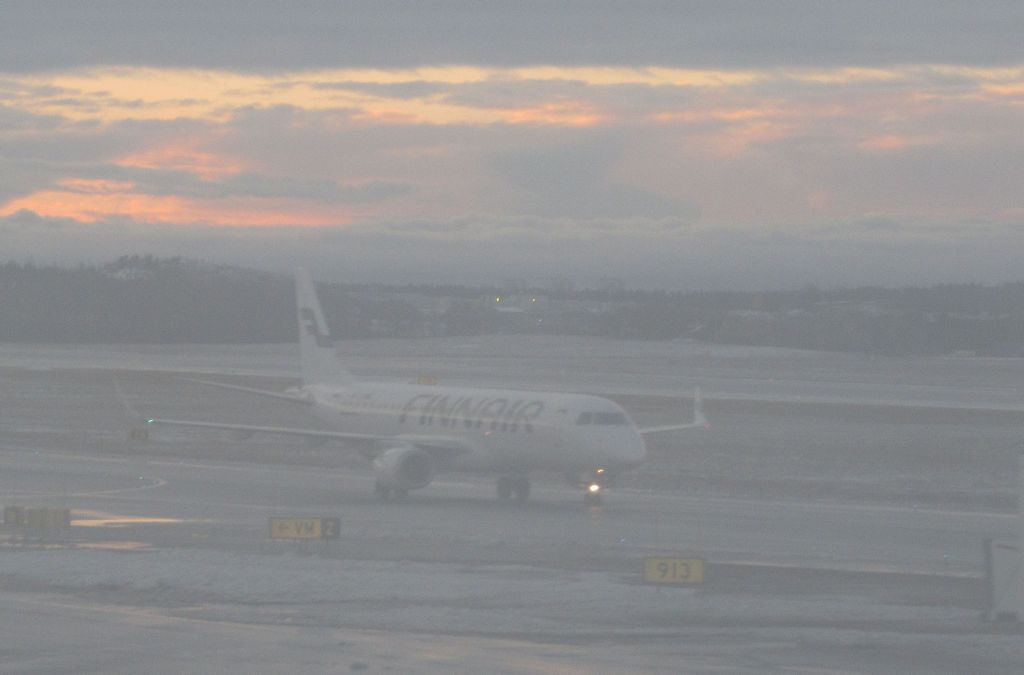
The armrest cannot be raised further that that, because of the shape of the seat backs and is a slight nuisance for reaching the aisle.
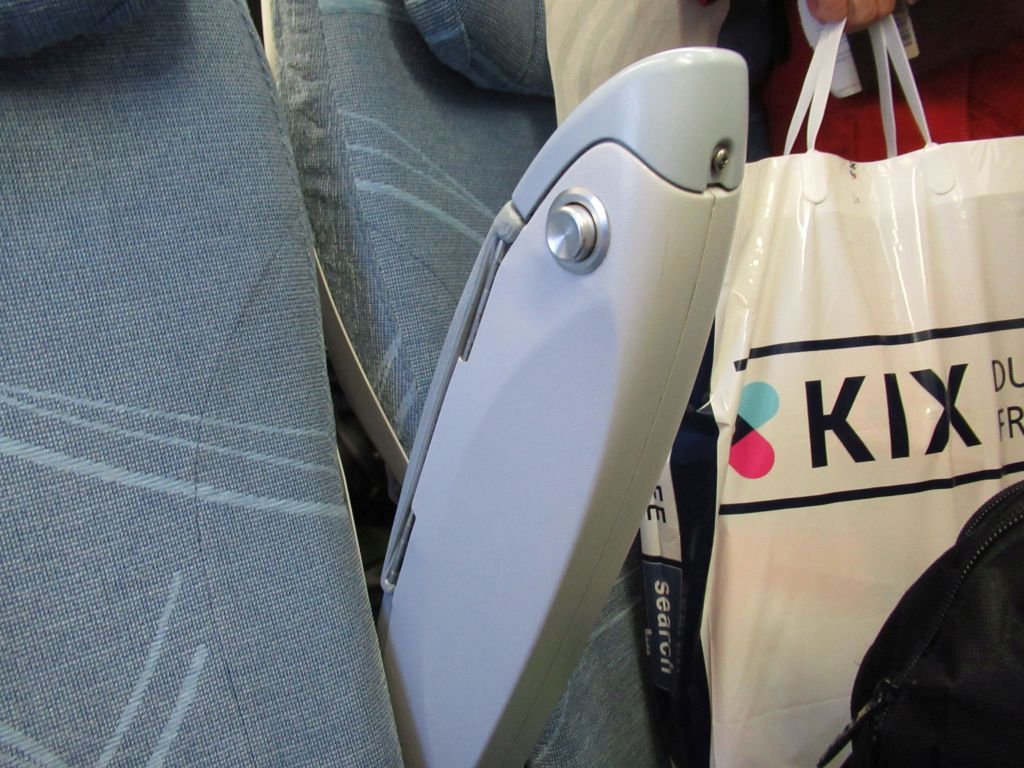
Only when the last turn was announced did I realize that the S of Gate S49 announced on the IFE screen meant something like Stopped In A Remote And Cold Location.
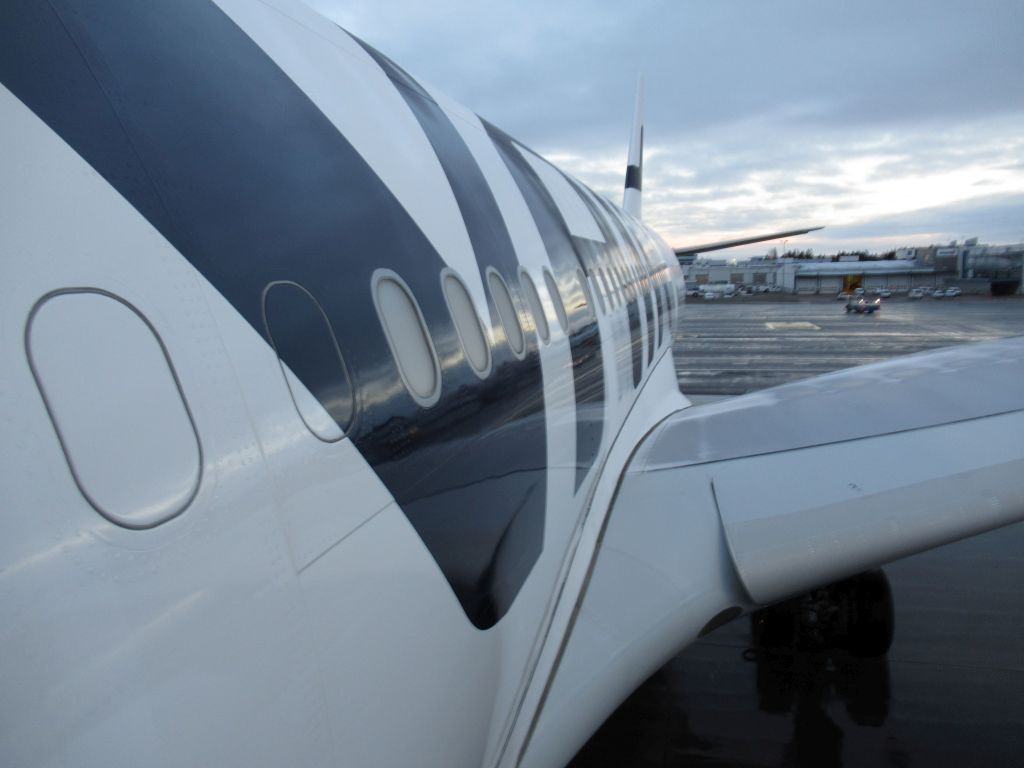
An aviation geek would not regret this chance for taking a picture from the tarmac of the plane he flew in, but the bus was parked too close for having a picture of the entire aircraft, and with 55’ for a non-Schengen – Schengen connection, I had other priorities.
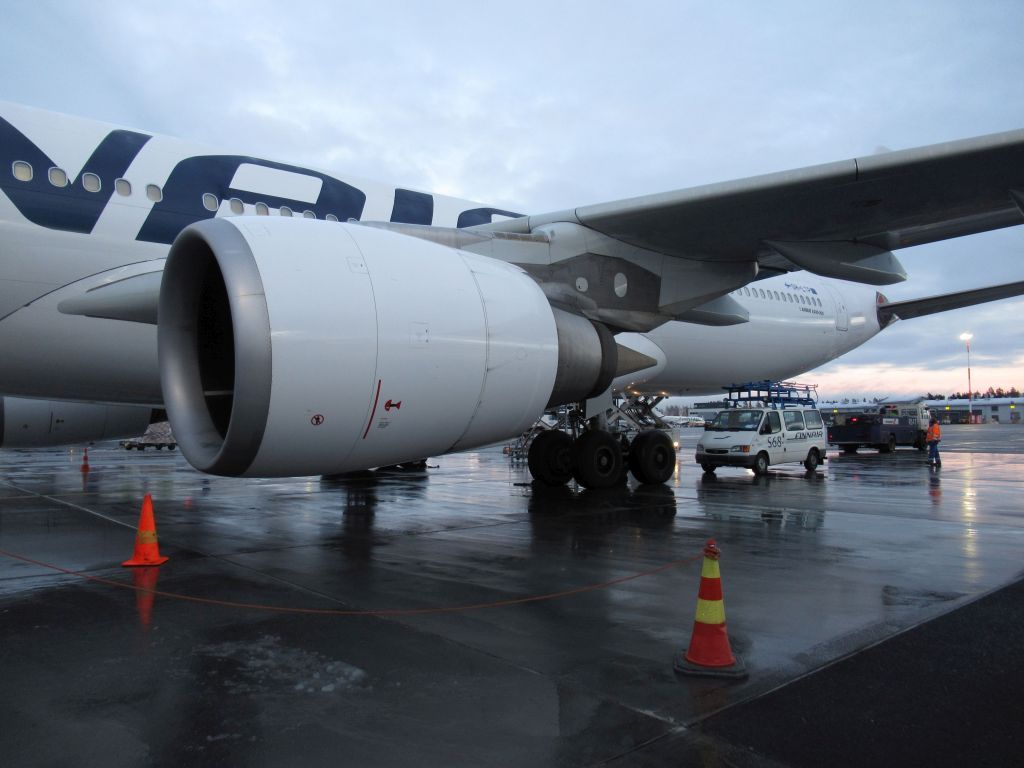
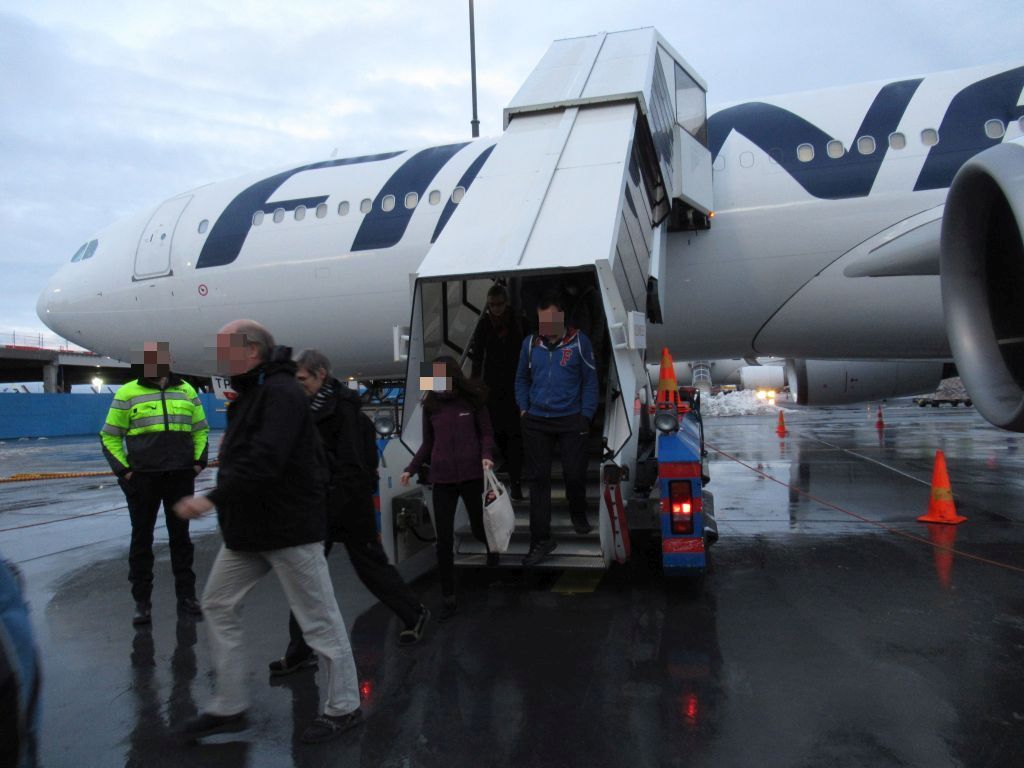
A big dot livery on the way
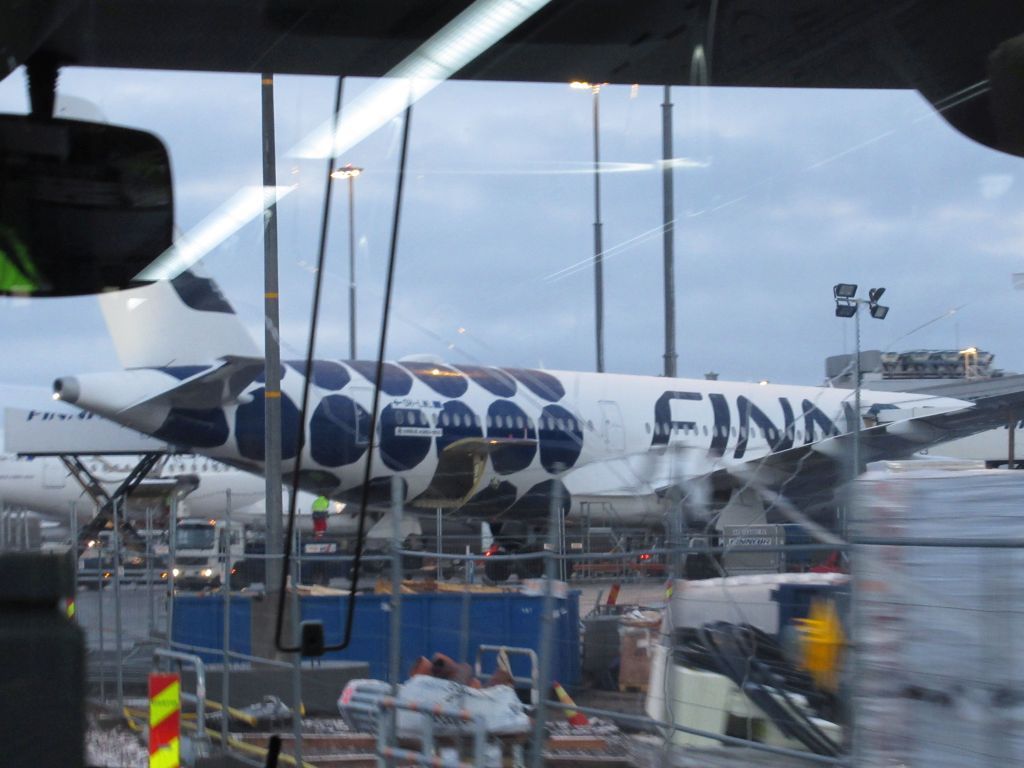
And a Christmas livery
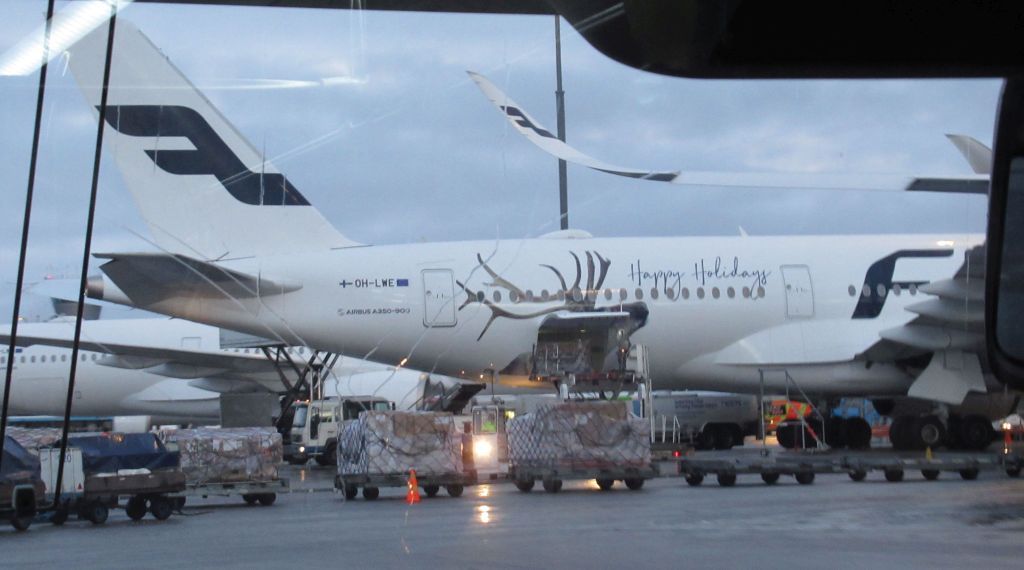
This one was the standard one.
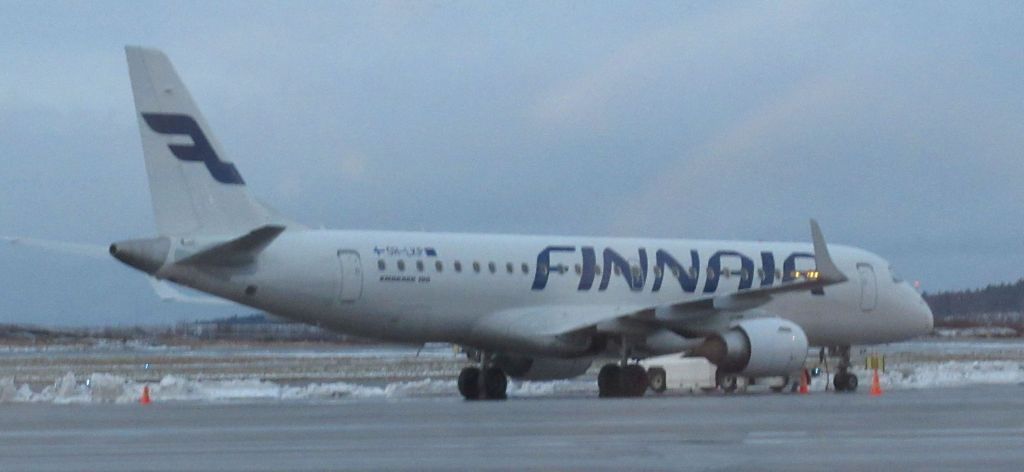
Anyway, we arrived in the terminal, then walked a small distance and reached THAT : a huge crowd which was a lot more orderly than this picture suggests thanks to retractable tape barriers, but there were nevertheless LOTS of people.
It was 15h33, our connecting plane to CDG was scheduled at 16h05 and the situation was not looking good at all.
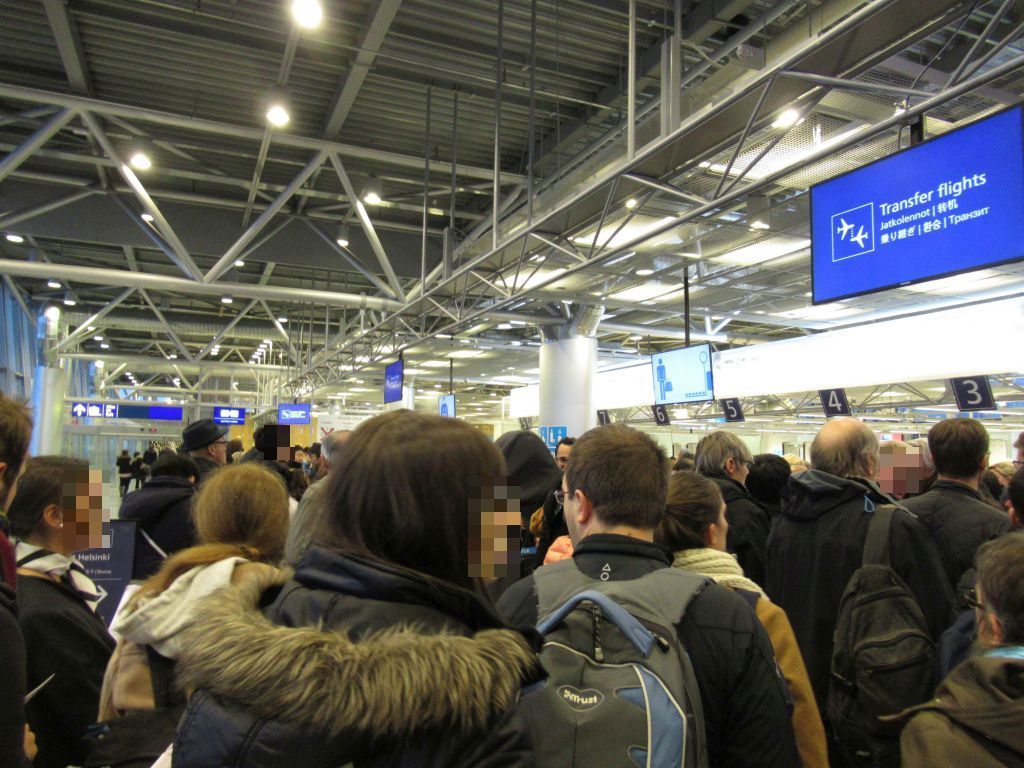
Like any serial, "to be continued in the next Flight Report"!
The reason I called "miraculous" the break in the clouds during the climb above Ōsaka was that it provided me some matter for this bonus, which as often in my FRs is slightly off the beaten track.
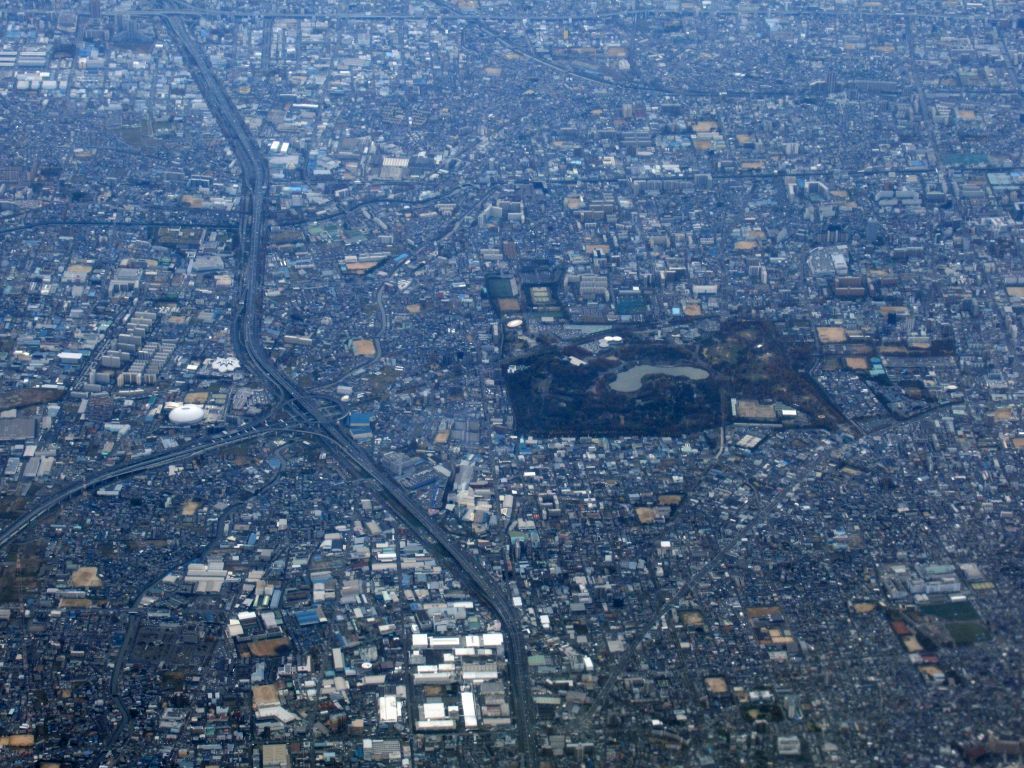
"Track" may not be the most appropriate word for the interchange between the Kinki and Kyōhan #2 expressways (Kyōhan 京阪is short for 京都 - 大阪, i.e. Kyōto – Ōsaka)
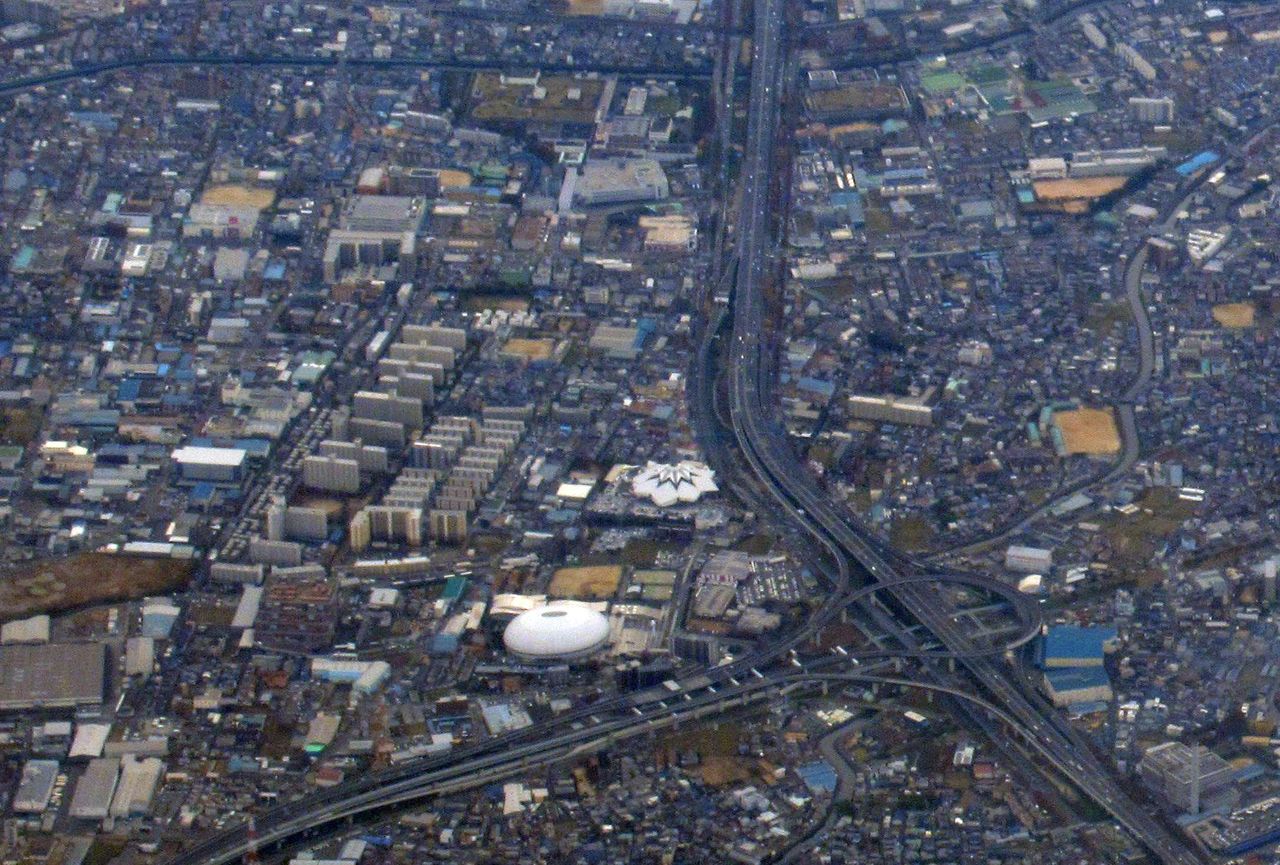
This is what this interchange looks like from the ground with flyovers passing way above the level of the top of the buildings in the south of Kadoma 門真, a city next to Ōsaka and actually integrated in its urban area.
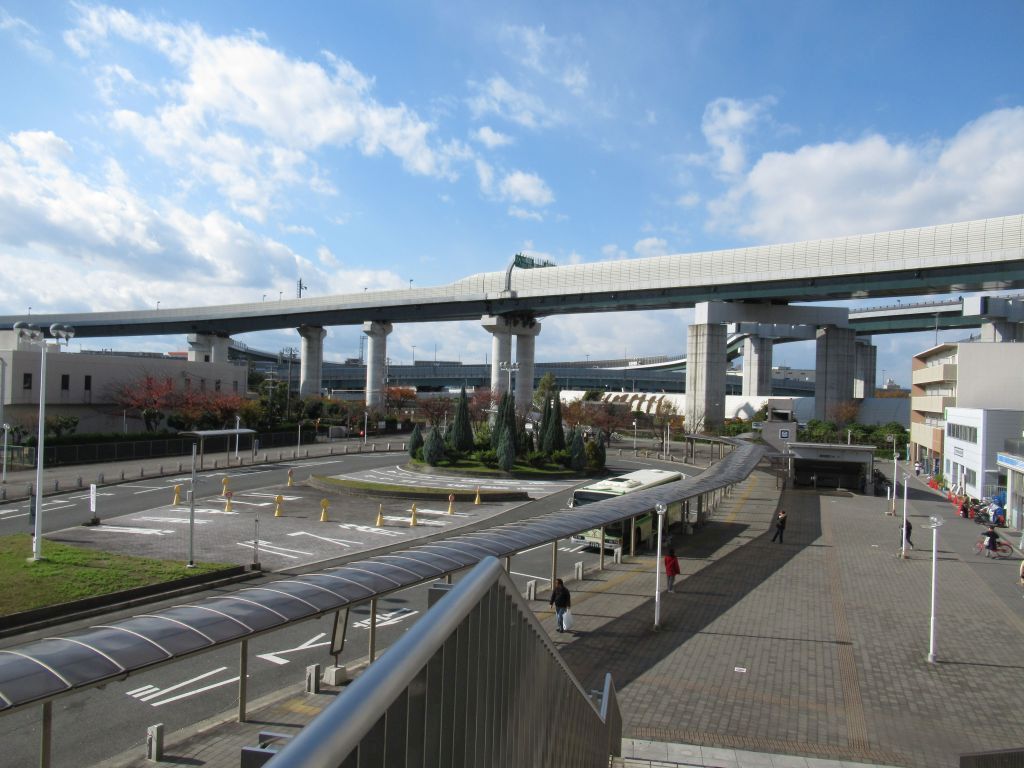
Small wonder, the subway station in the picture above is called Kadoma-minami 門真南, i.e. Kadoma-South.
The no-figurative mosaic in this station was interesting, but there was a better one elsewhere.
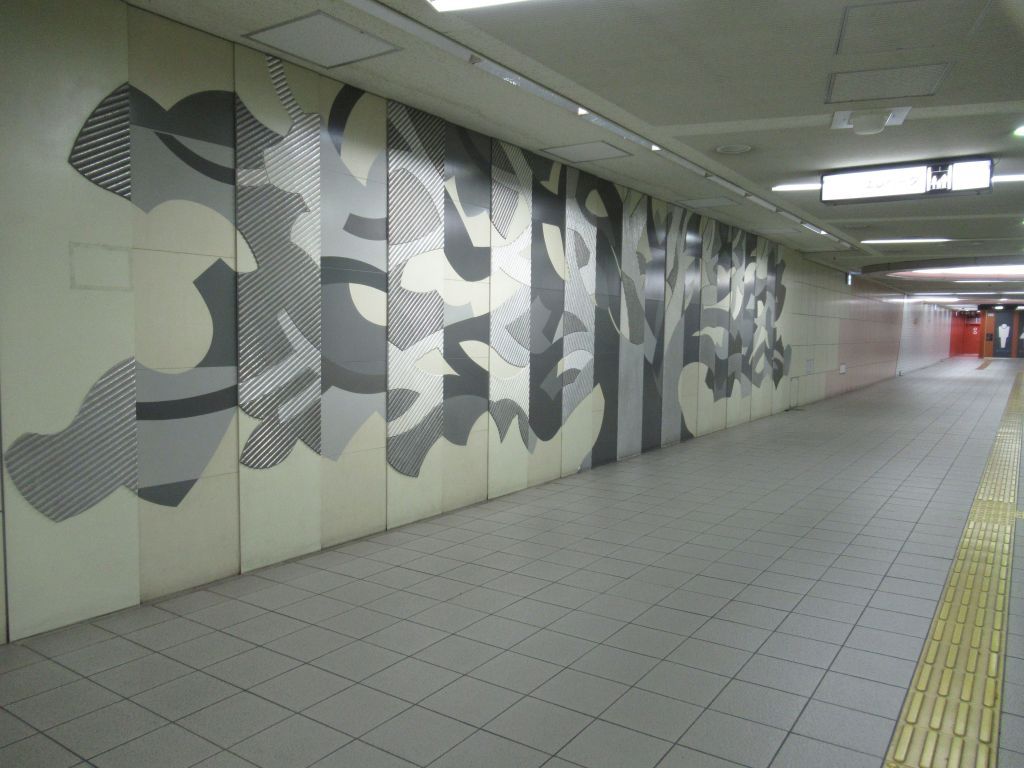
For instance in Kyōbashi Station, a minor railway hub on Ōsaka’s circular line.
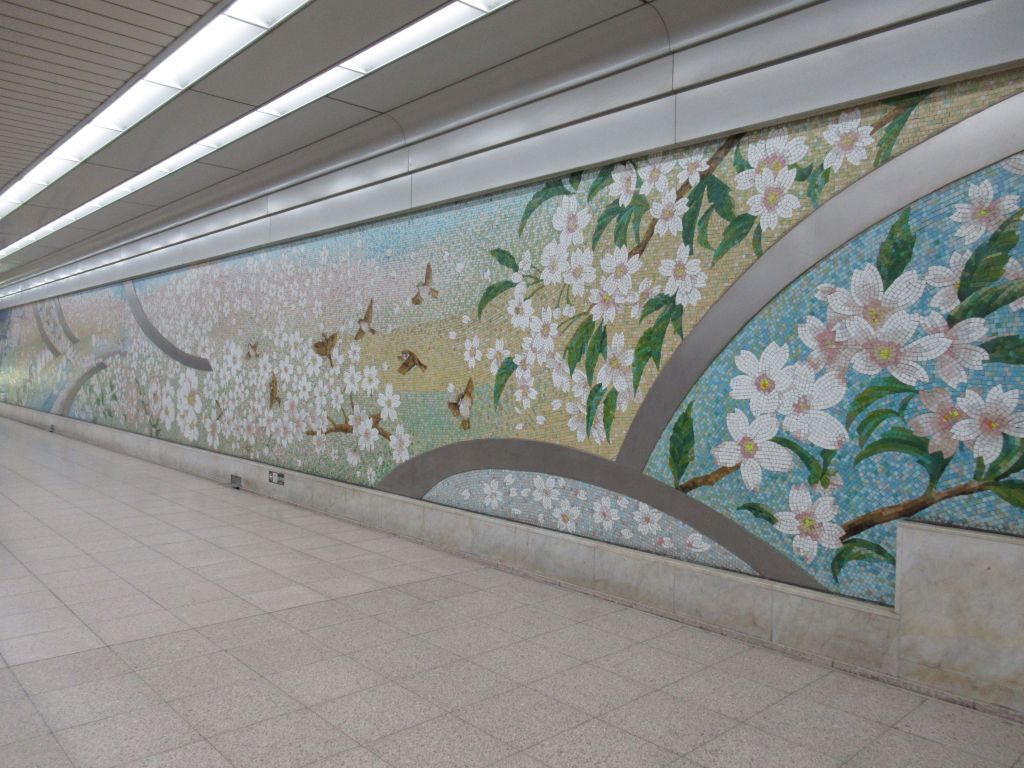
Flowers
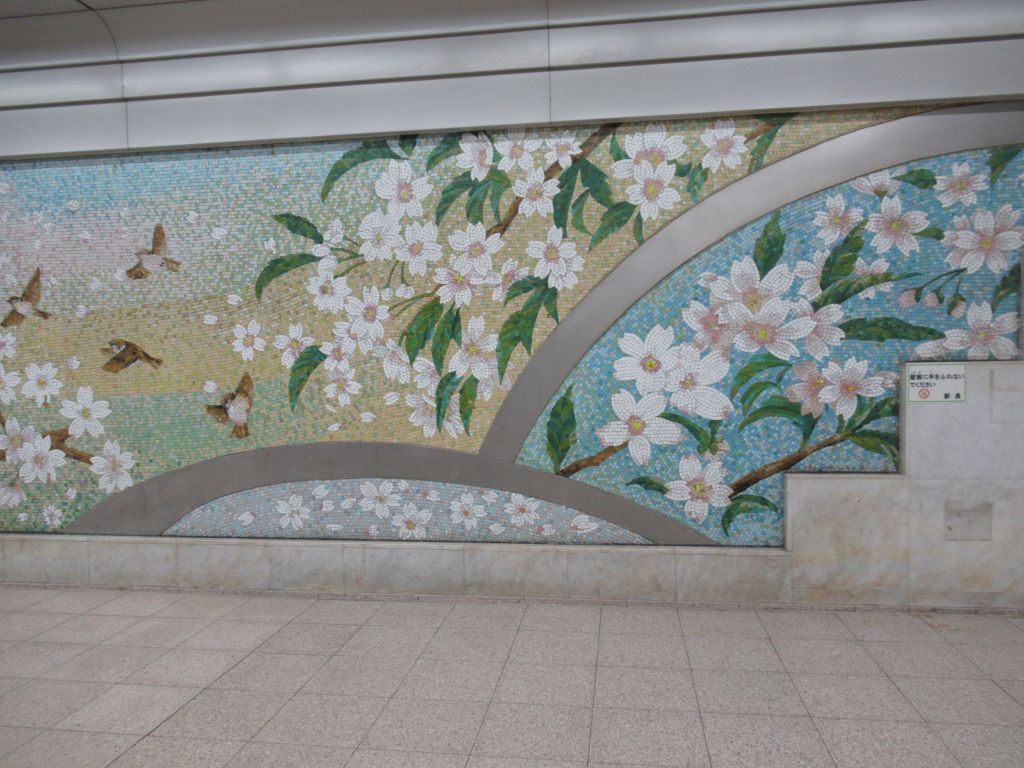
A flight of birds
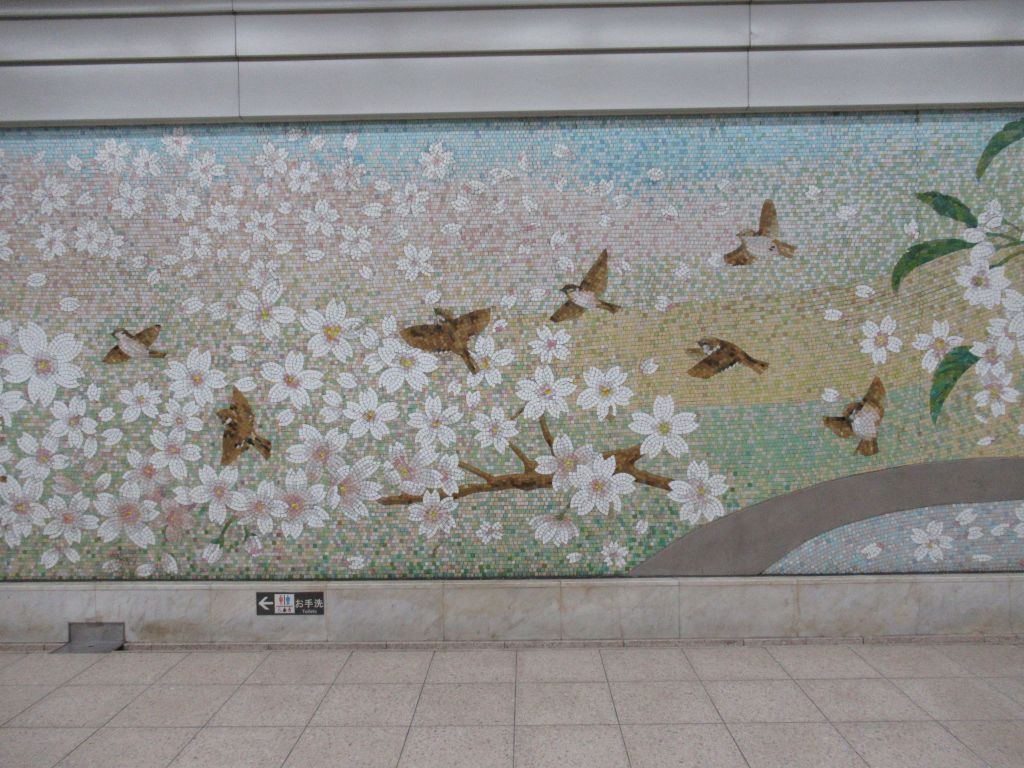
Partly figurative decors

Let’s go back to Kadoma Minami. The toilets in this subway station are of course spotlessly clean; both men and women are one-legged here.
ようおこし does not mean "men" or "women", since this is the same text in red for women and in blue for men, but something like "Thanks for coming in Kansai-ben 関西弁,Ōsaka’s dialect.
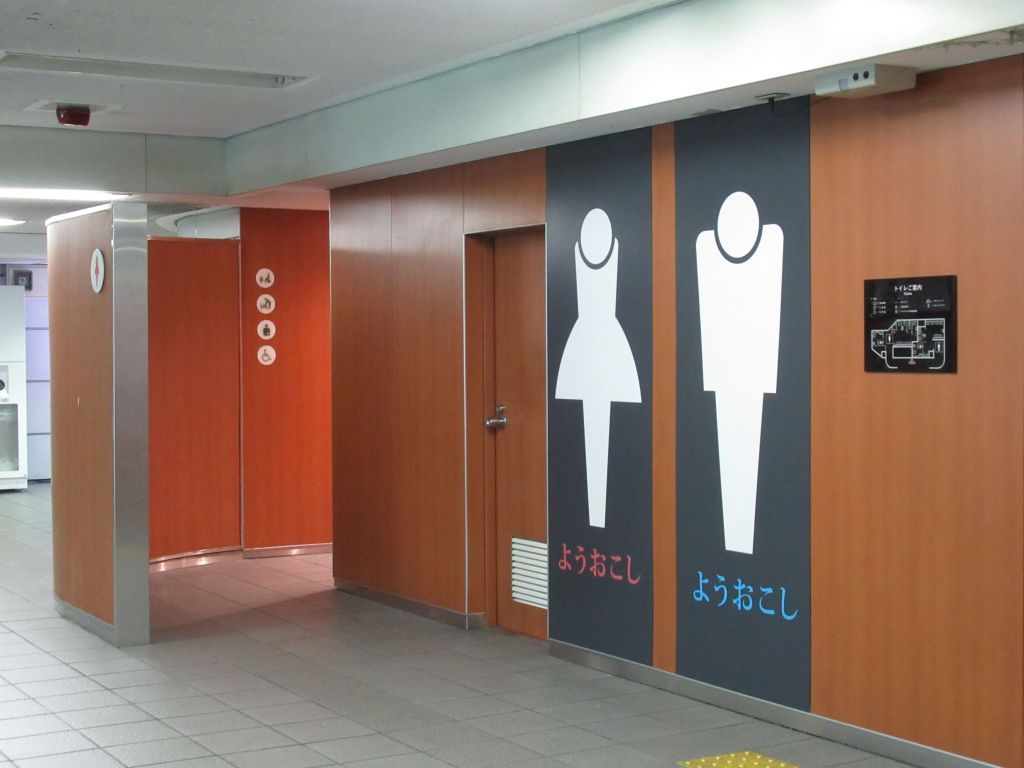
The white dome next to the interchange, in front of this subway station was a covered stadium, also used as a skating rink in winter.
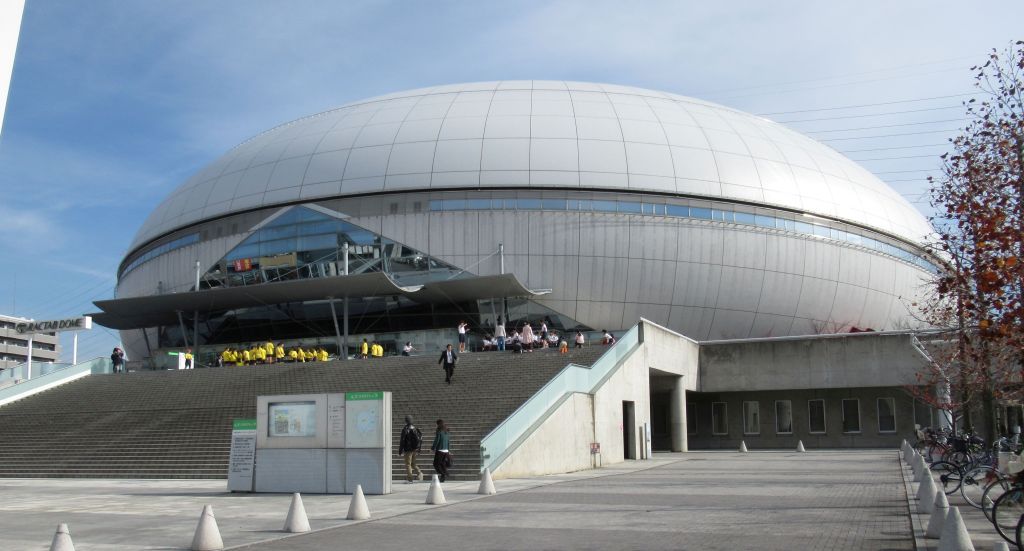
The yellow female uniforms and blue male uniforms are those of junior high school students who were warming up jumping the rope.
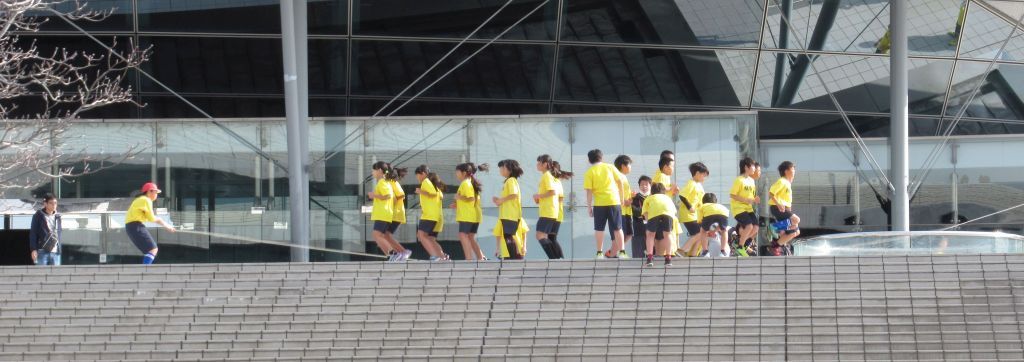

Even though we were here deep into Ōsaka’s urban area, in the Satsuki neighborhood according to this manhole cover ( かどまさつき : Kadoma Satsuki, in phonetic script),
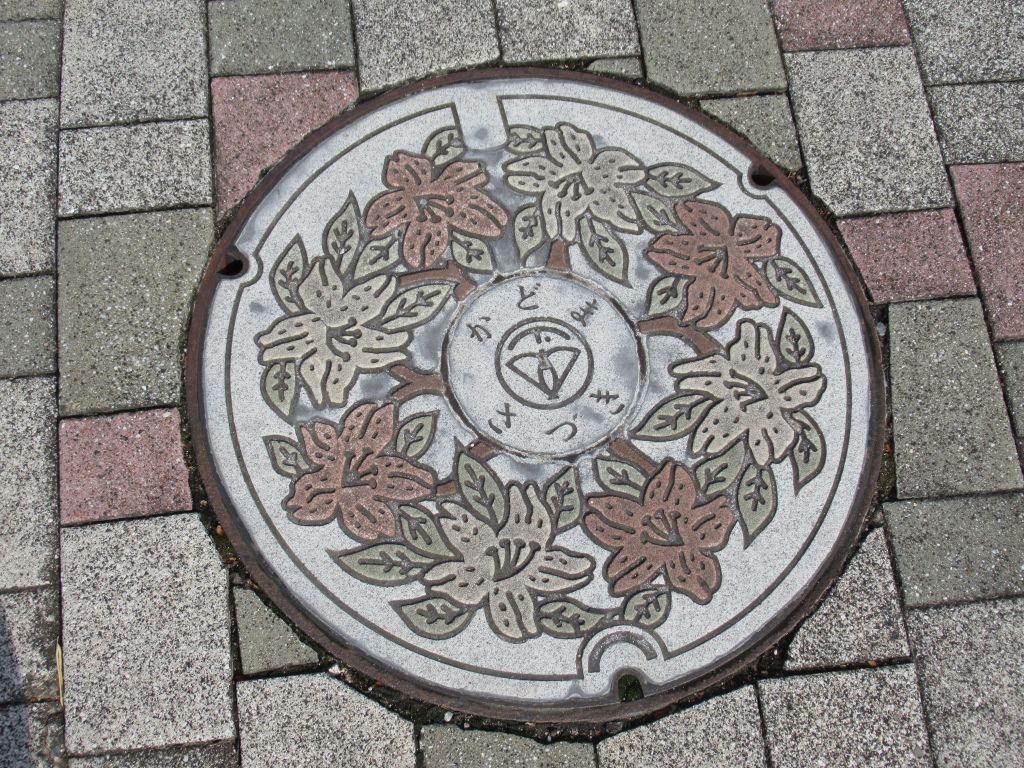
… there was nevertheless here and there a rice field (I took this picture the summer before), because advocating the end of national self-sufficiency in rice (by way of import restrictions which propel the domestic price of rice to outrageous levels compared to the world market) would be political suicide for any deputy, no matter his party or his constituency.
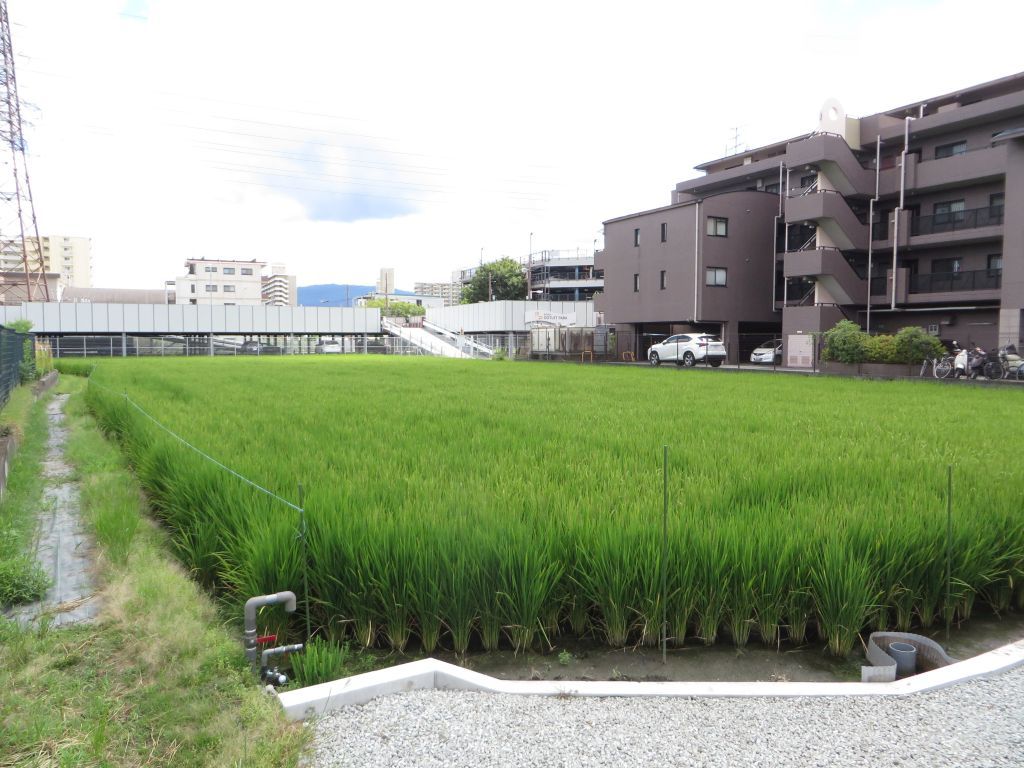
The other white structure with the shape of a half opened umbrella is a shopping center of very limited interest.
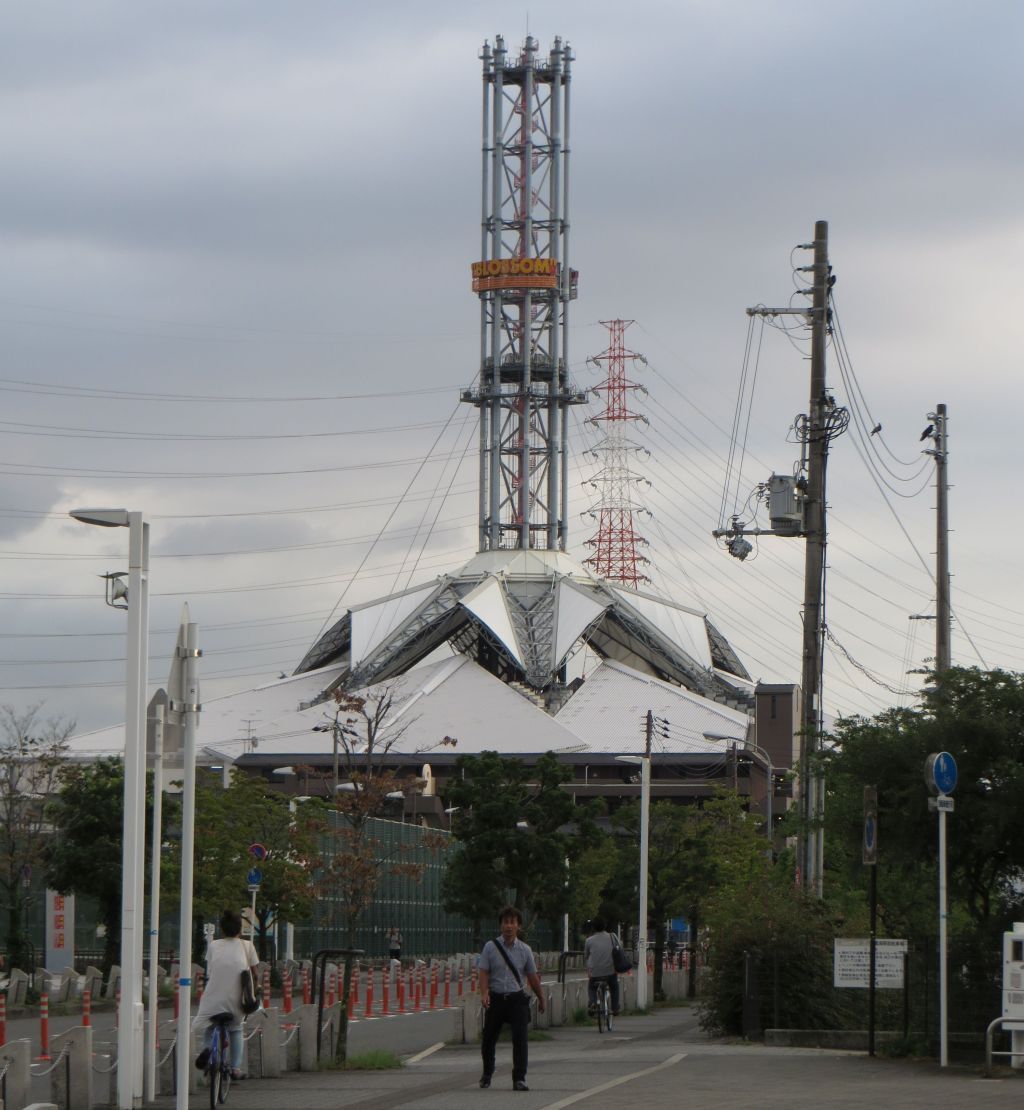
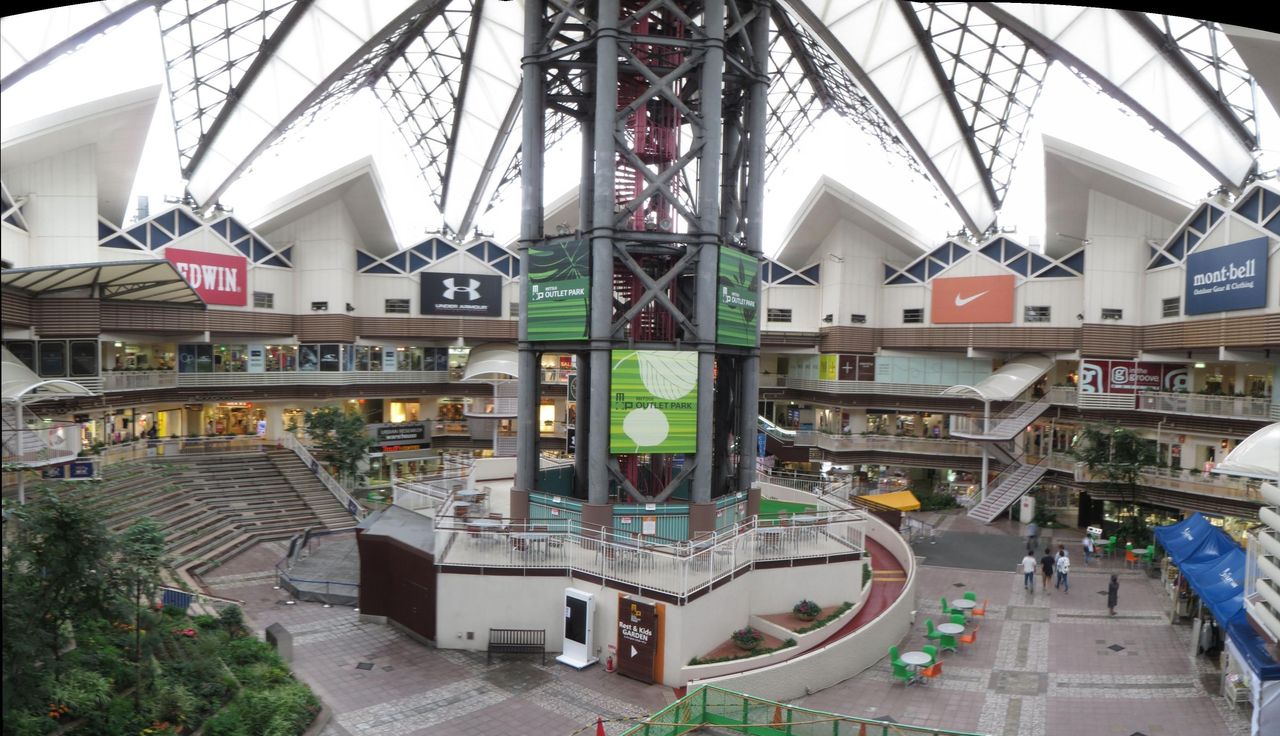
Due to the presence of the expressway, it was more convenient to take the subway to go from there to Tsurumi Ryokuchi Park,
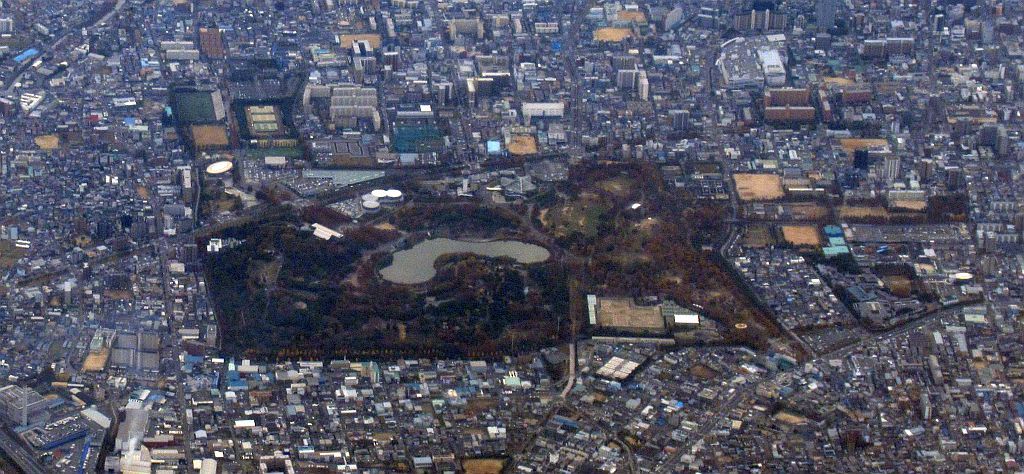
… at the homonymous subway station.
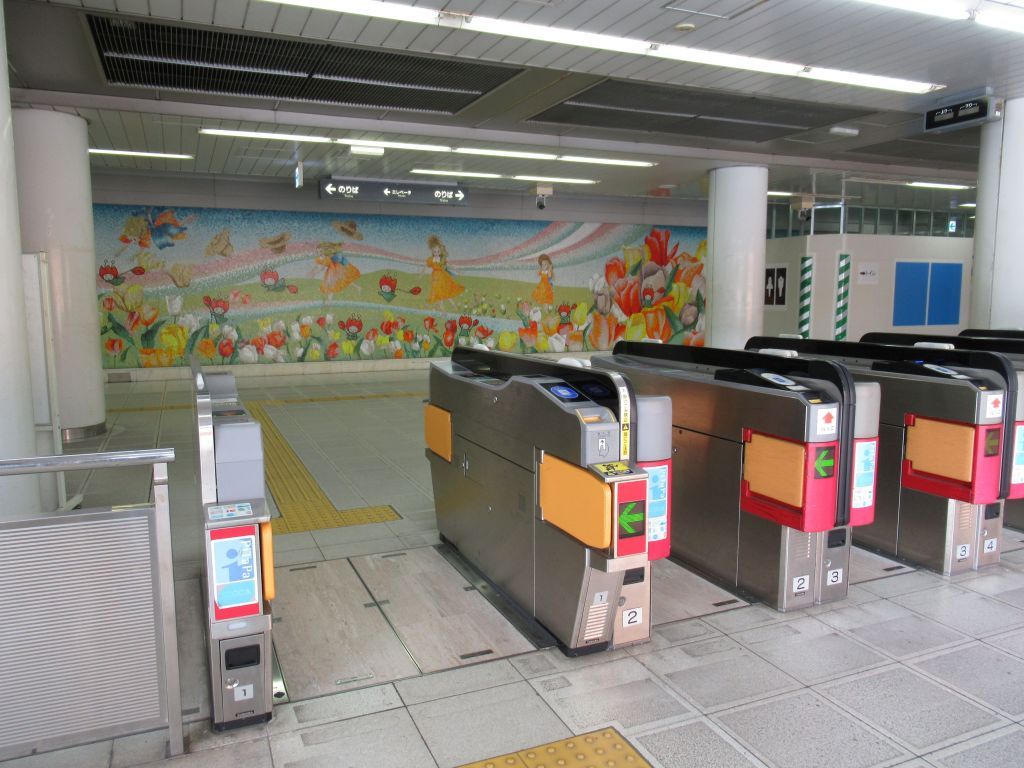
This station is decorated beyond the turnstiles with an immense mosaic. It begins on the wright with young girls in a flowered environment, wearing matching dresses
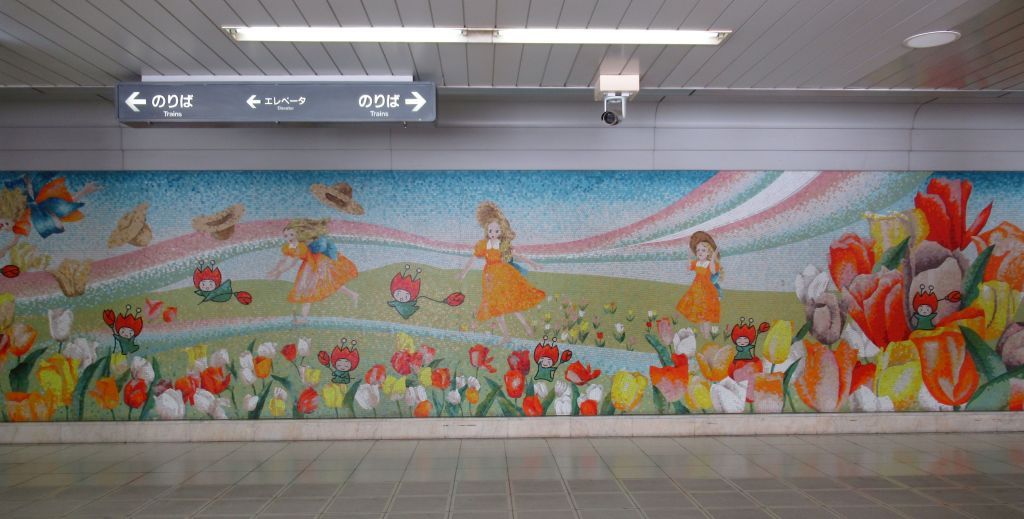
They are accompanied by small elves
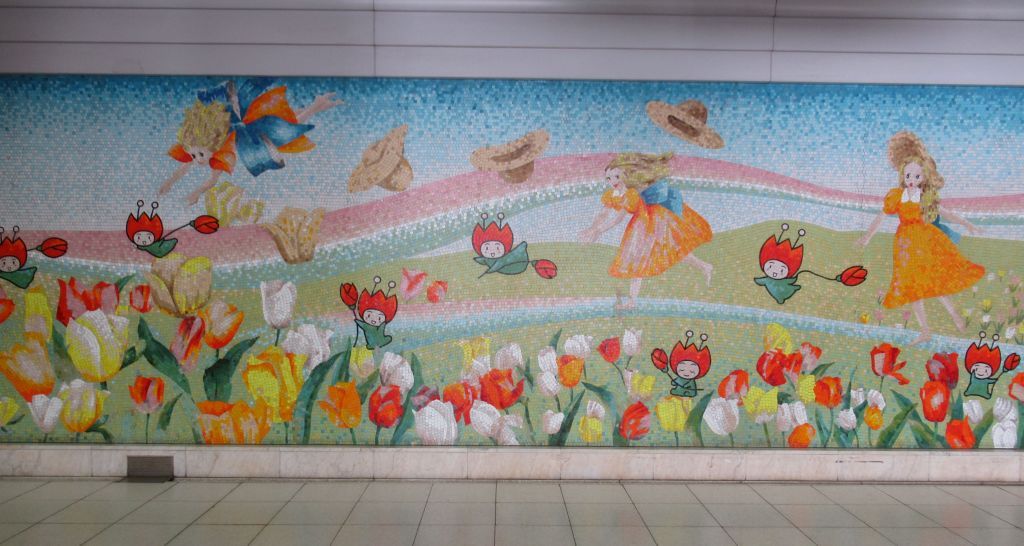
… and transform themselves in white butterflies
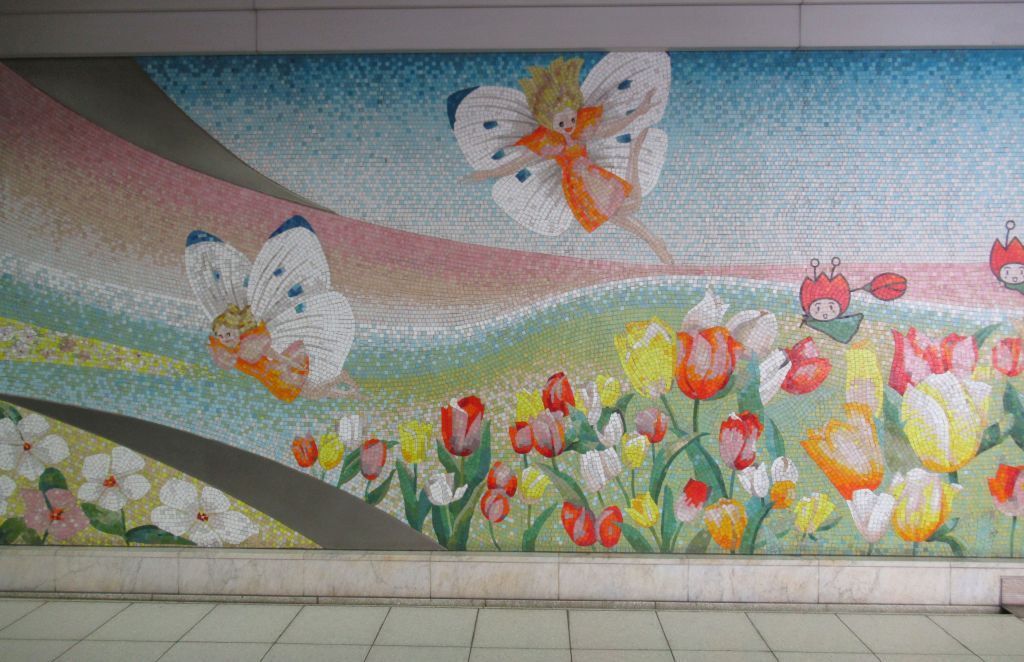
… which fly away at the left end
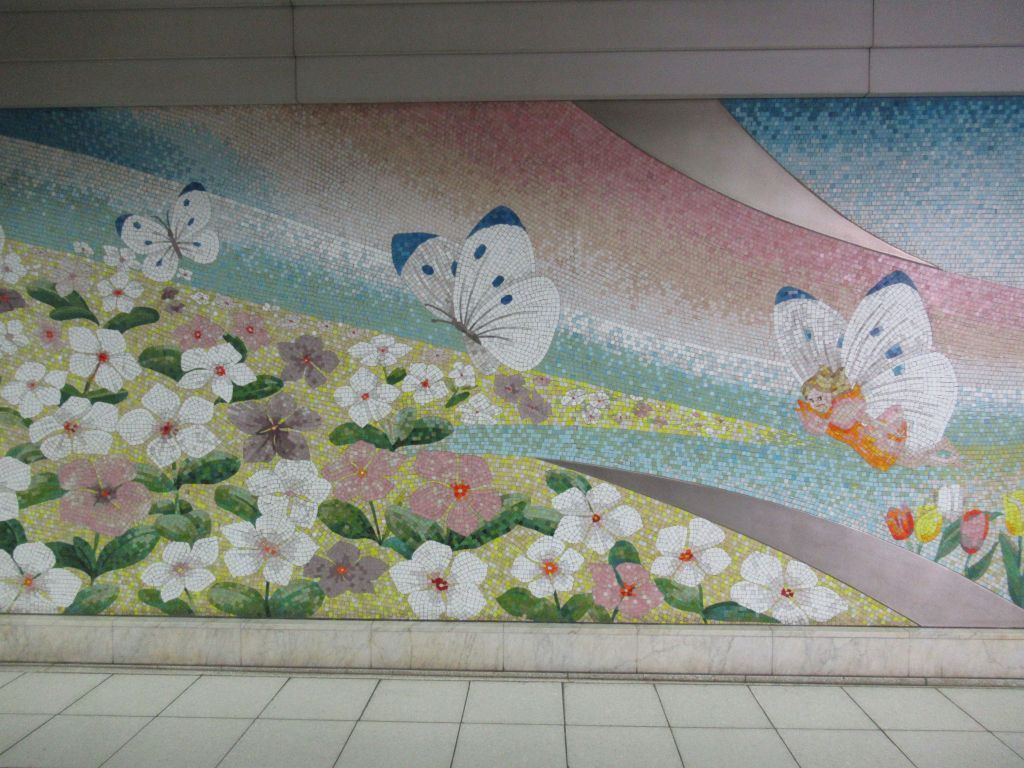
… above a carpet of white flowers
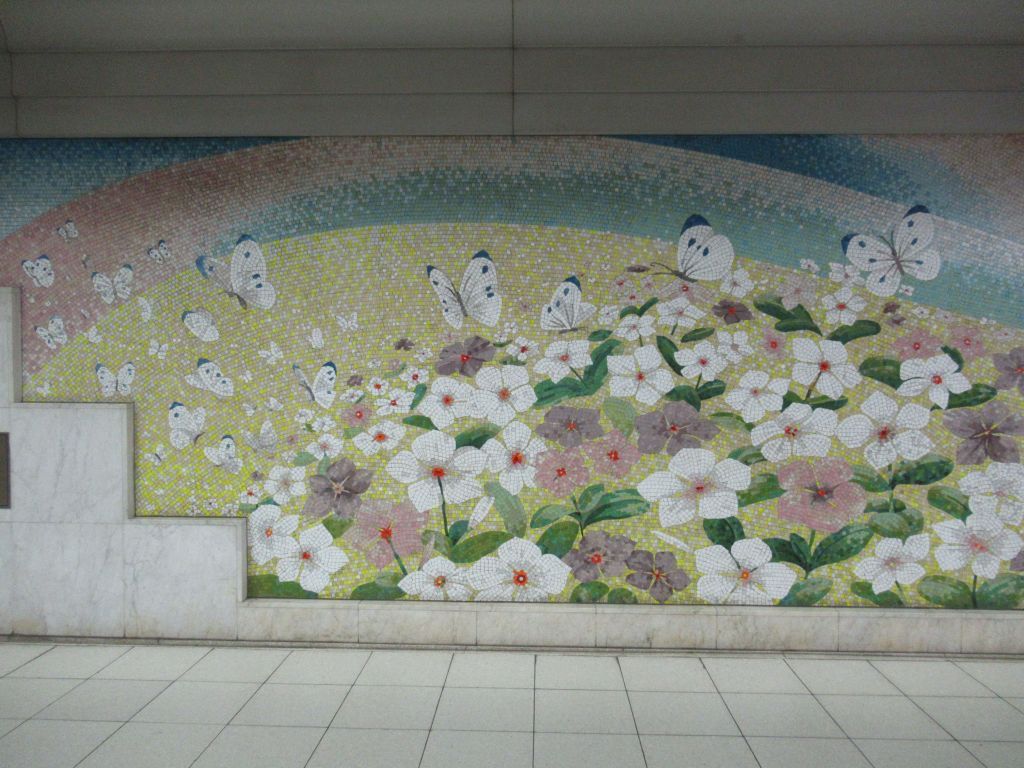
The elves of the mosaic were in fact the mascot of the 1980 World Horticultural Expo, an event that nobody remembers today.
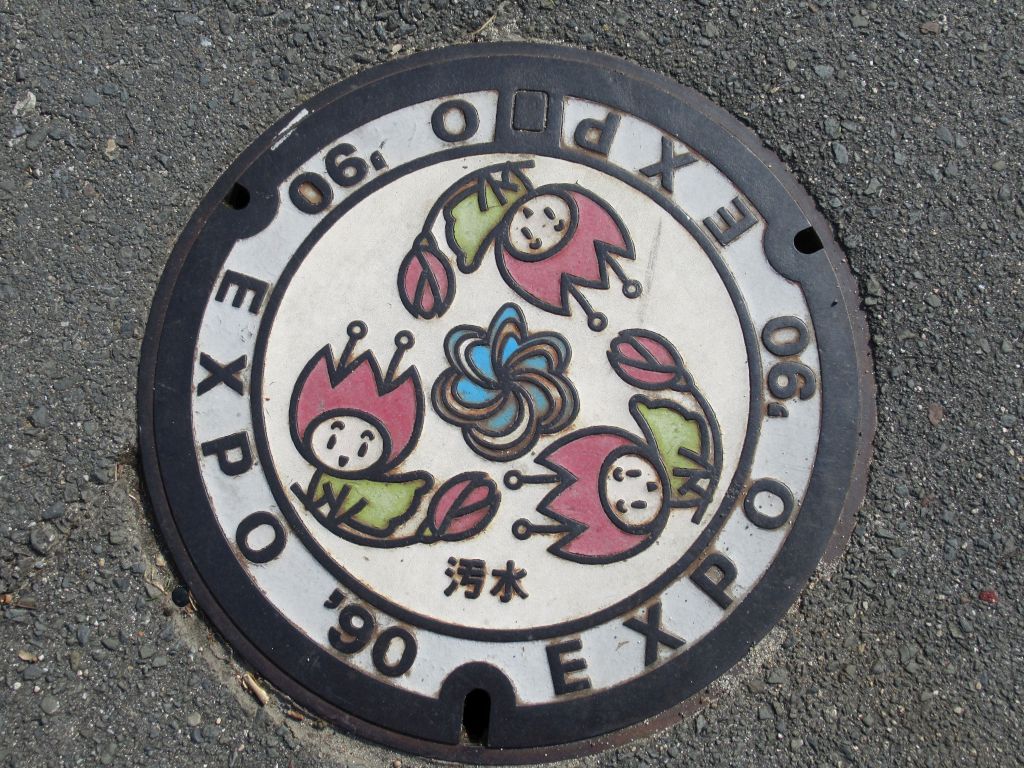
But this was the event which motivated the extension of the subway line to here (and ten years later to the present end station at à Kadoma-Minami), in order to serve the park which was the venue for the expo.
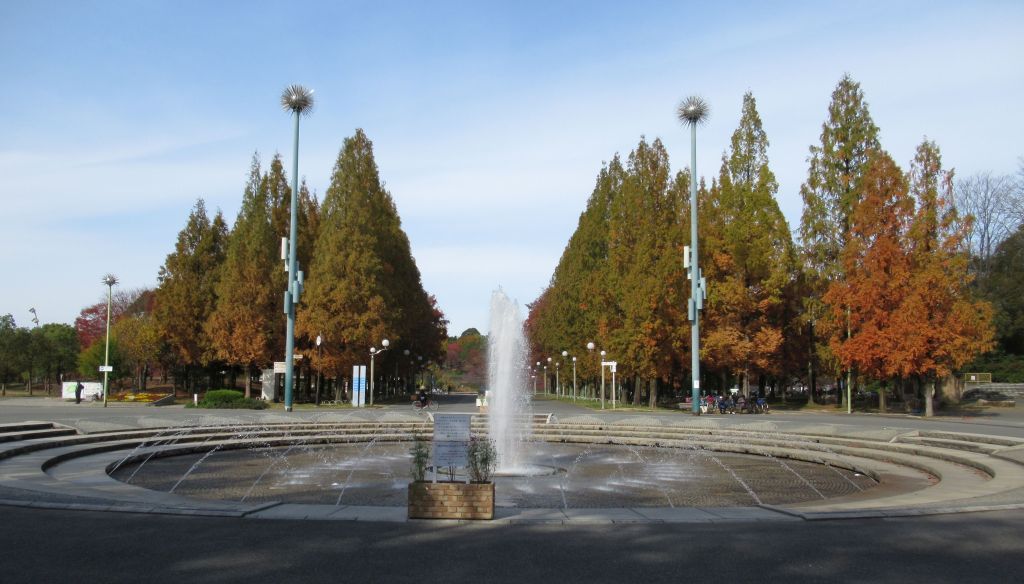
A beautiful greenhouse remains from this exhibit
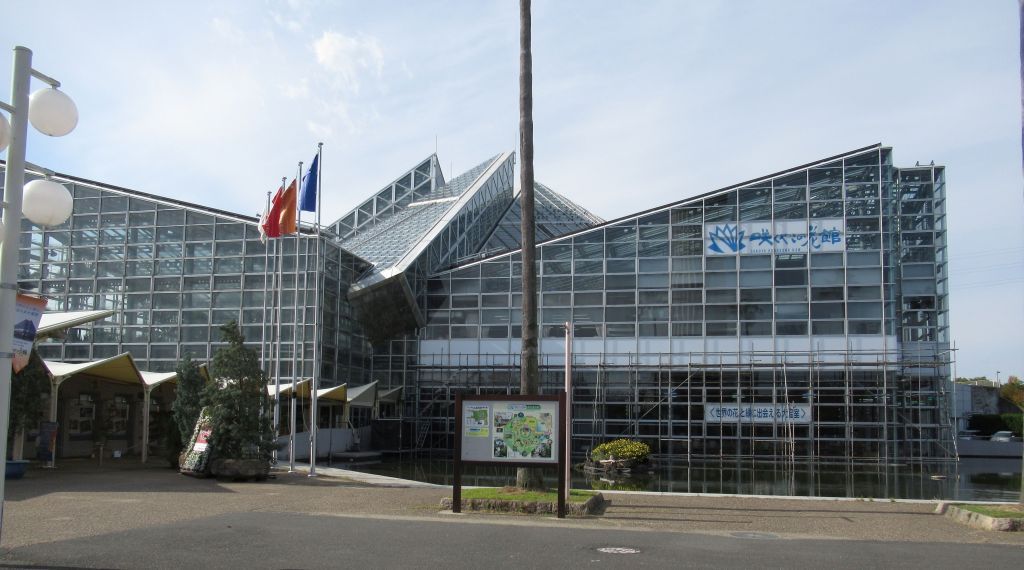
It is here in the top part of this enlargement of the picture taken when departing from KIX.
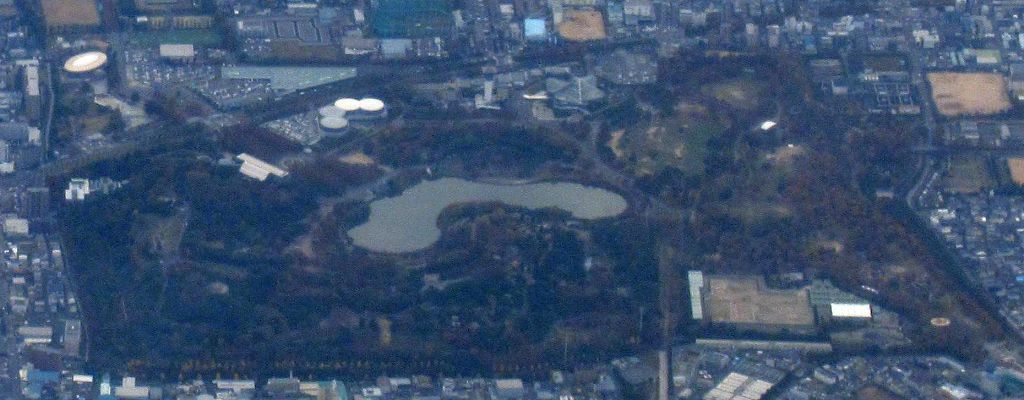
This greenhouse is unknown to foreign visitors despite being easy to reach and well worth visiting.
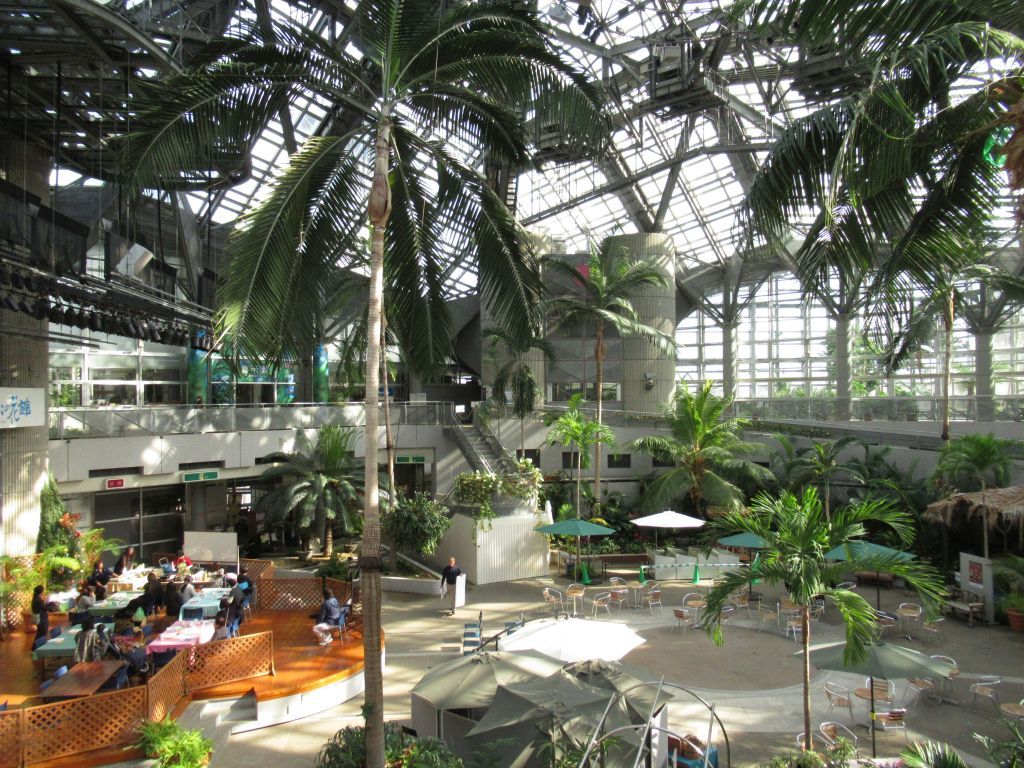
If you can’t go to Sir Seewoosagur Ramgoolam Botanical Garden, served by MRU, this greenhouse is a decent replacement.
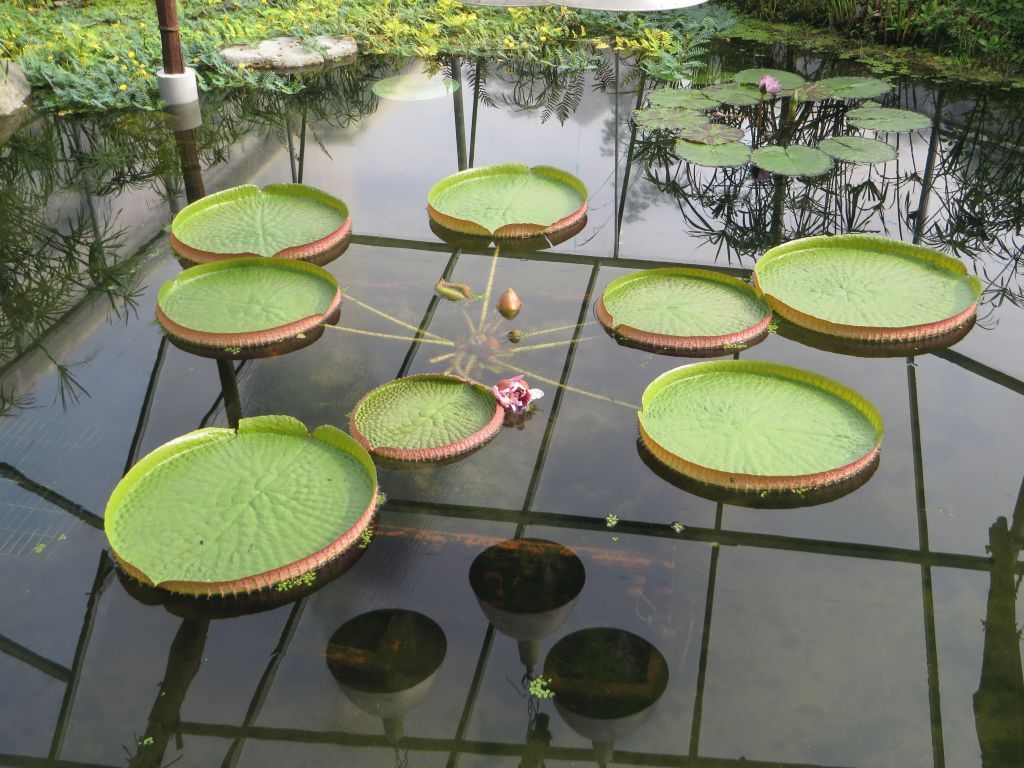
Orchid lovers will be happy
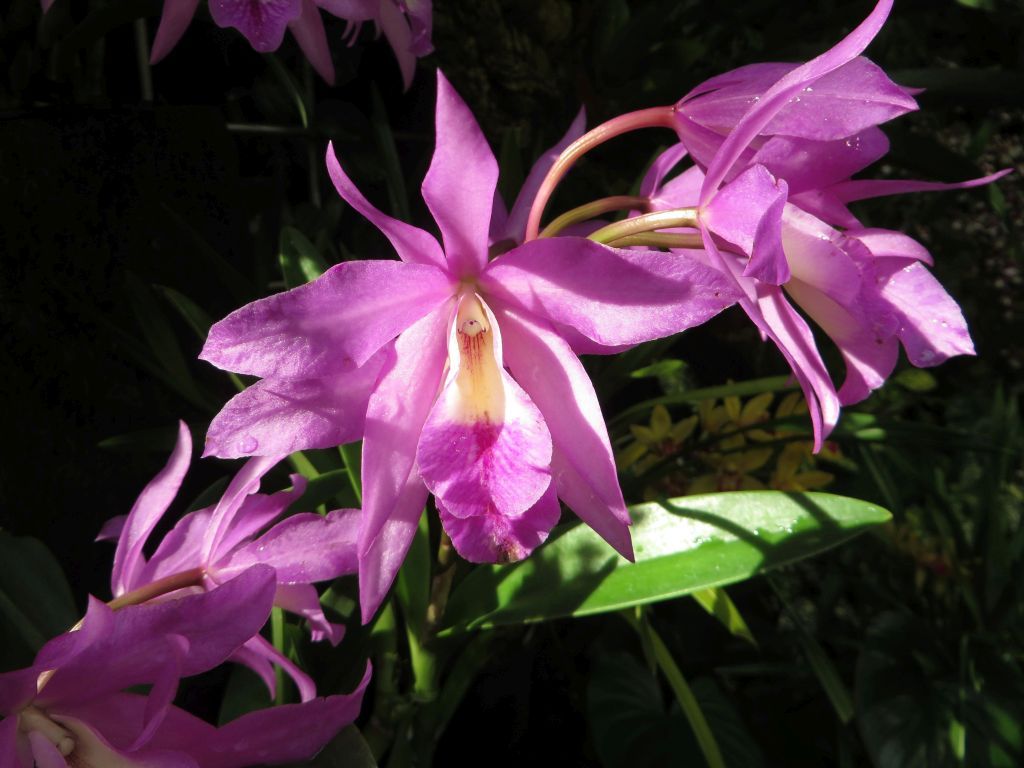
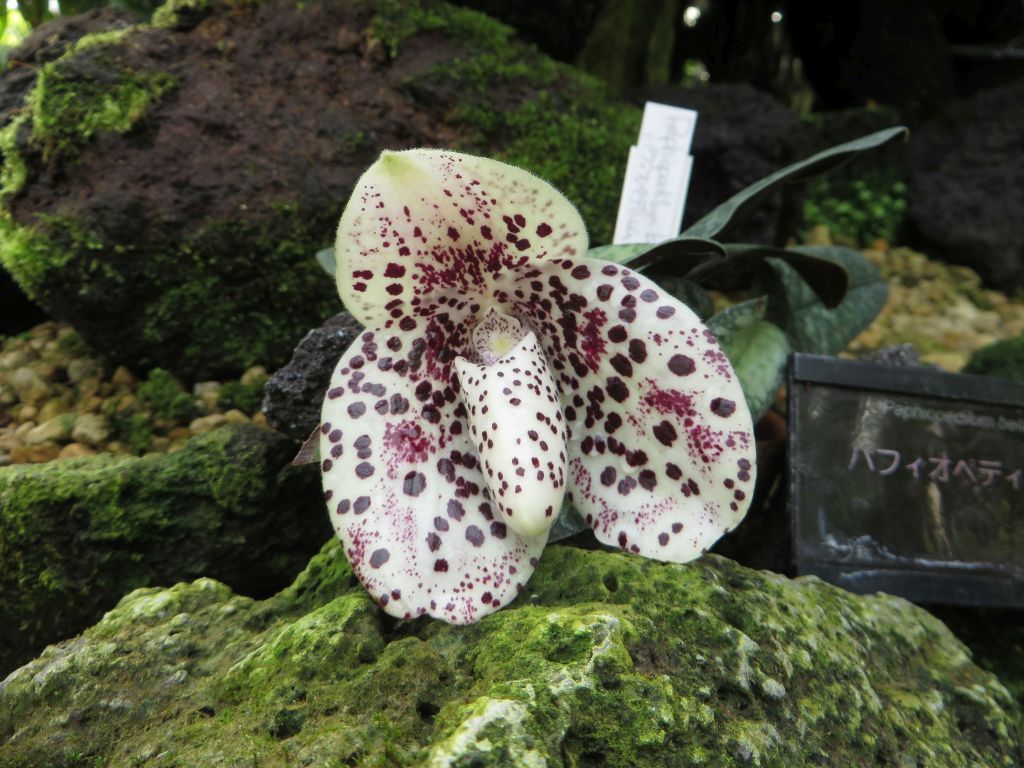
And for nostalgics of hot deserts.
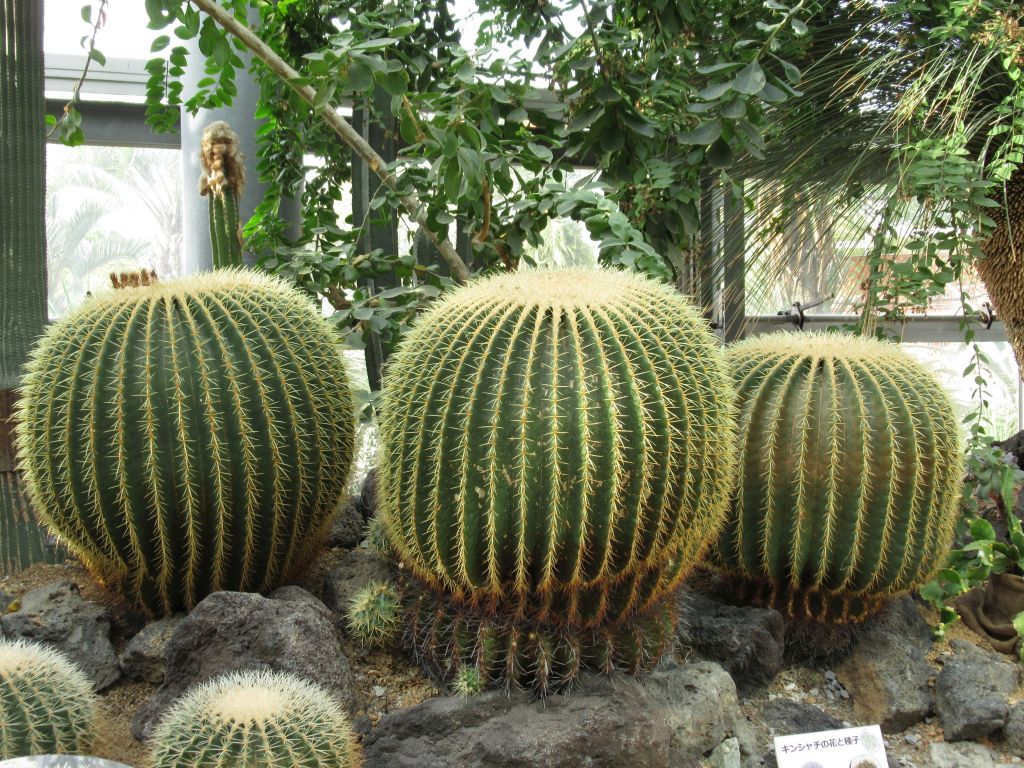
How do the altitudes of the tree line and of the snow line vary with respect to the latitude? I found this display very didactic.
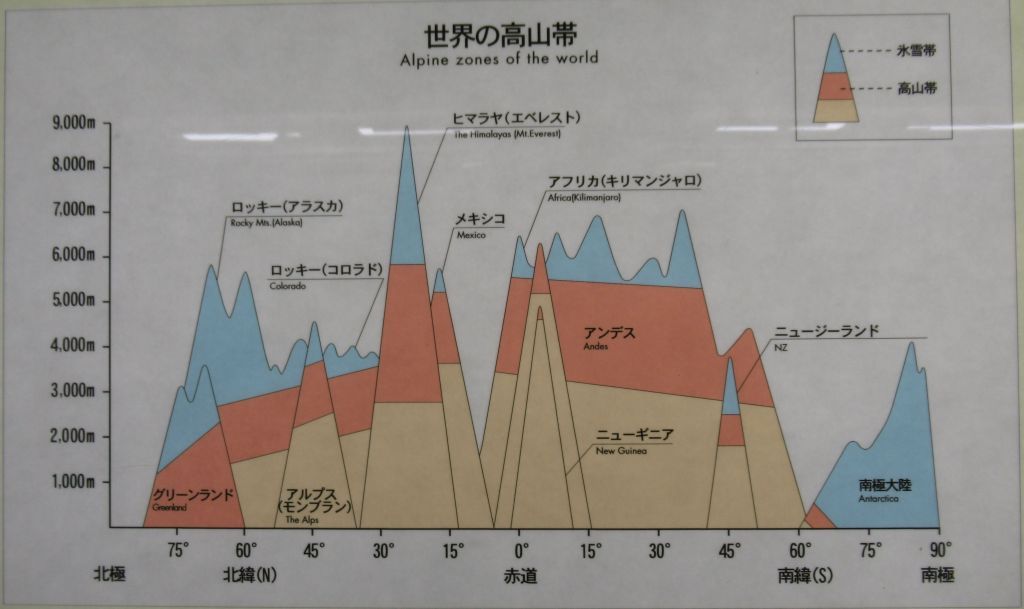
A detail was probably lost in translation for most of the foreign visitors here.
Look at the summit far left.
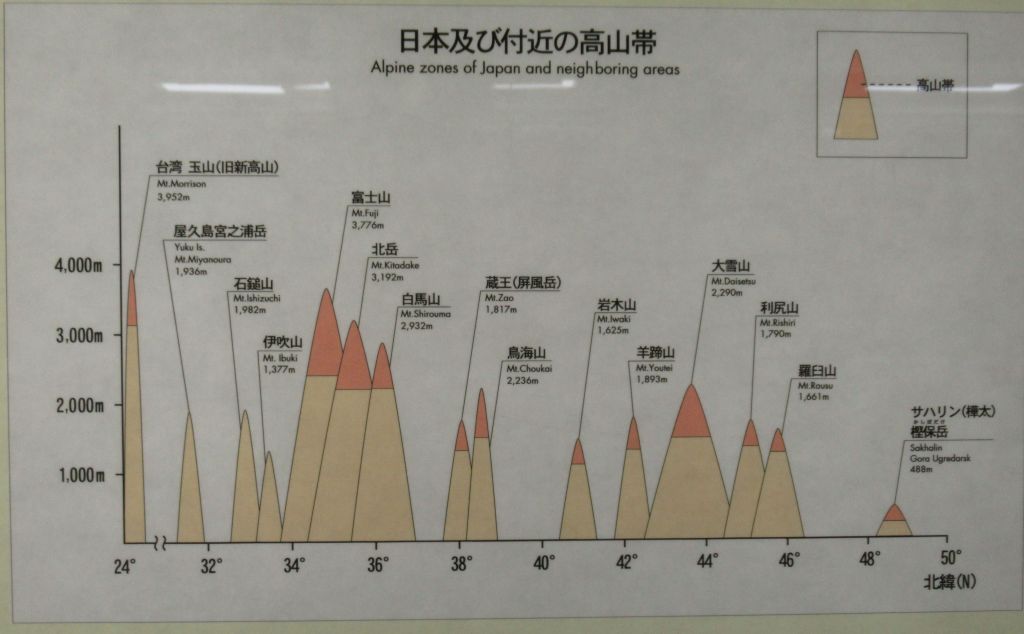
Mt Morrison ? This 19th century obsolete name will probably not ring a bell to any reader. You need to read the Japanese legend: Taiwan - Yushan – ex Mt Niitaka
Yushan 玉山 (= Jade Mountain) is Taiwan’s tallest mountain, and was that of the Empire of Japan between 1895 and 1945, at the time Taiwan was a Japanese colony taken from China. Hence its Japanese name of the time : Niitakayama 新高山 means "New High Mountain", because it is 146 meters higher than Mt. Fuji, and the Taiwanese are very proud of that.
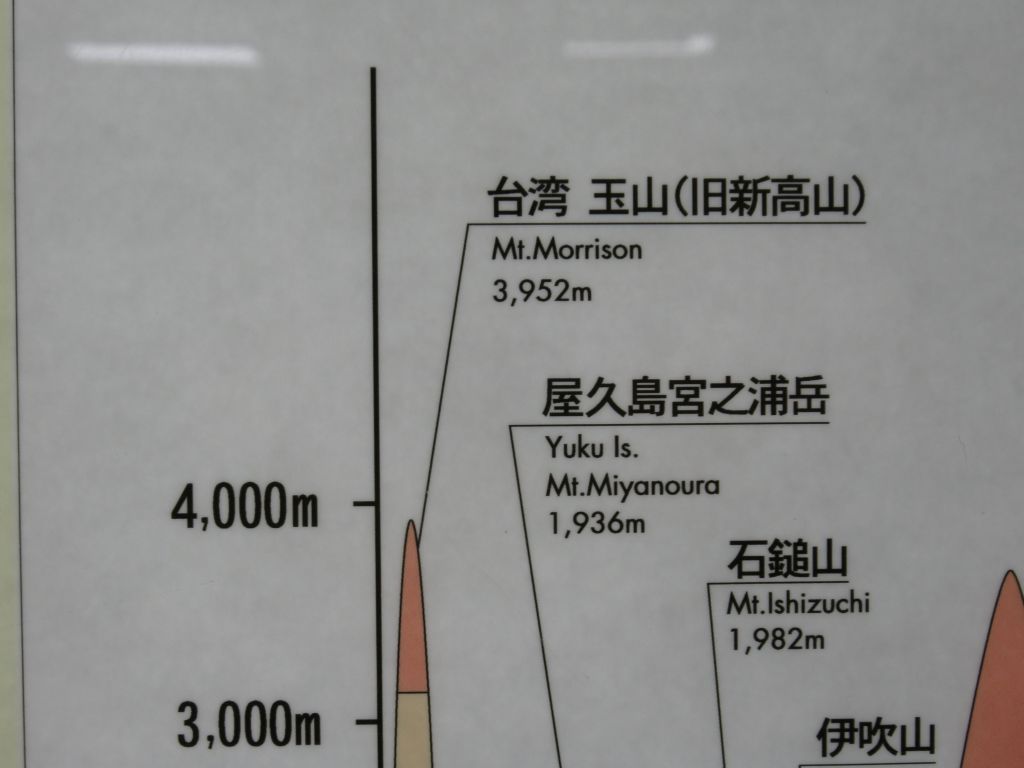
Few foreigners venture in this non-descript middle class residential neighborhood of Ōsaka’s urban area, but my wife and I know it well, like this public garden which was being cleaned that Sunday by volunteers, once a month, in that picture taken from our friends cars when leaving to KIX. I could even recognize their building in the second picture of this bonus.
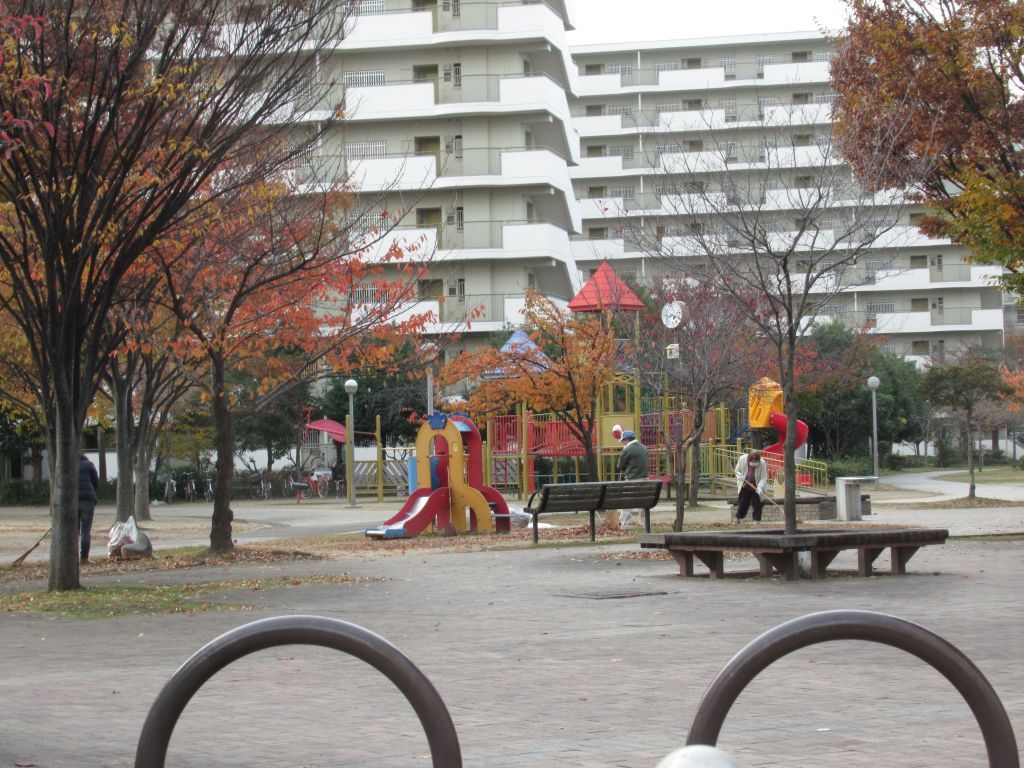
This was not going to be our last take-off from KIX !
Thanks for reading me !
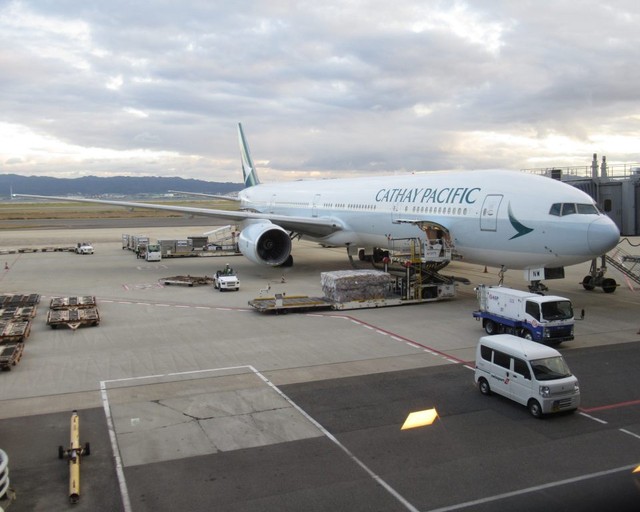
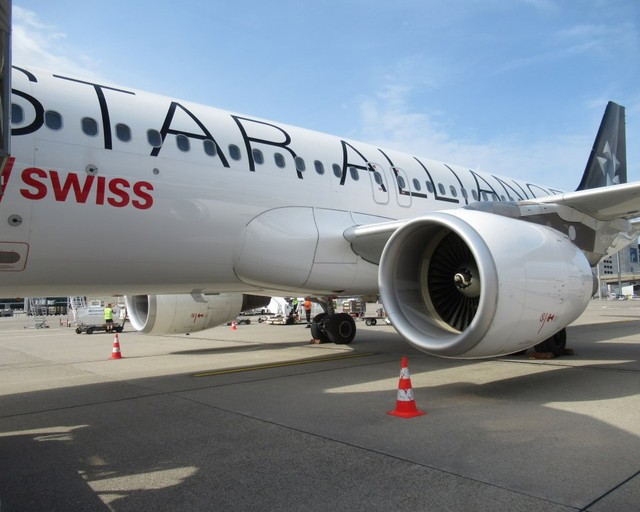
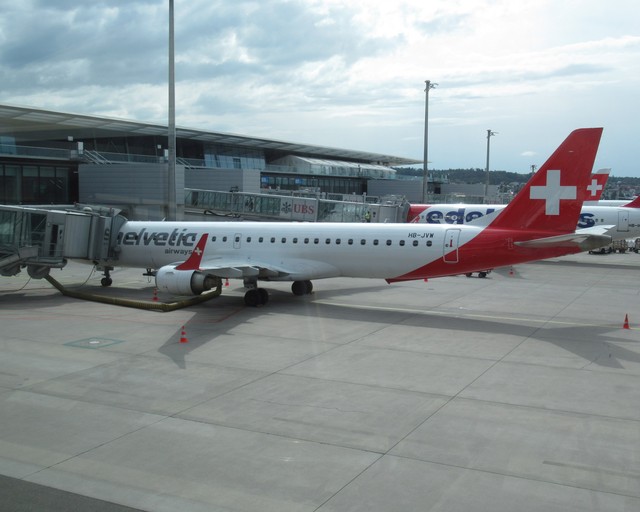
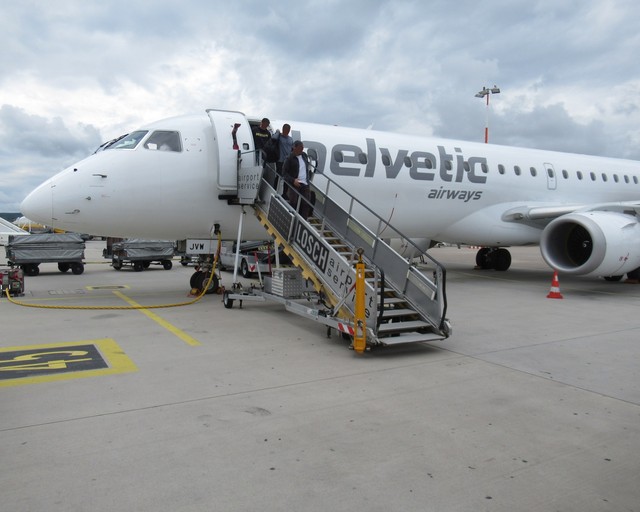
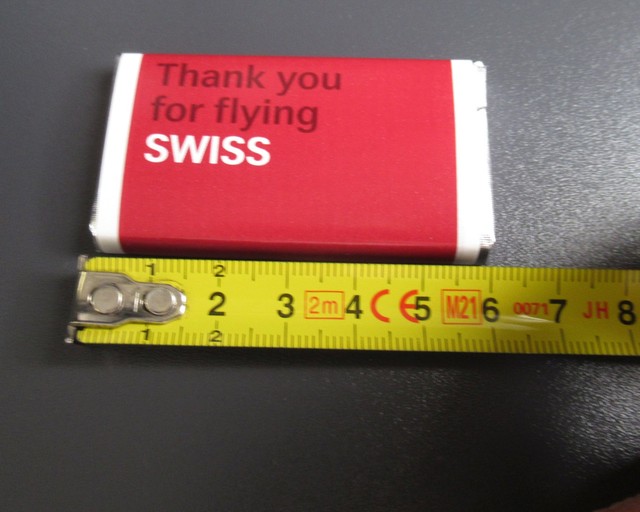
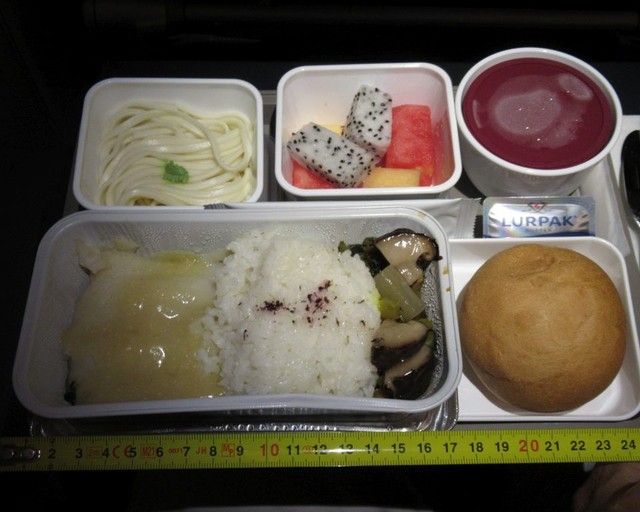

Nice report on your flight with Finnair! It looks like you had a good flight with them in Economy. Their meals look a bit small (in my opinion) for International Economy, but perhaps that's just me.
Thanks for sharing!
It was a good flight indeed, mostly due to the duo seats and the smiles of the FAs. The meals were enough for us, even though it had been an early breakfast and there was nothing to eat on the connecting flight to CDG.
Thanks for your comment !
What amazed me was that you have to pay for extra snacks... I have not seen this on any Intercontinental flight with a legacy carrier...
Many legacies are cutting pennies off their offering rather than dollars off their overheads...
Thanks for stopping by !